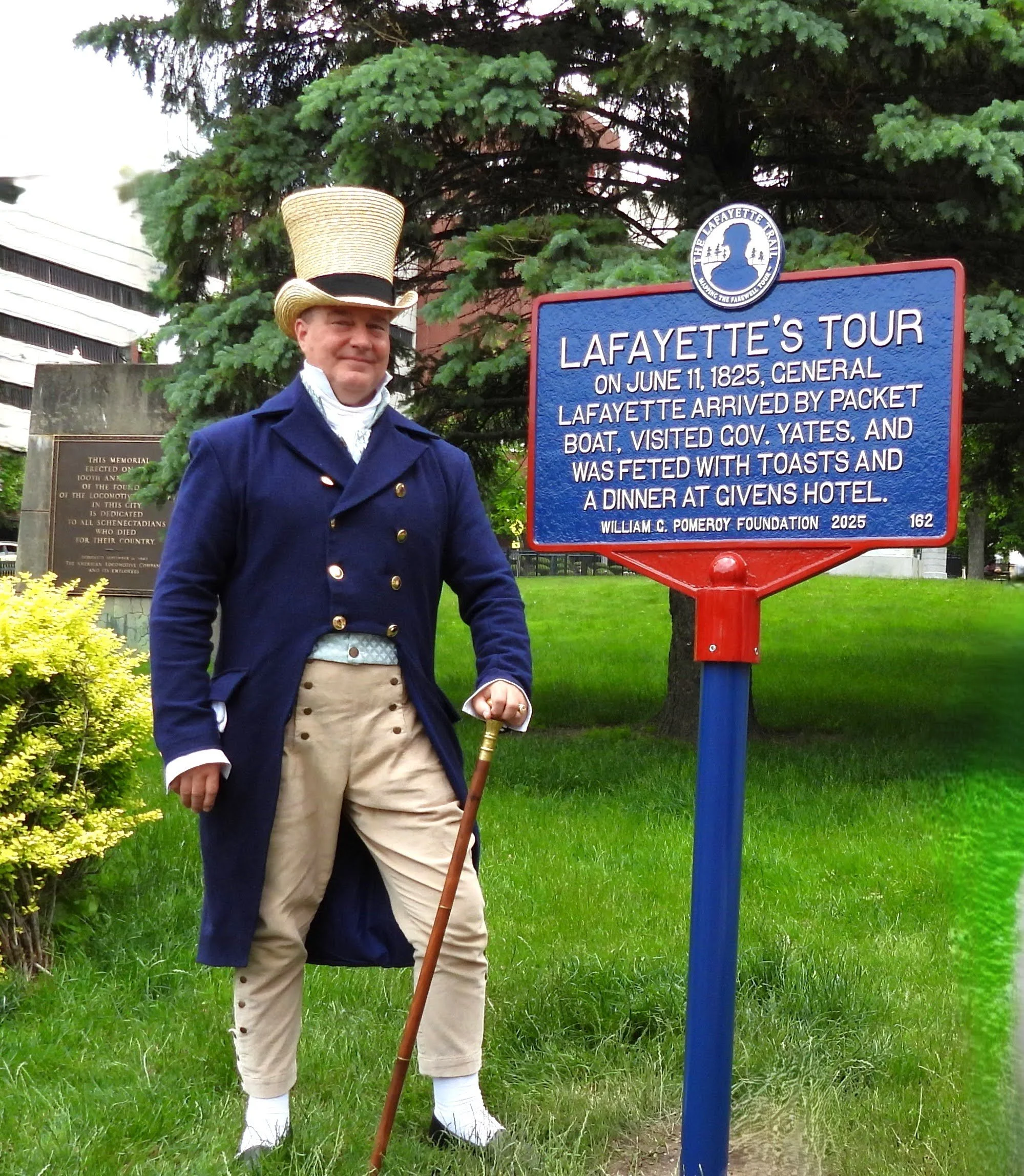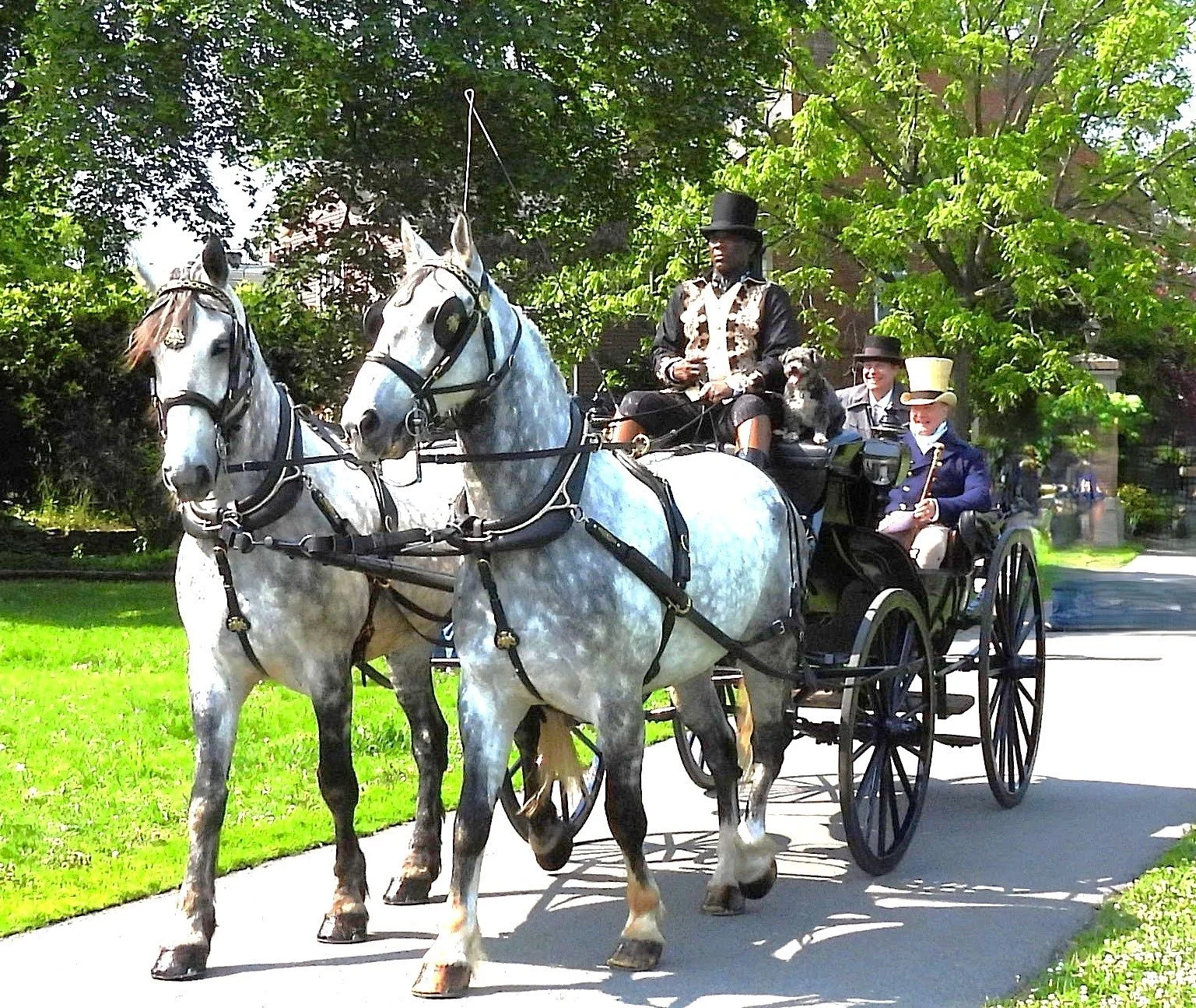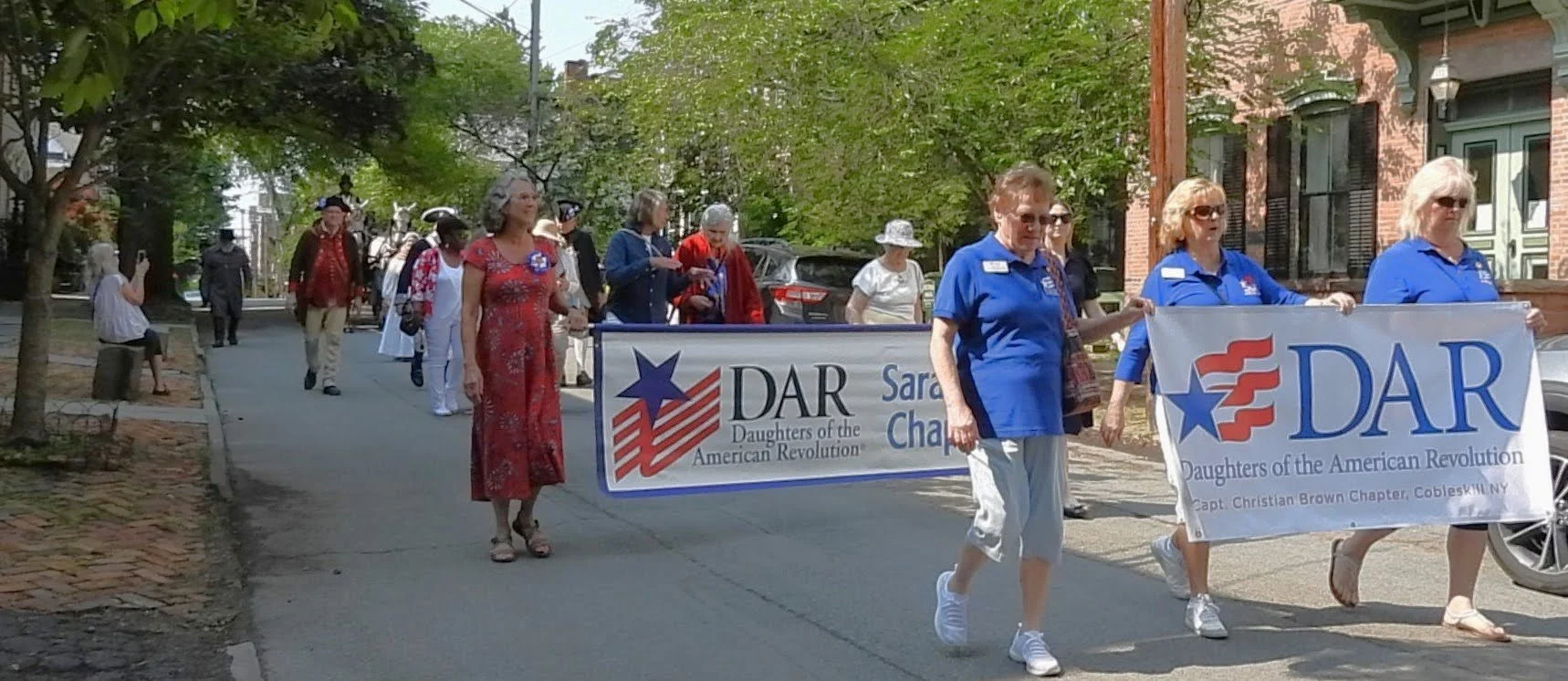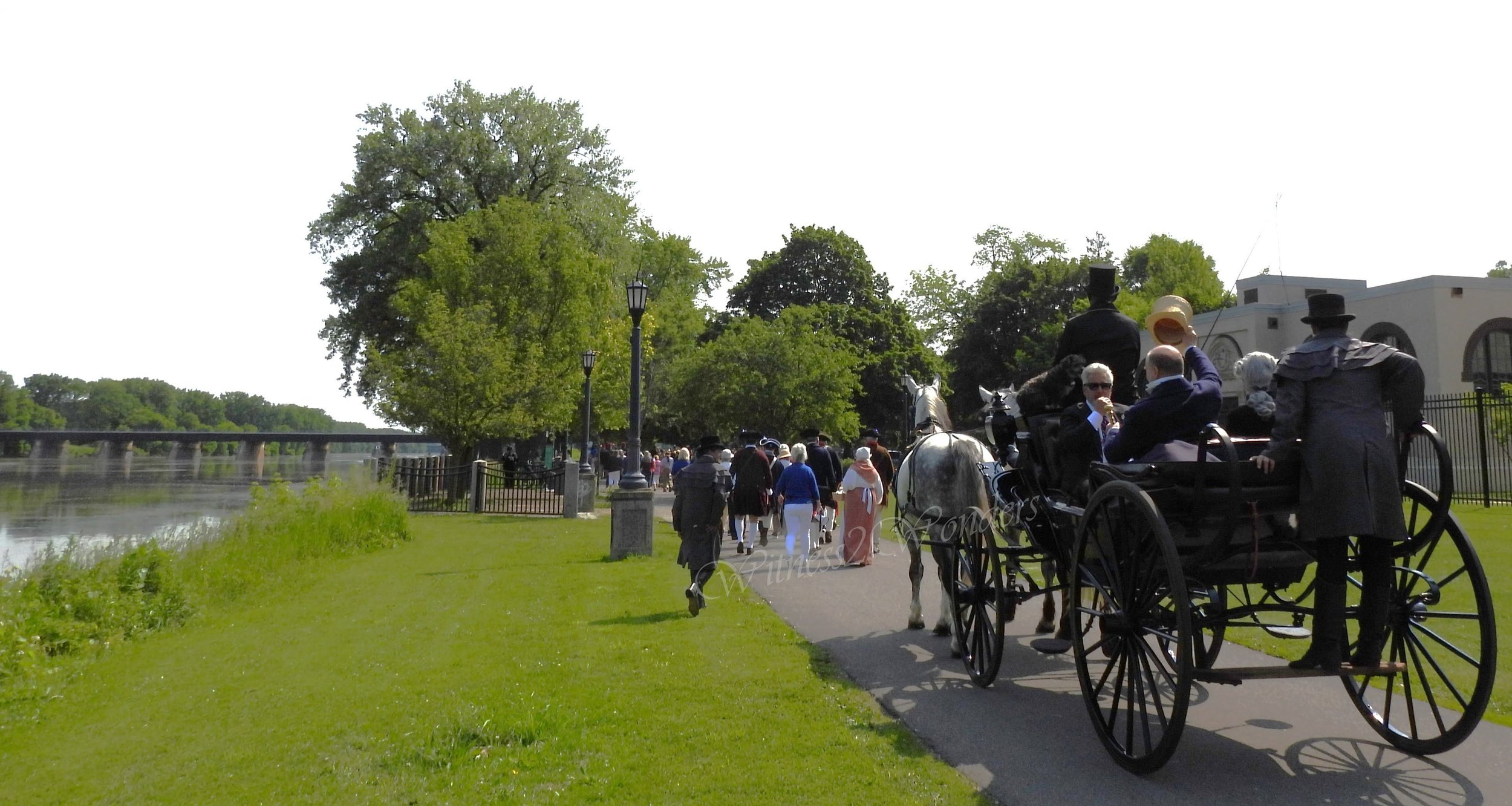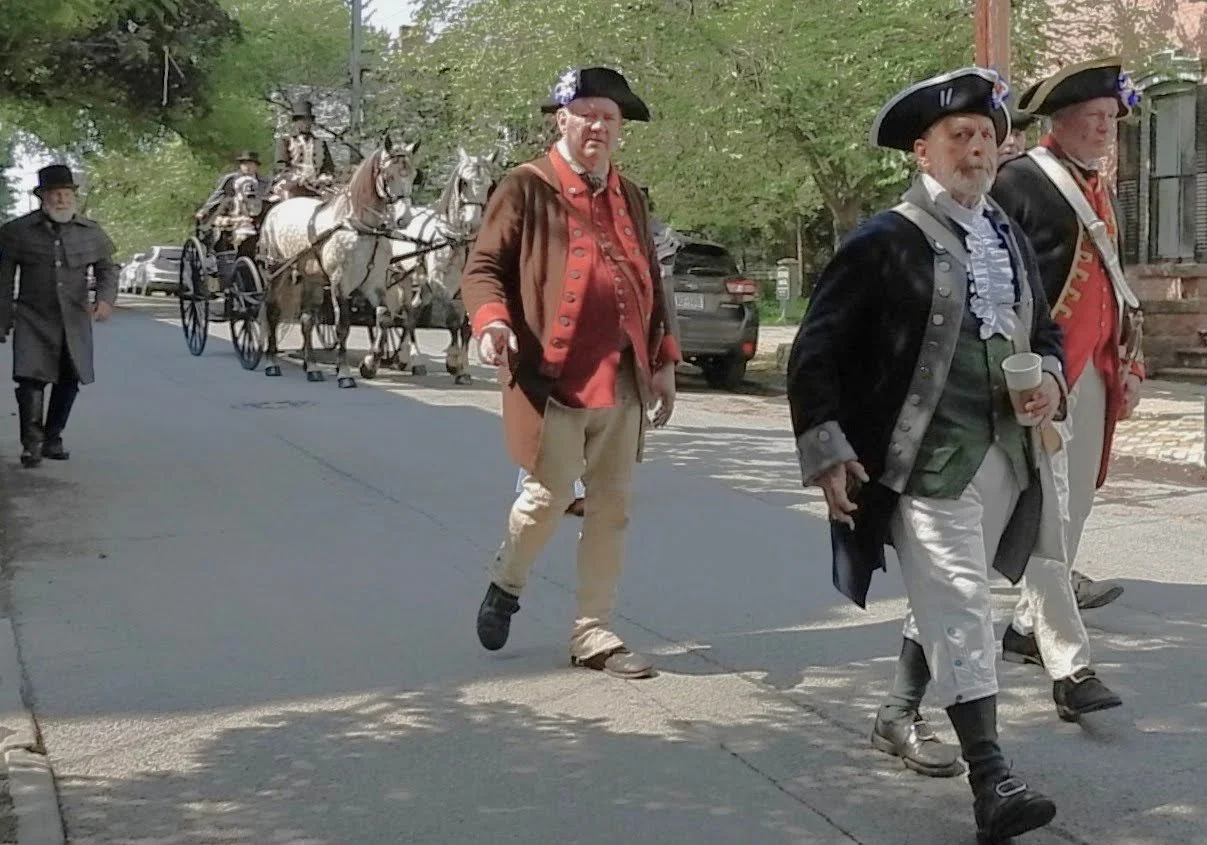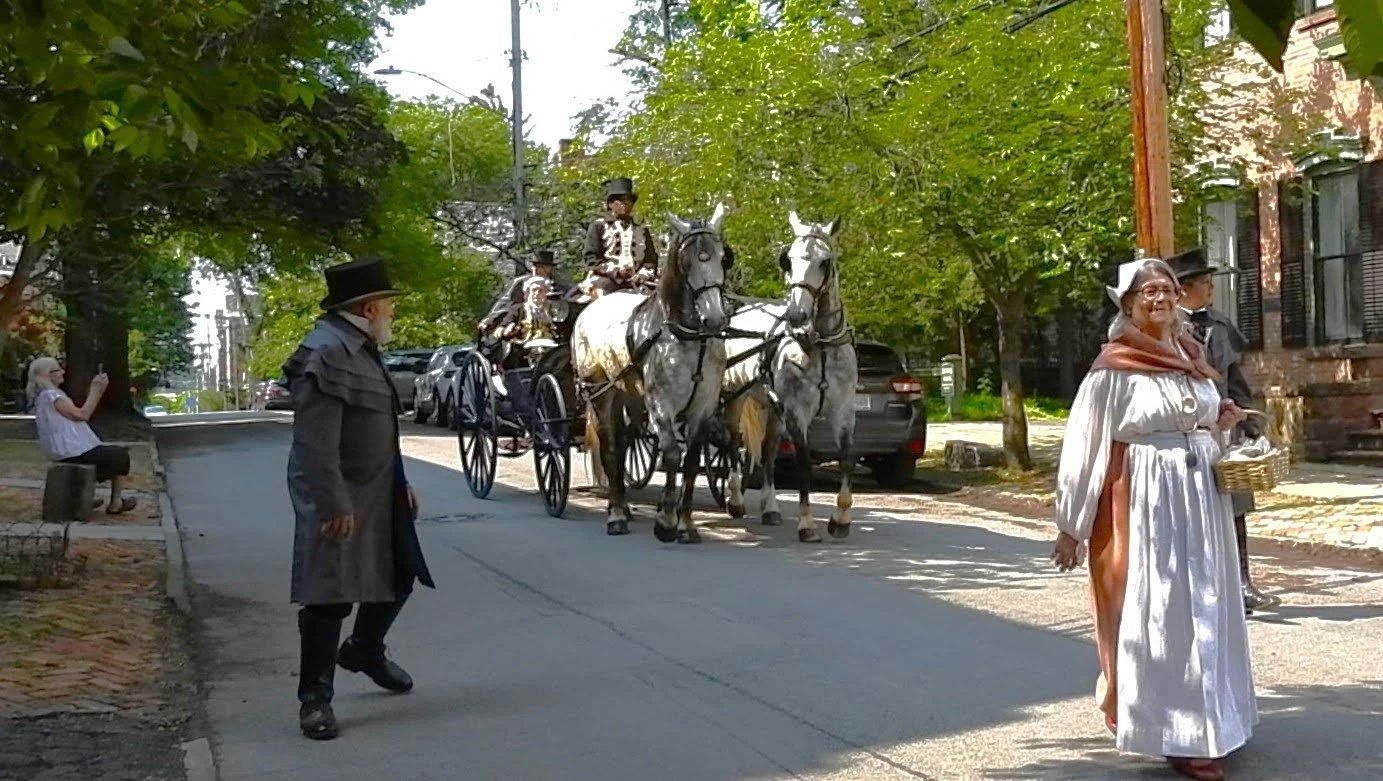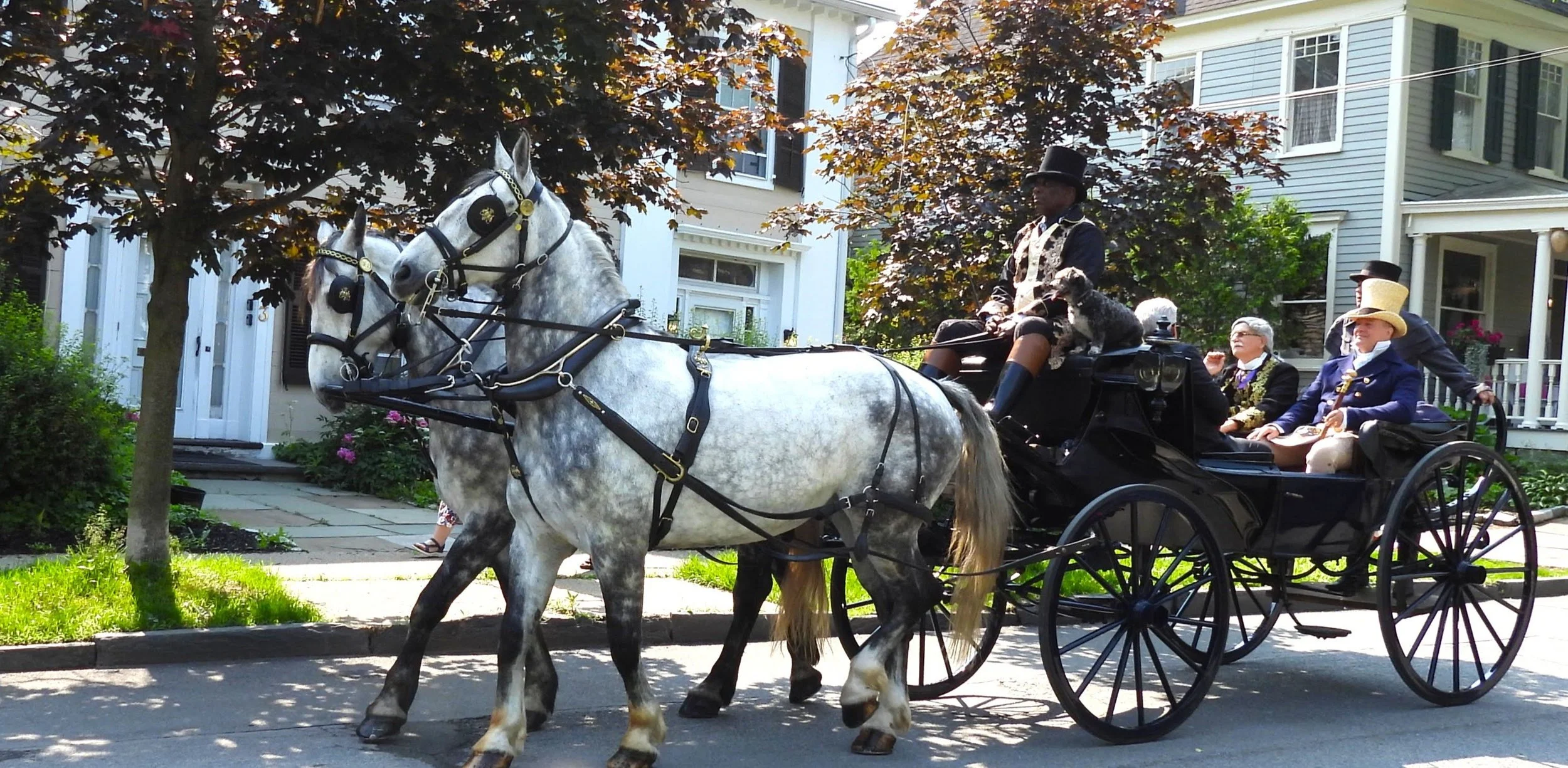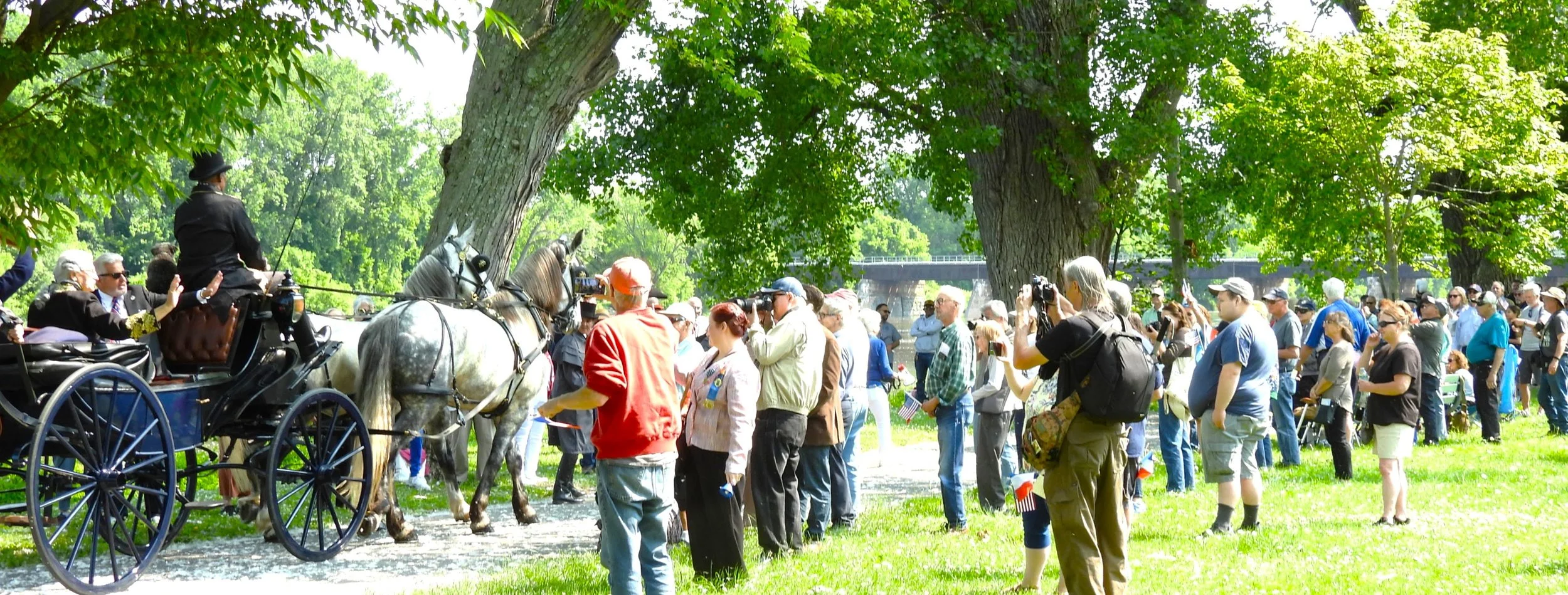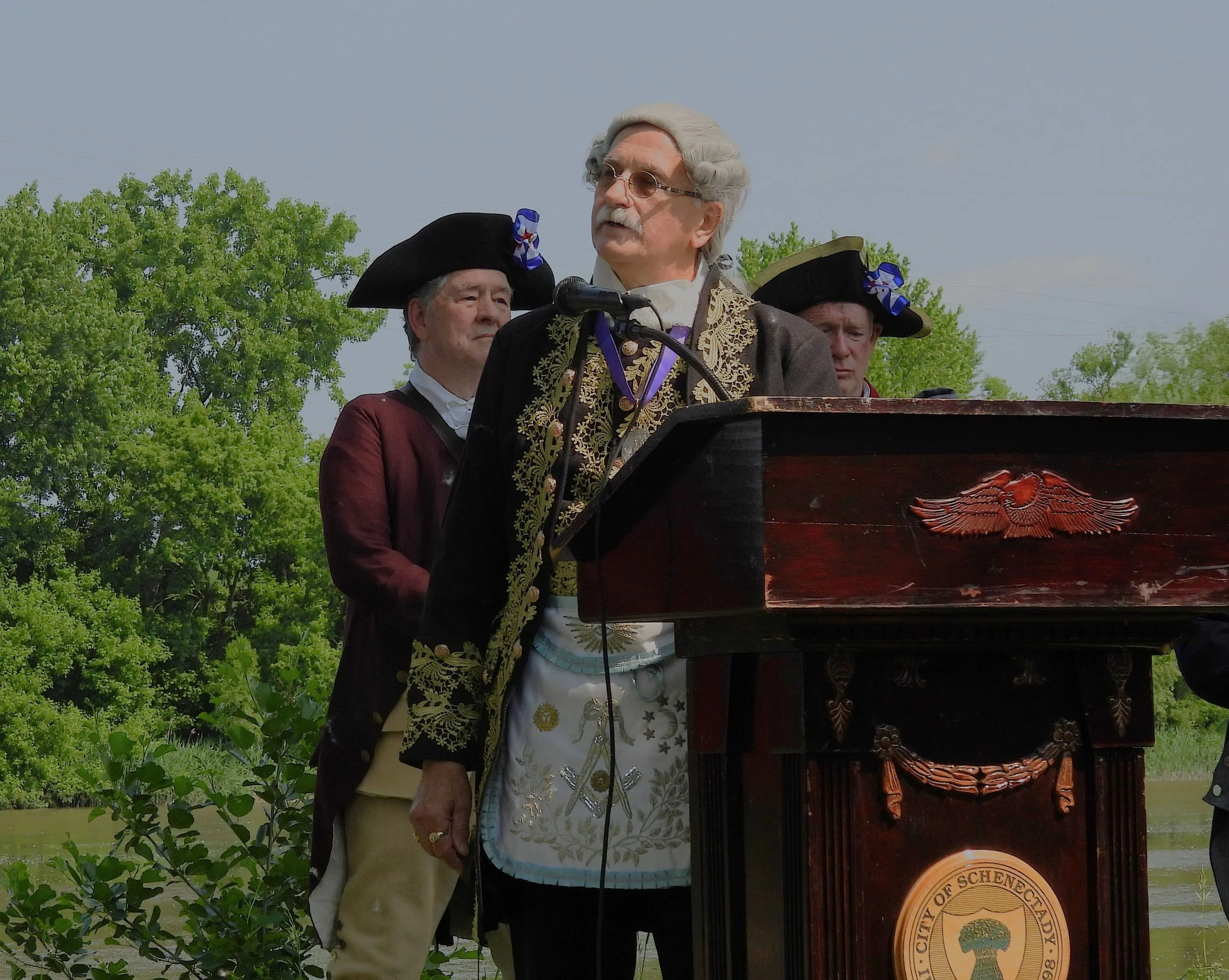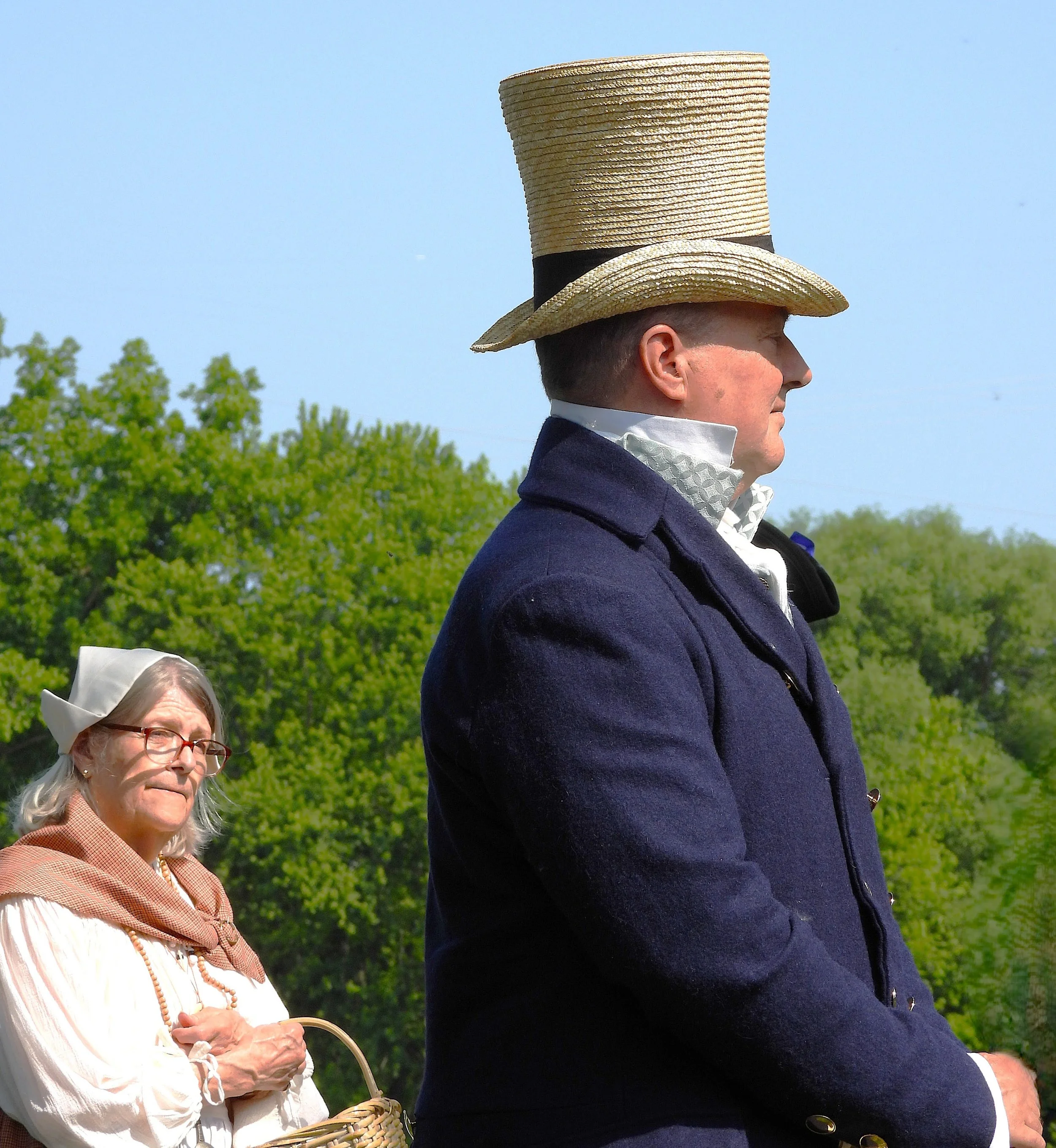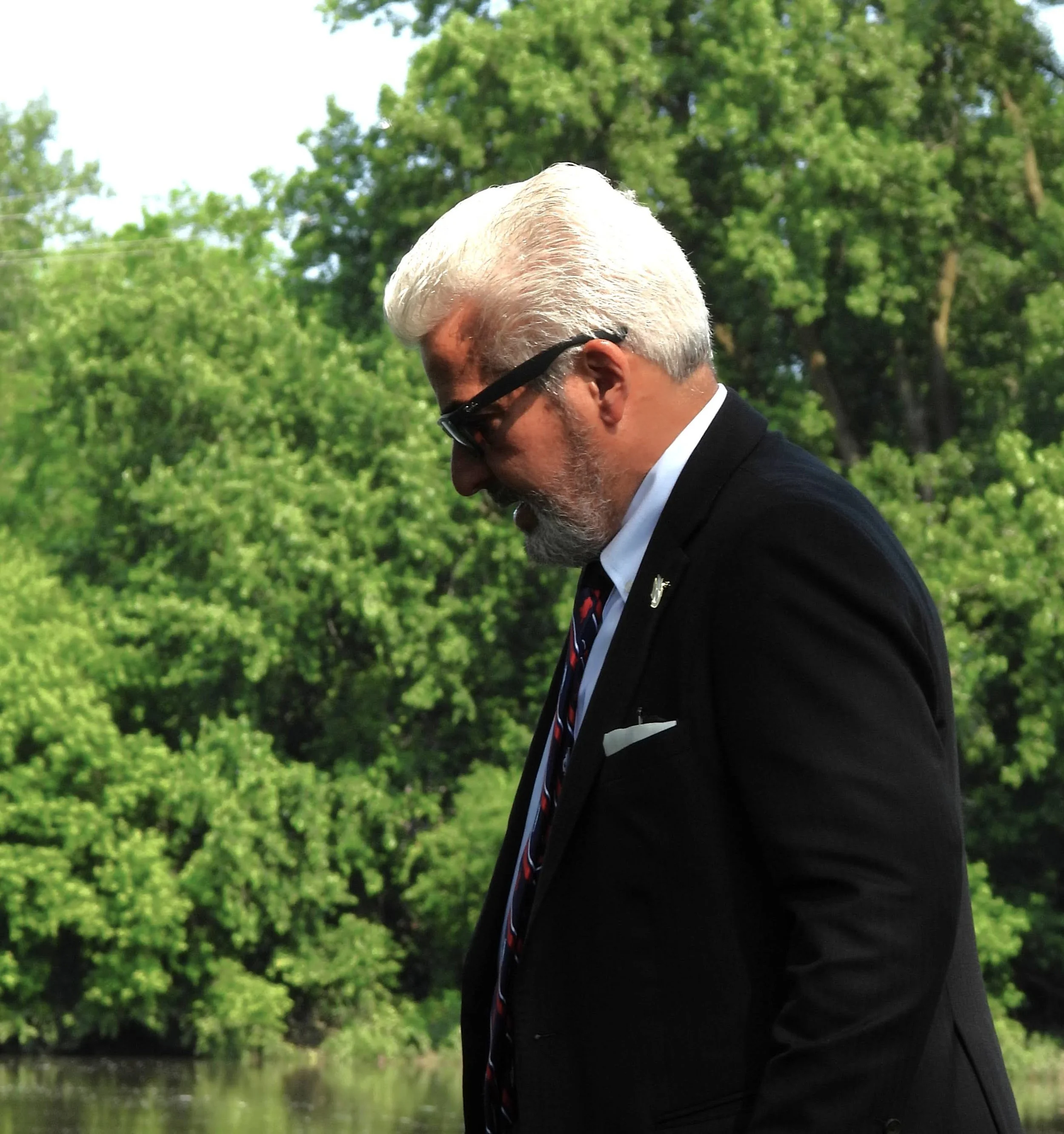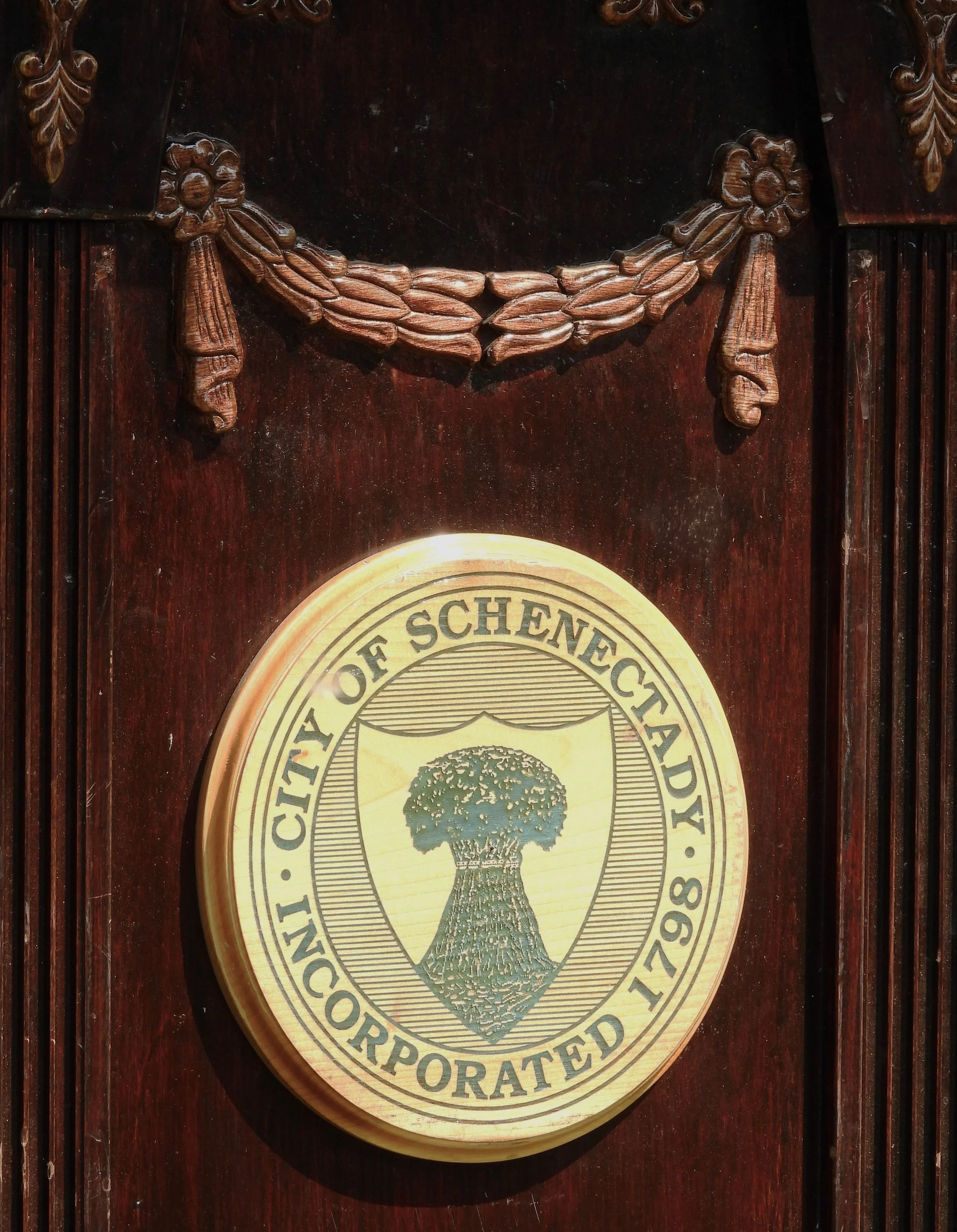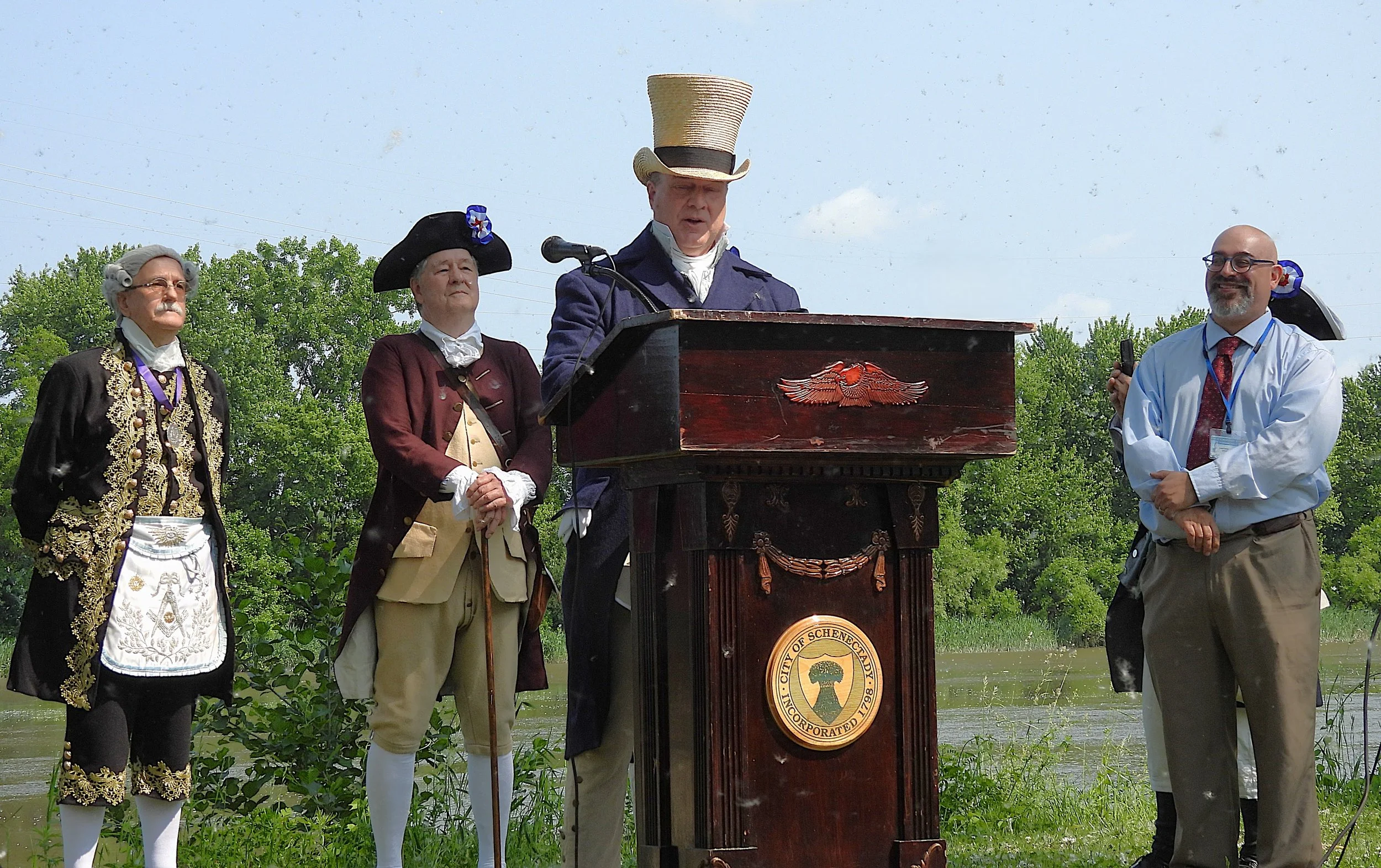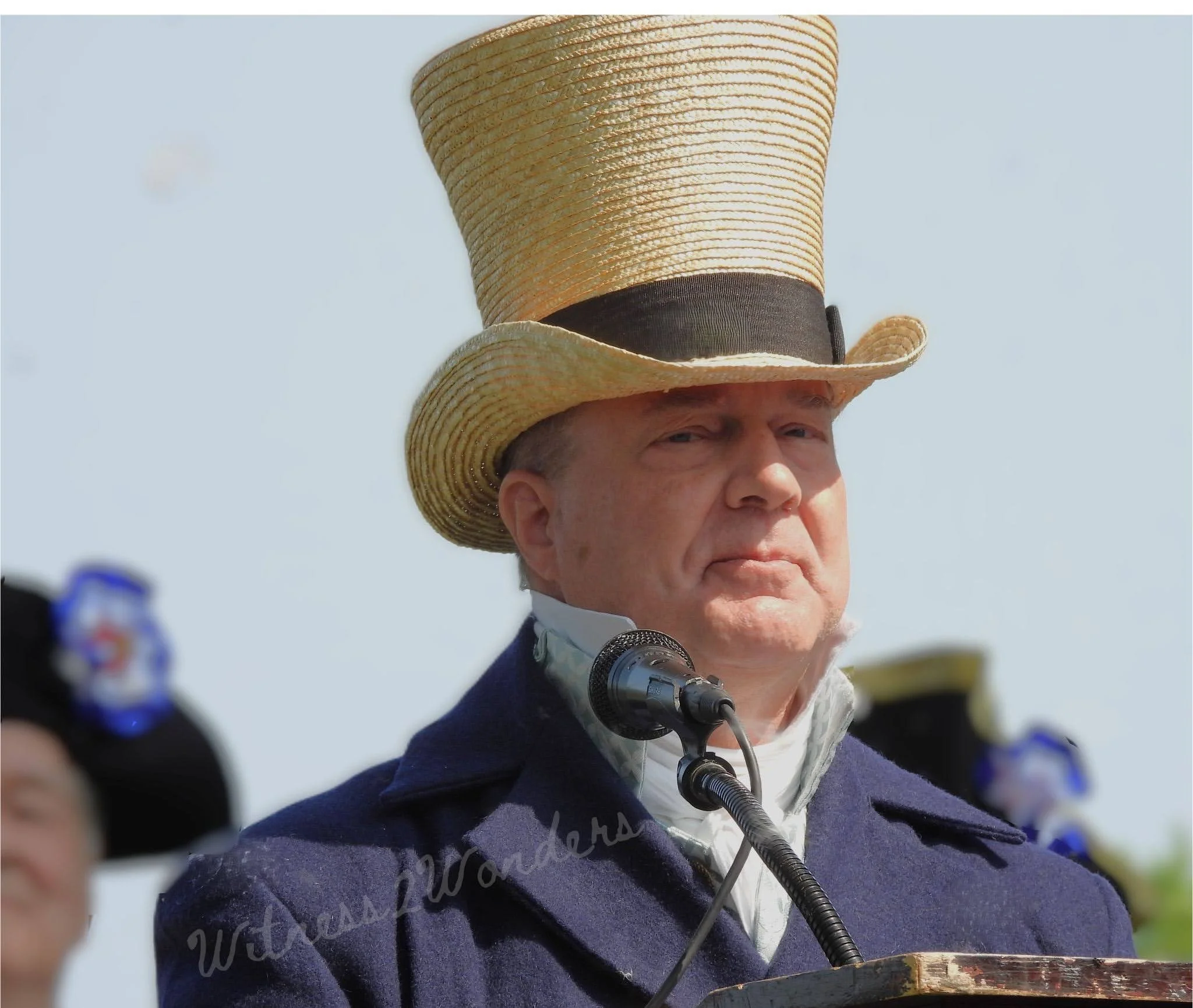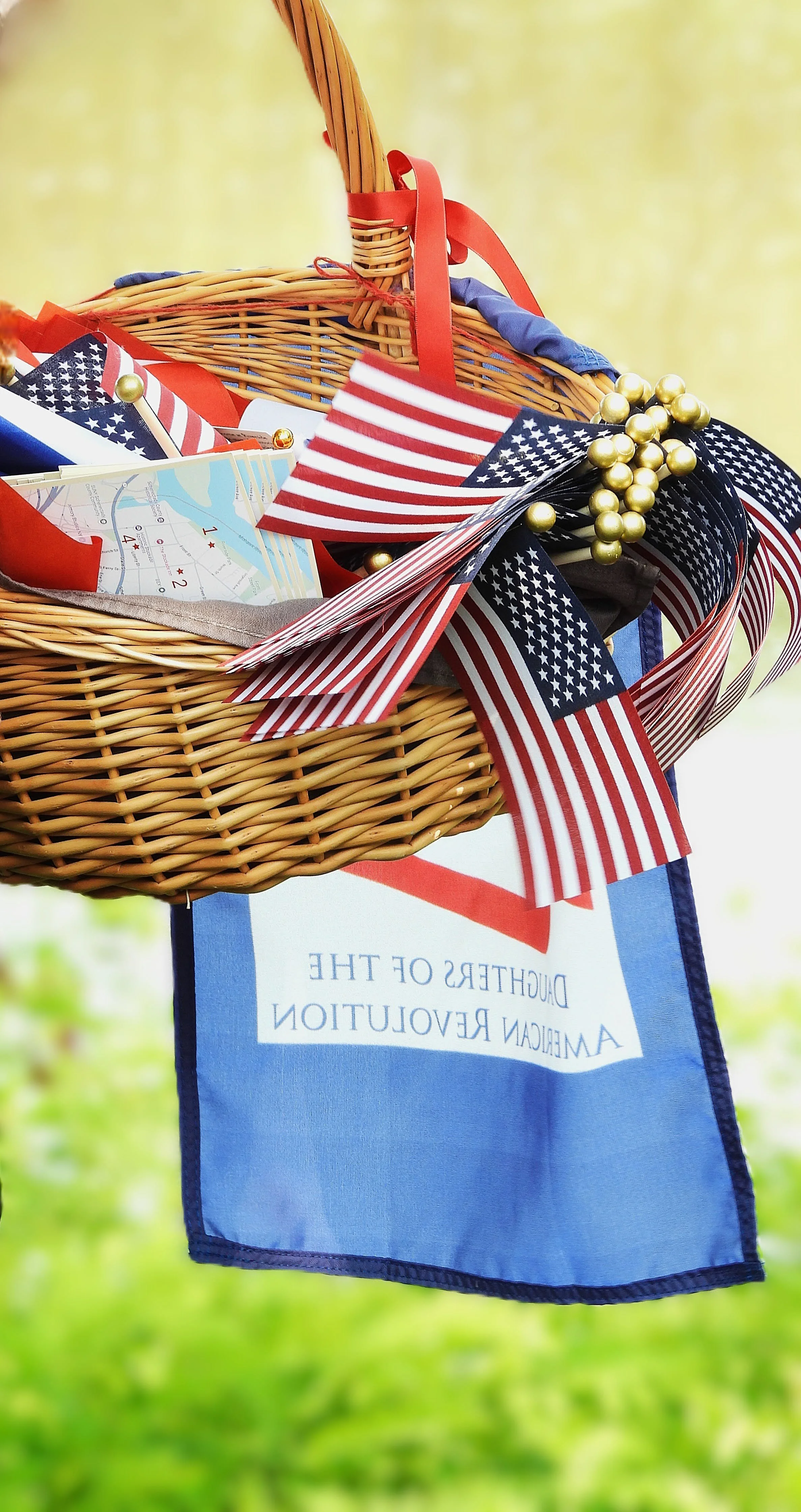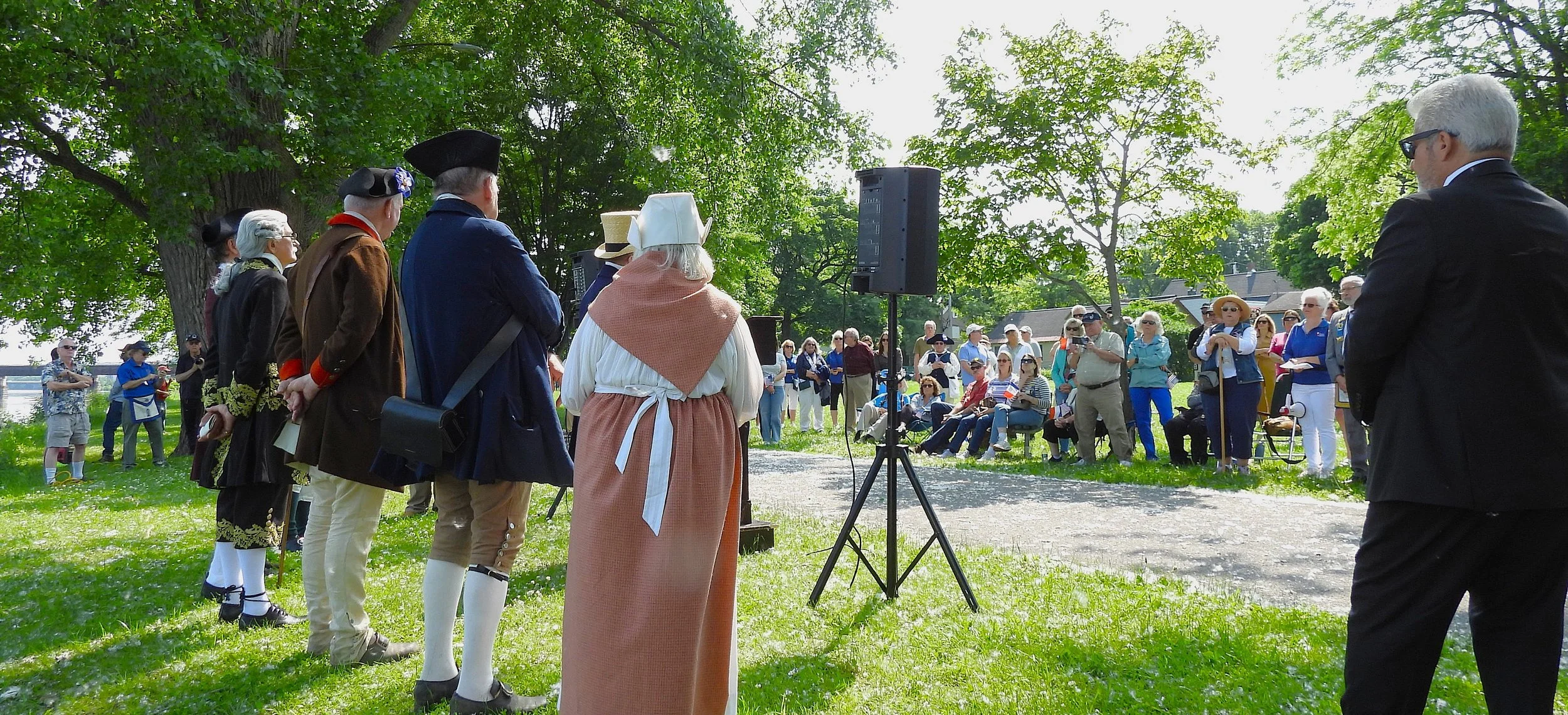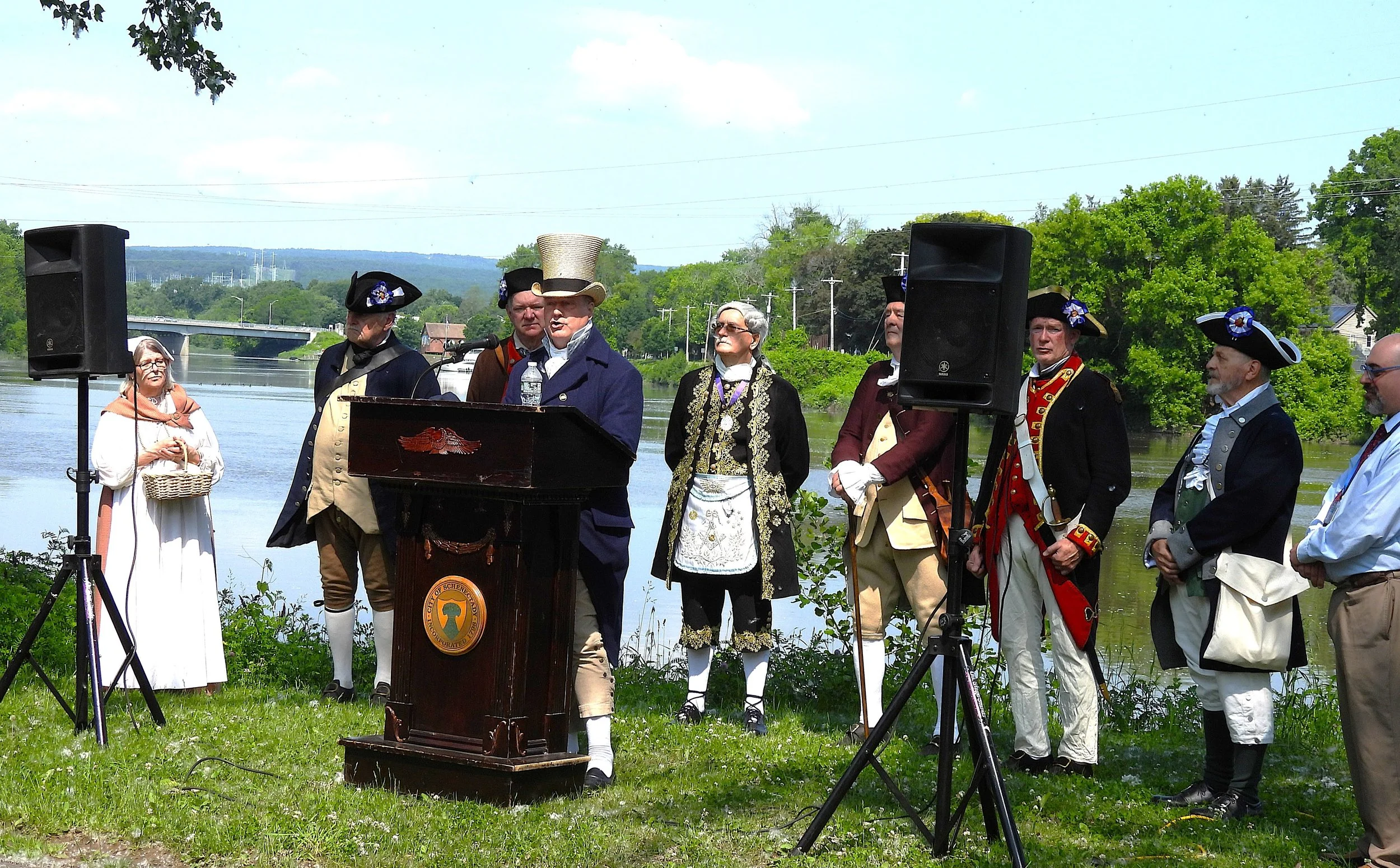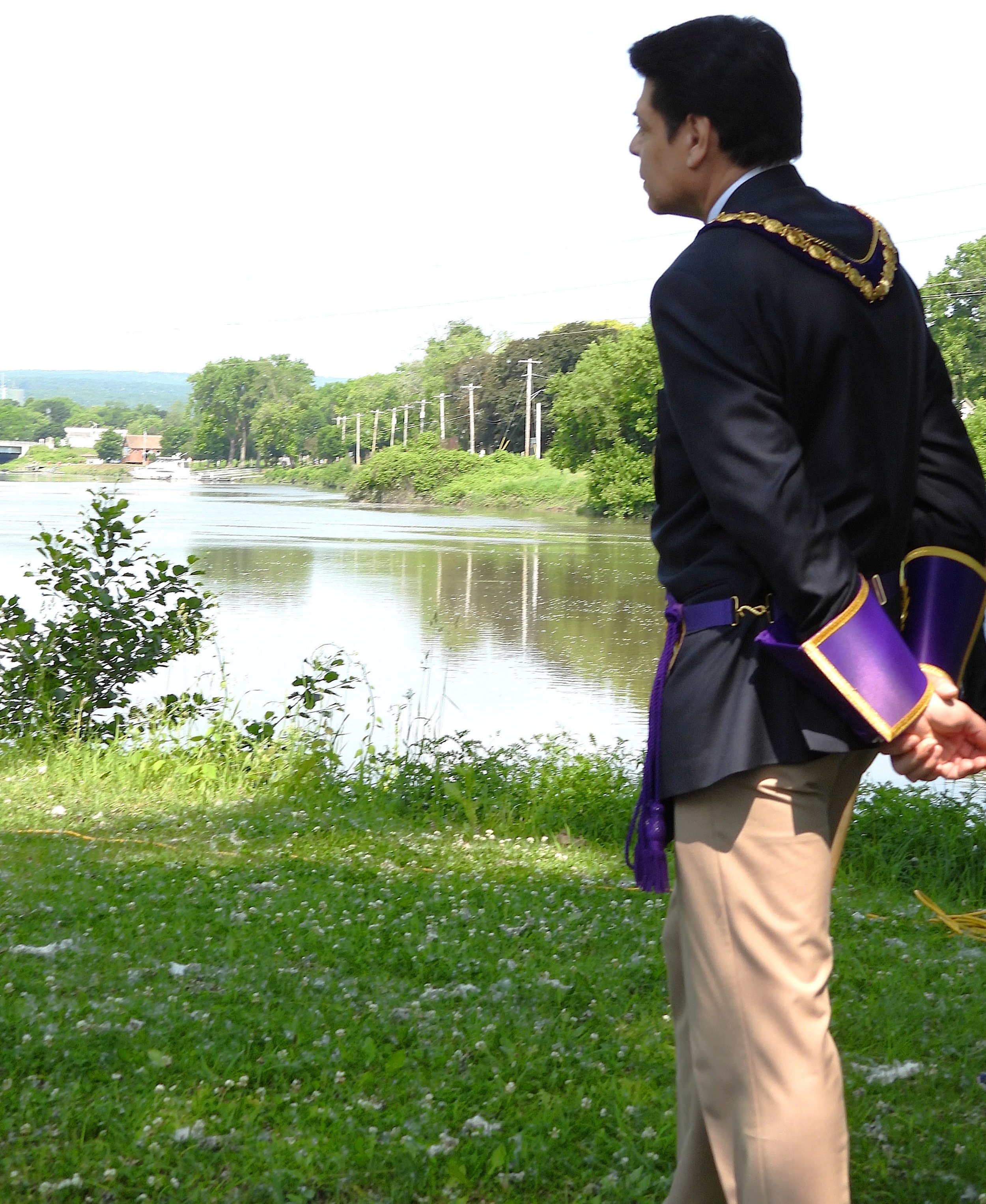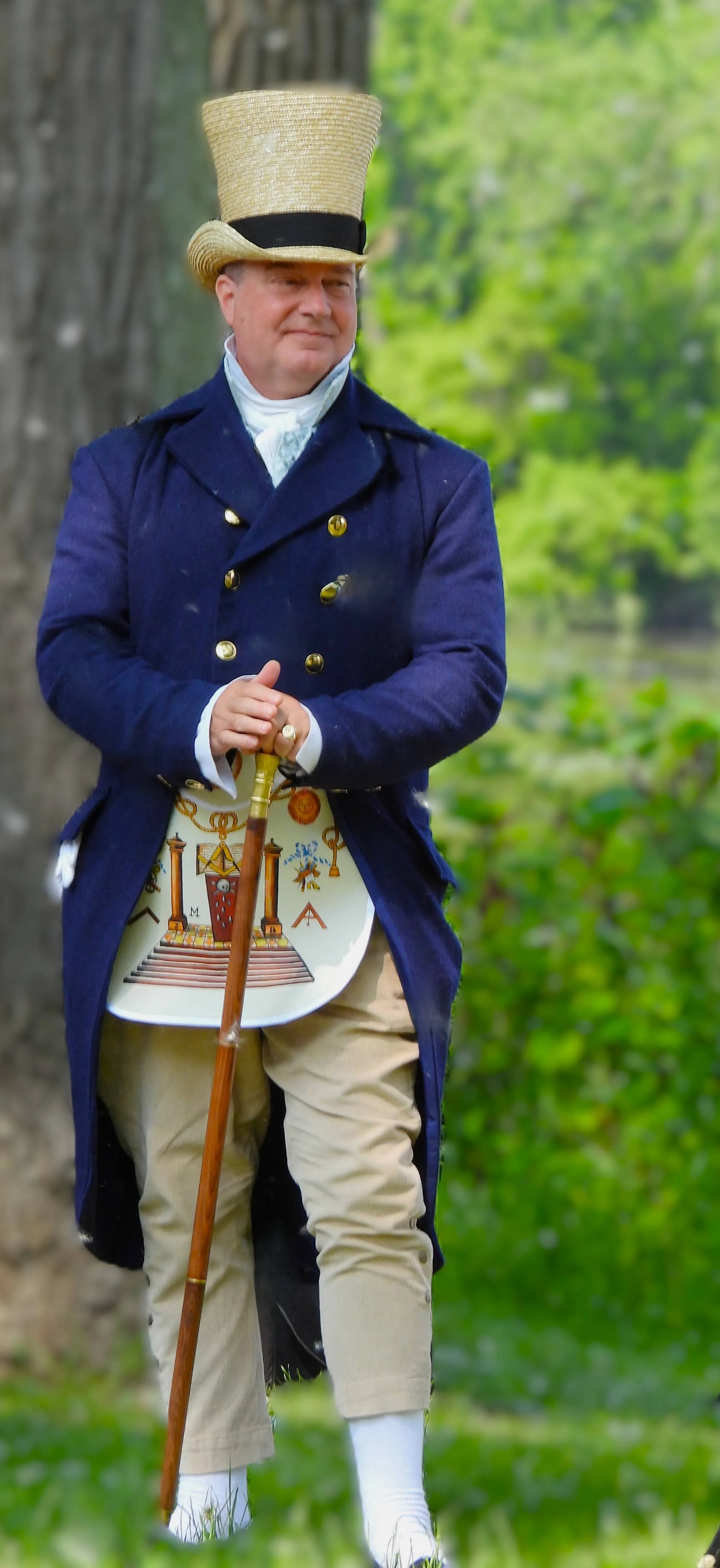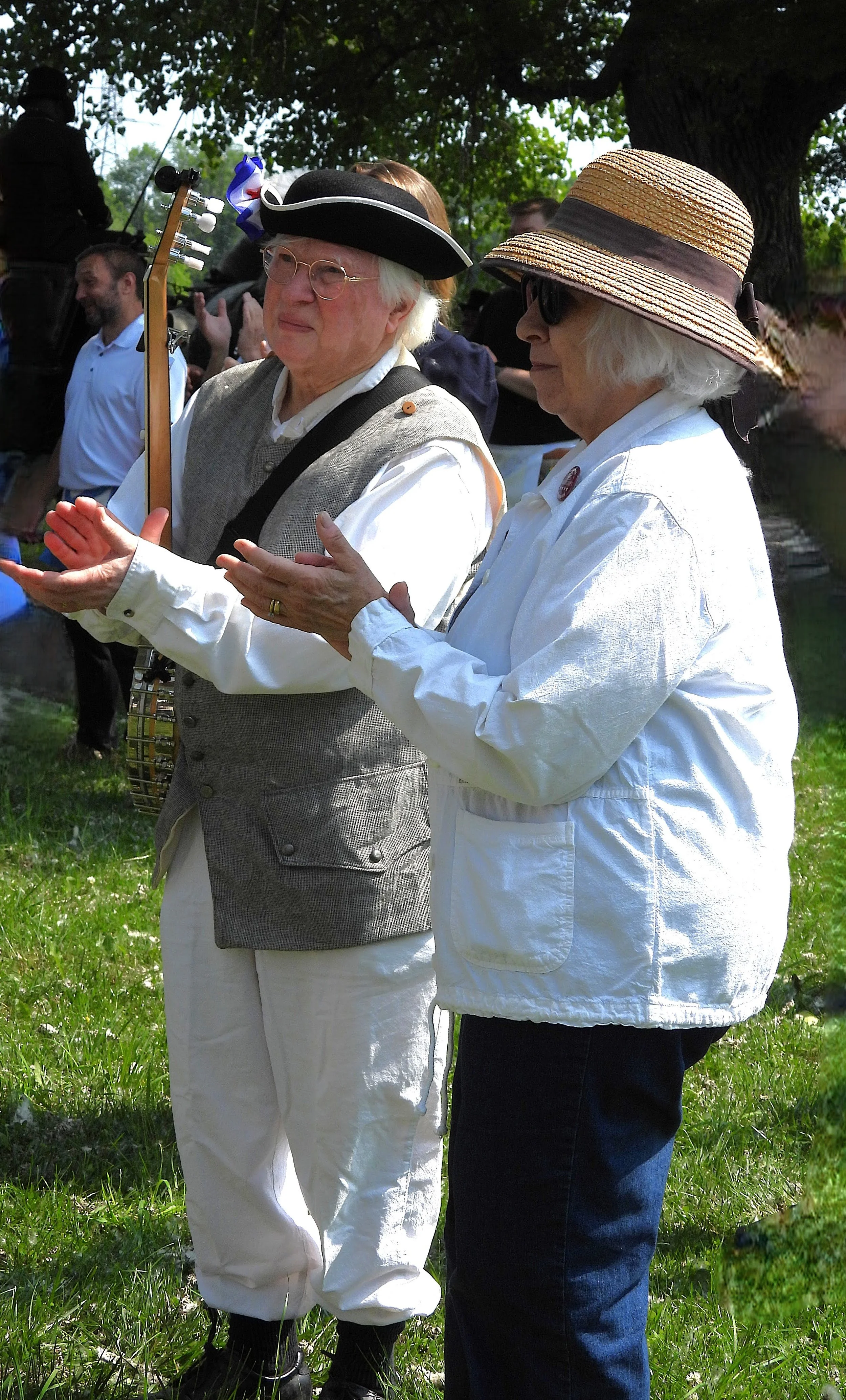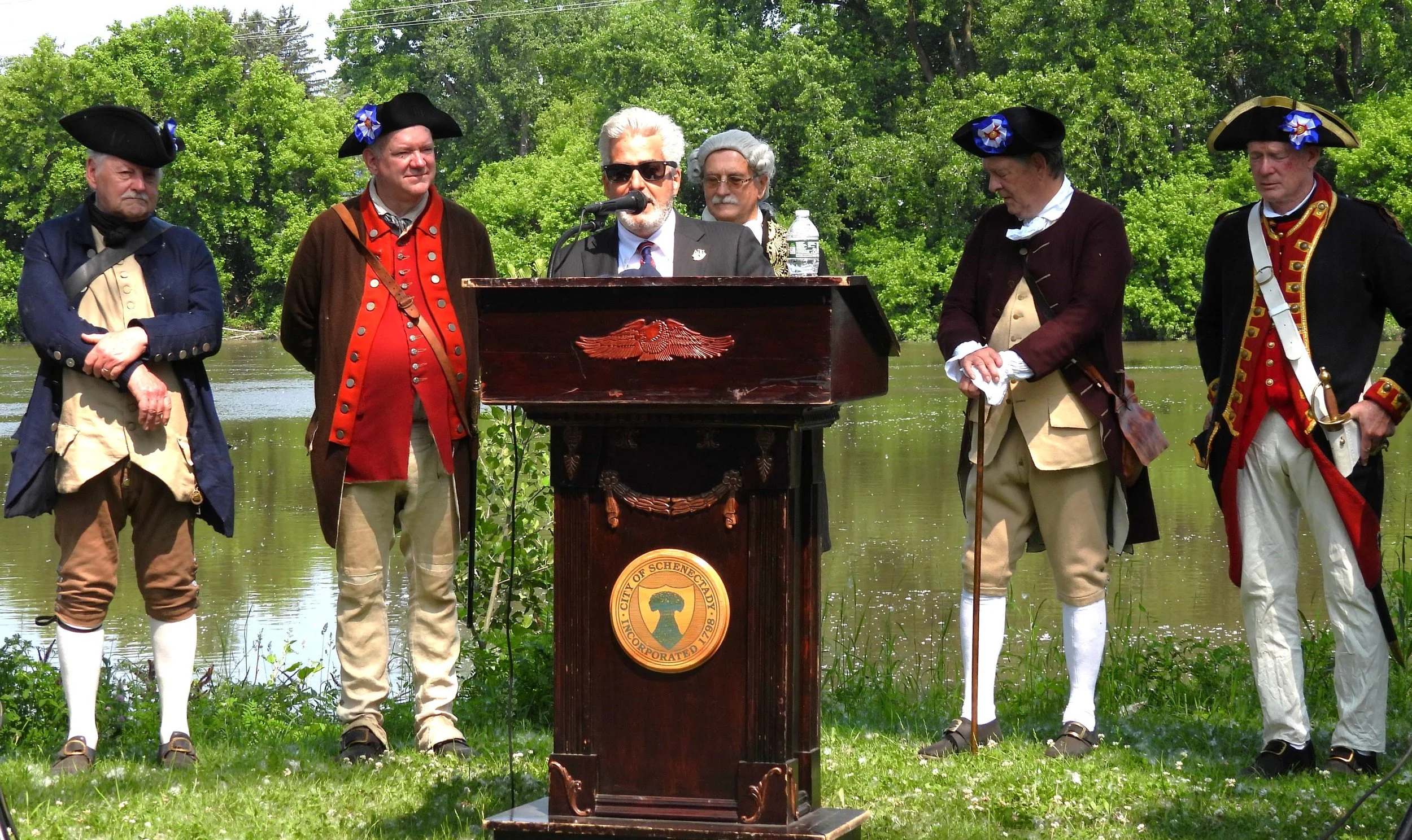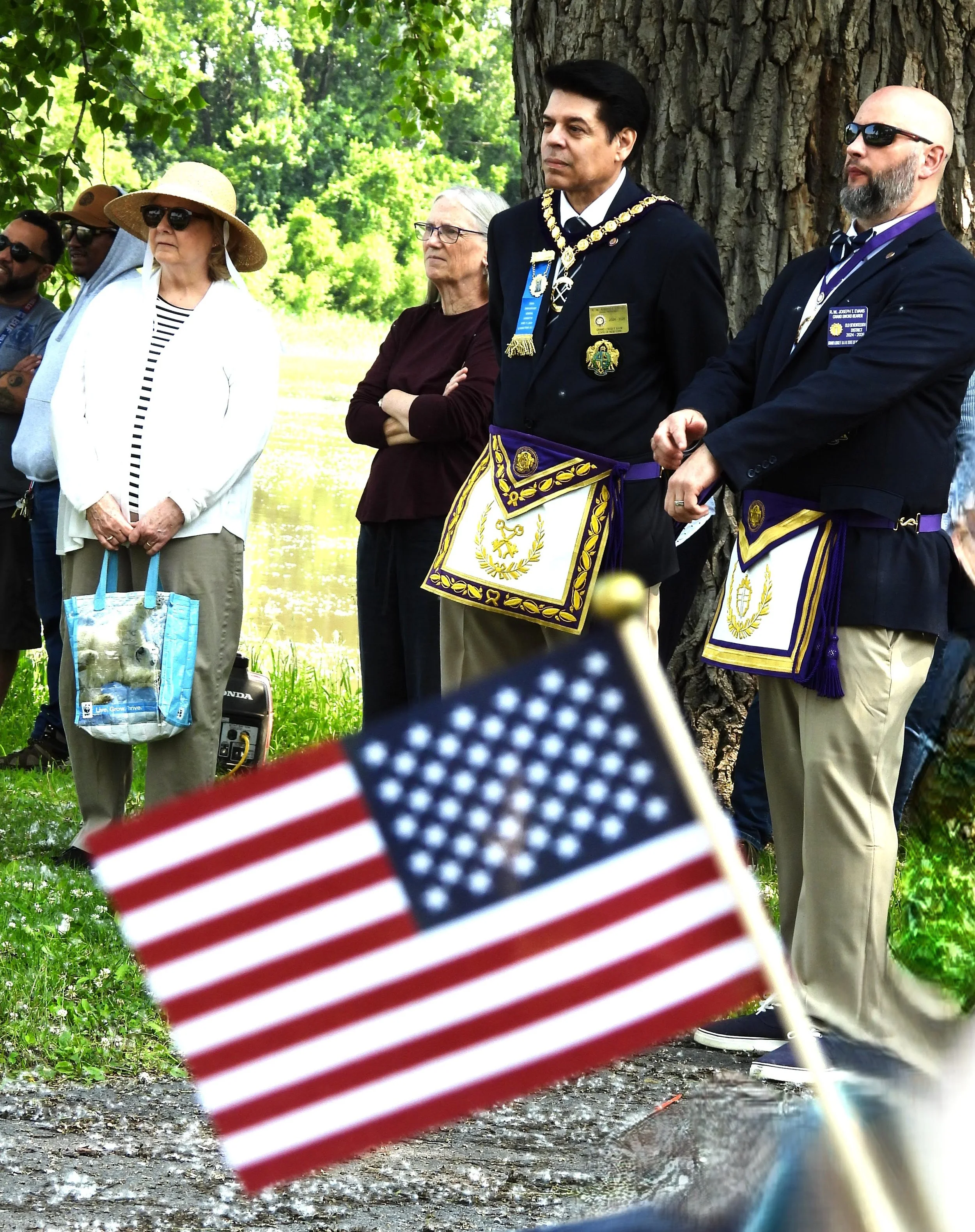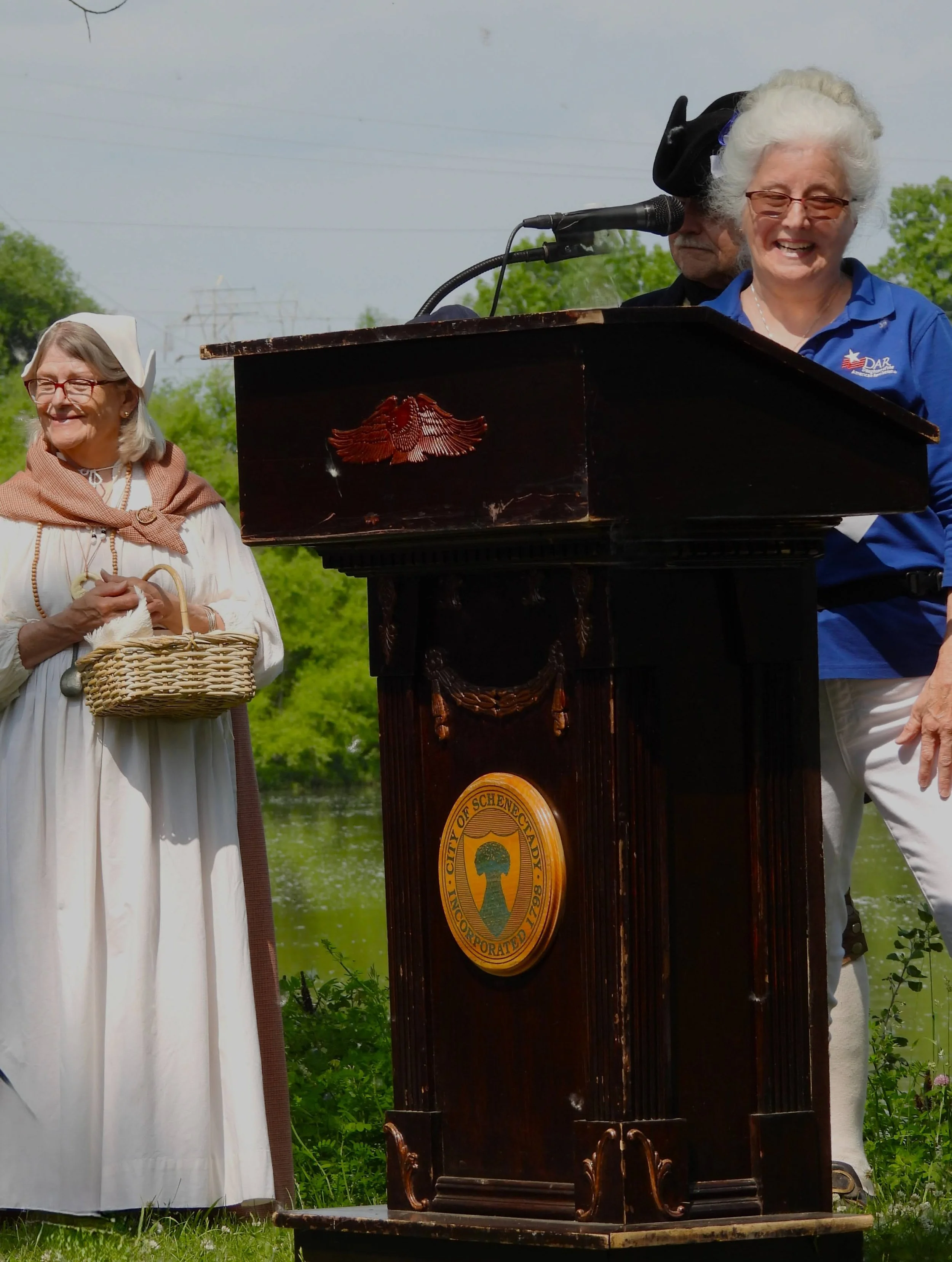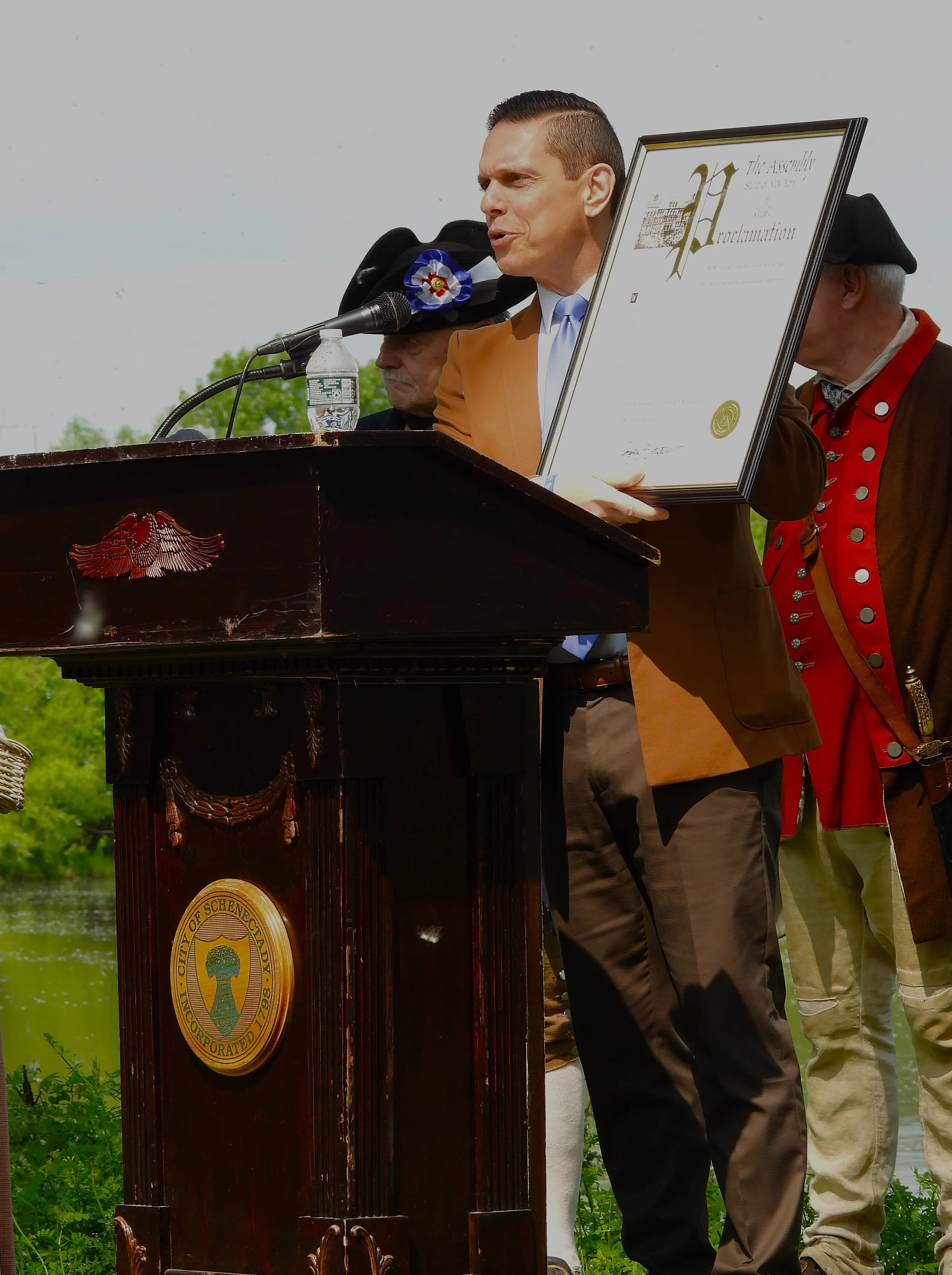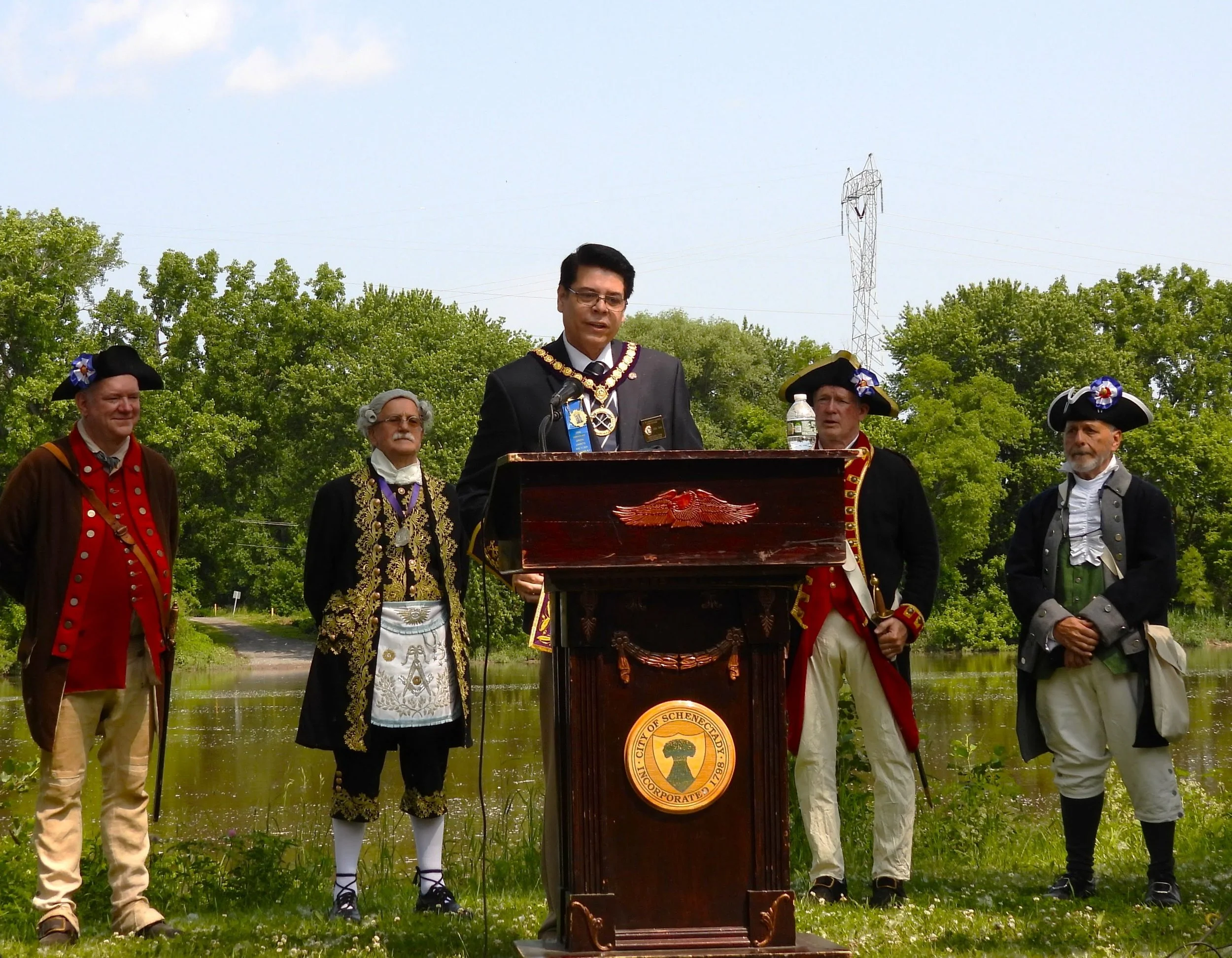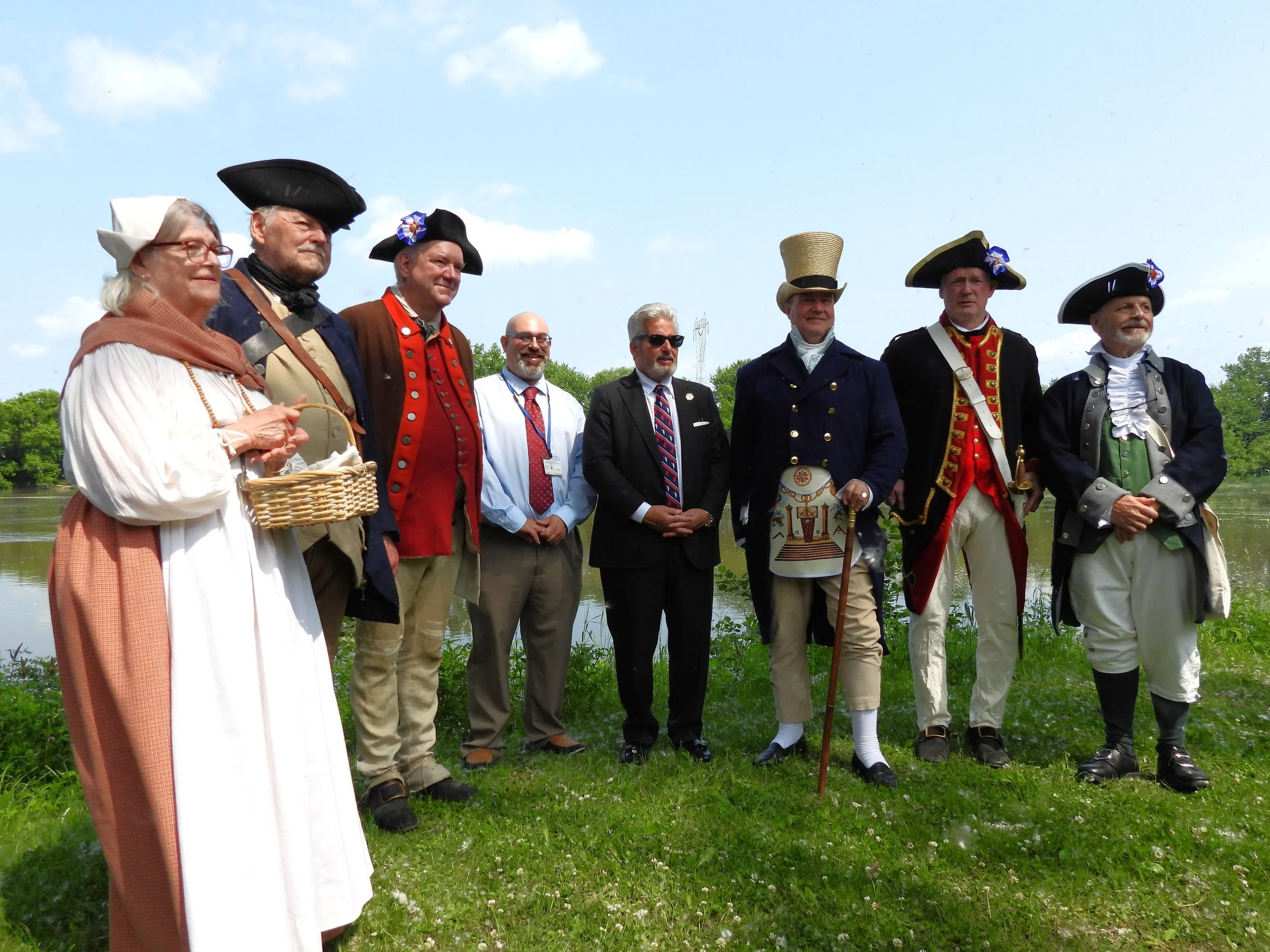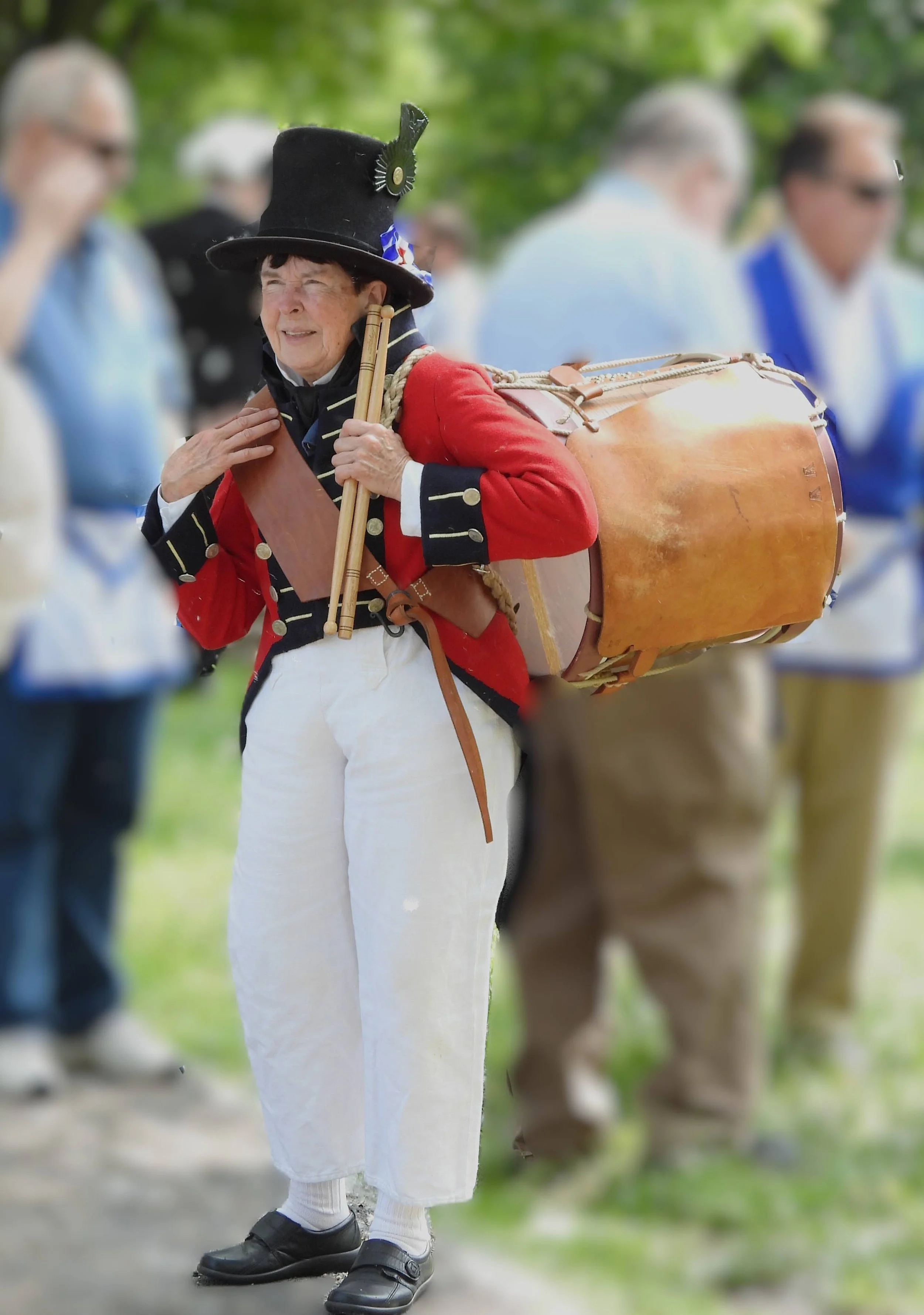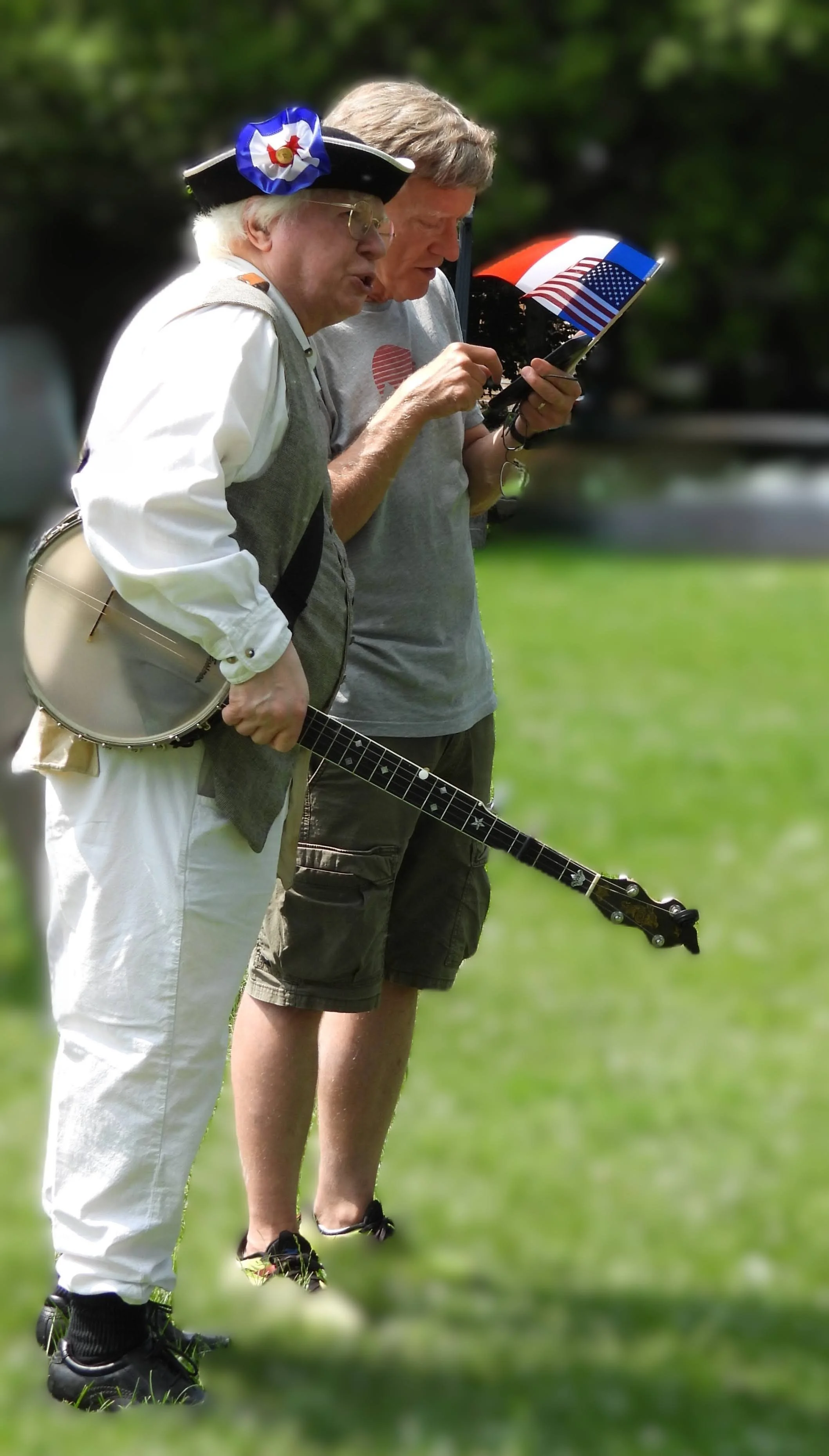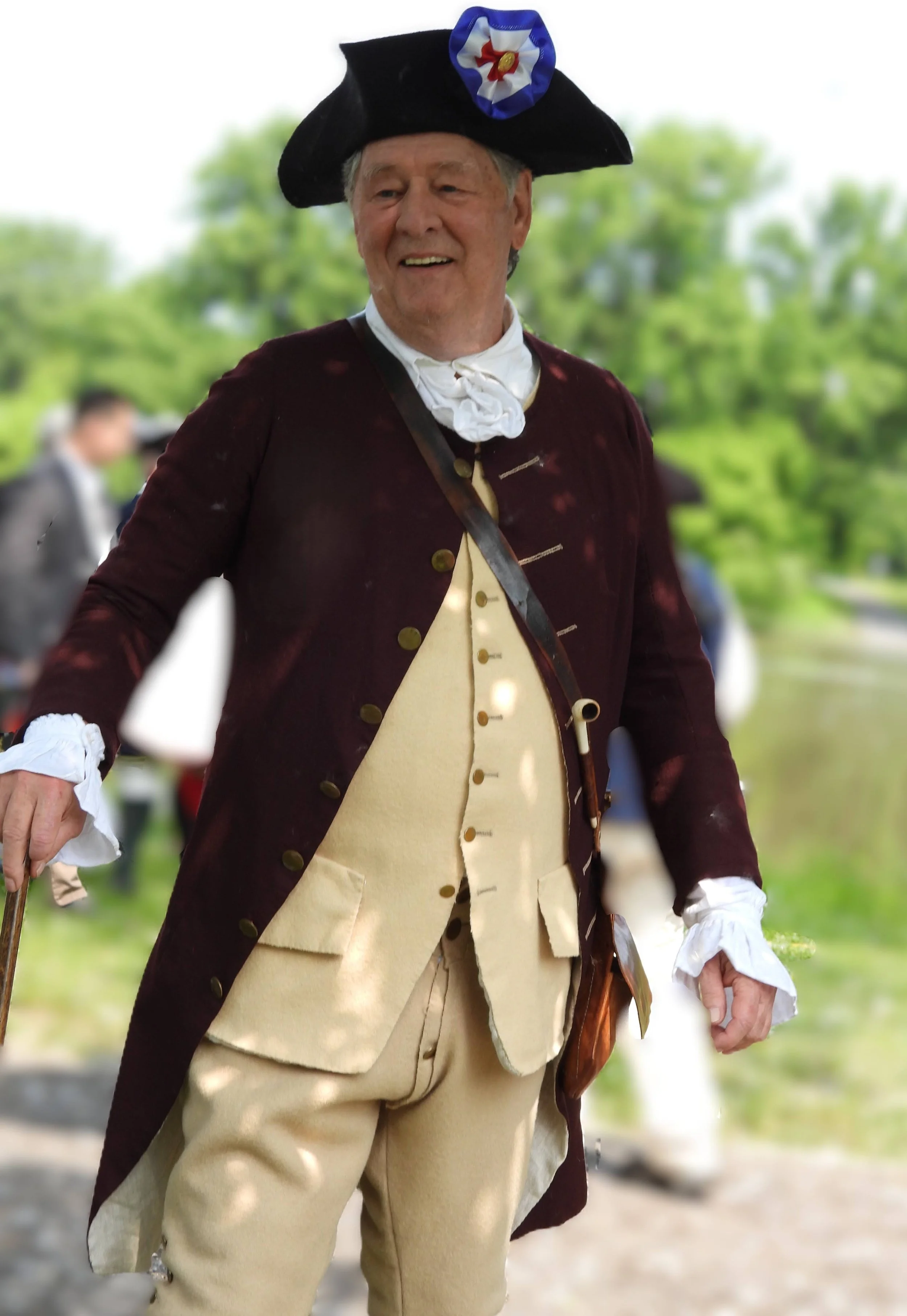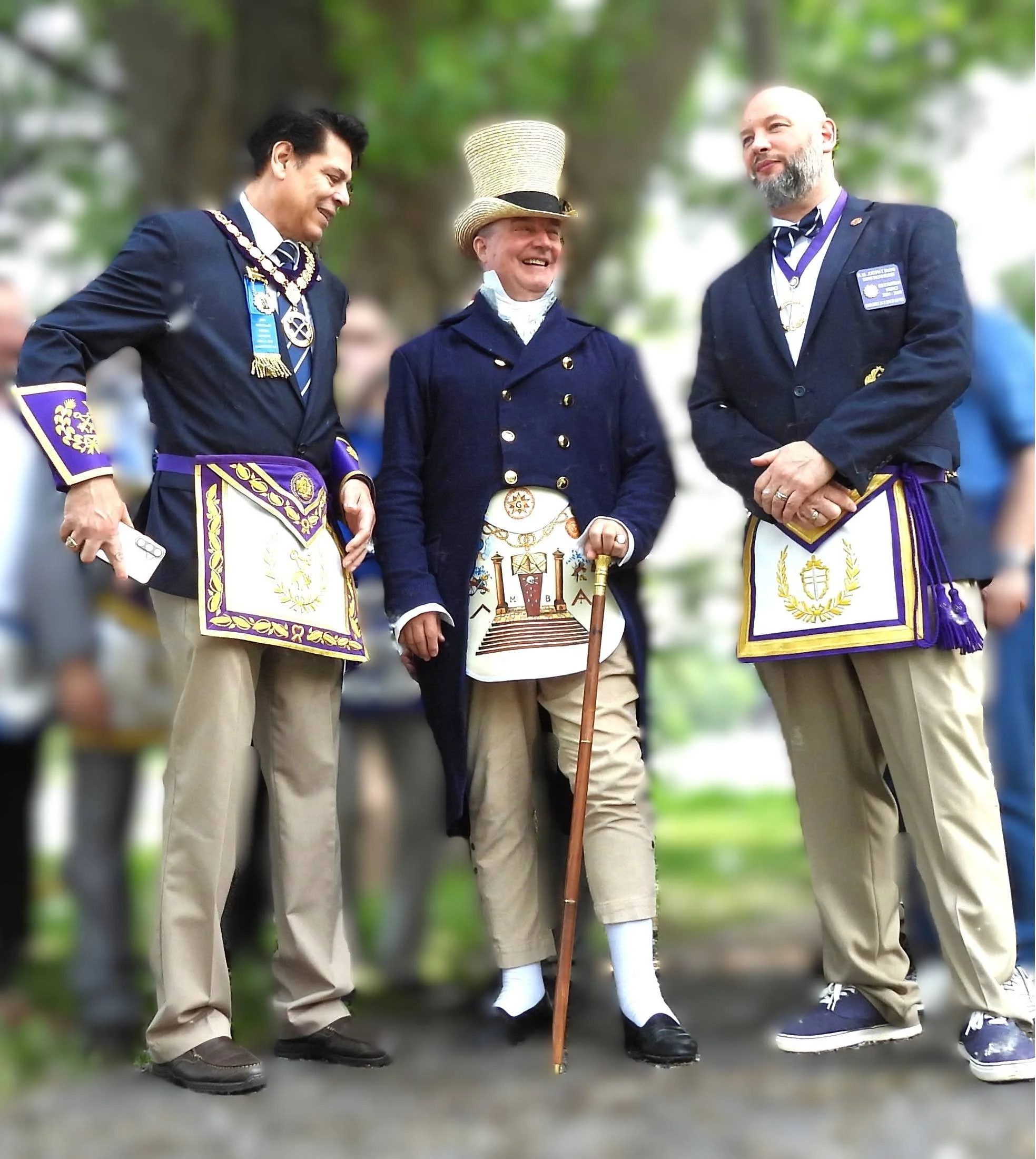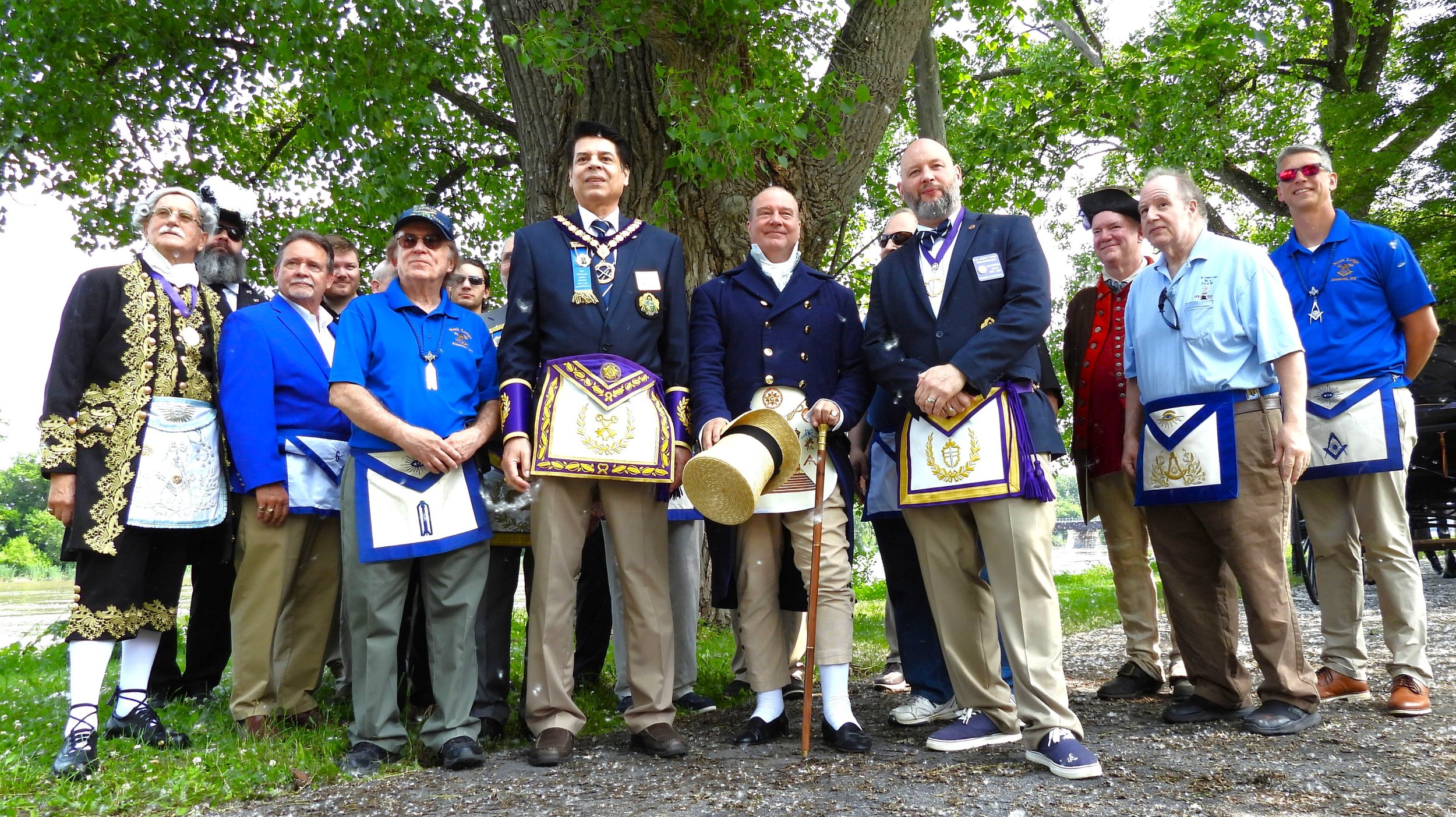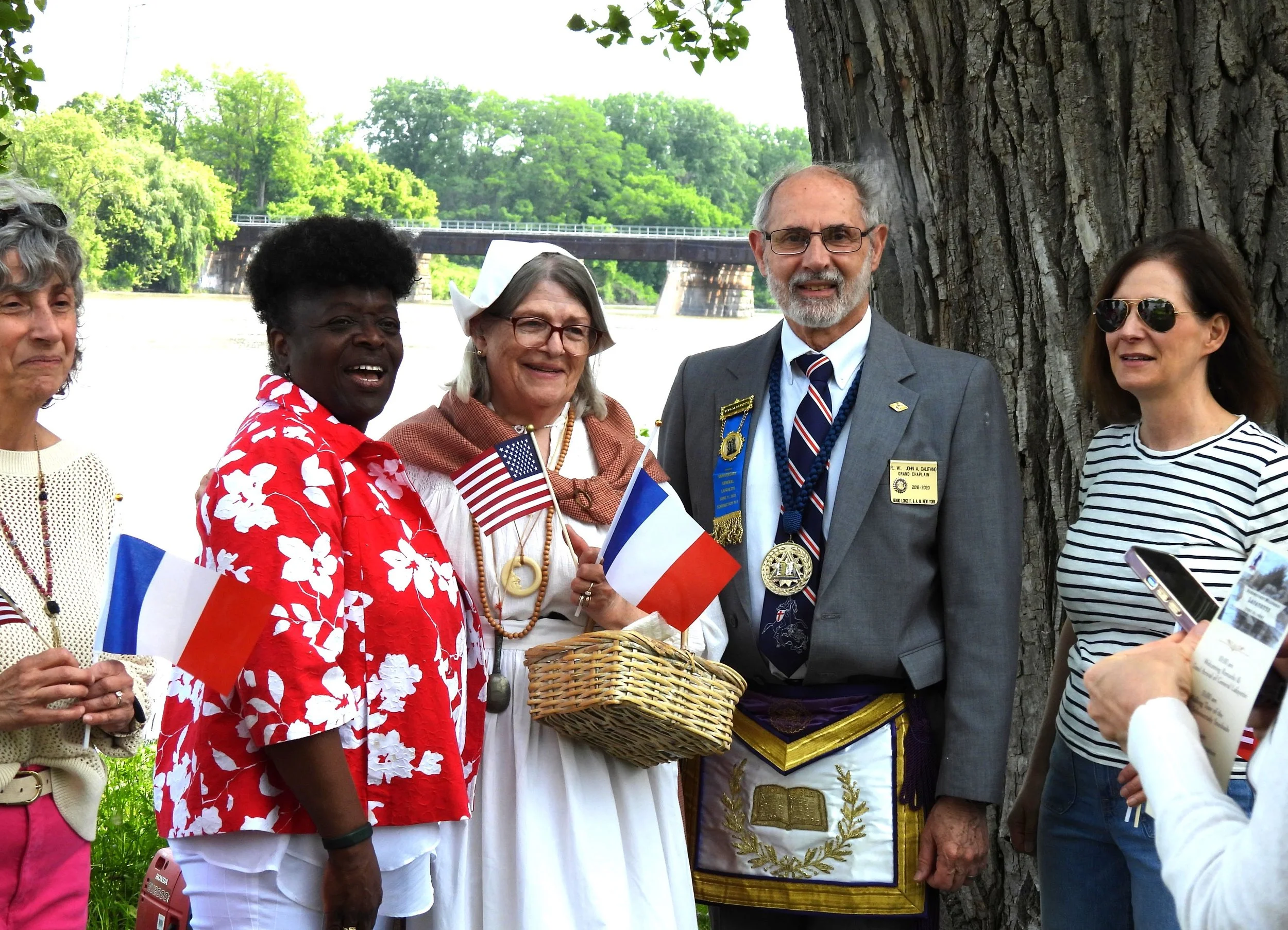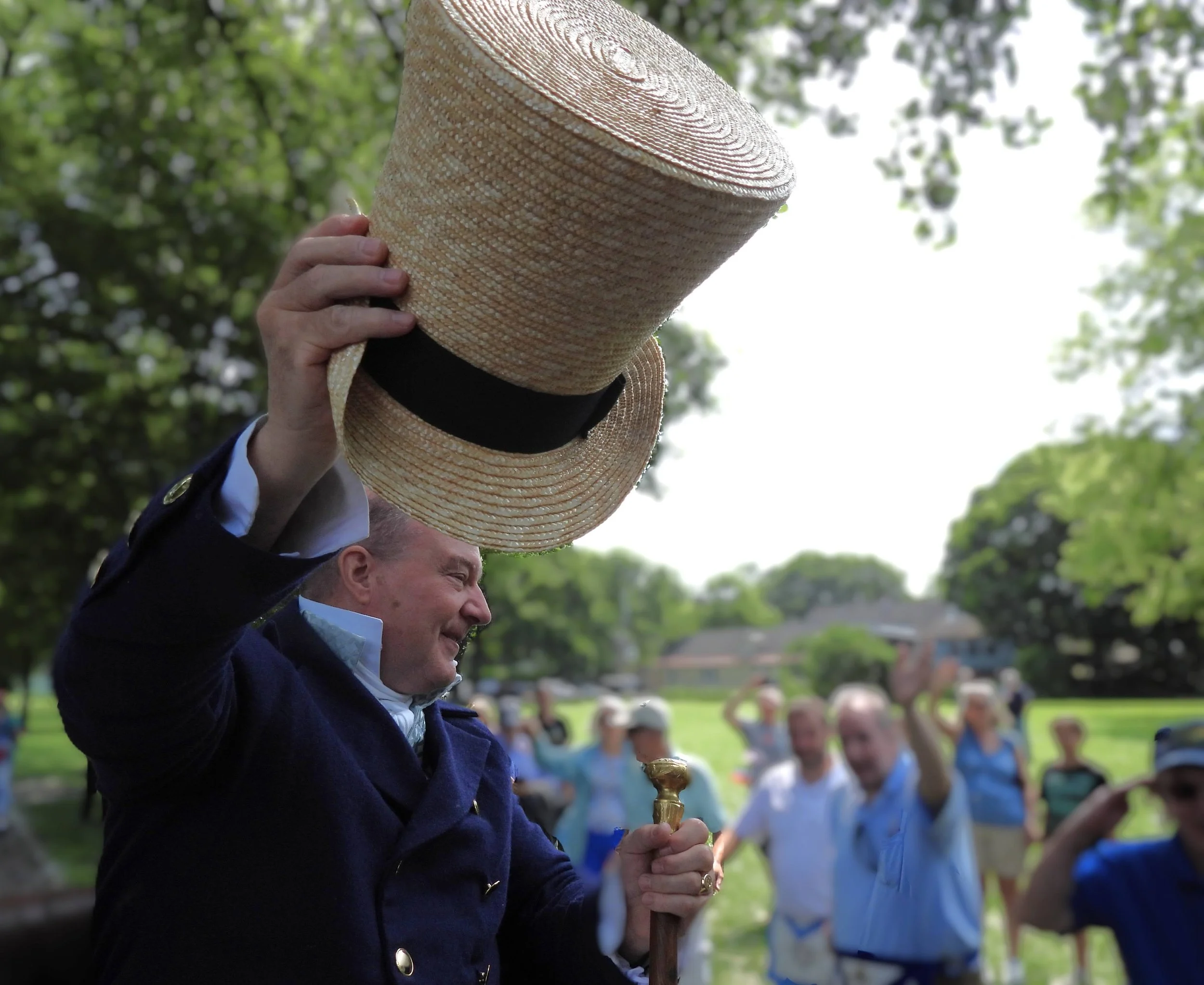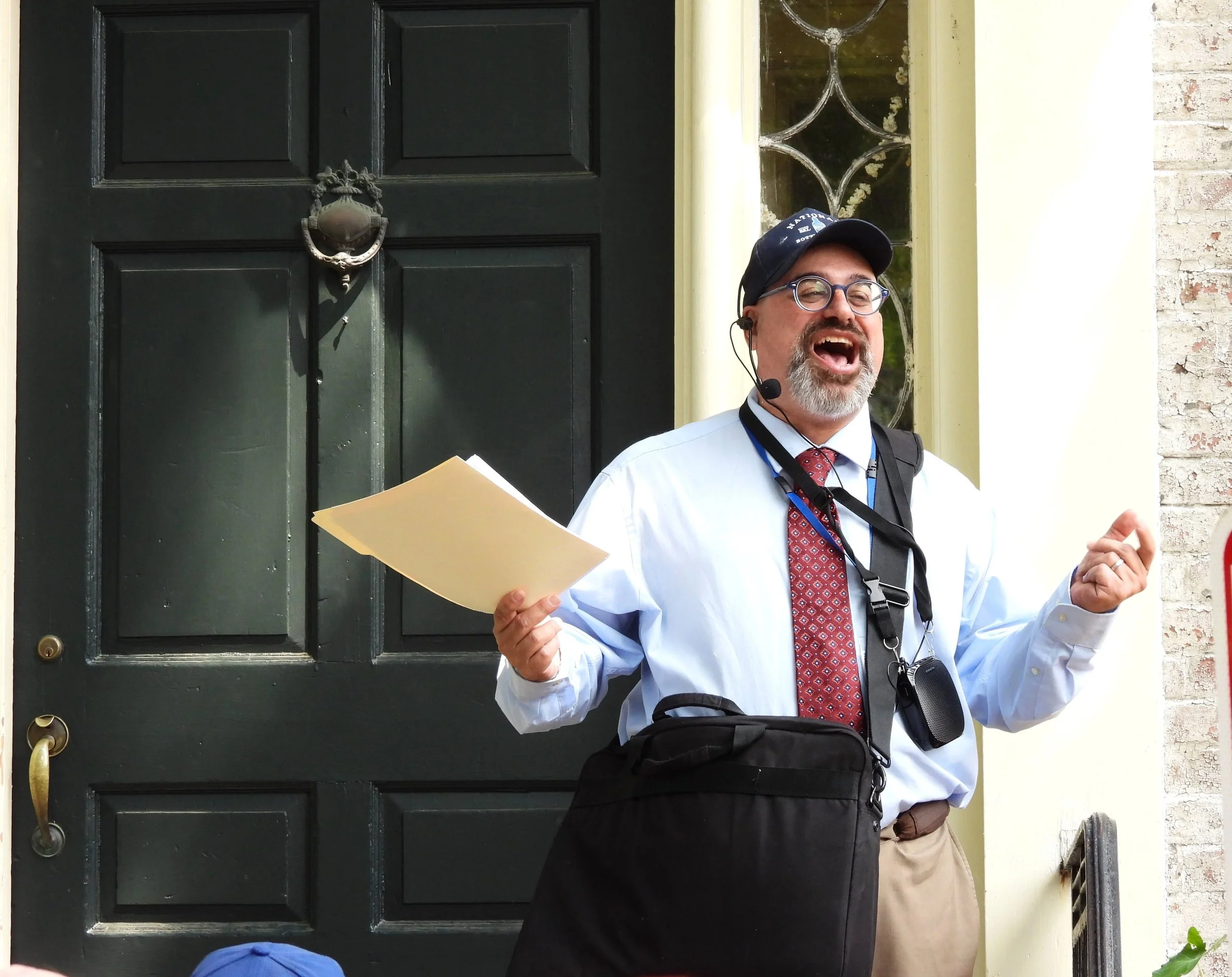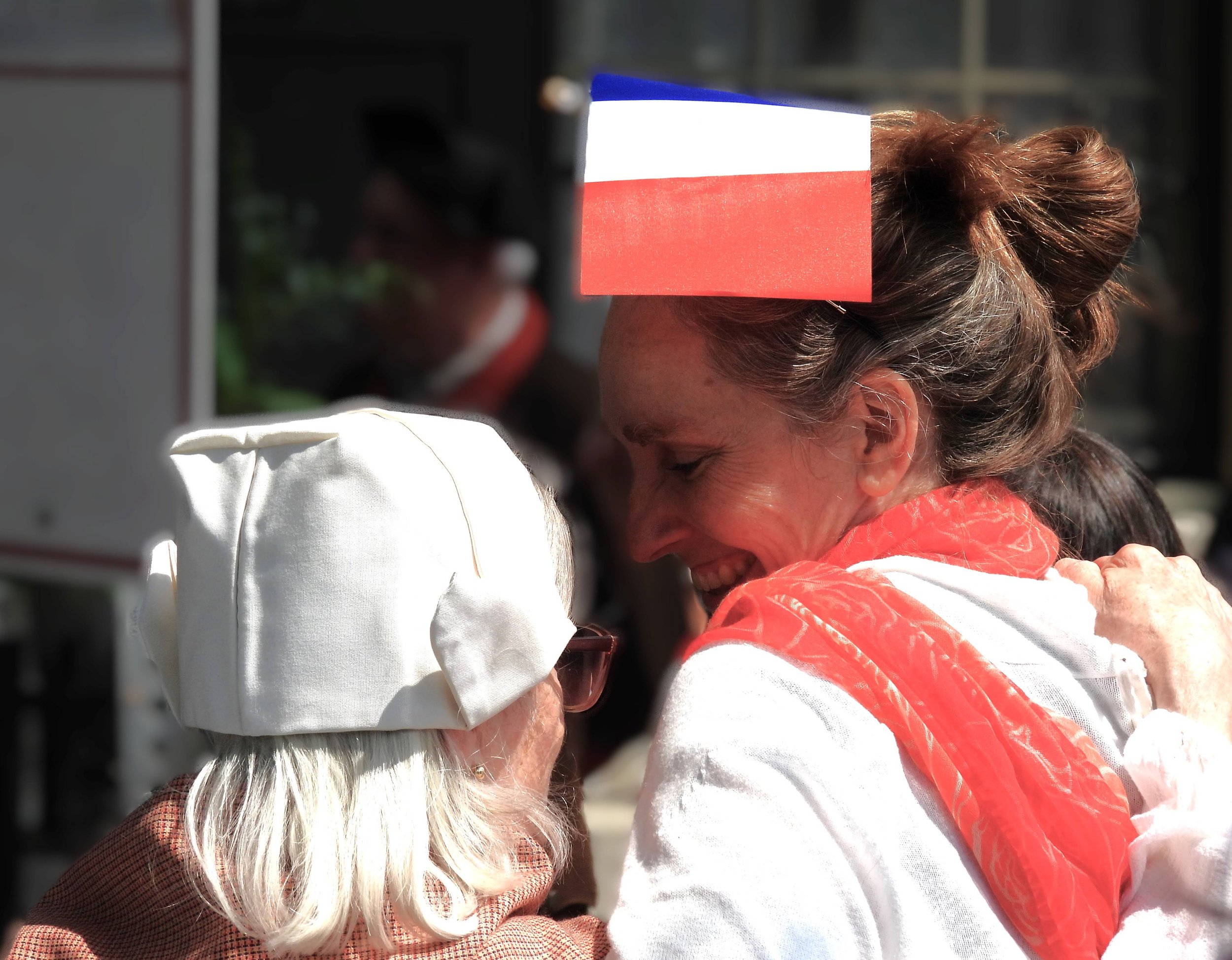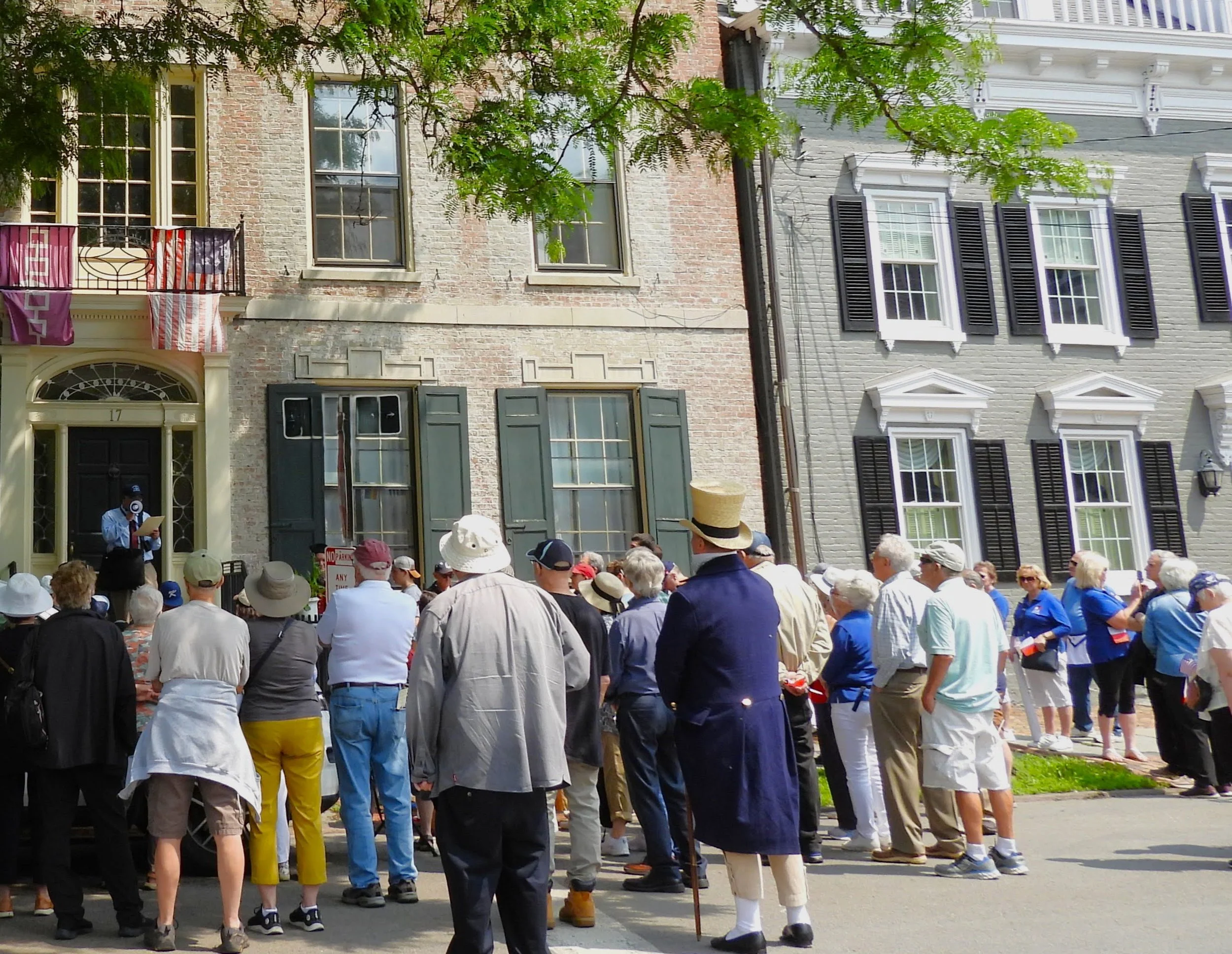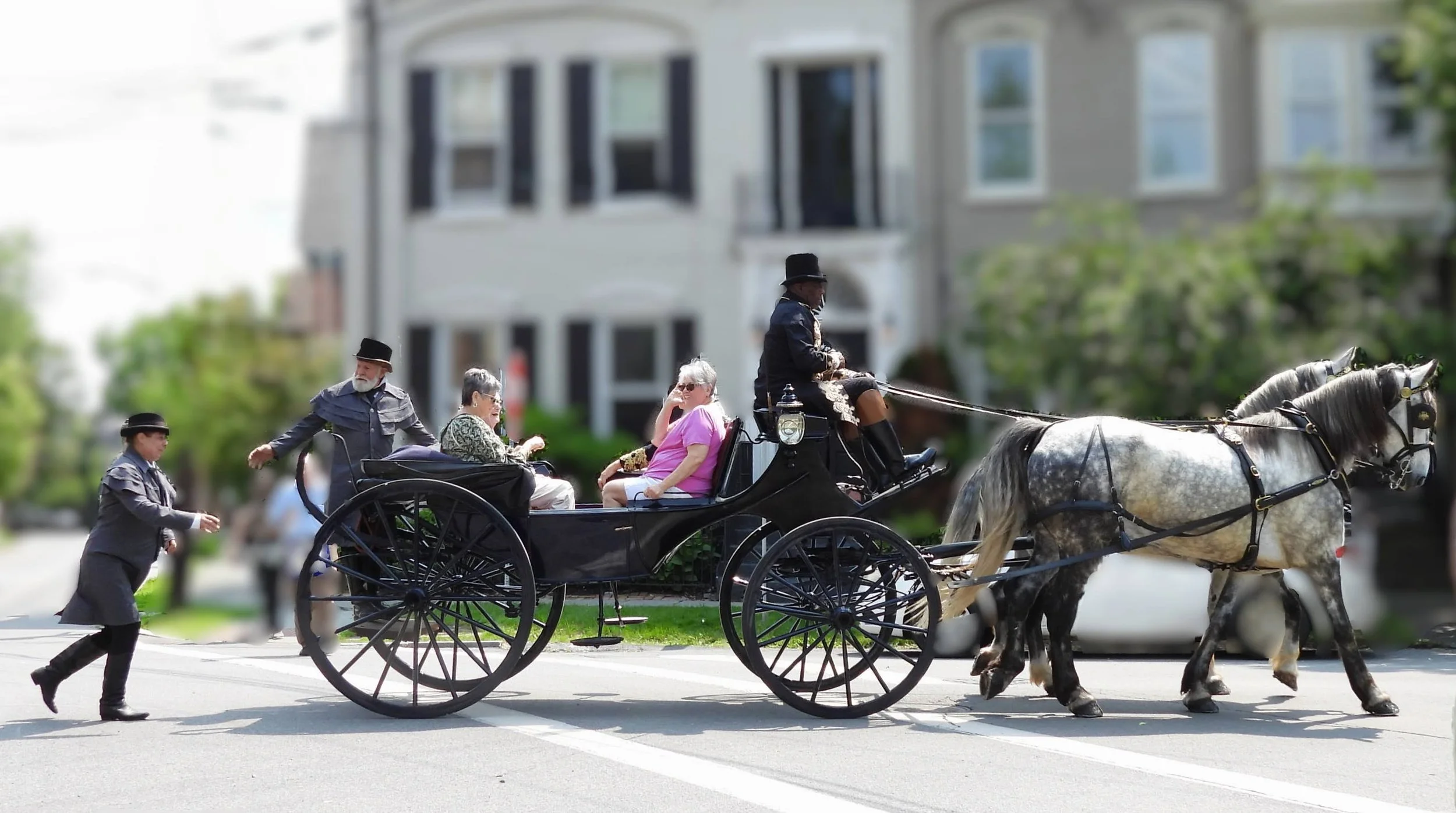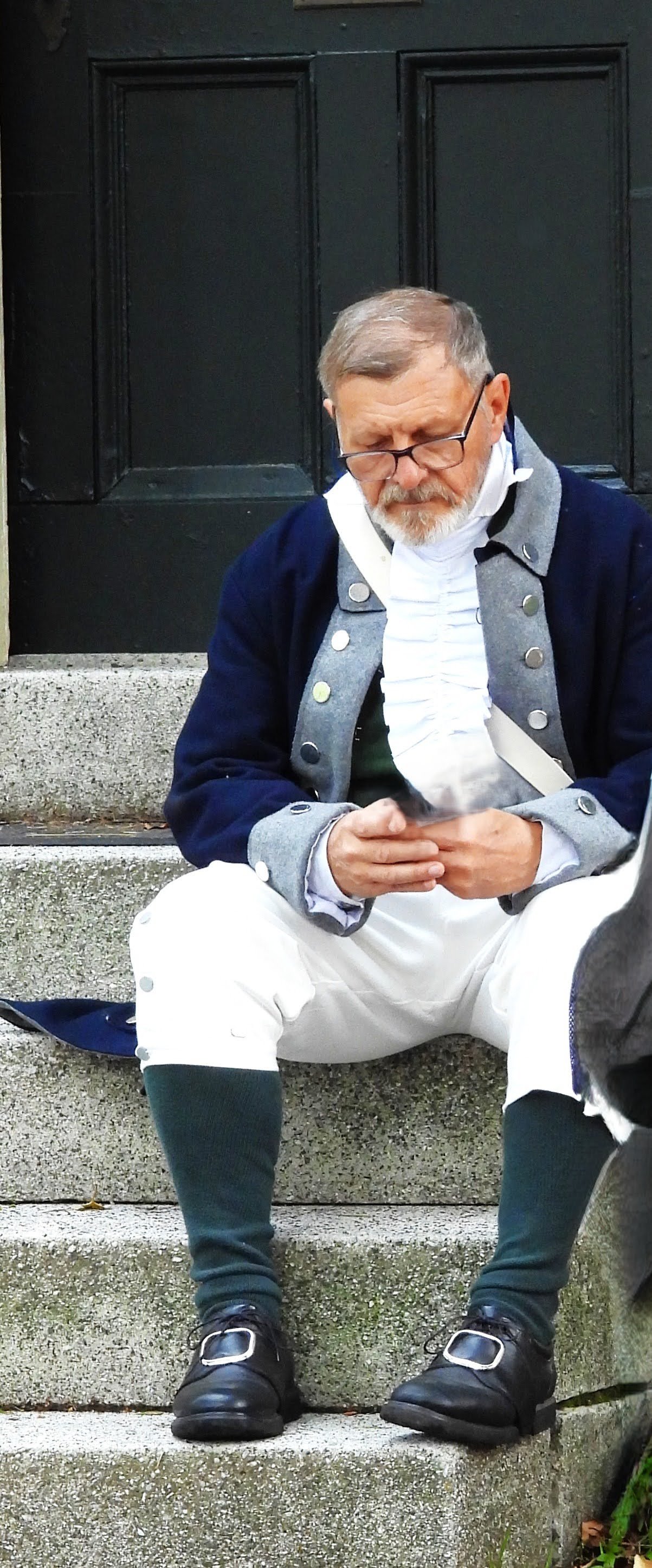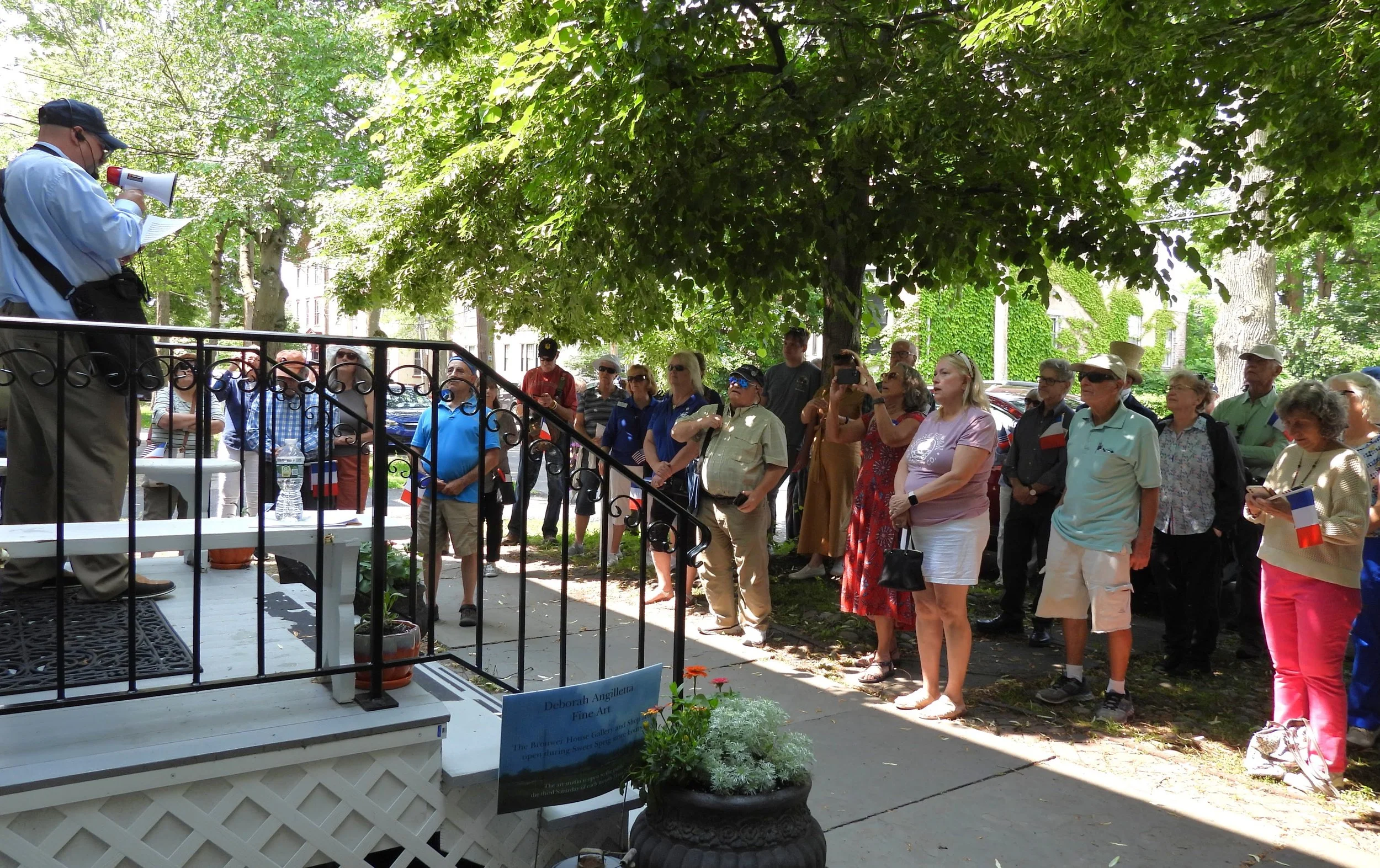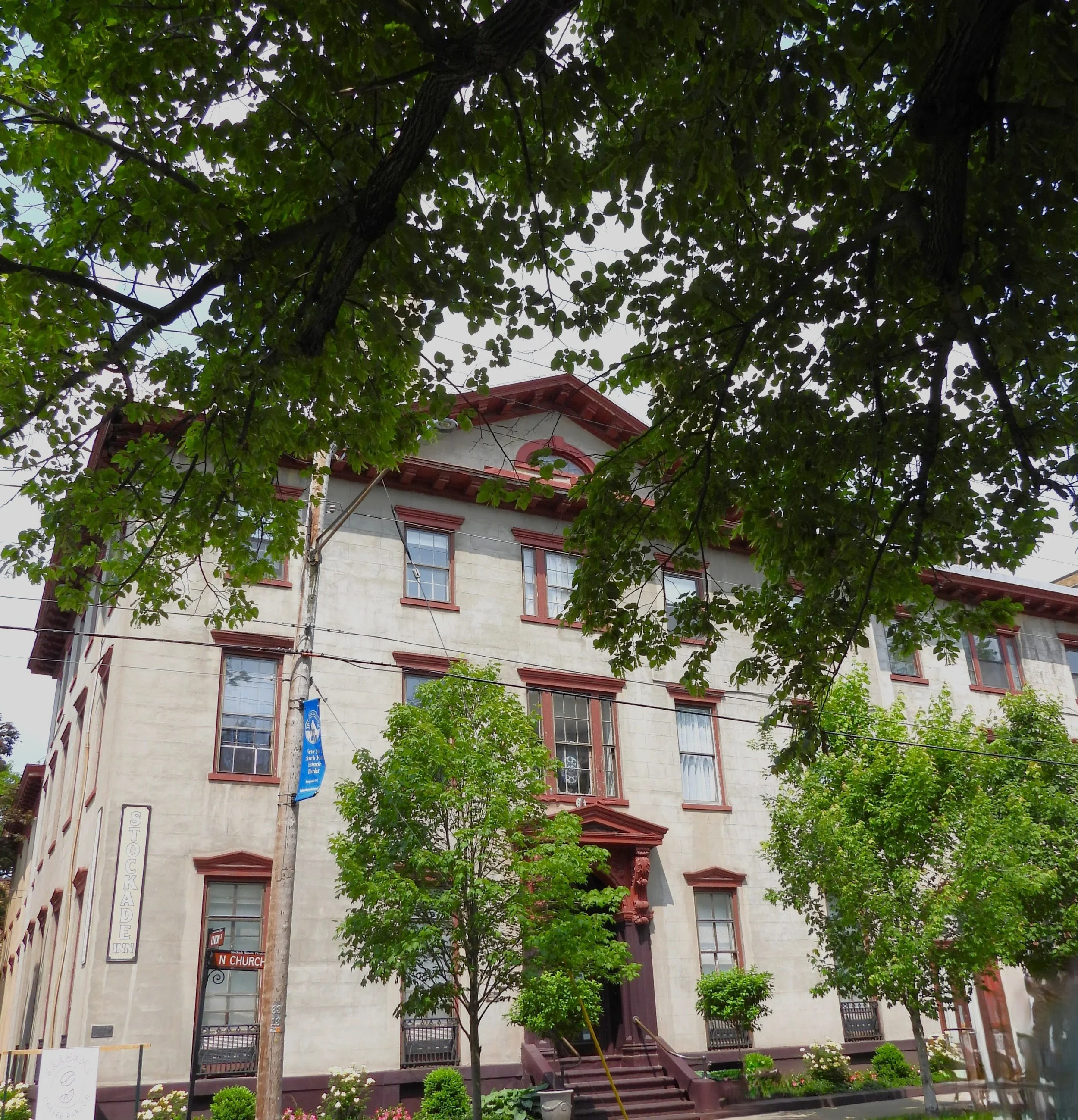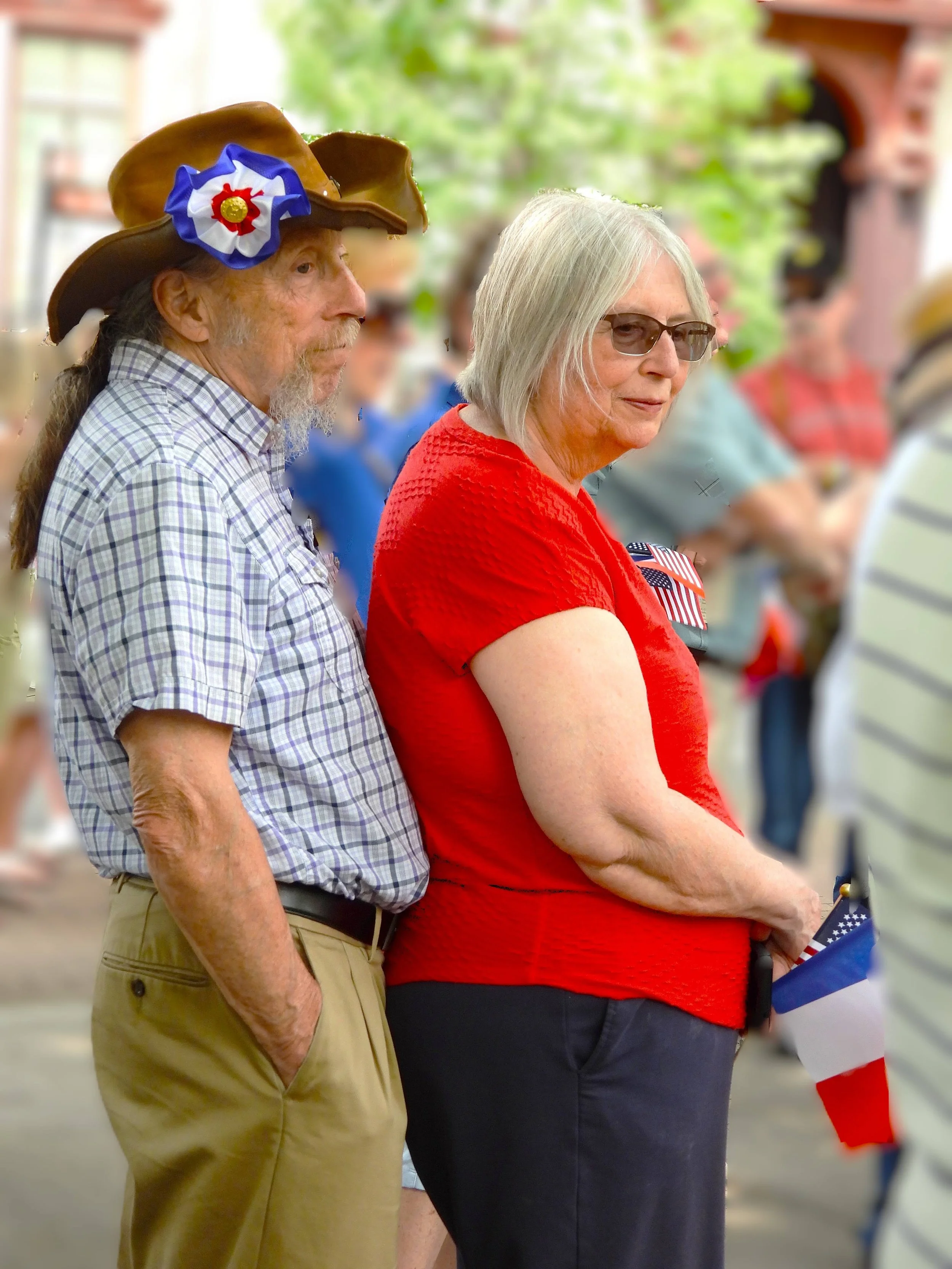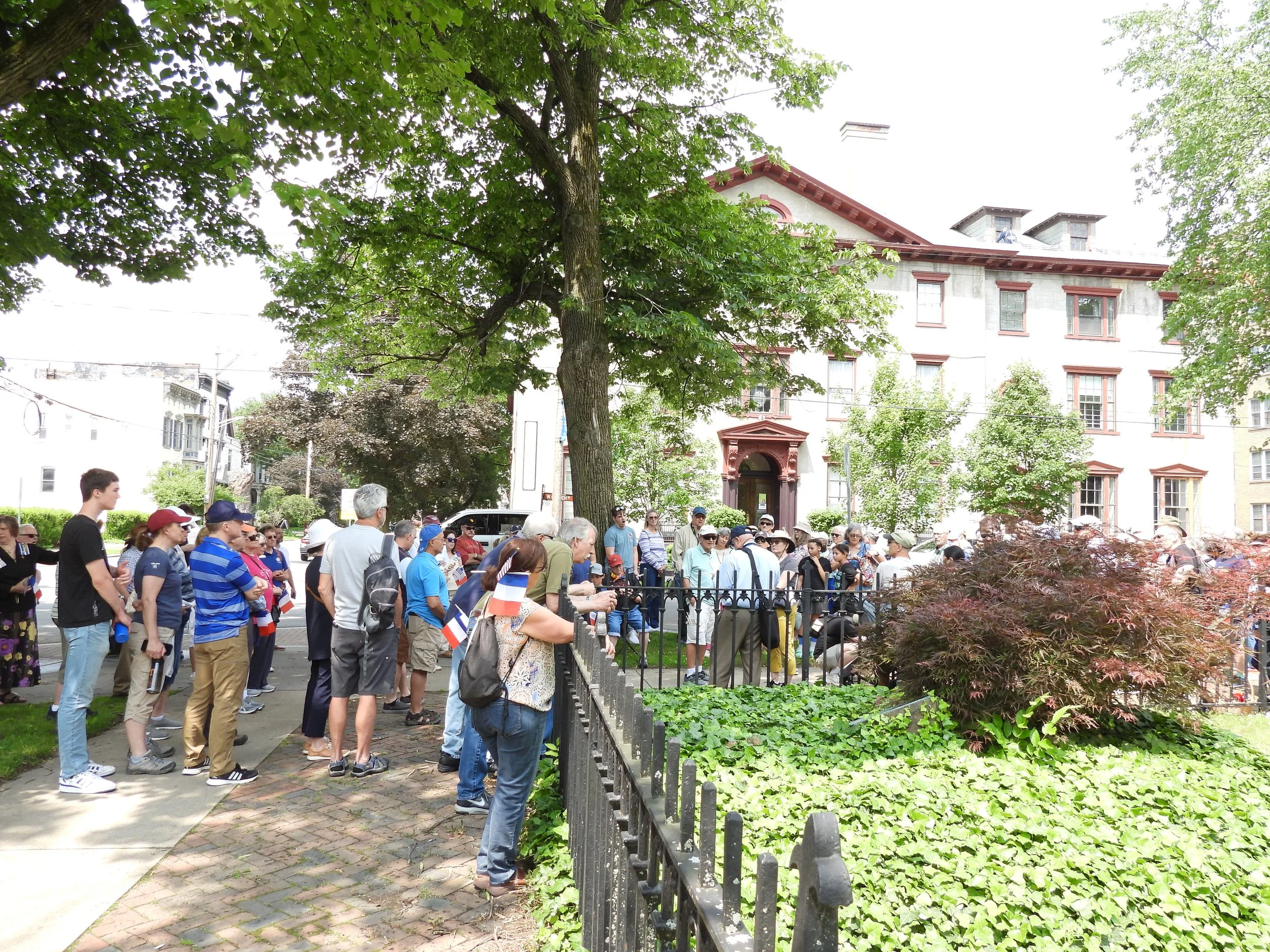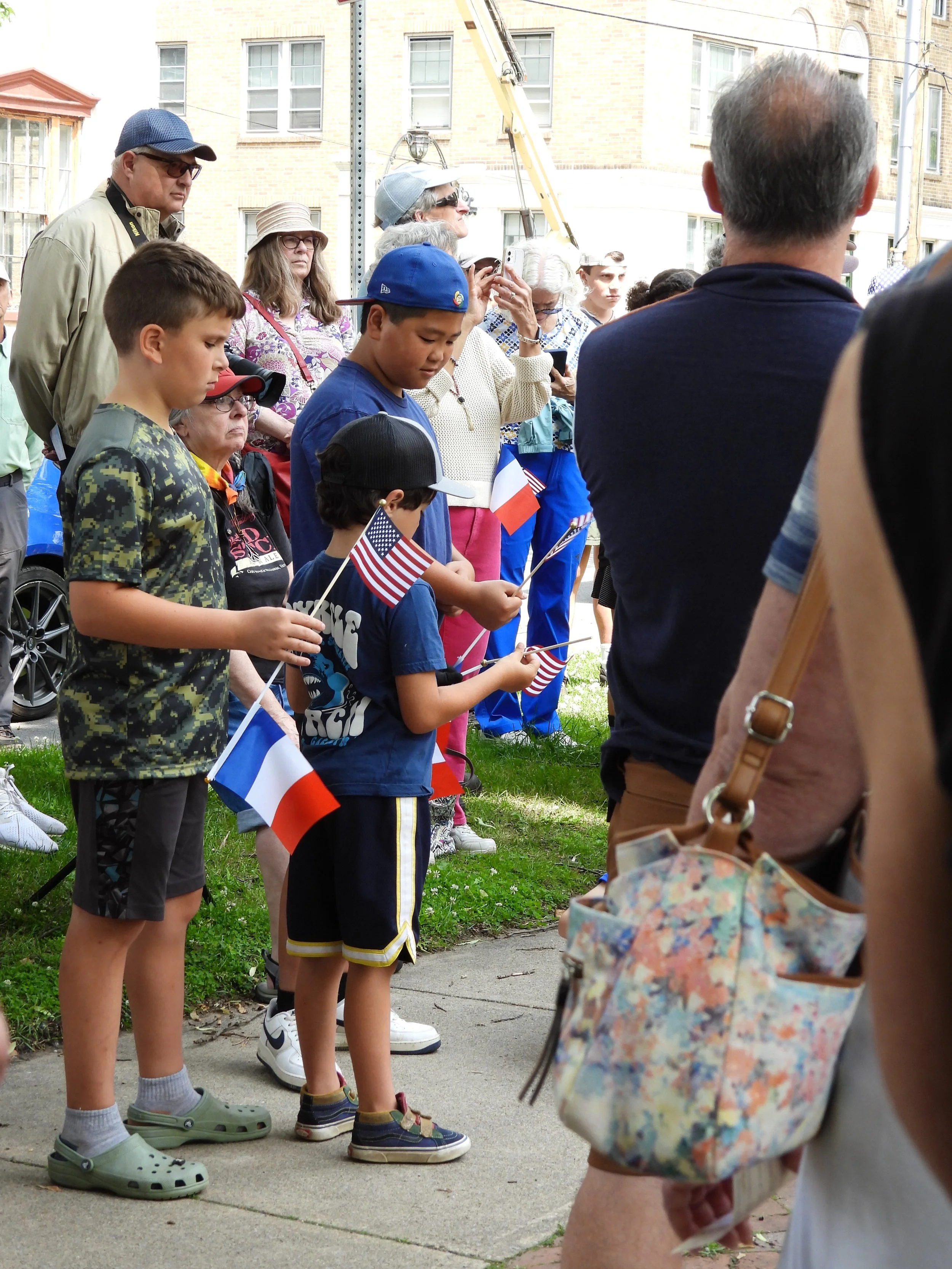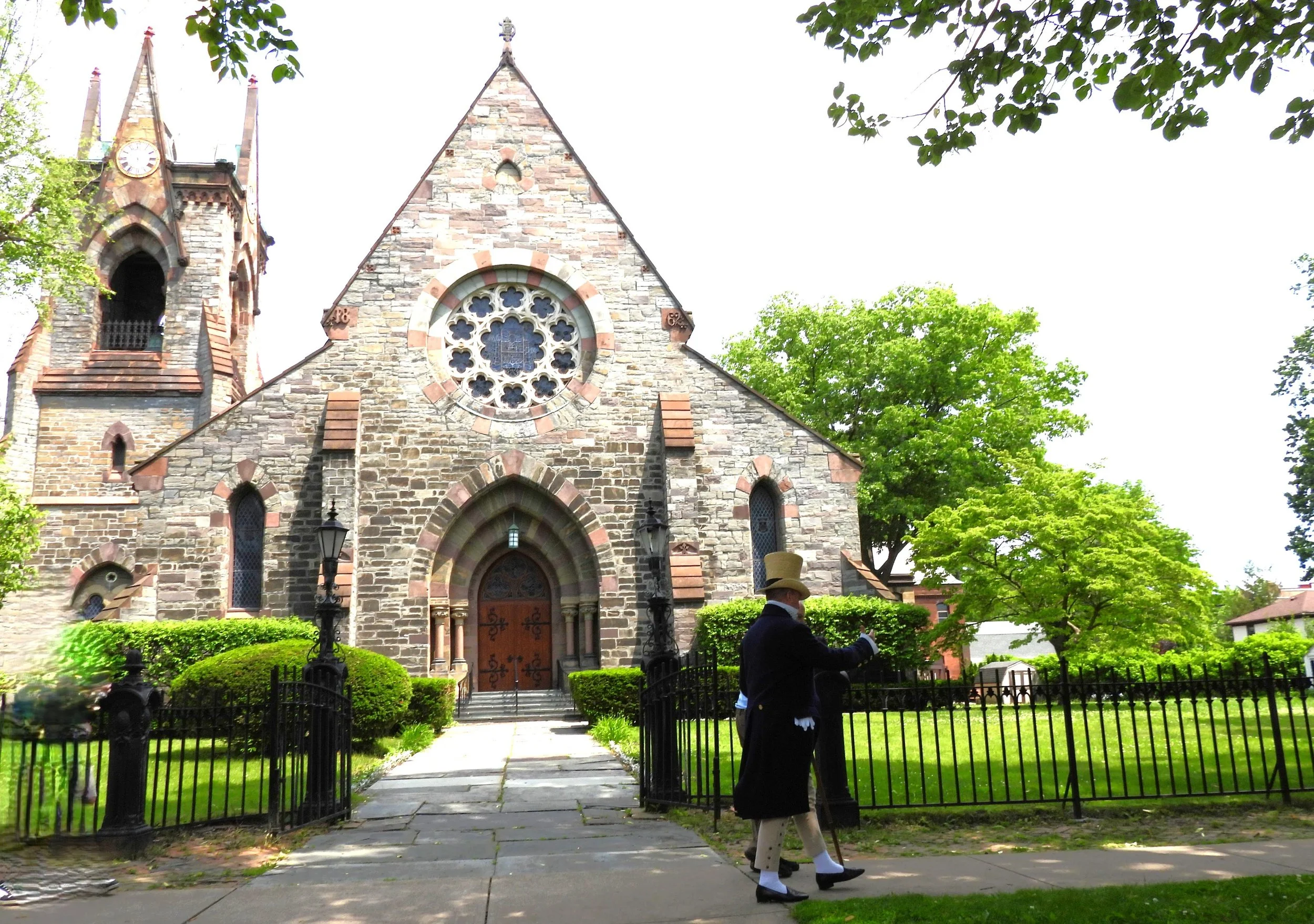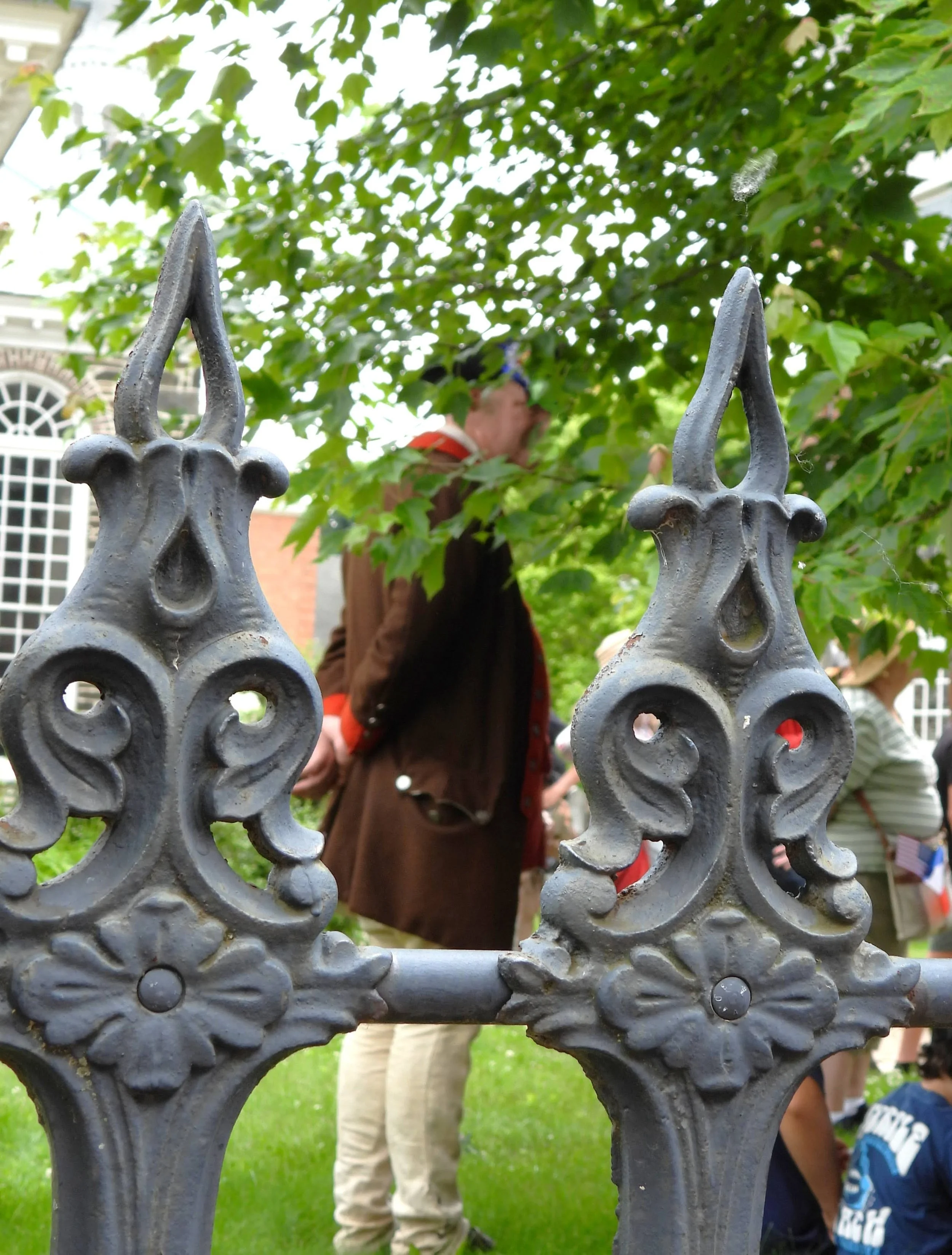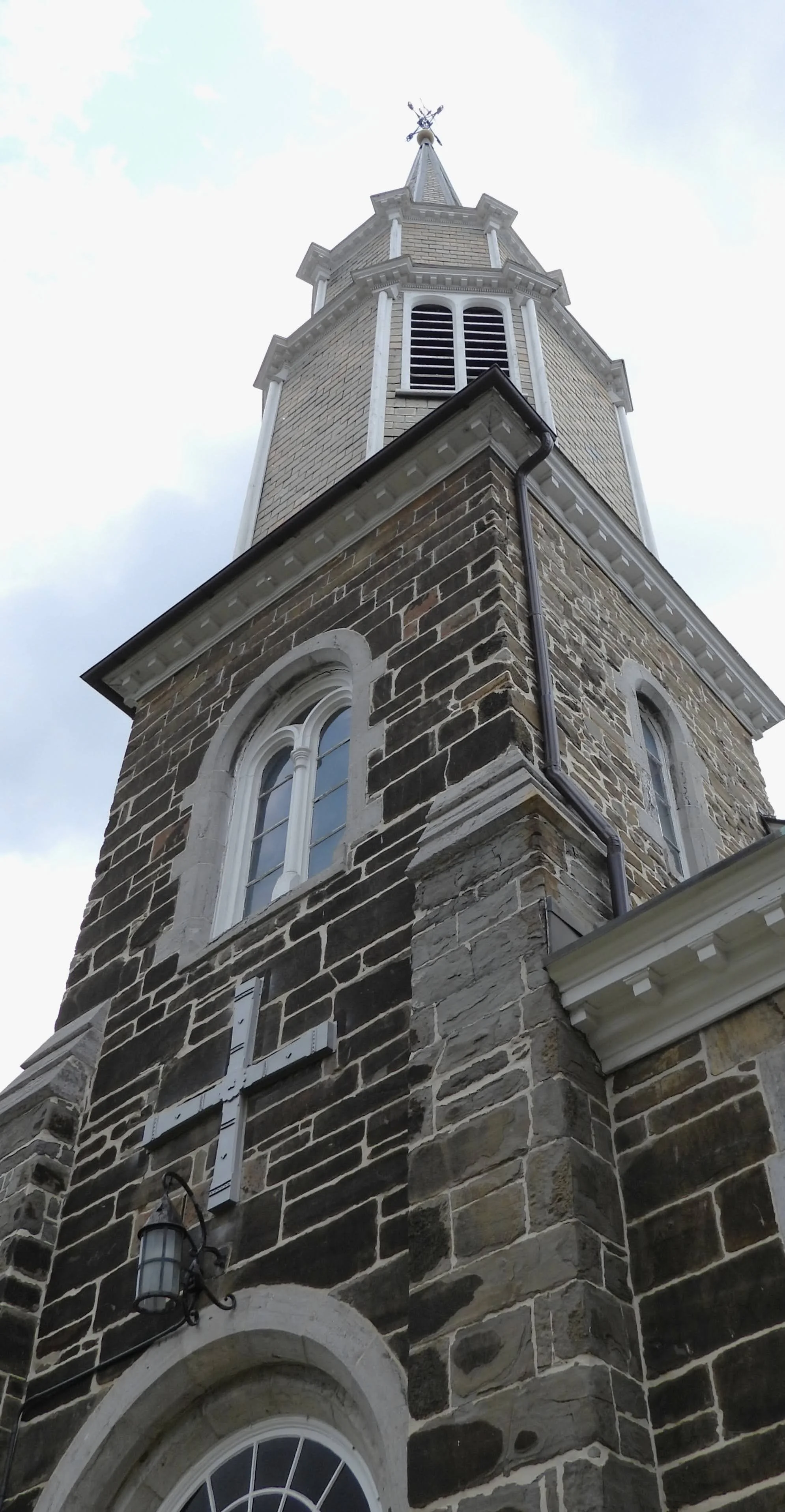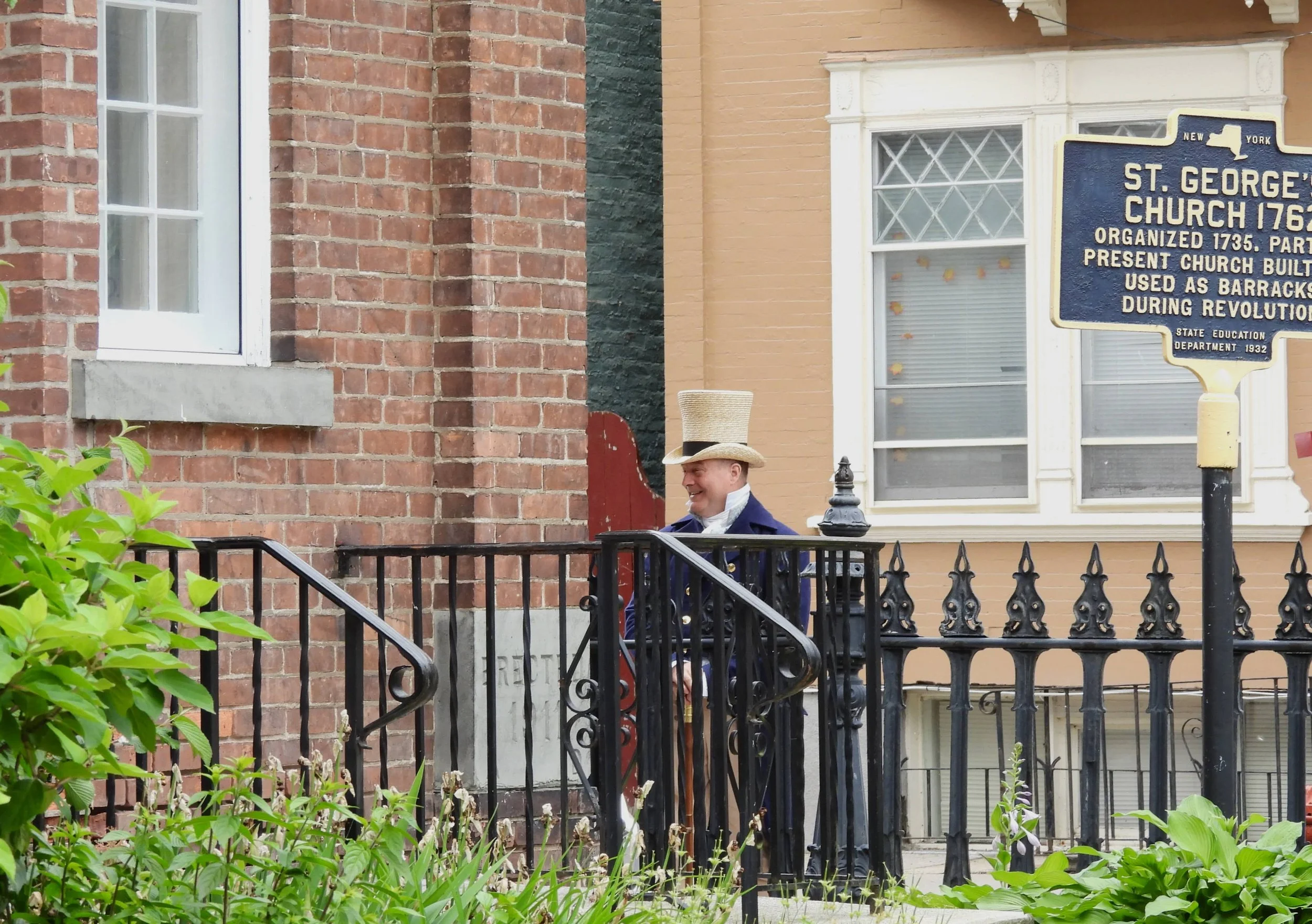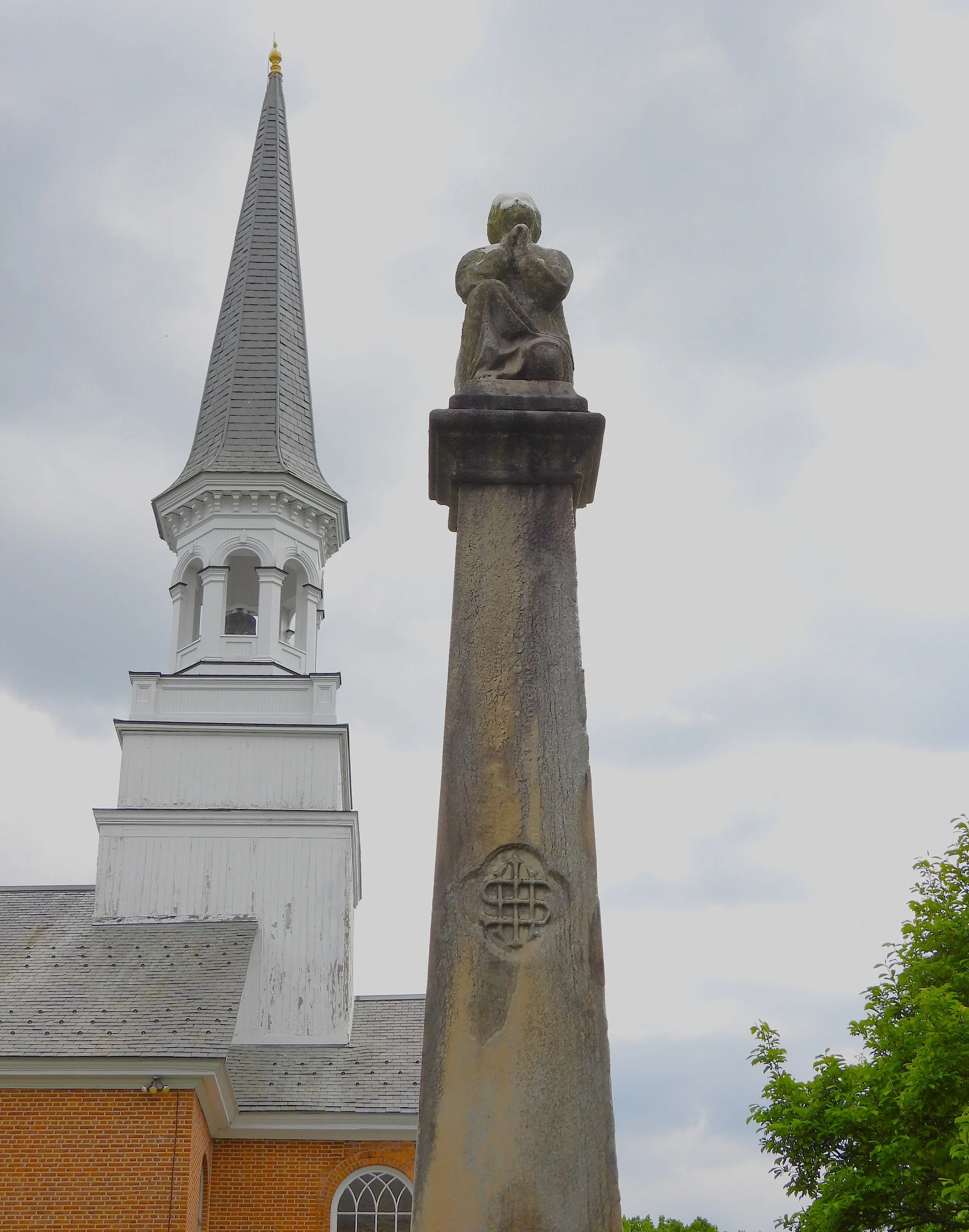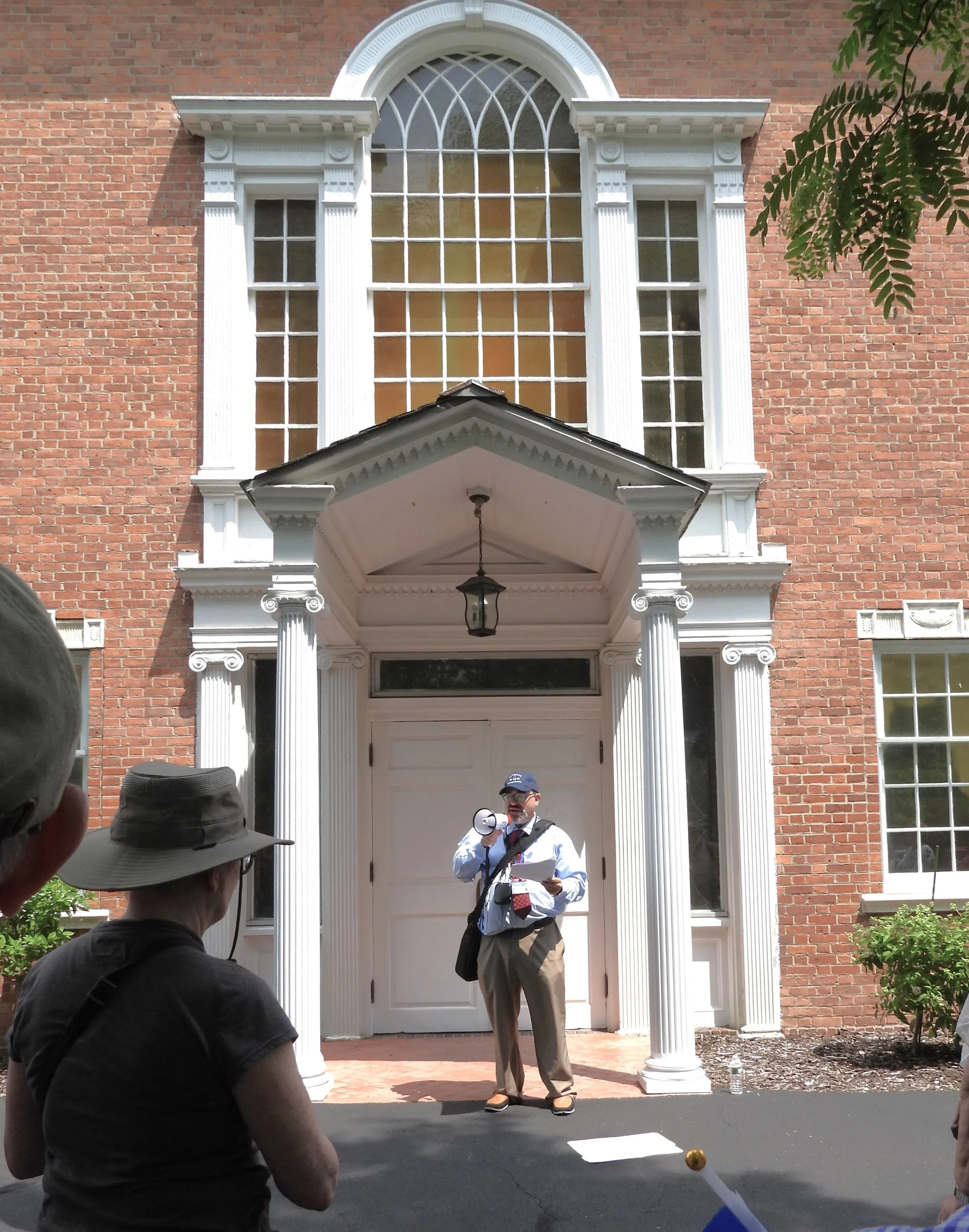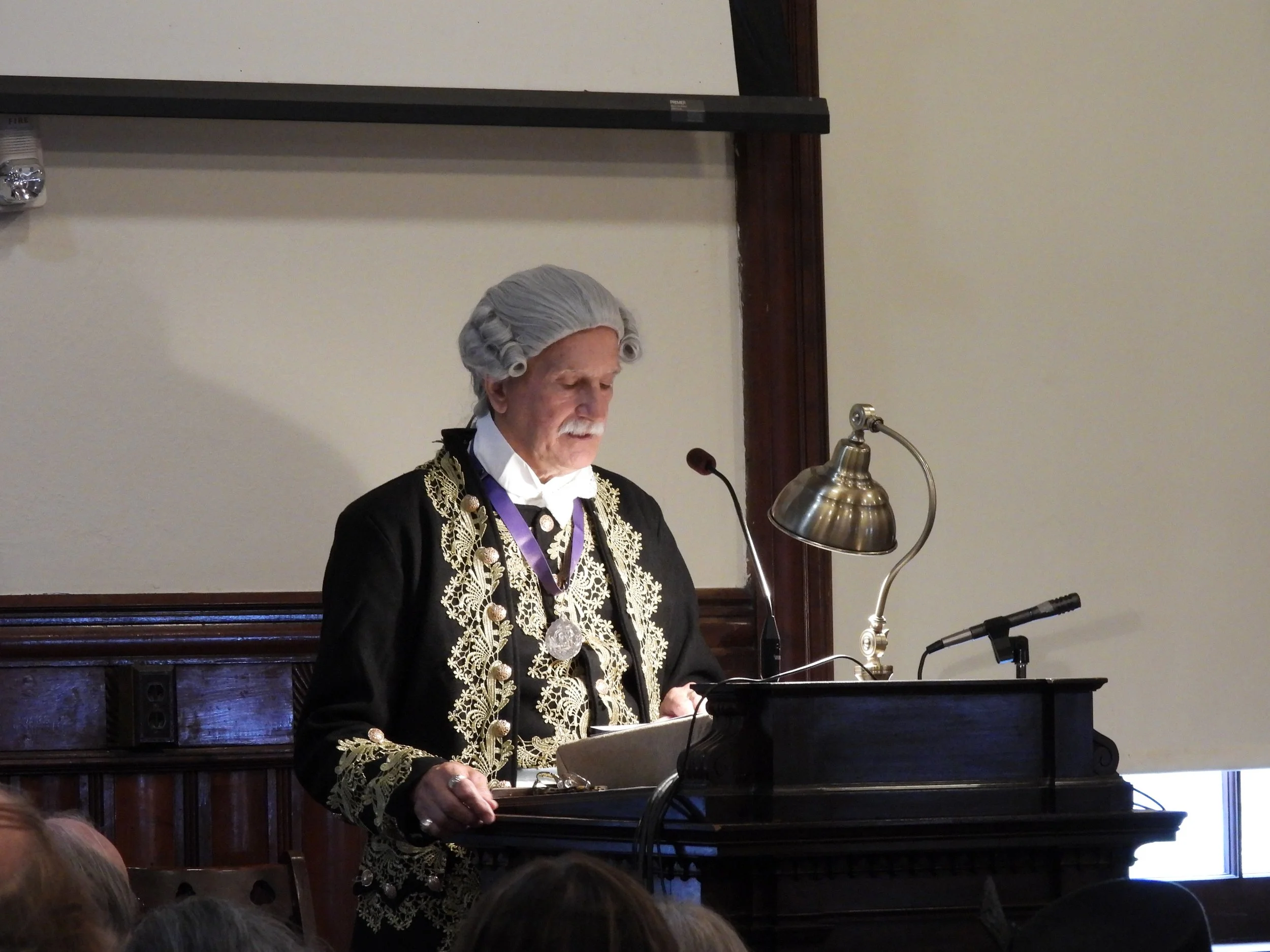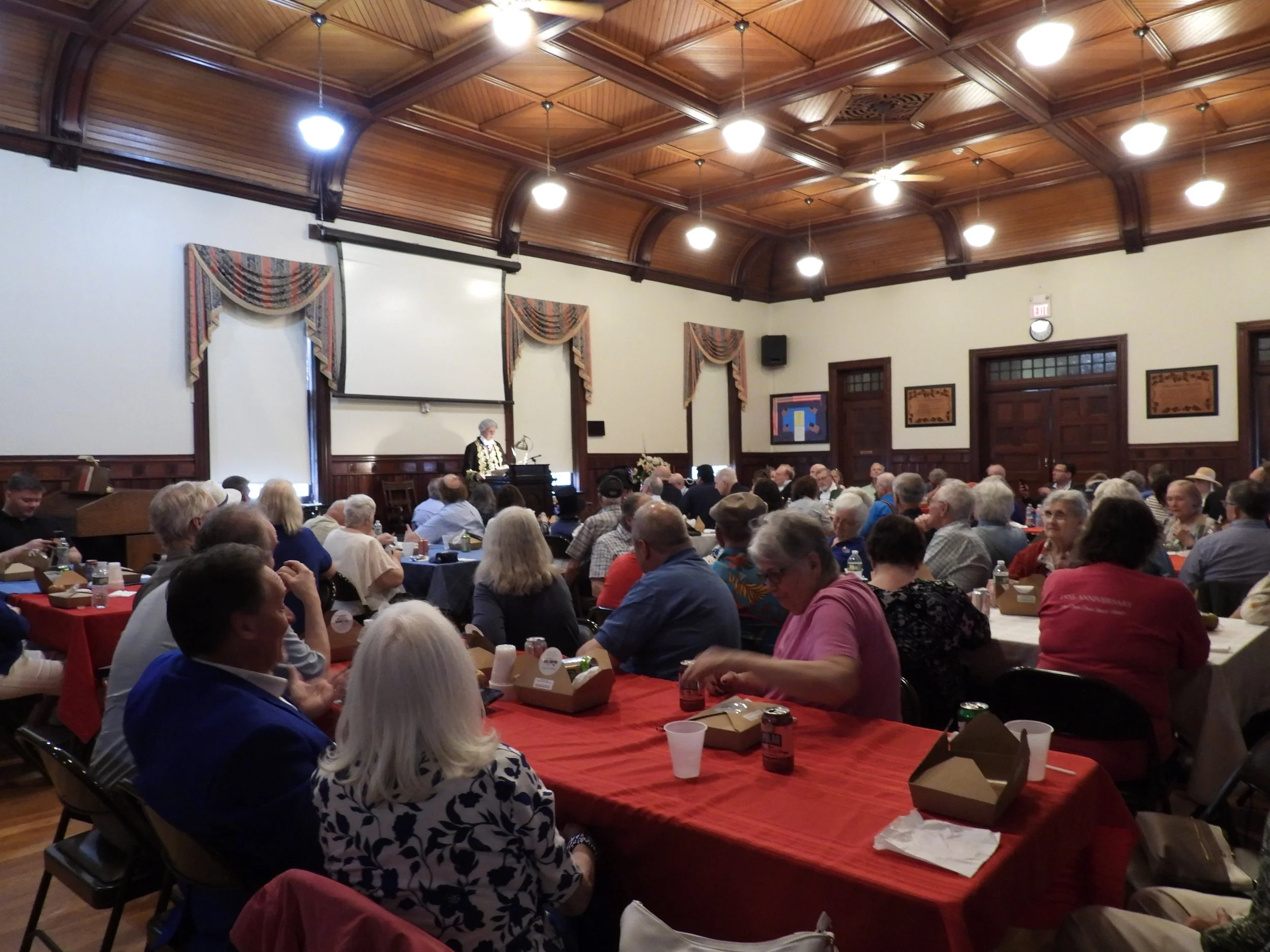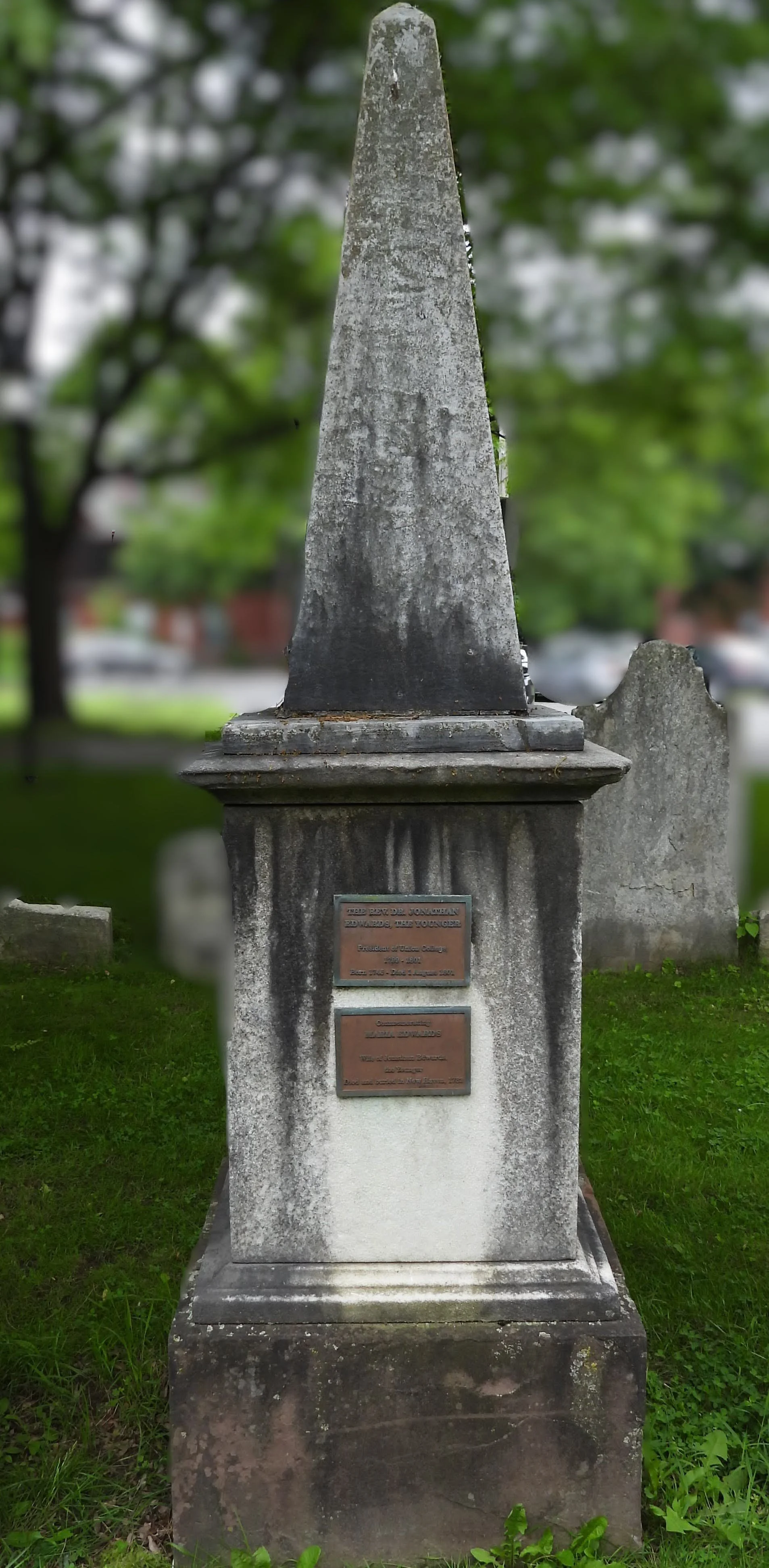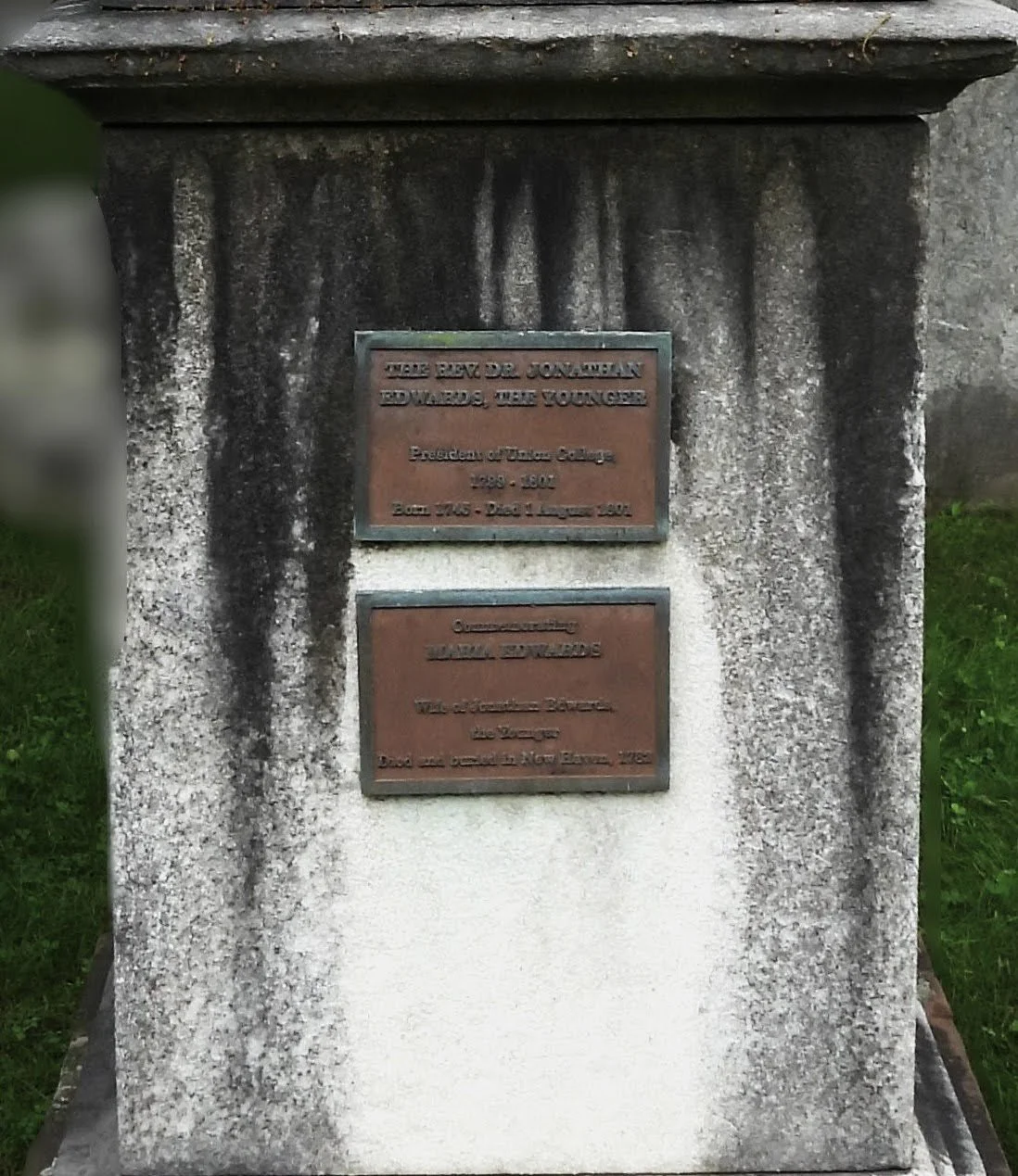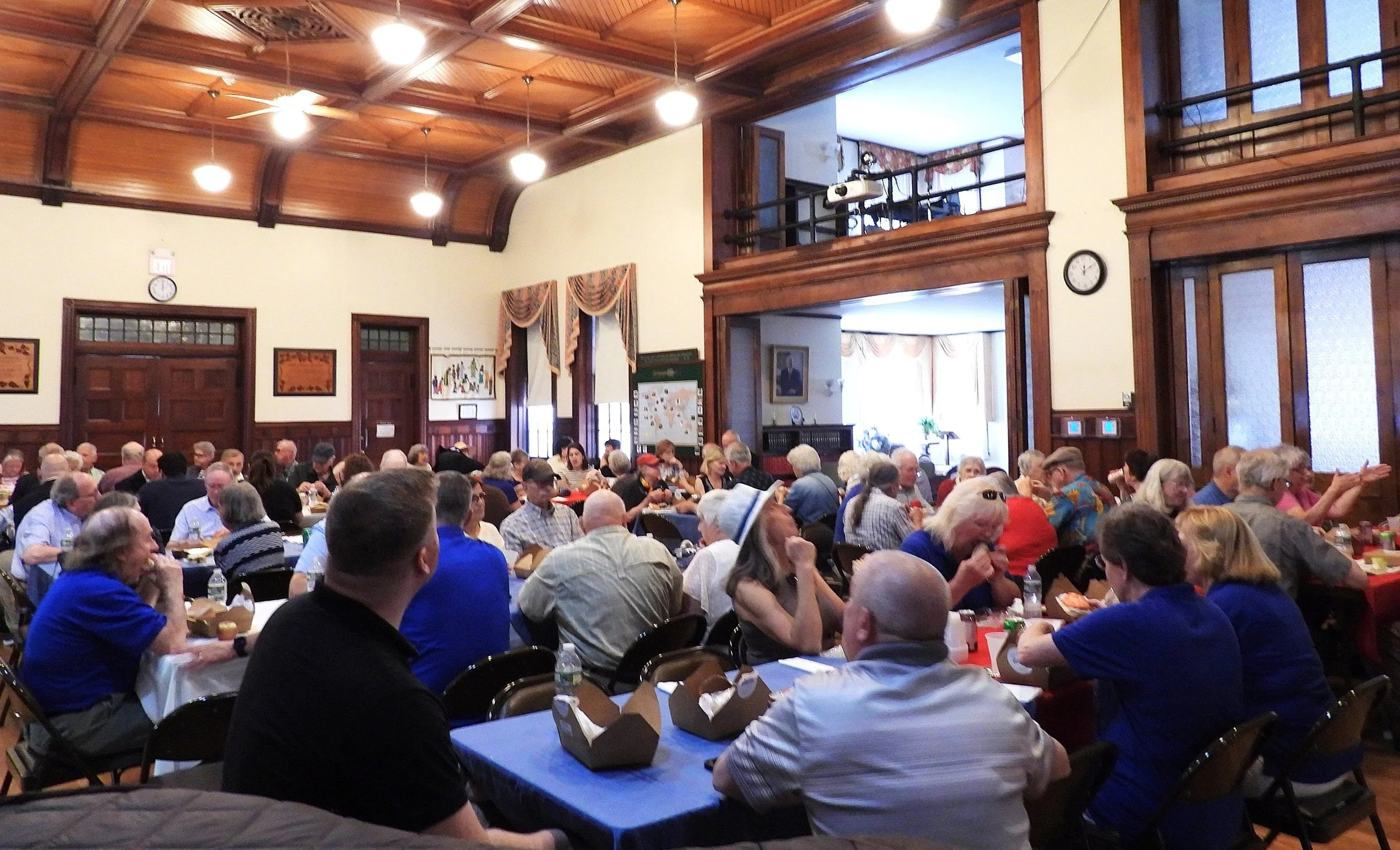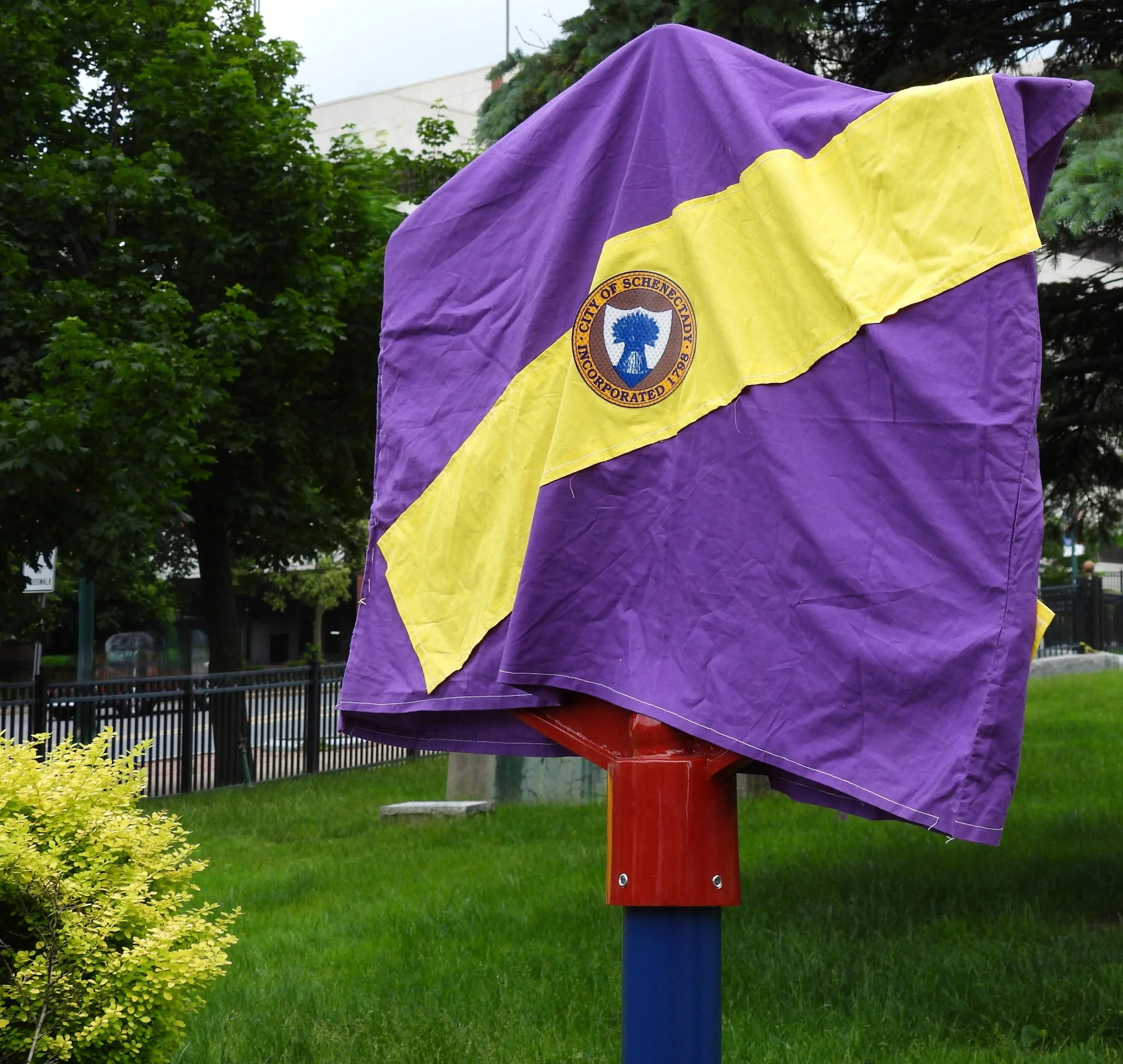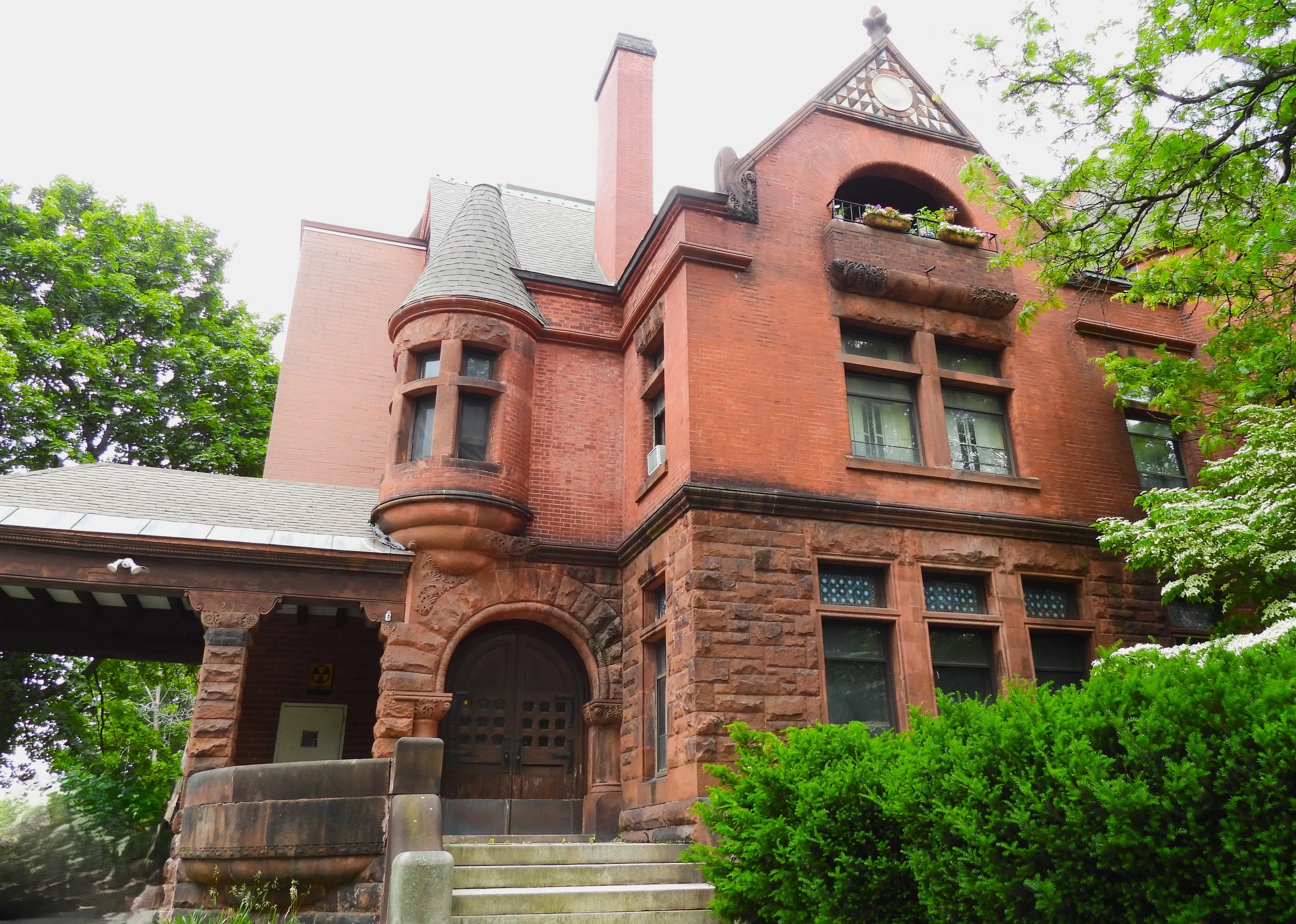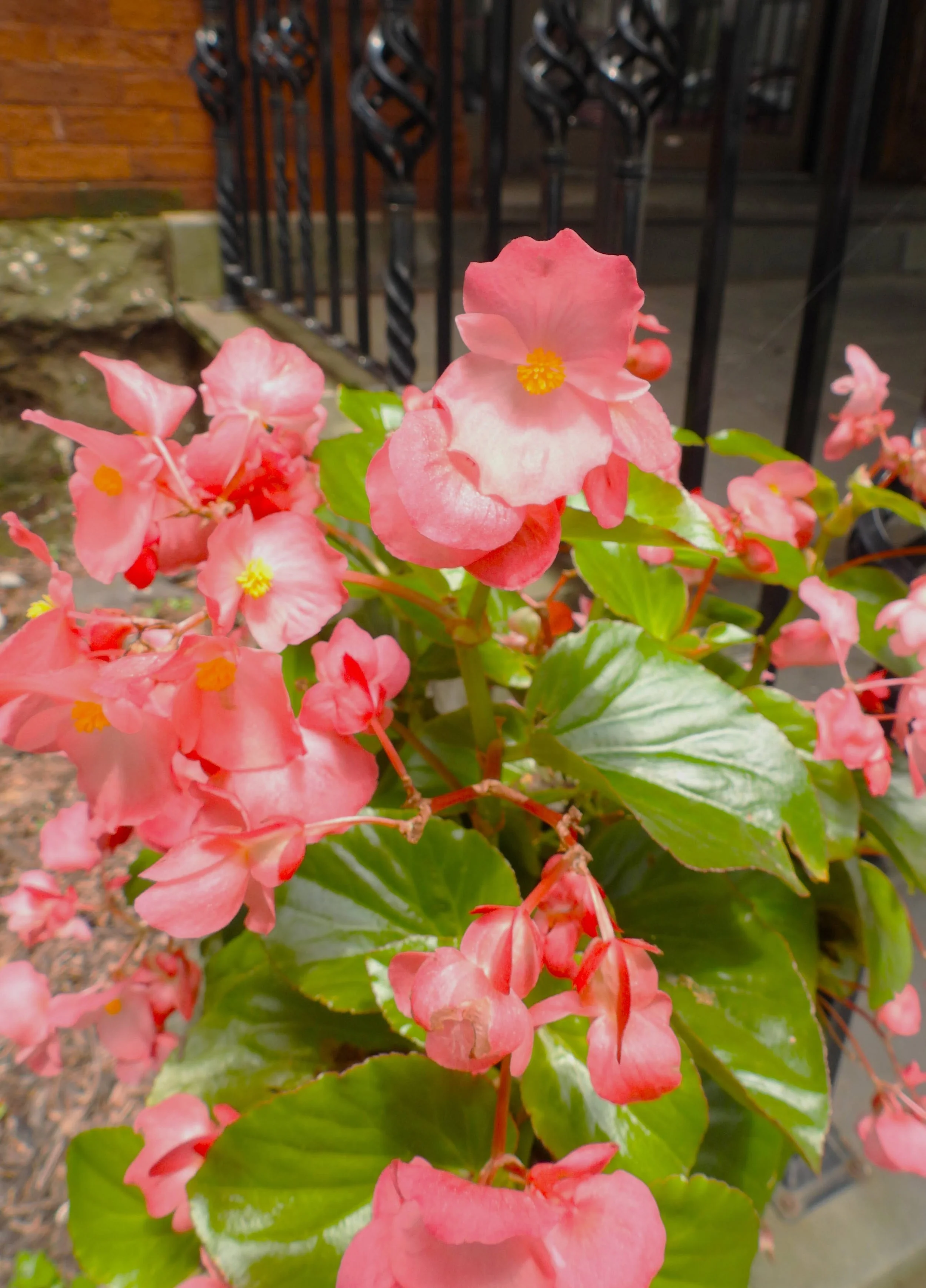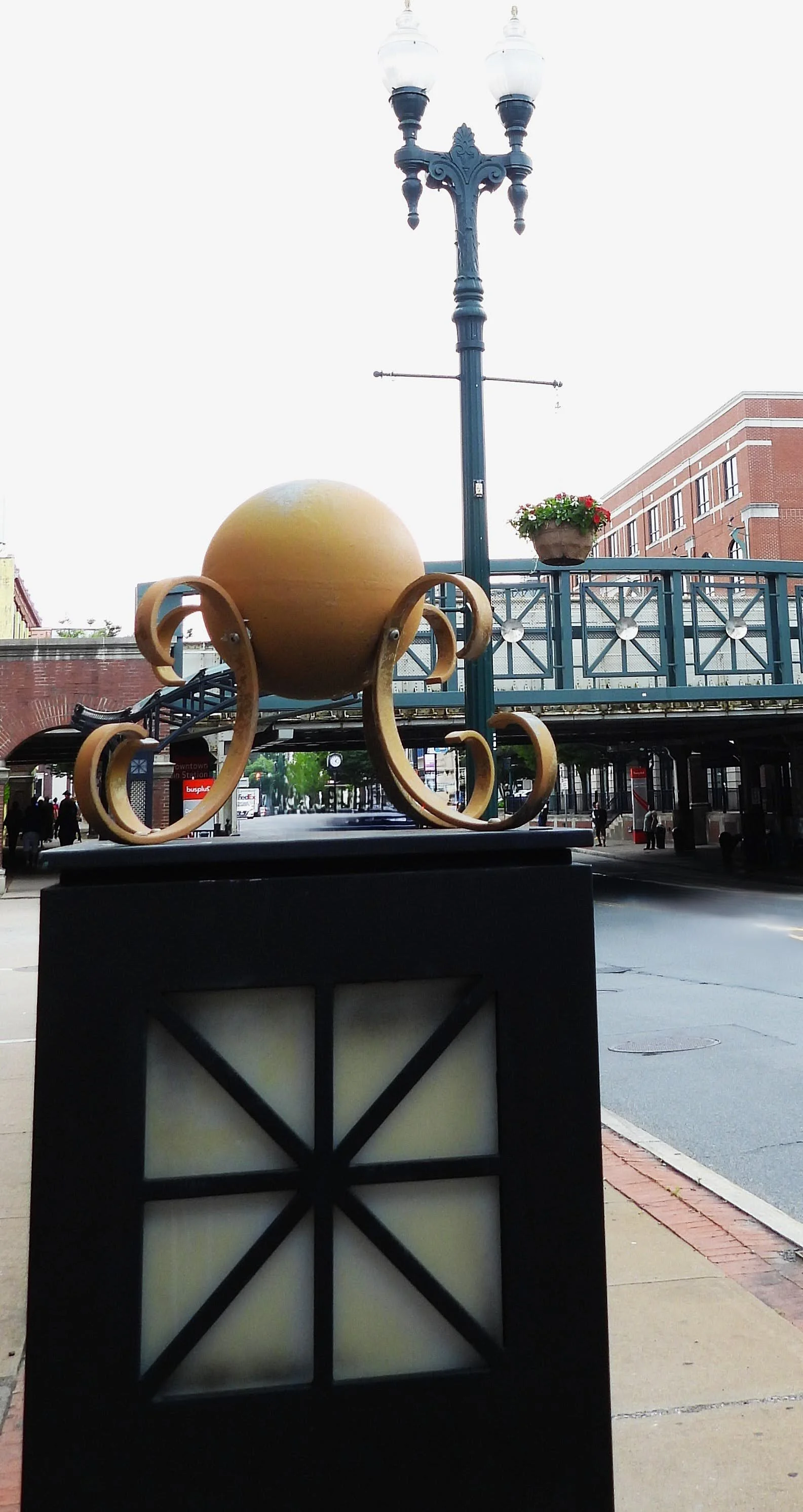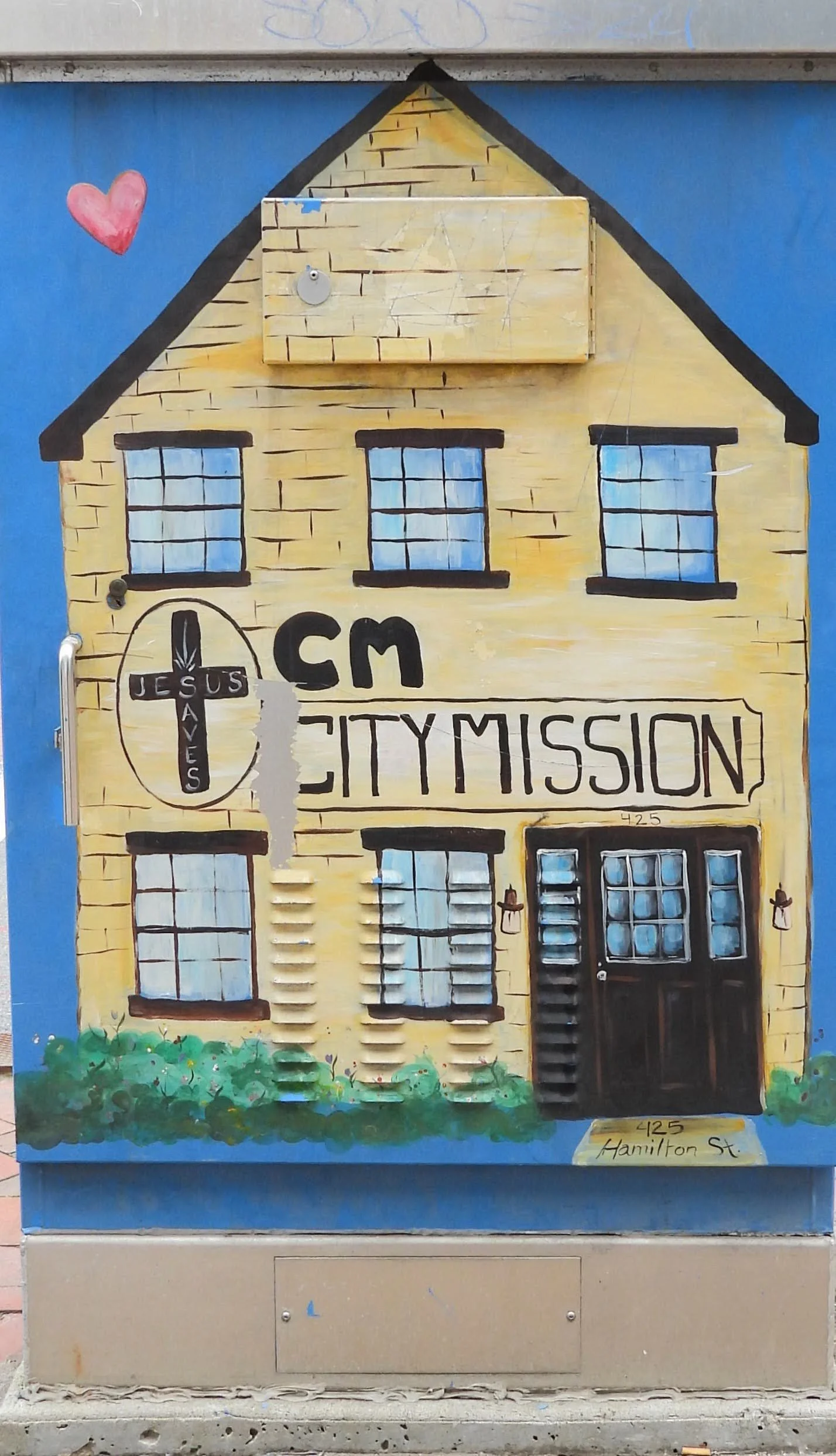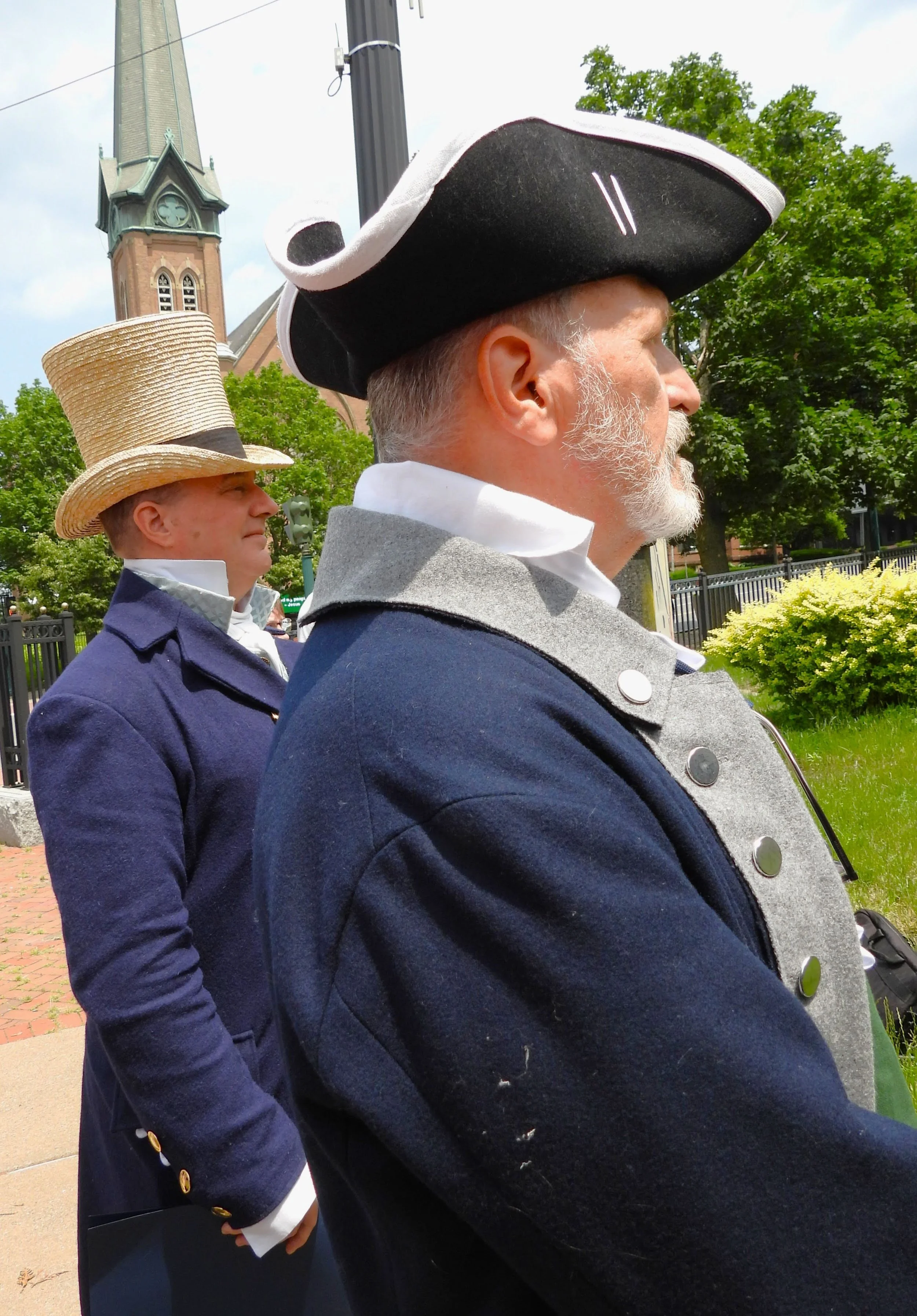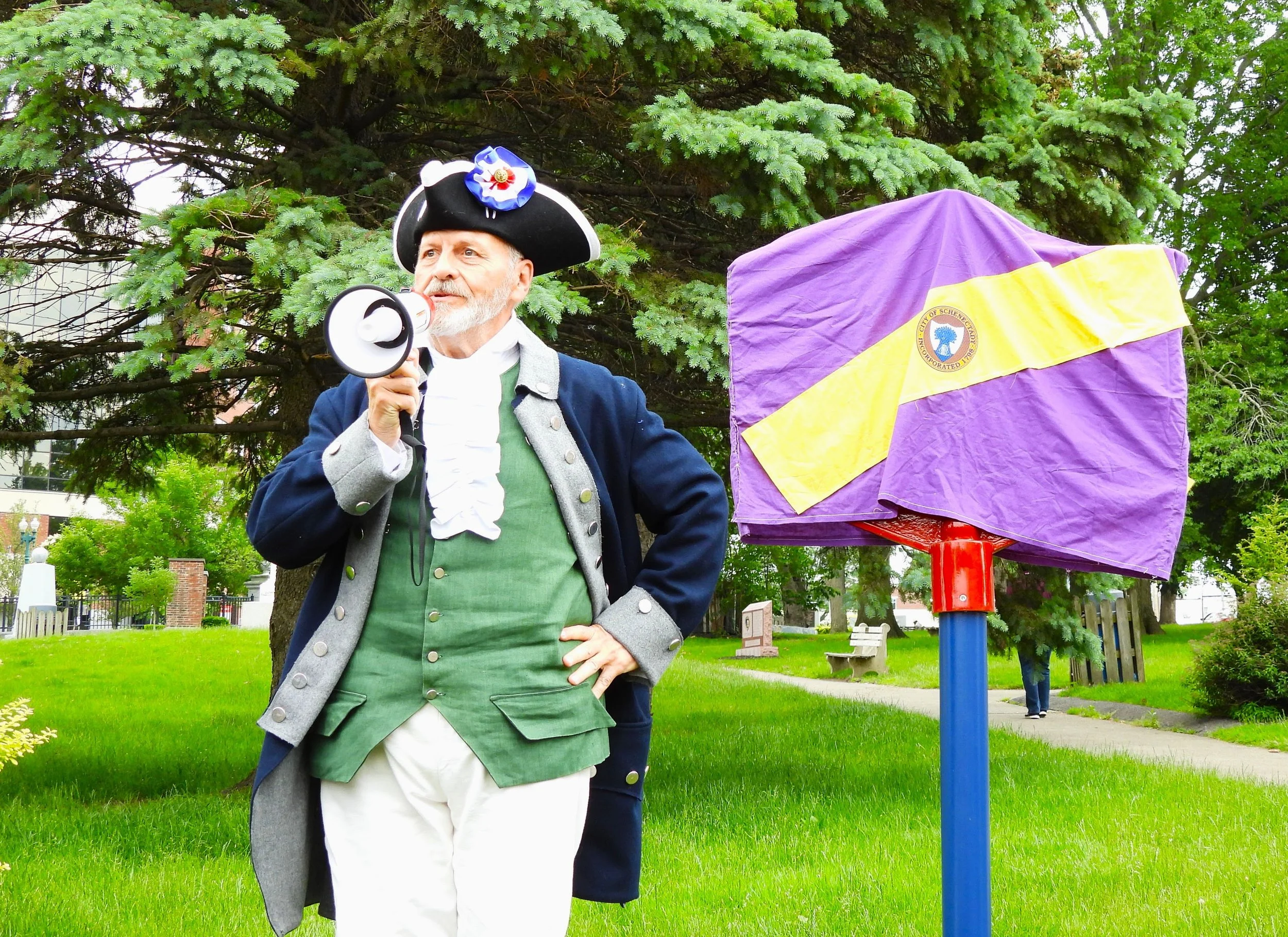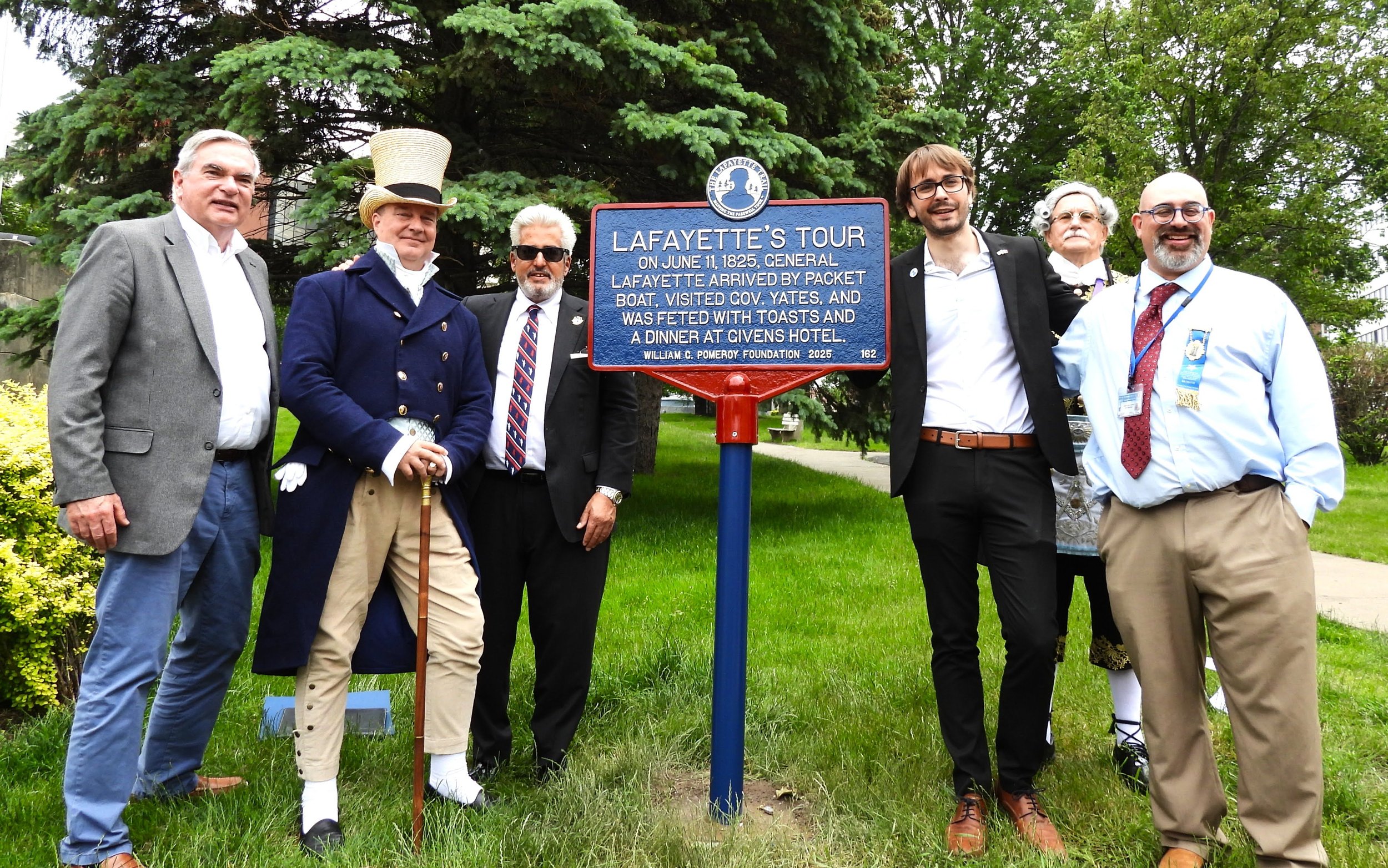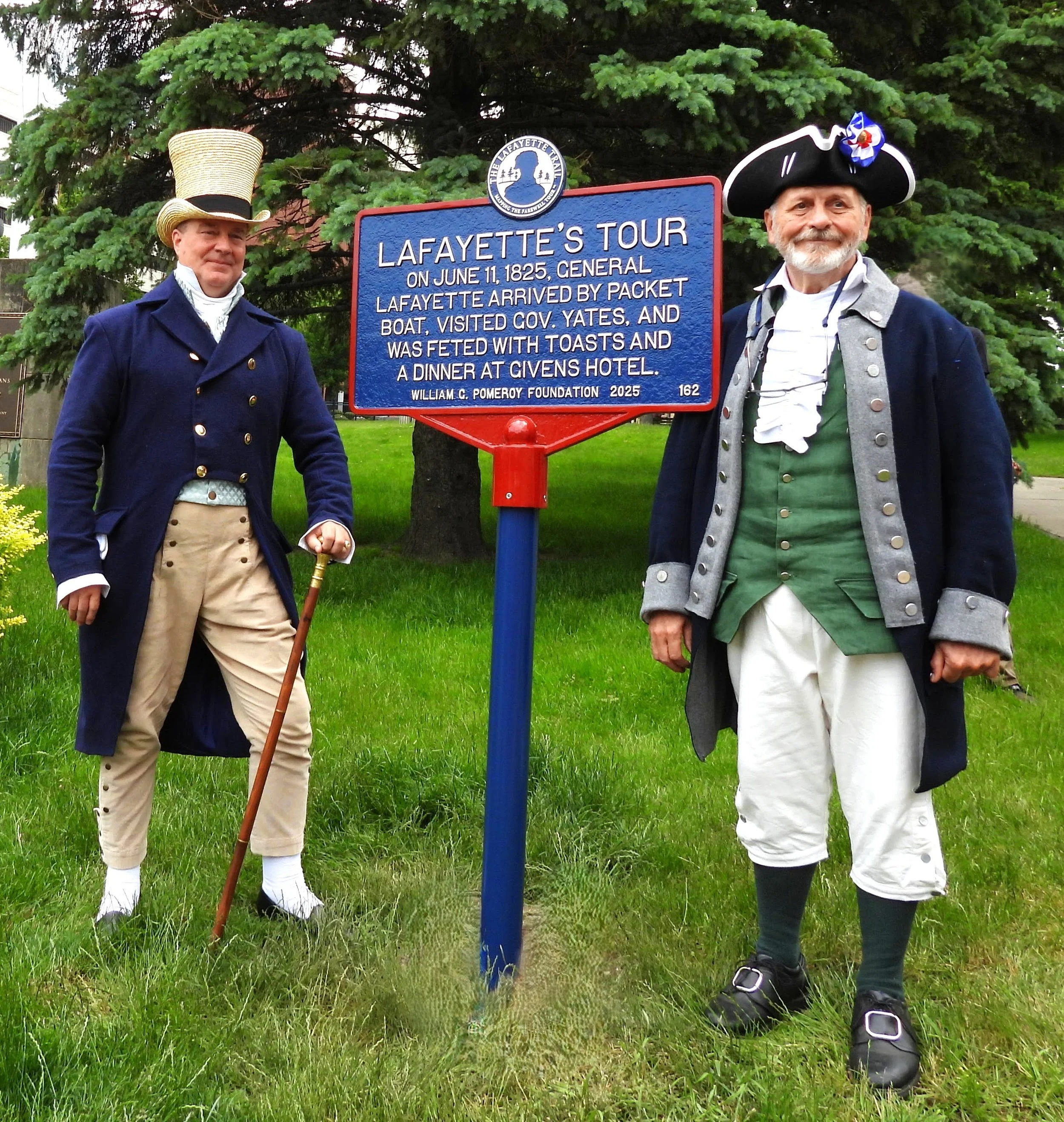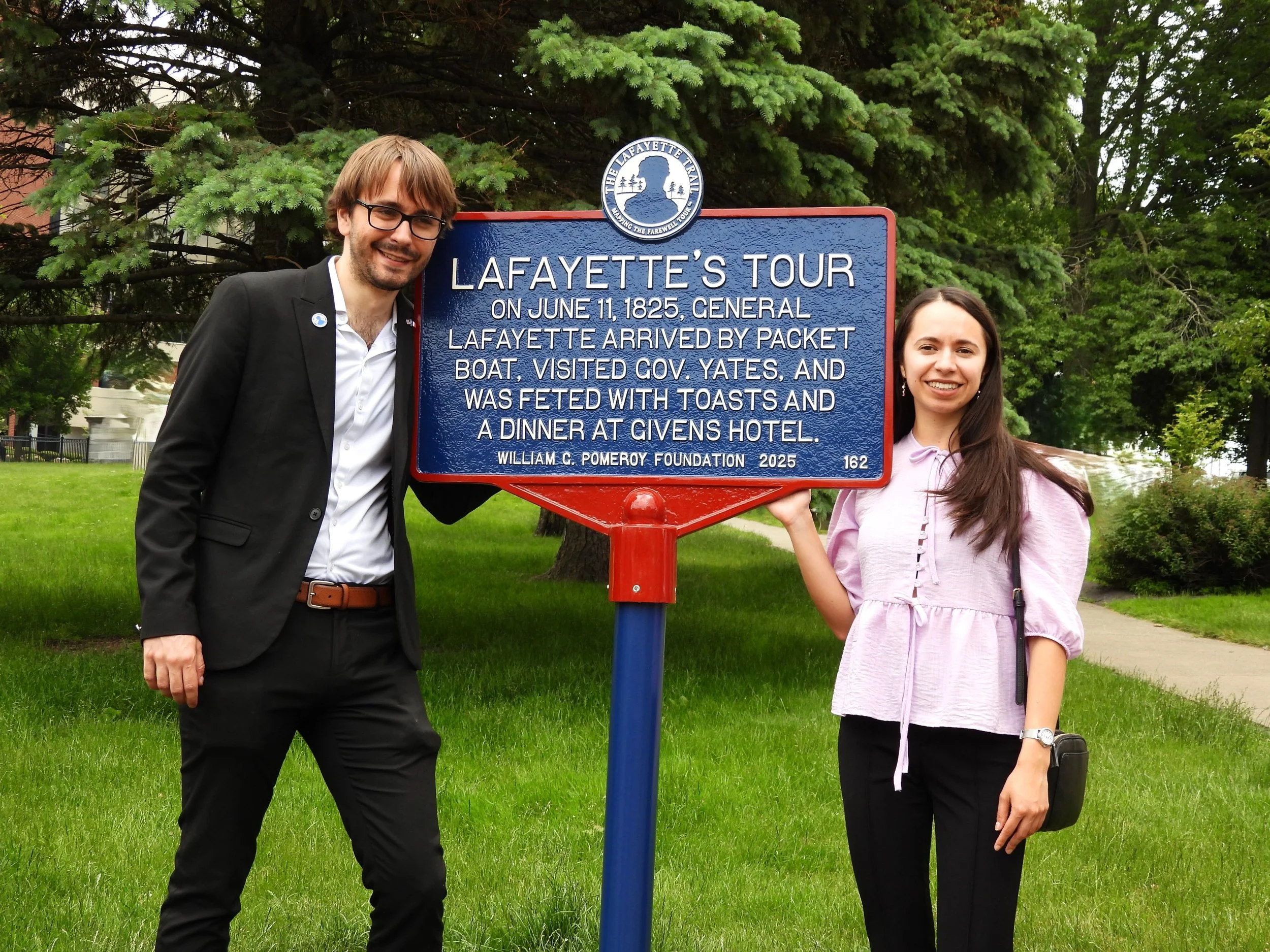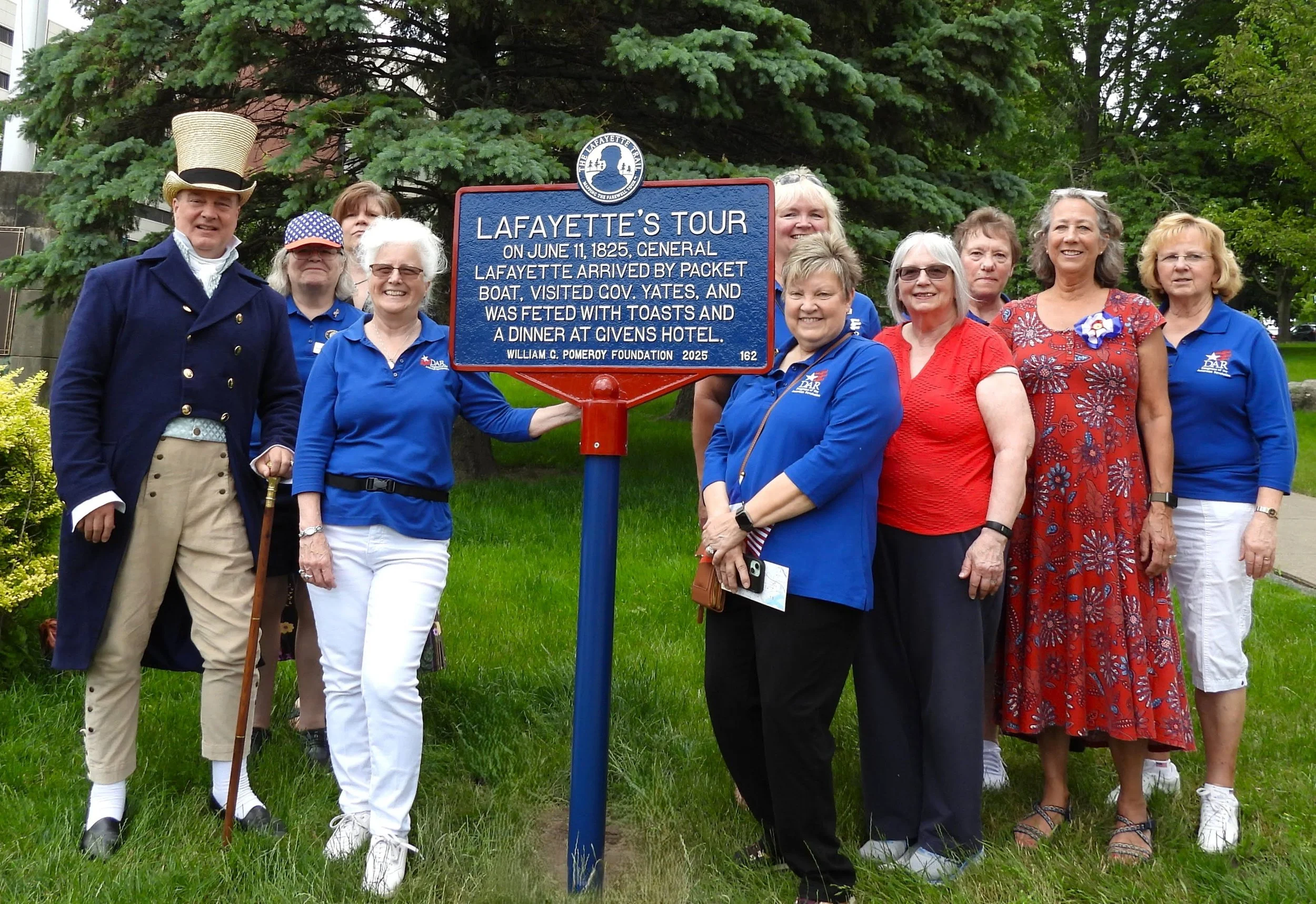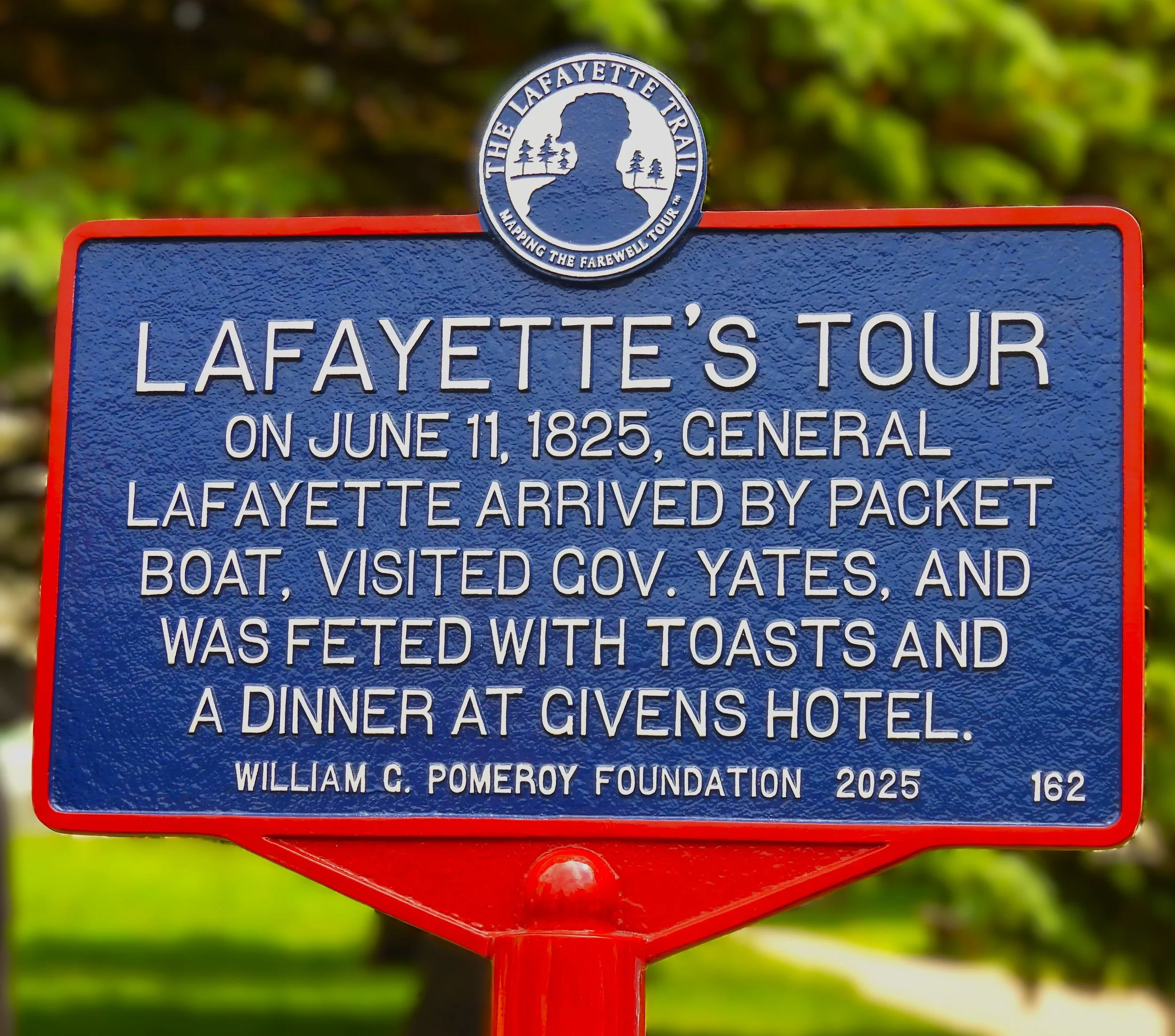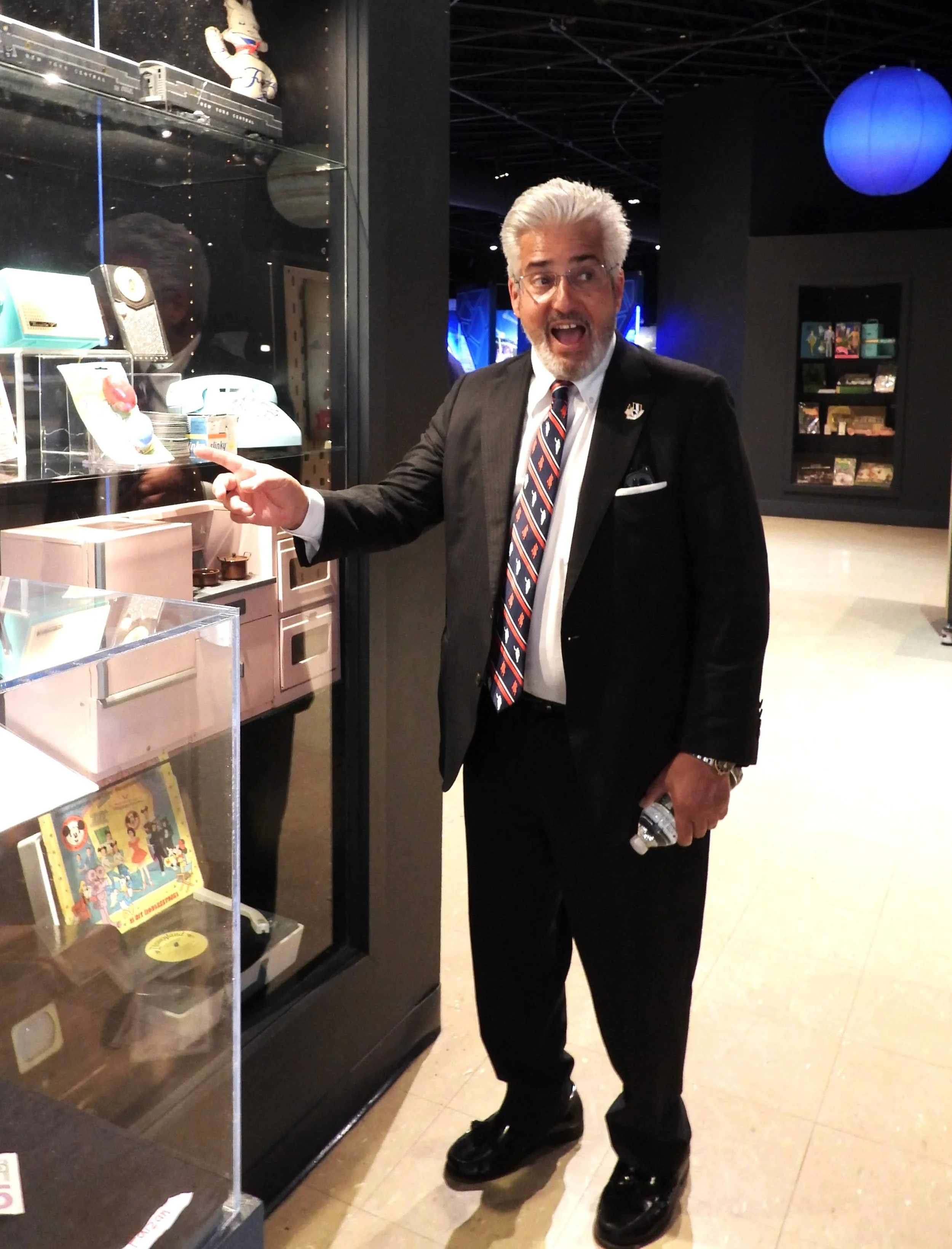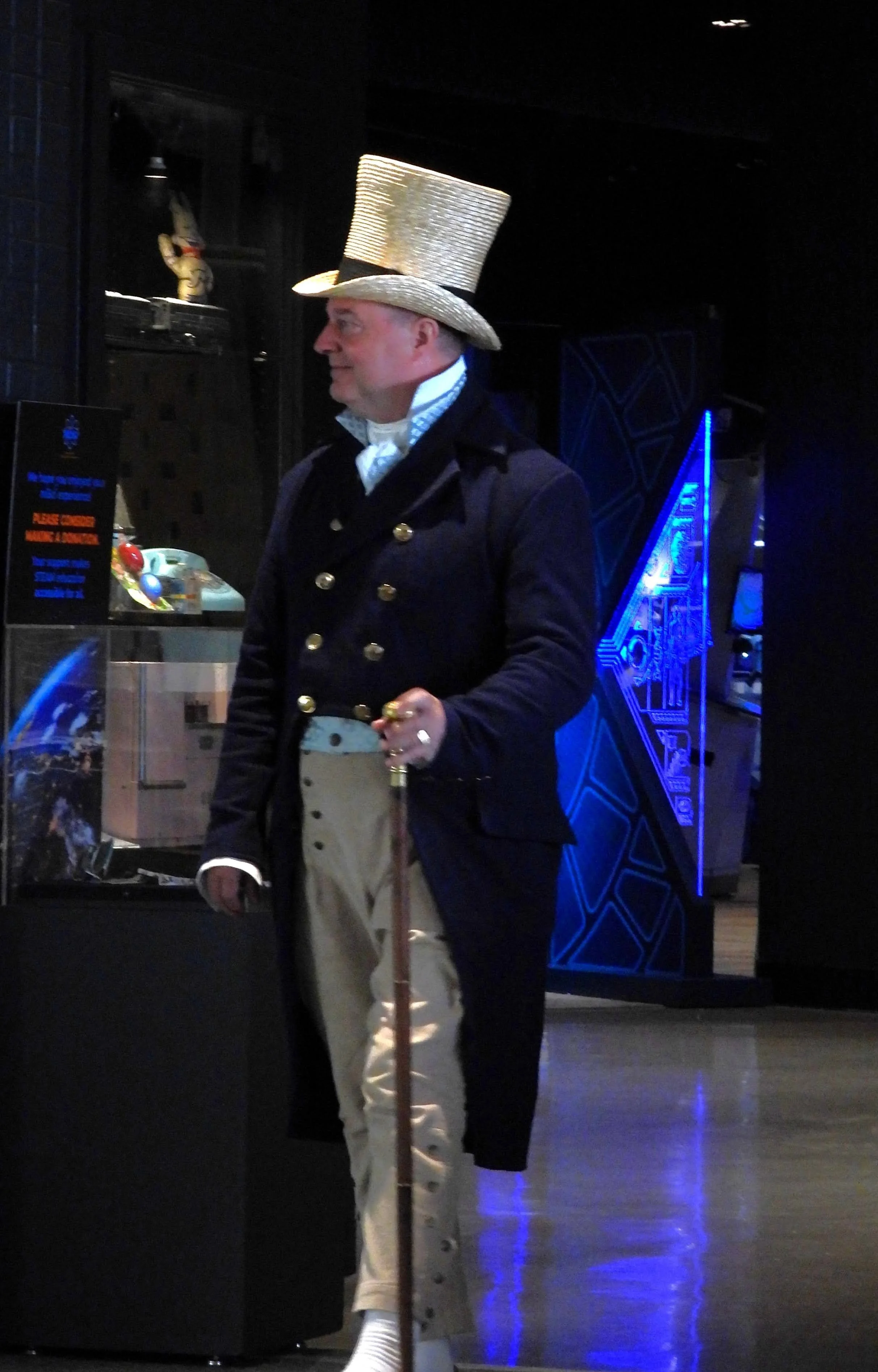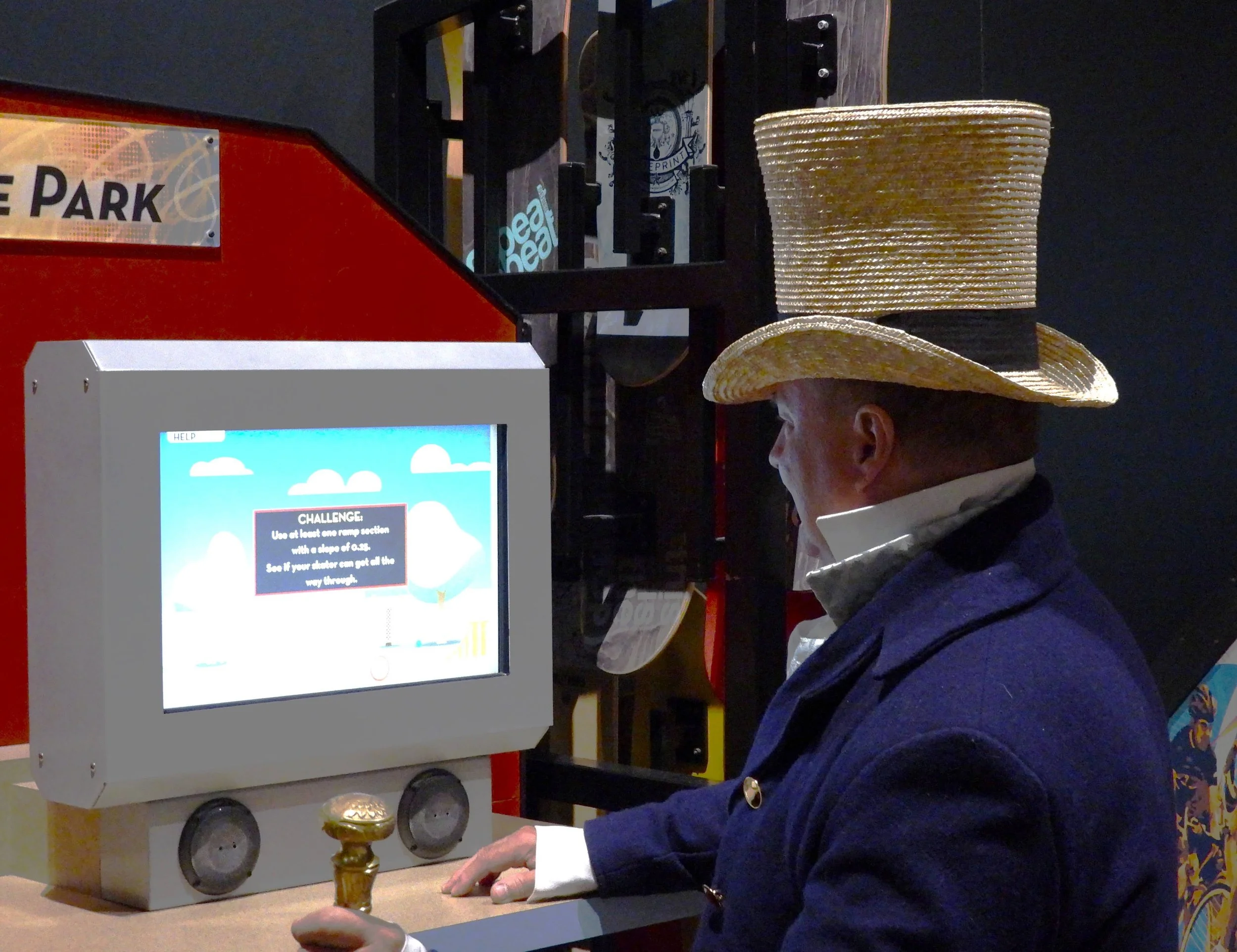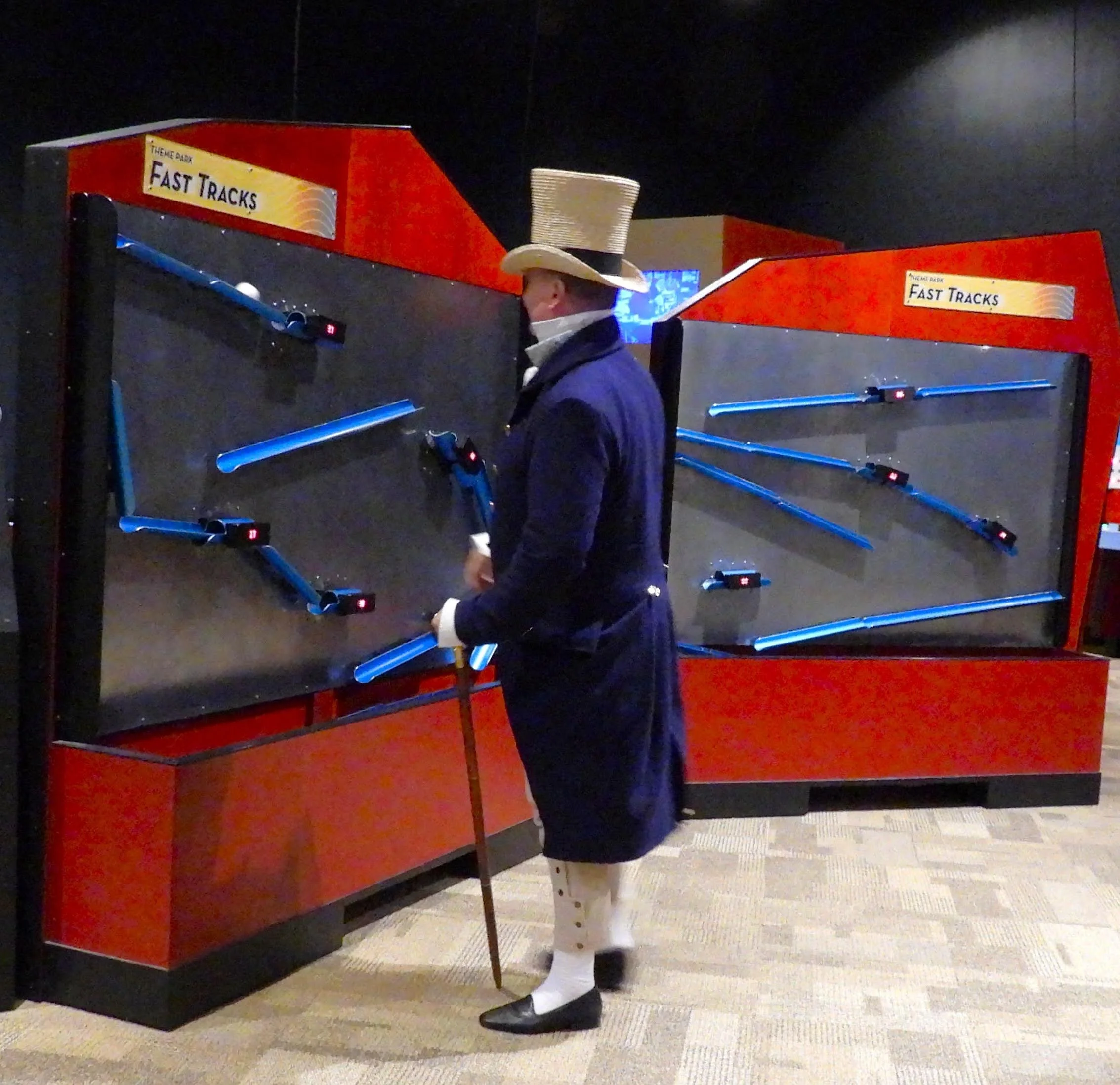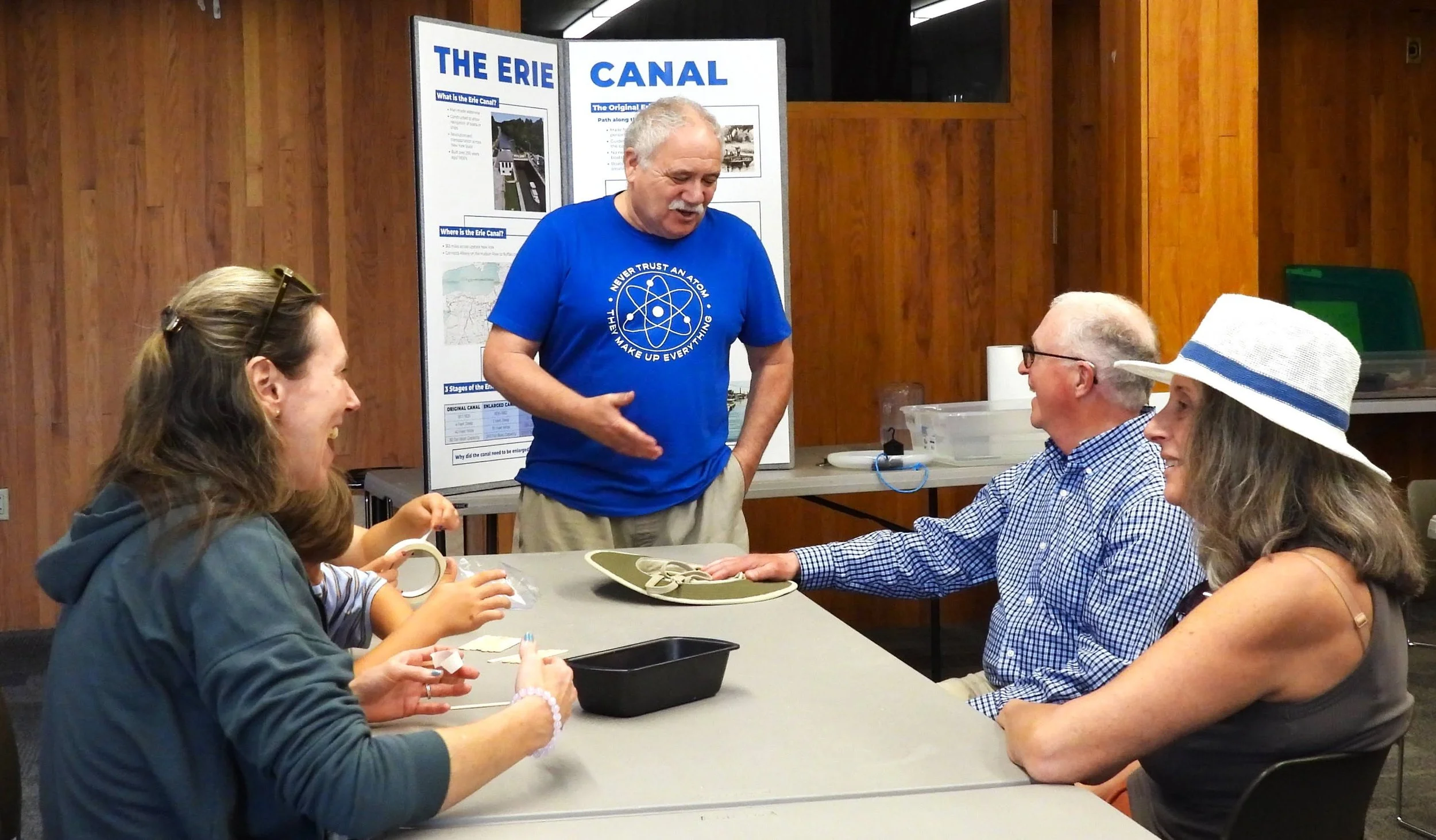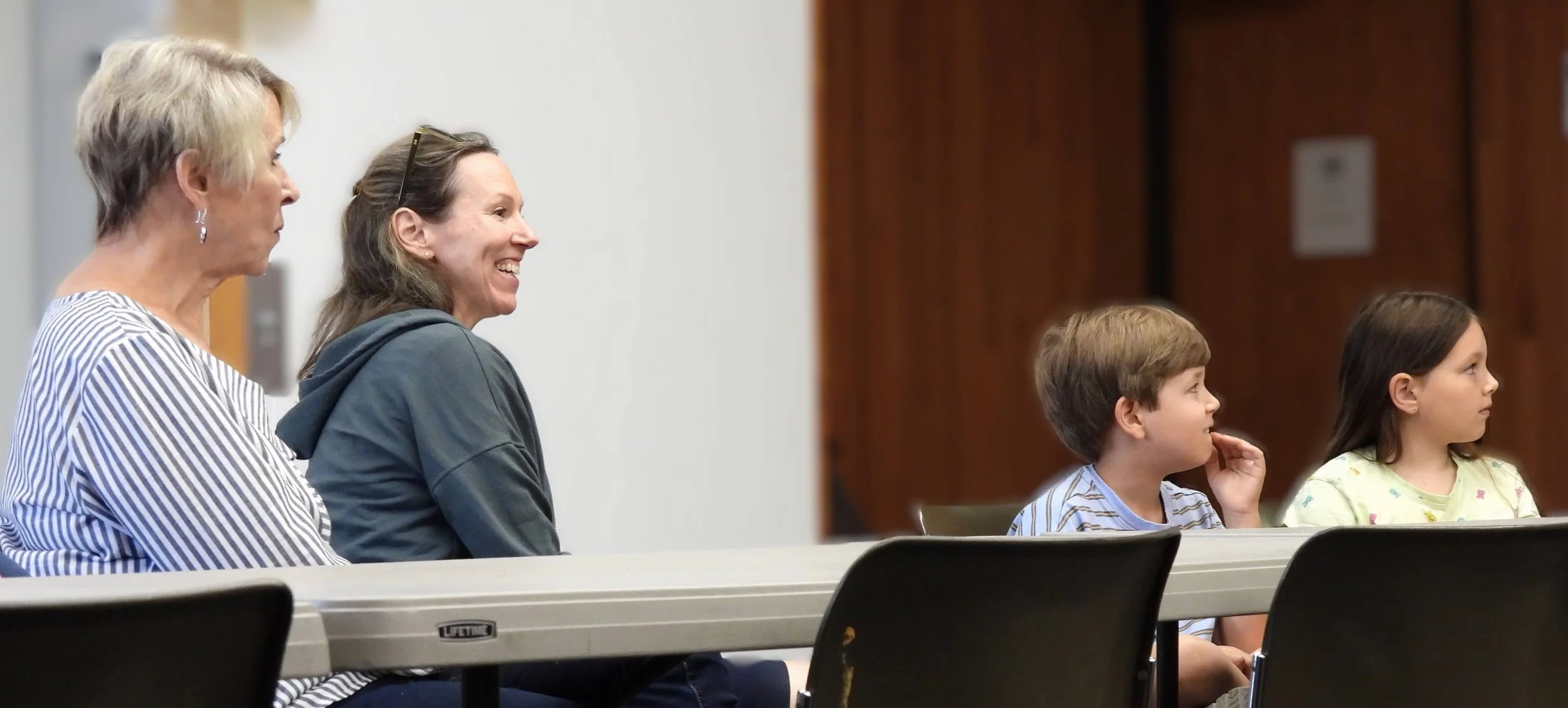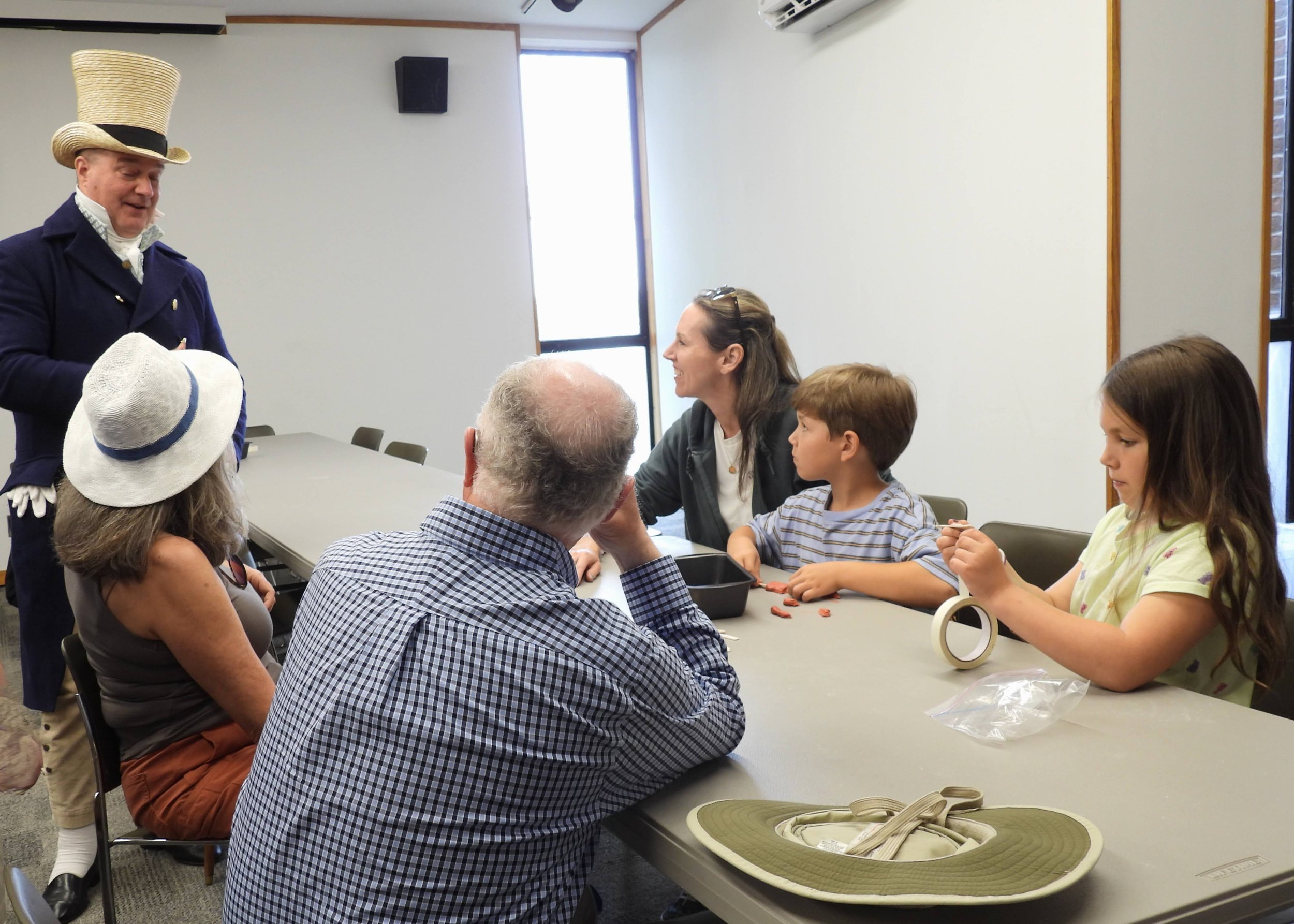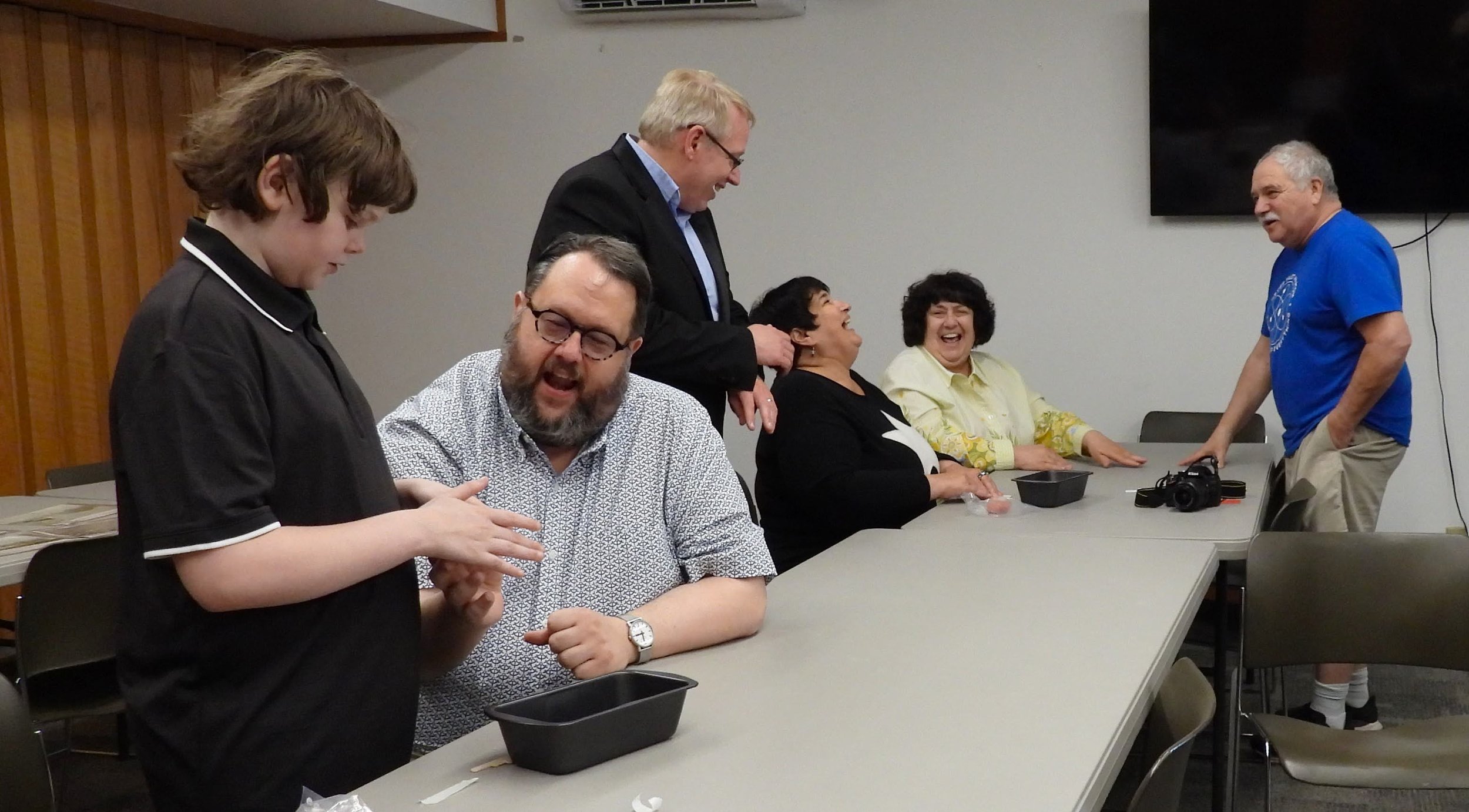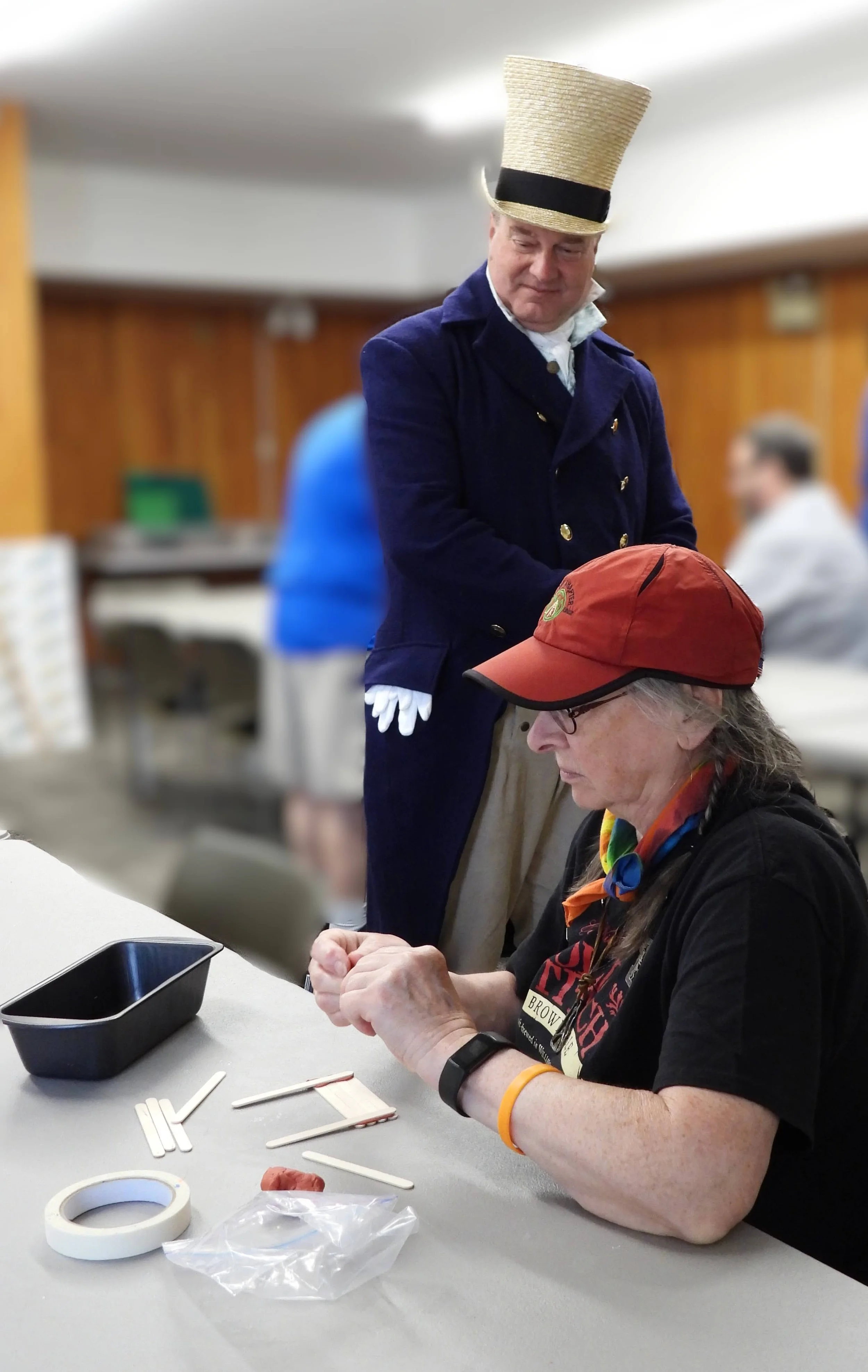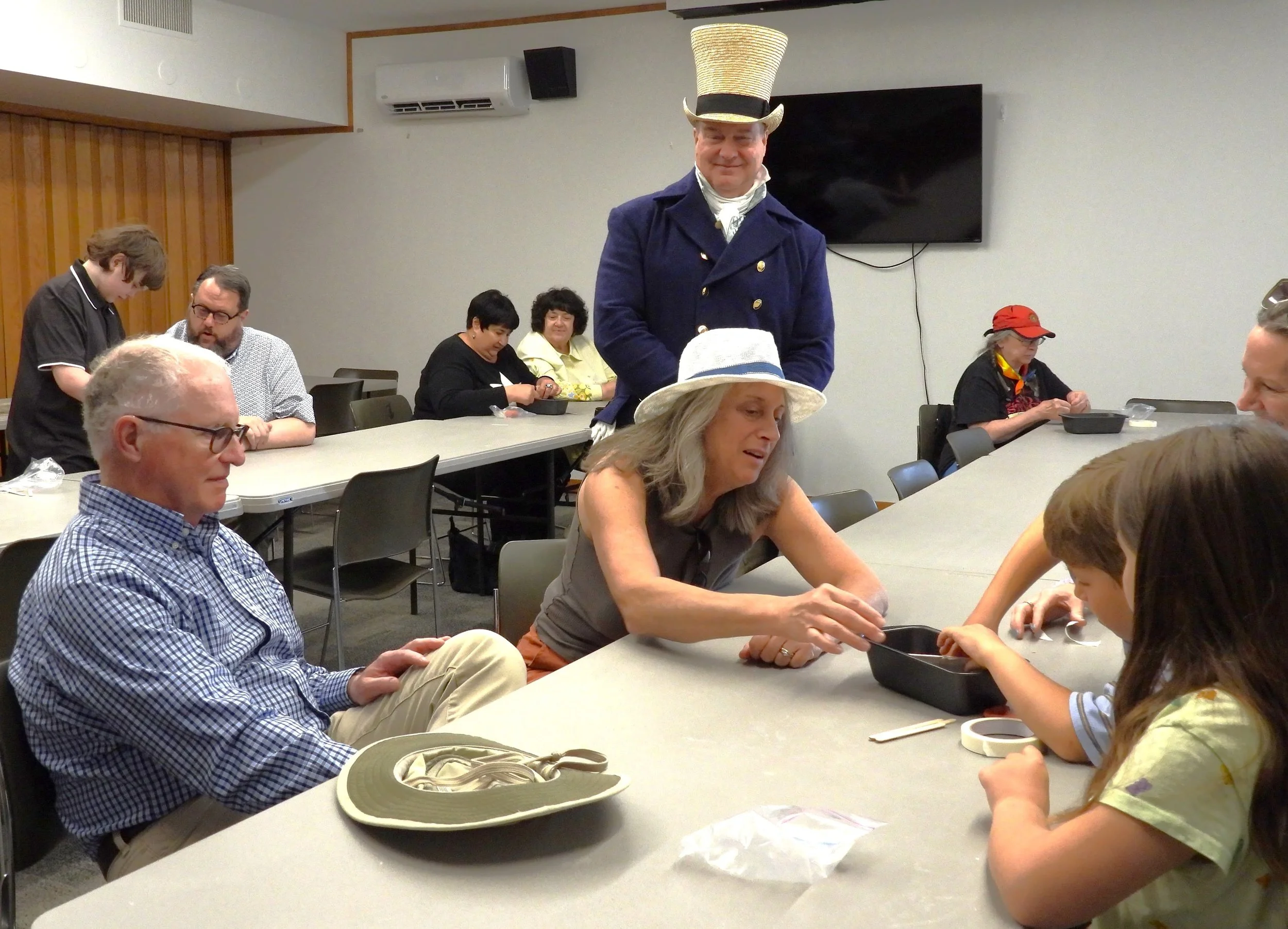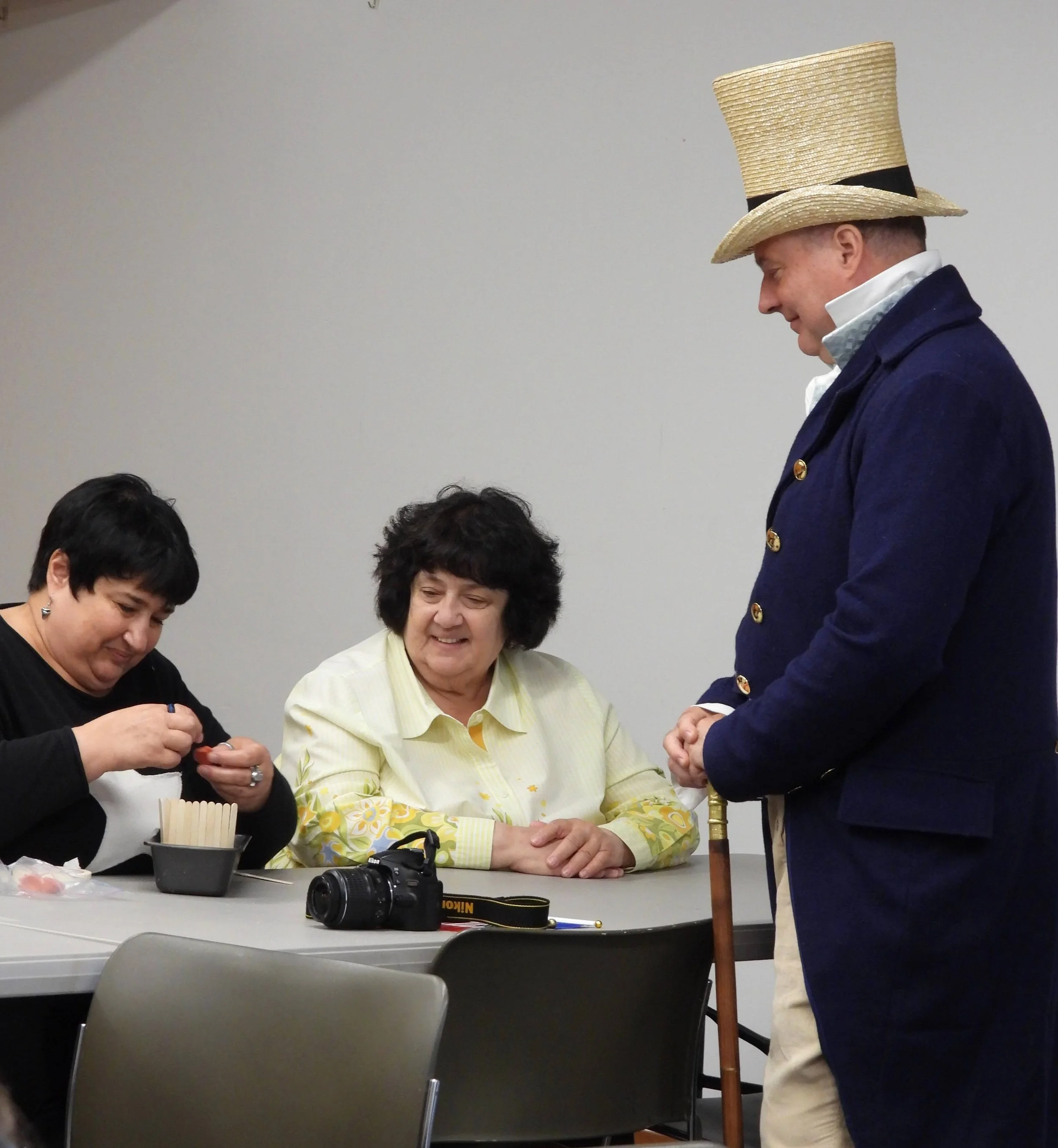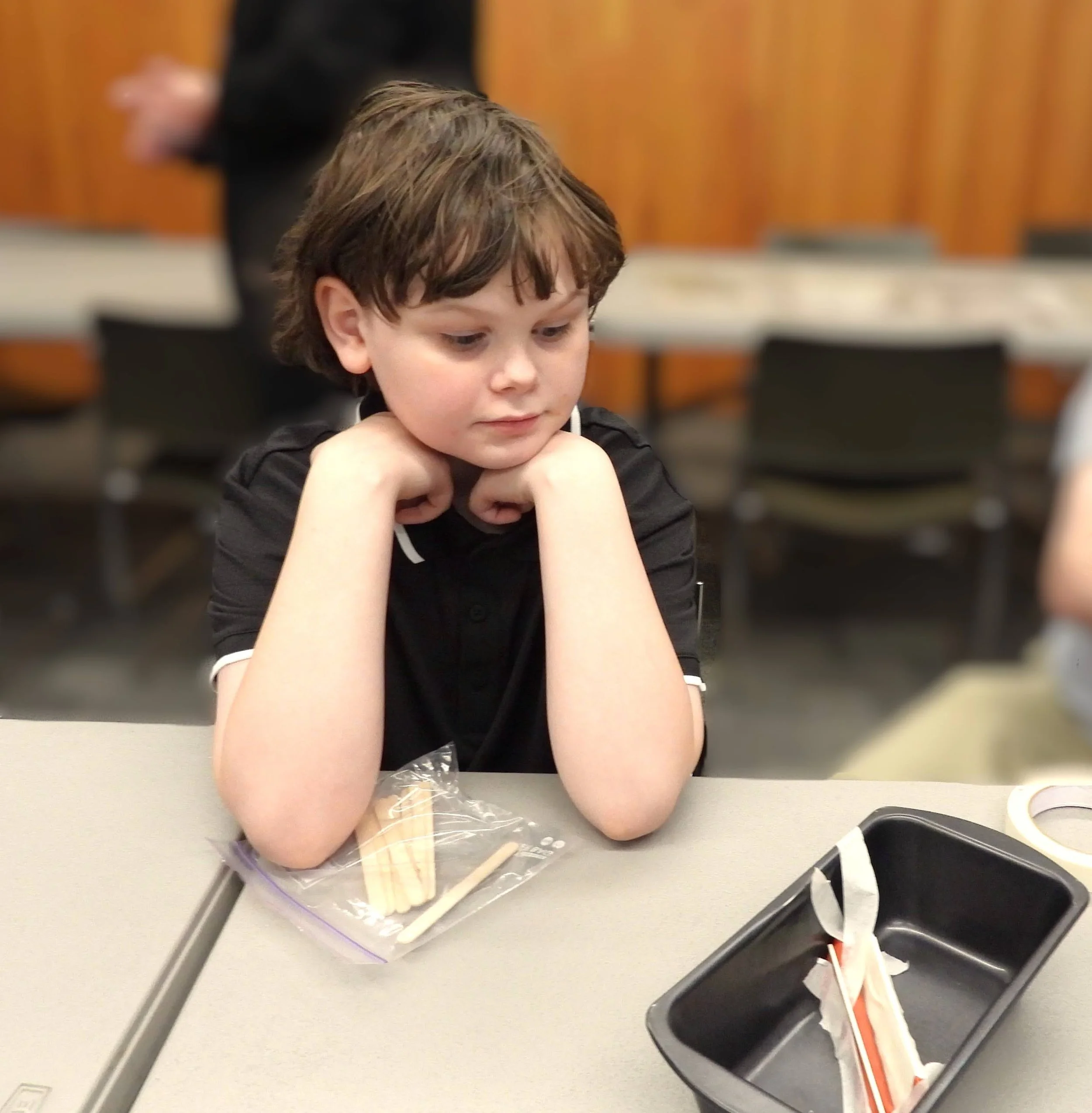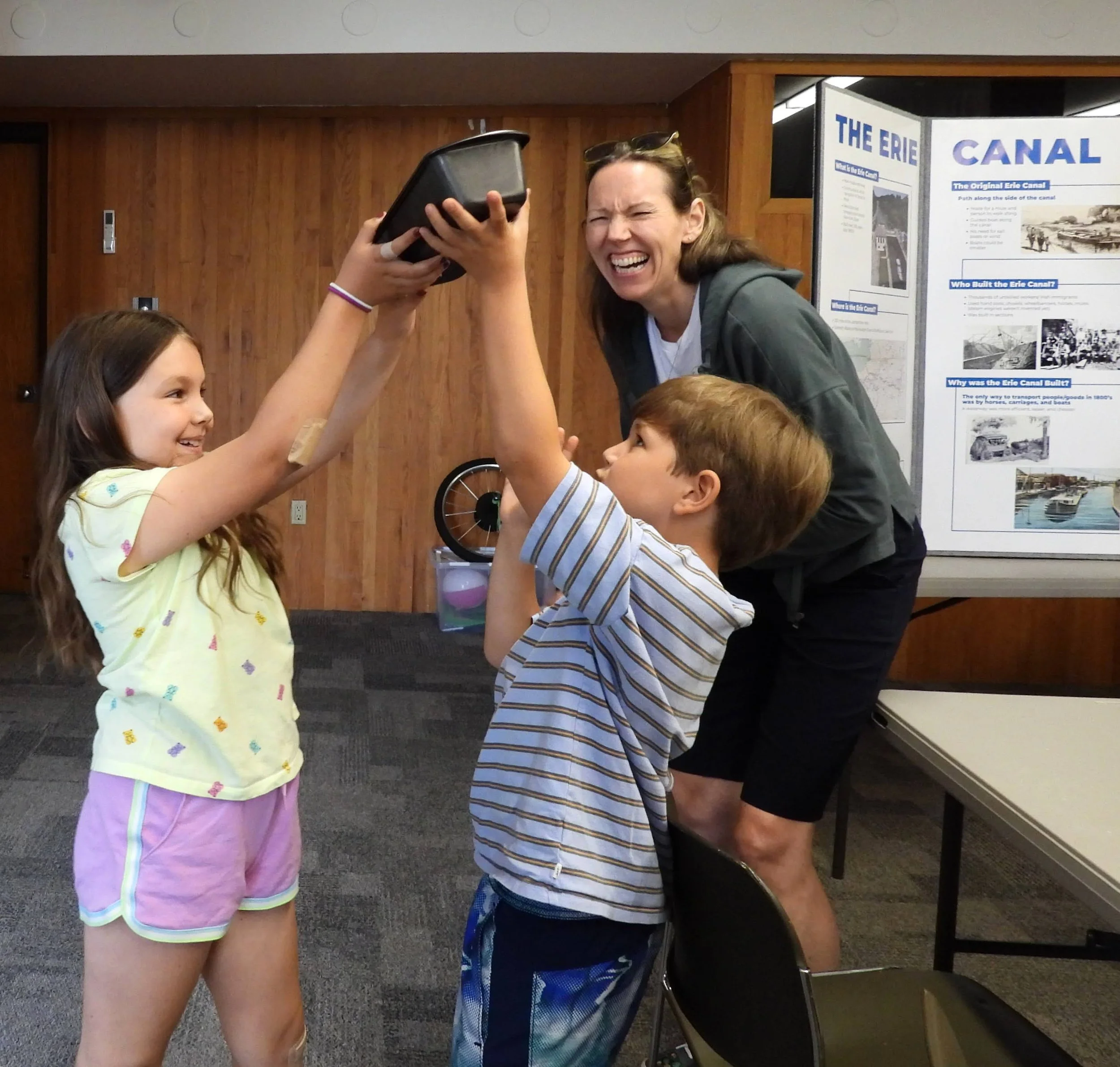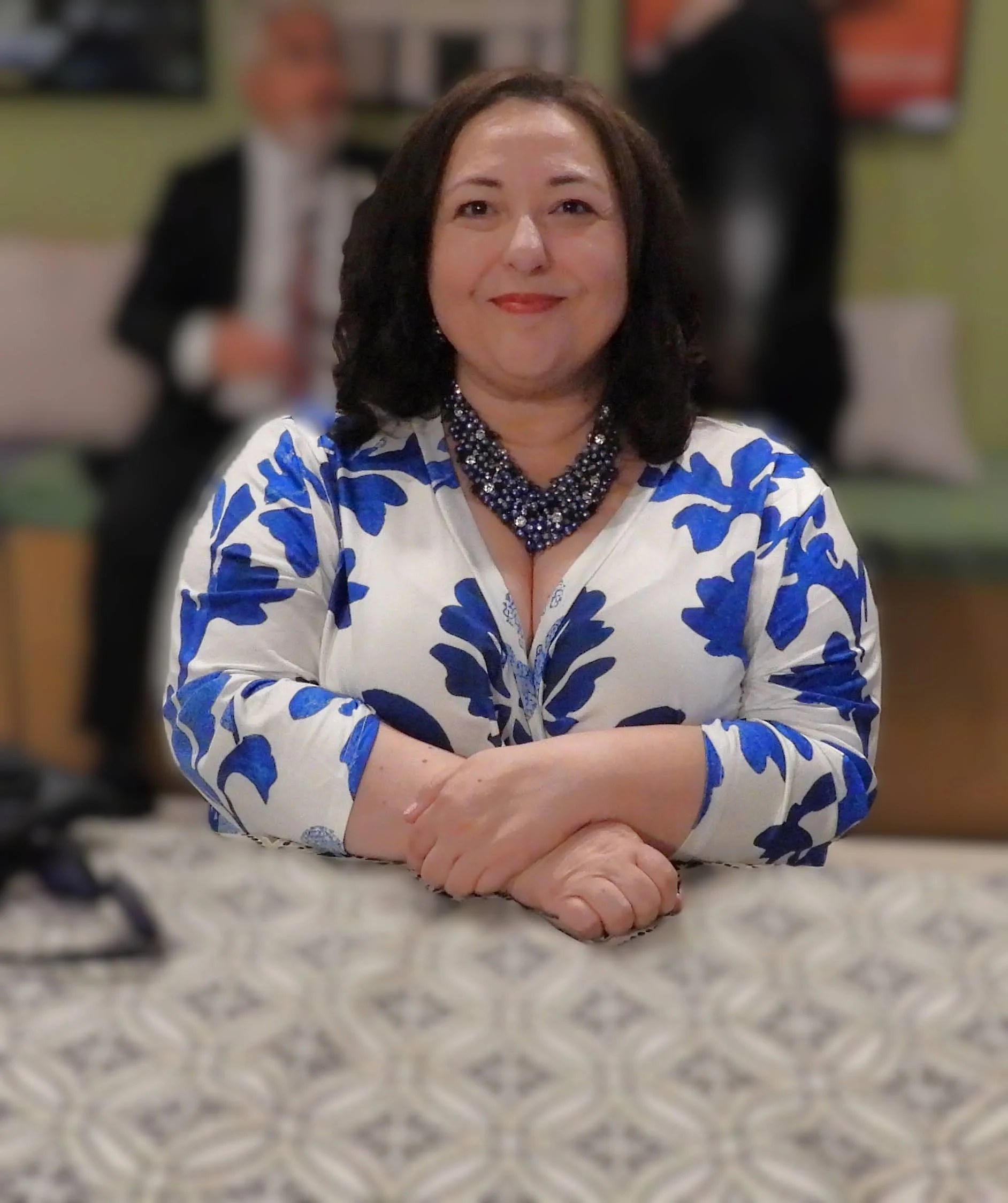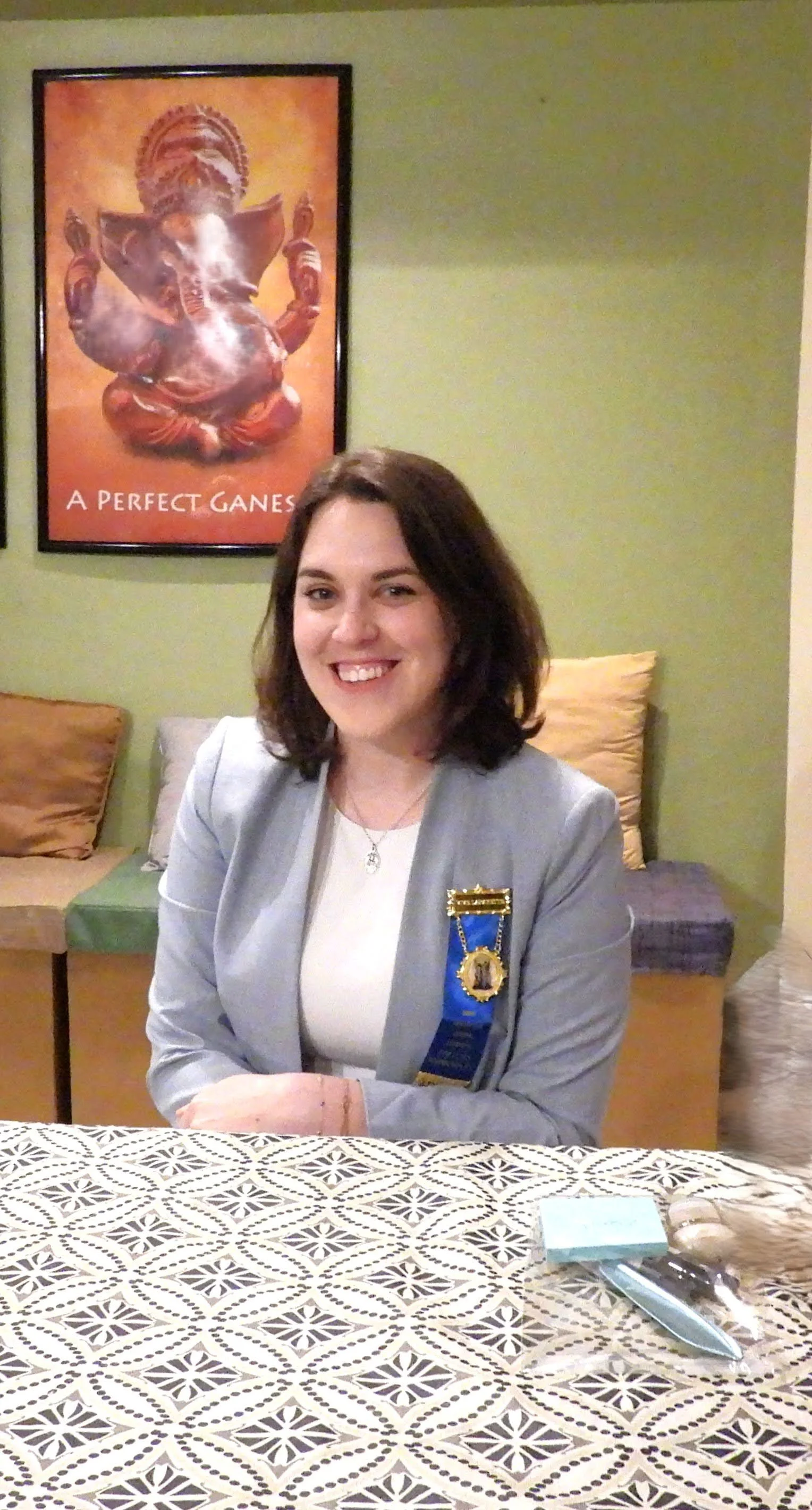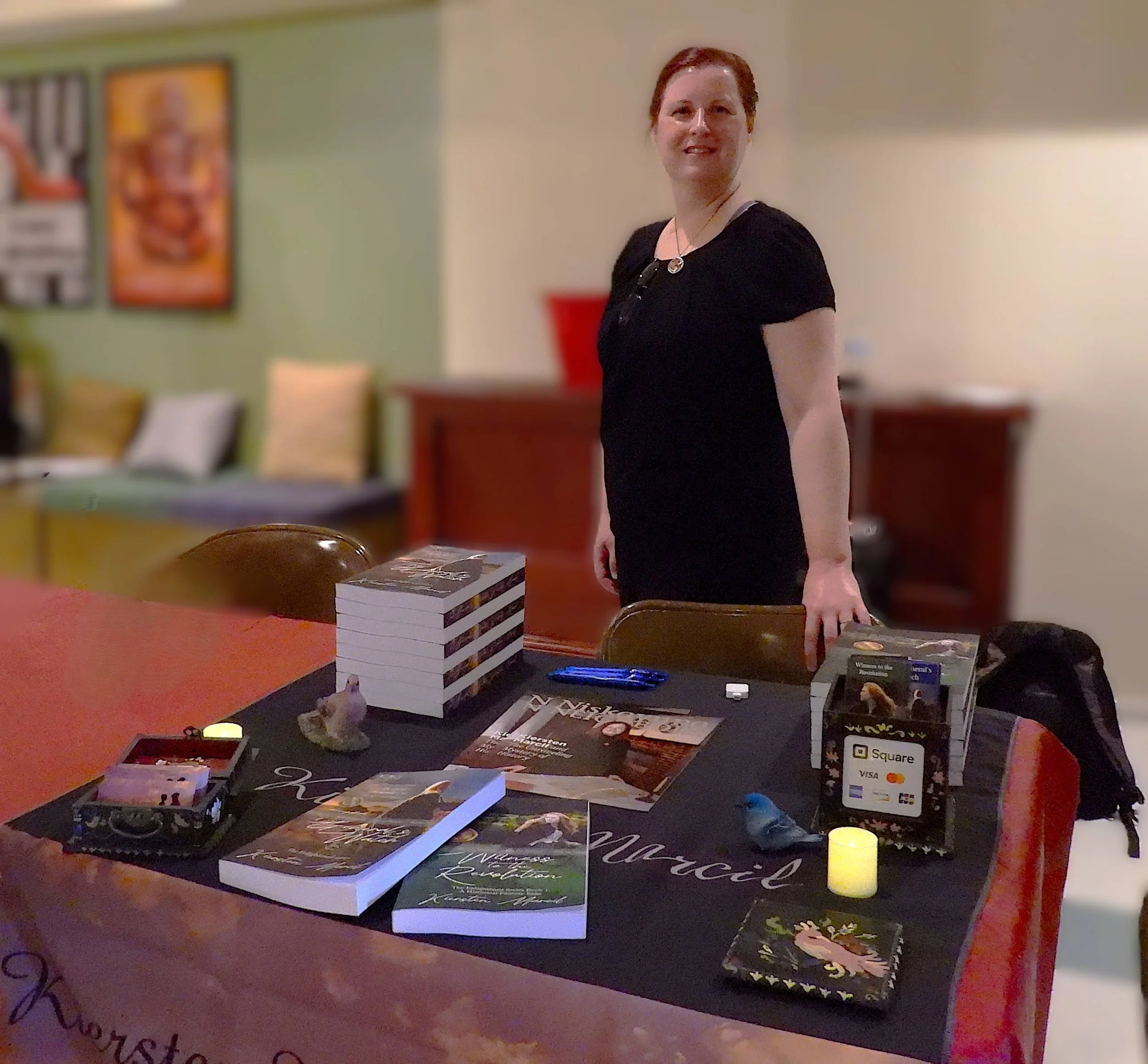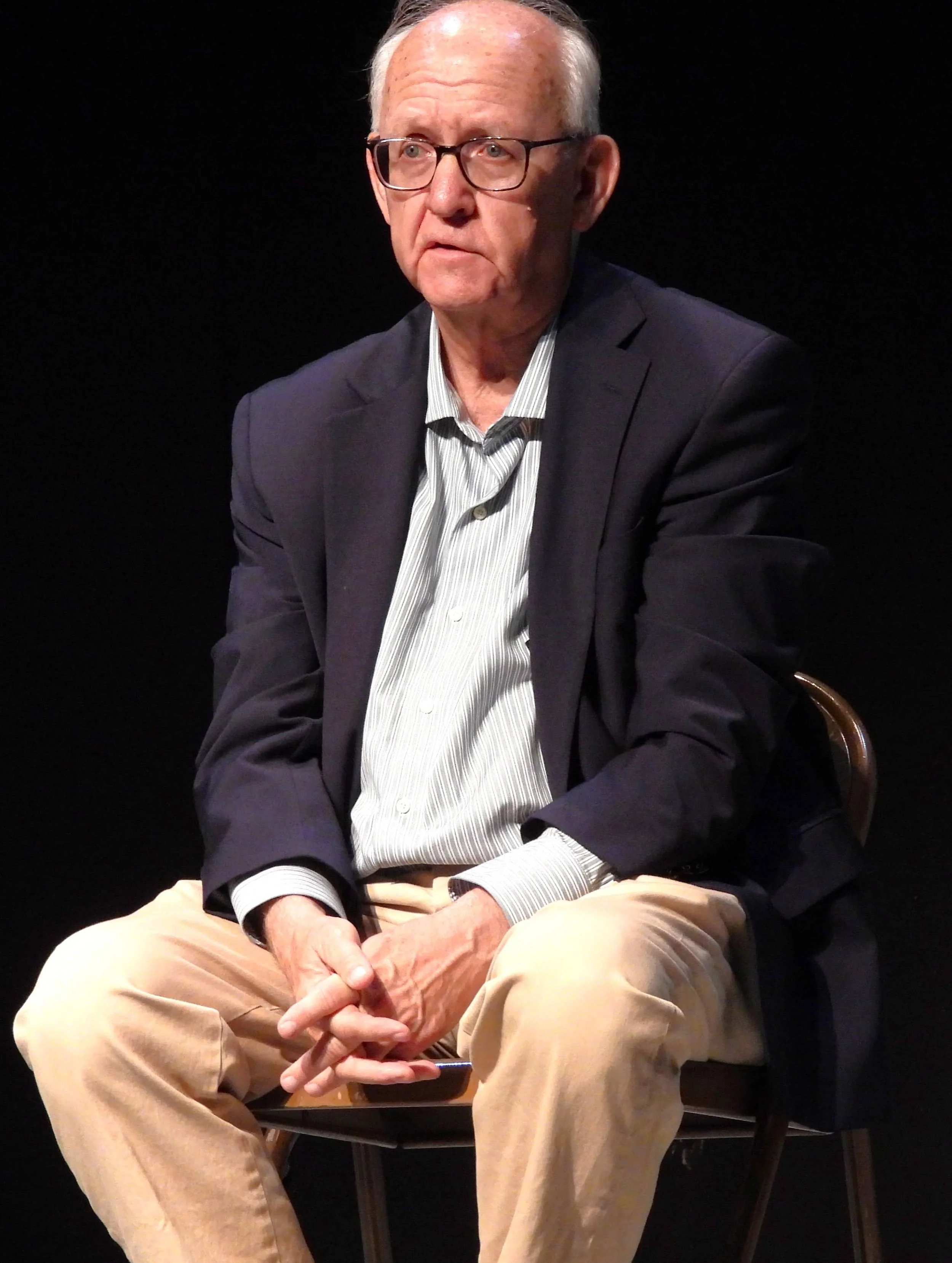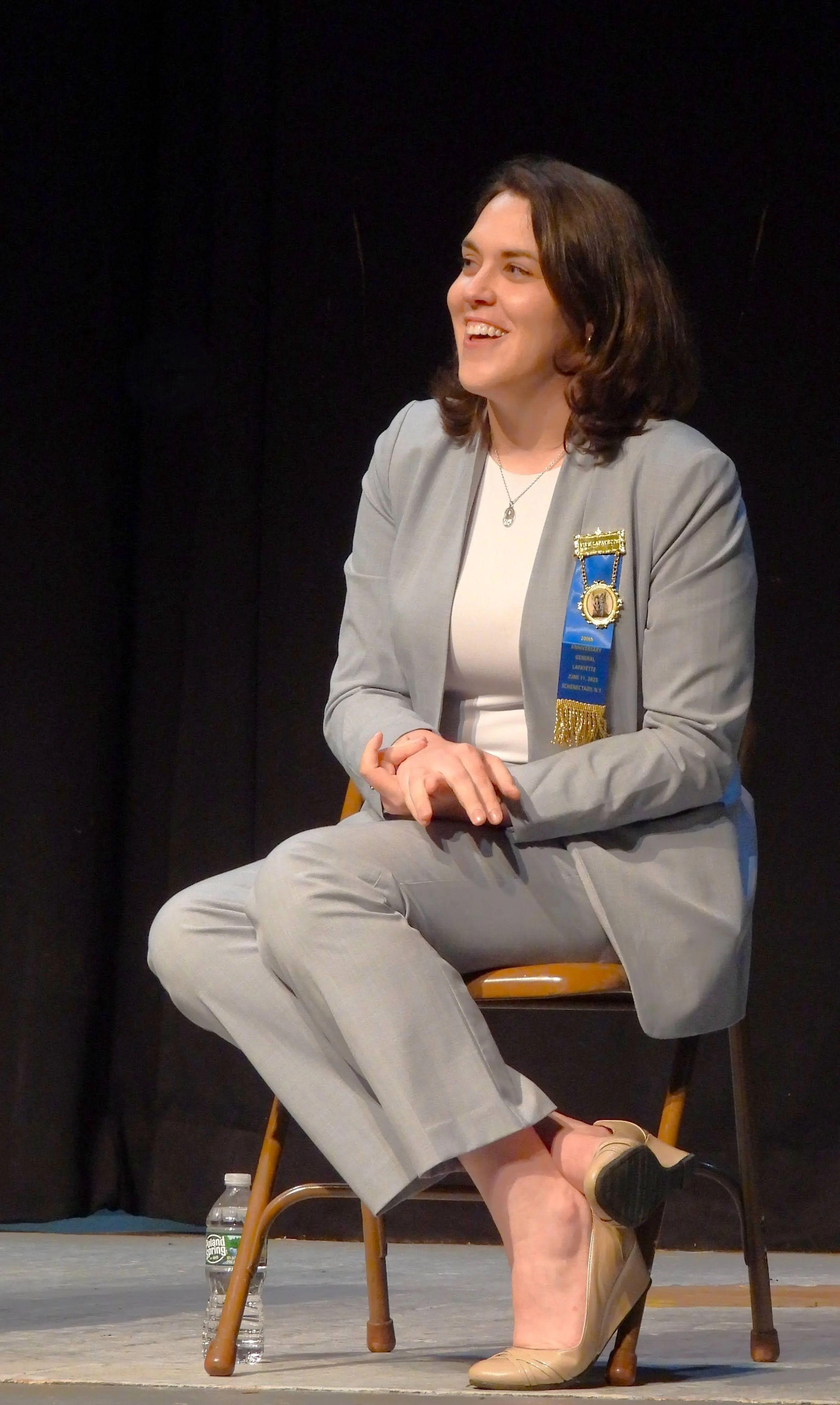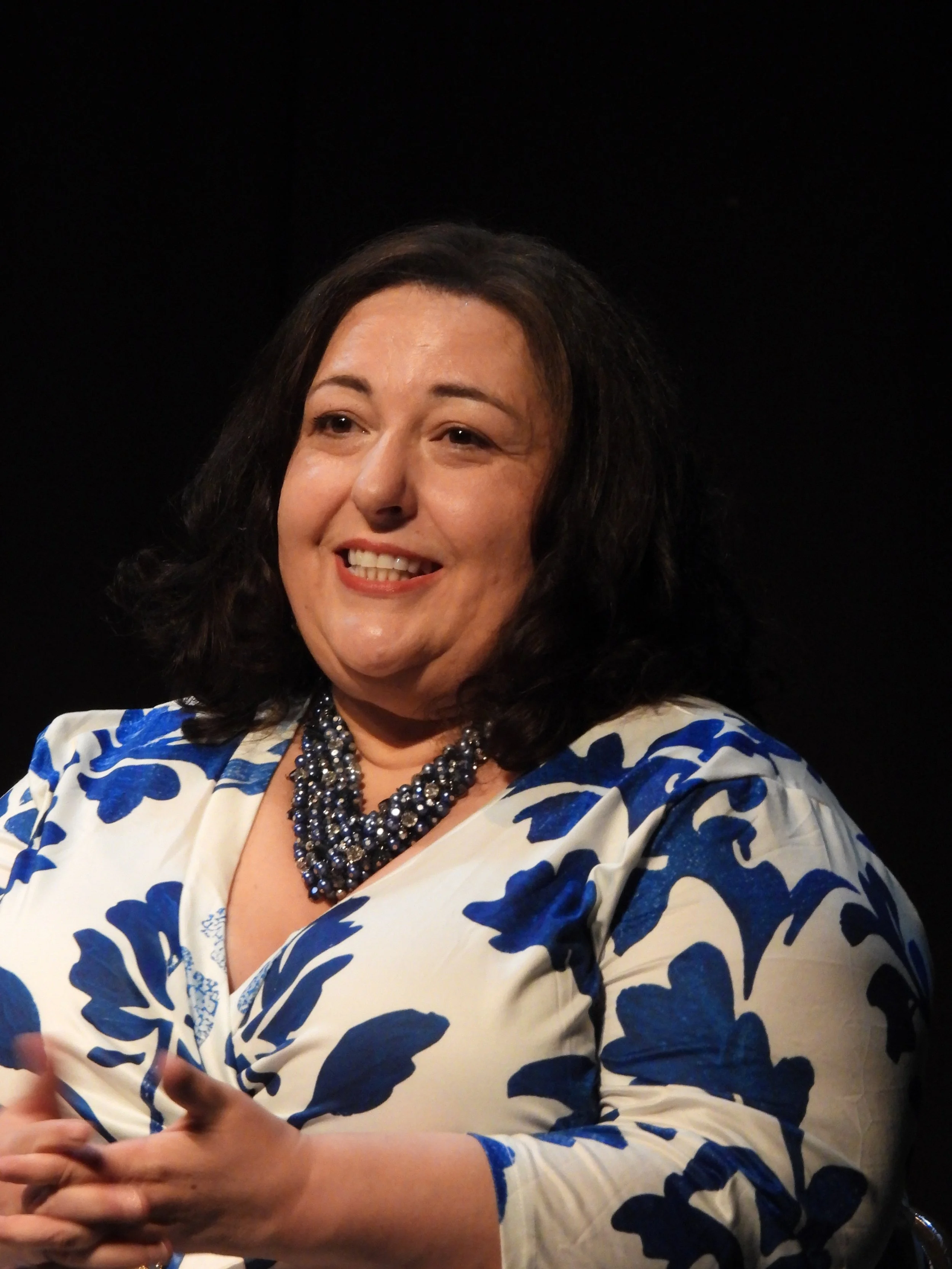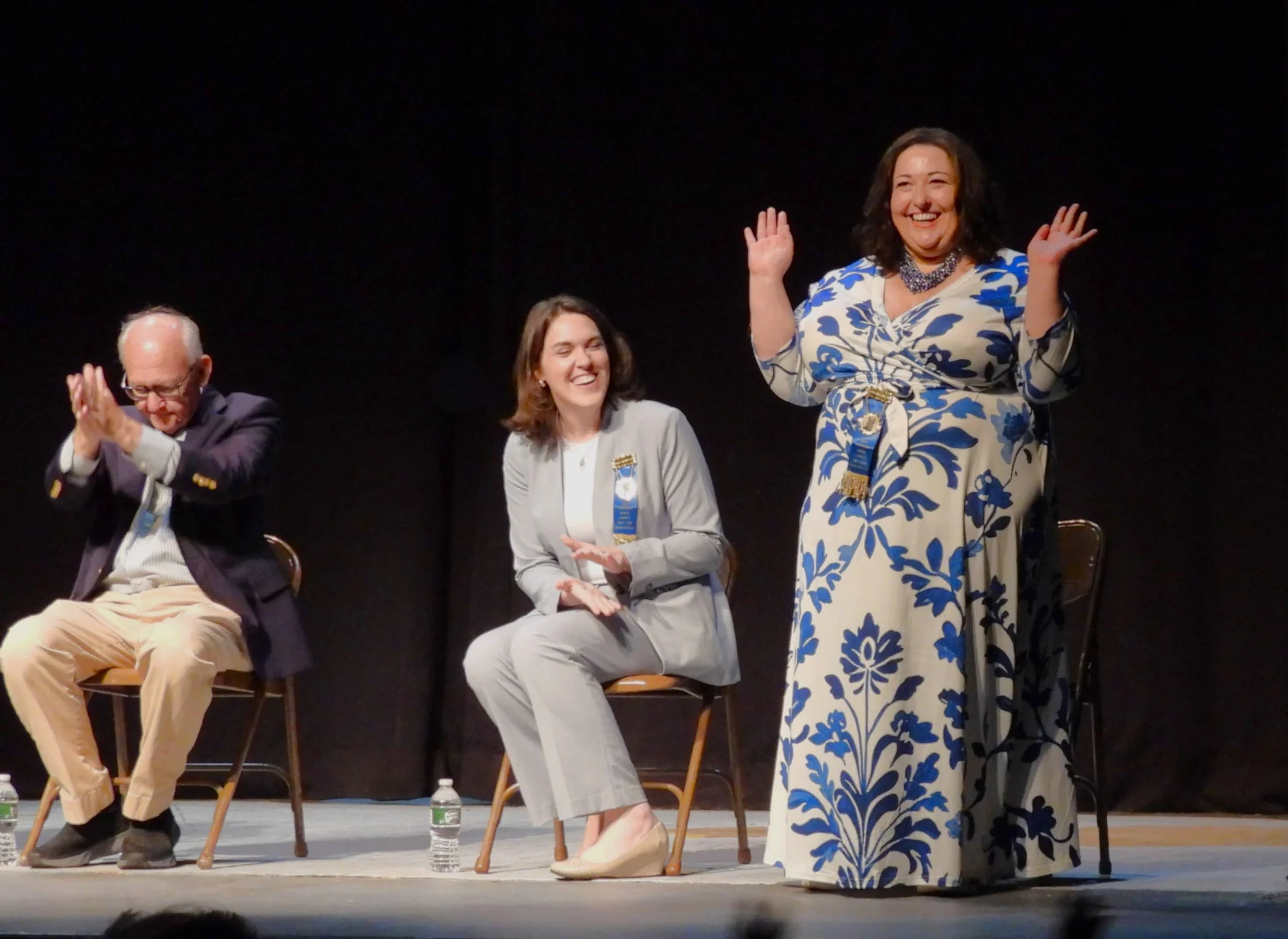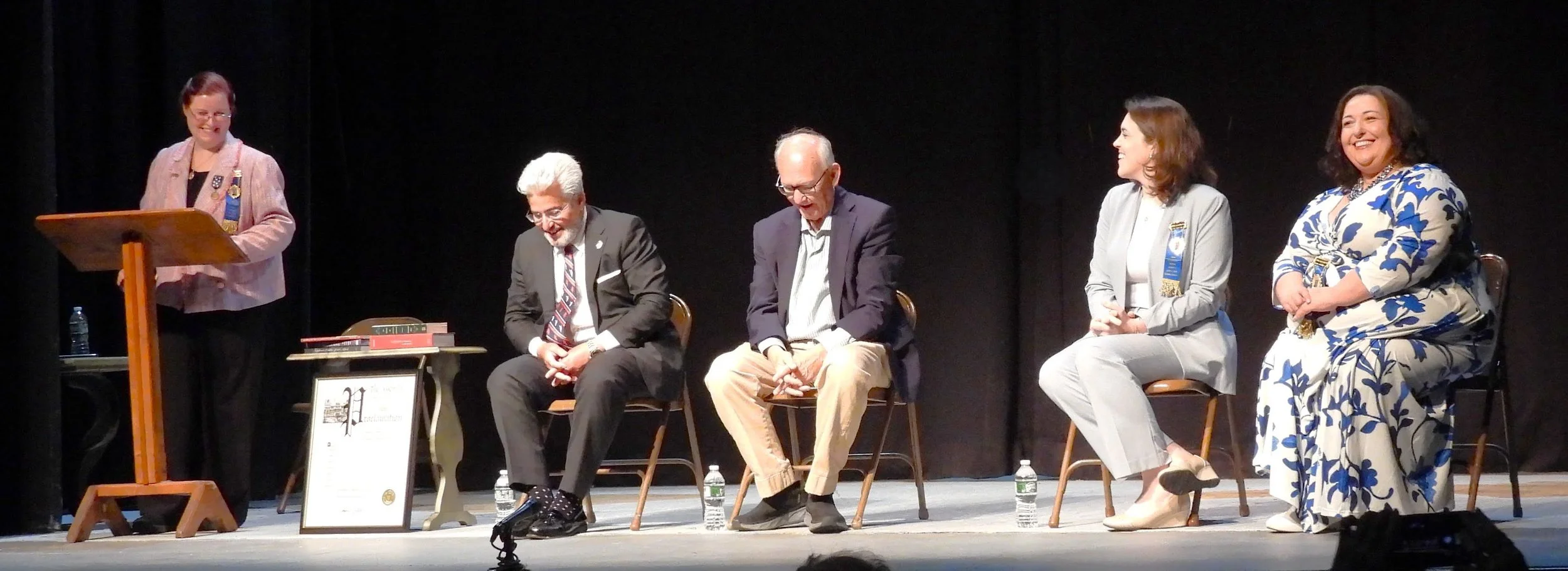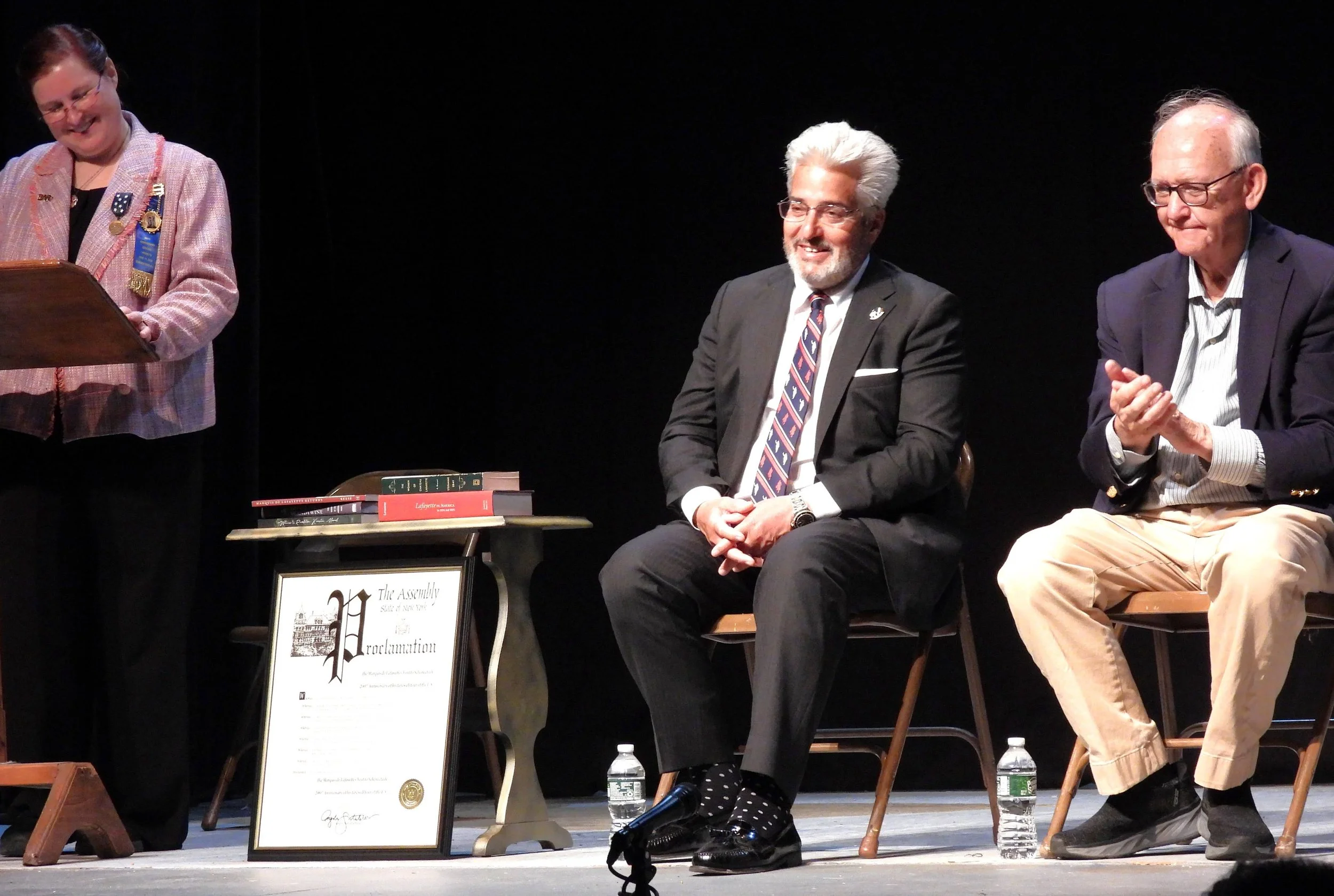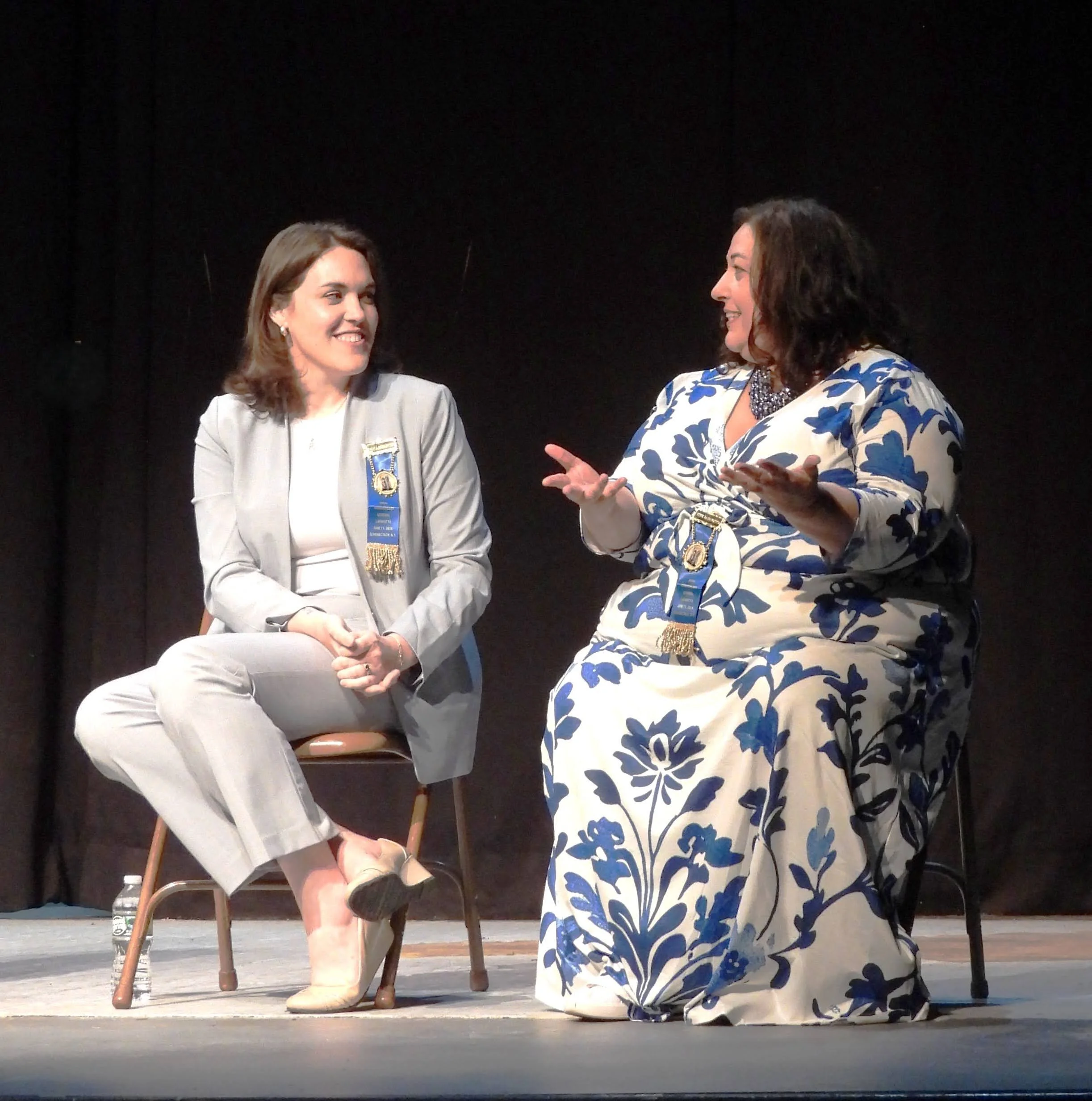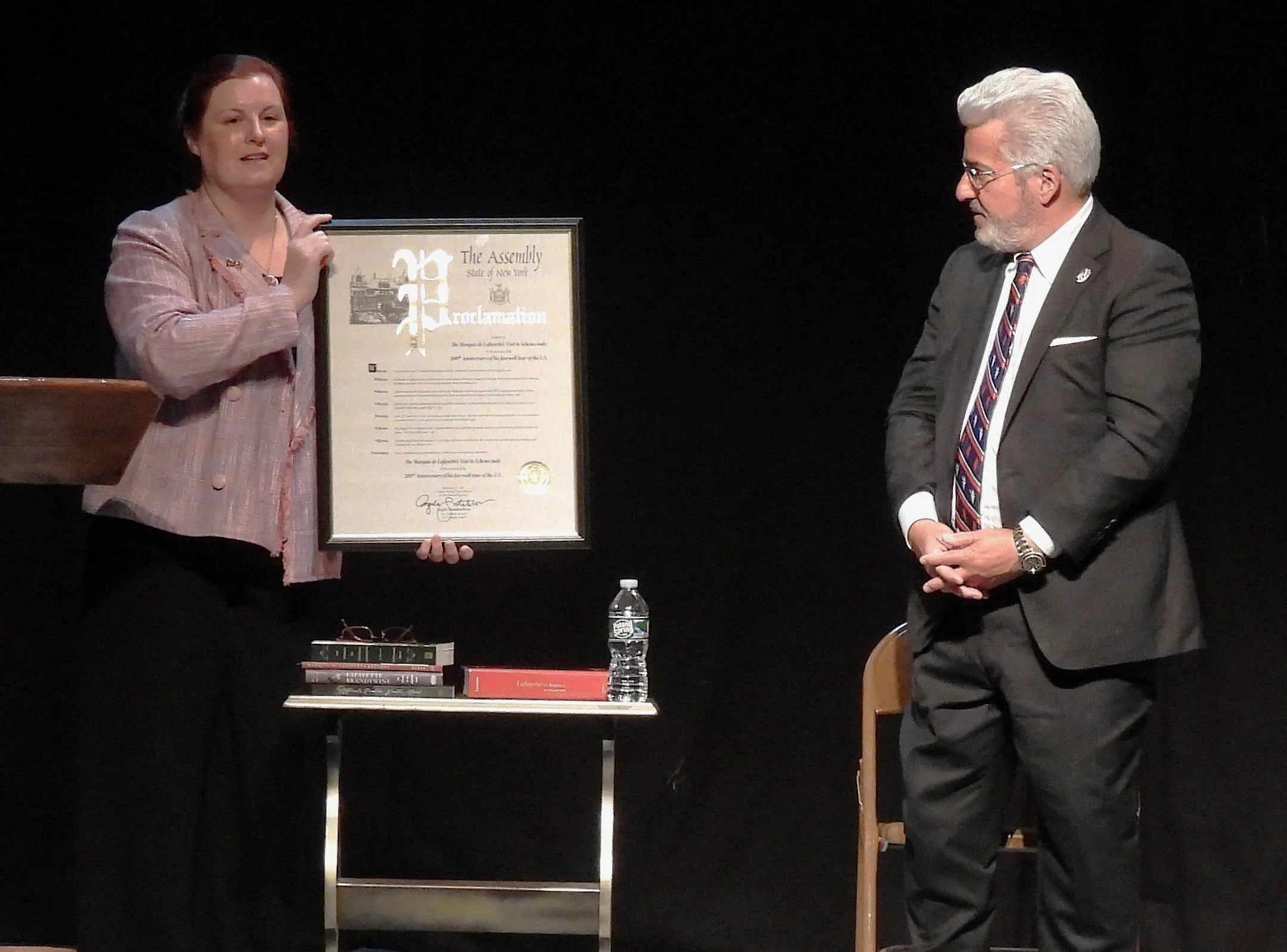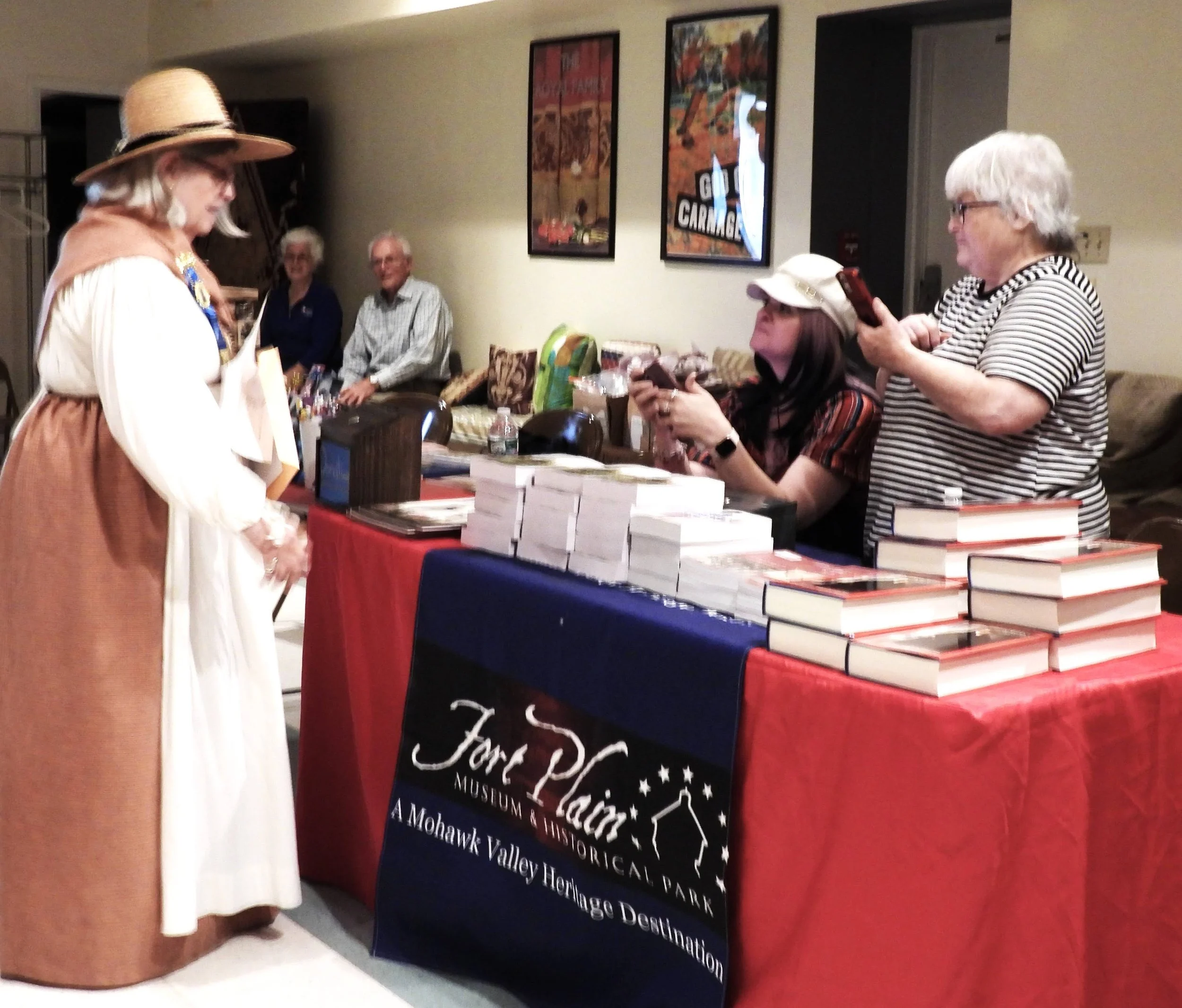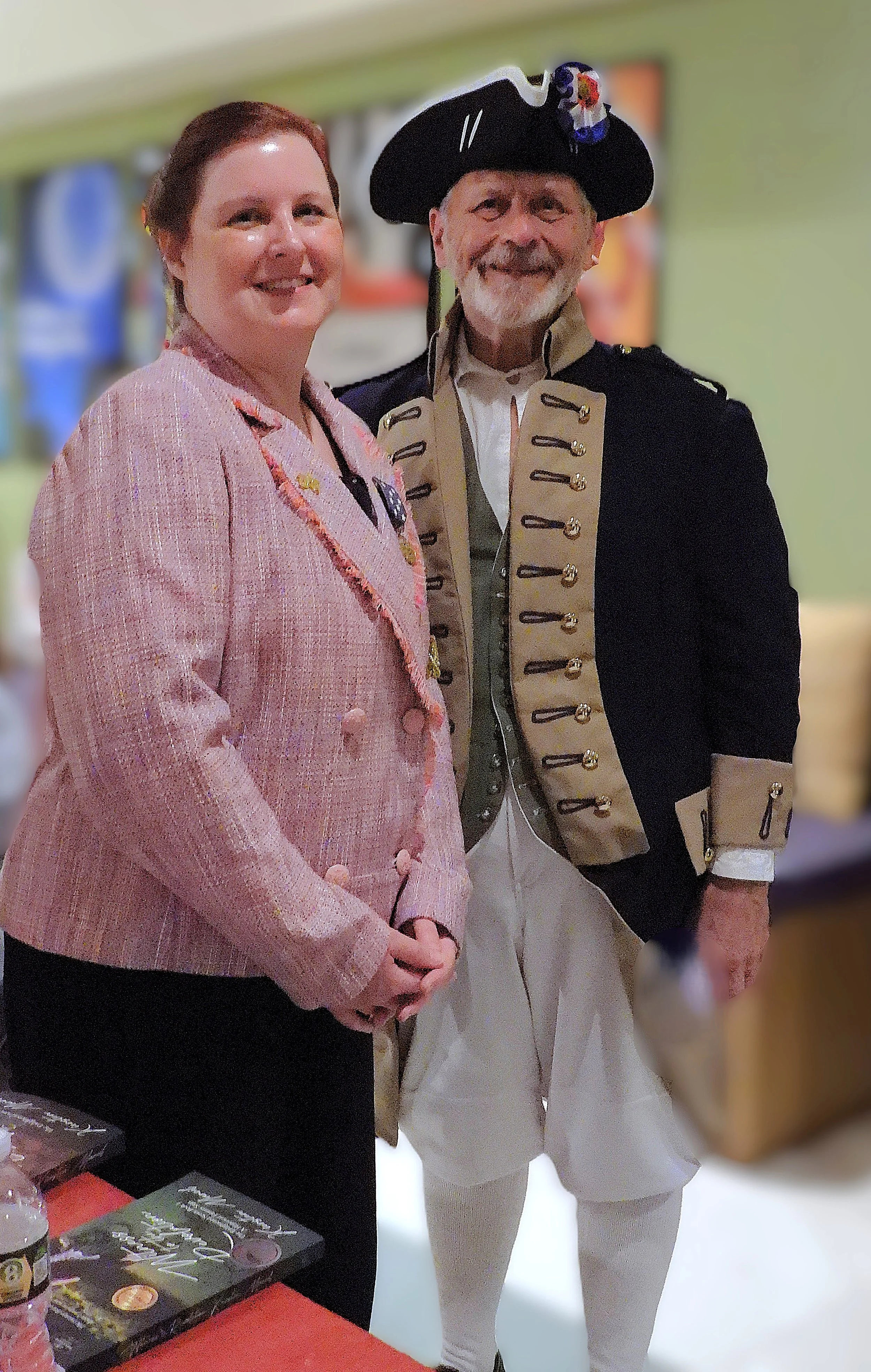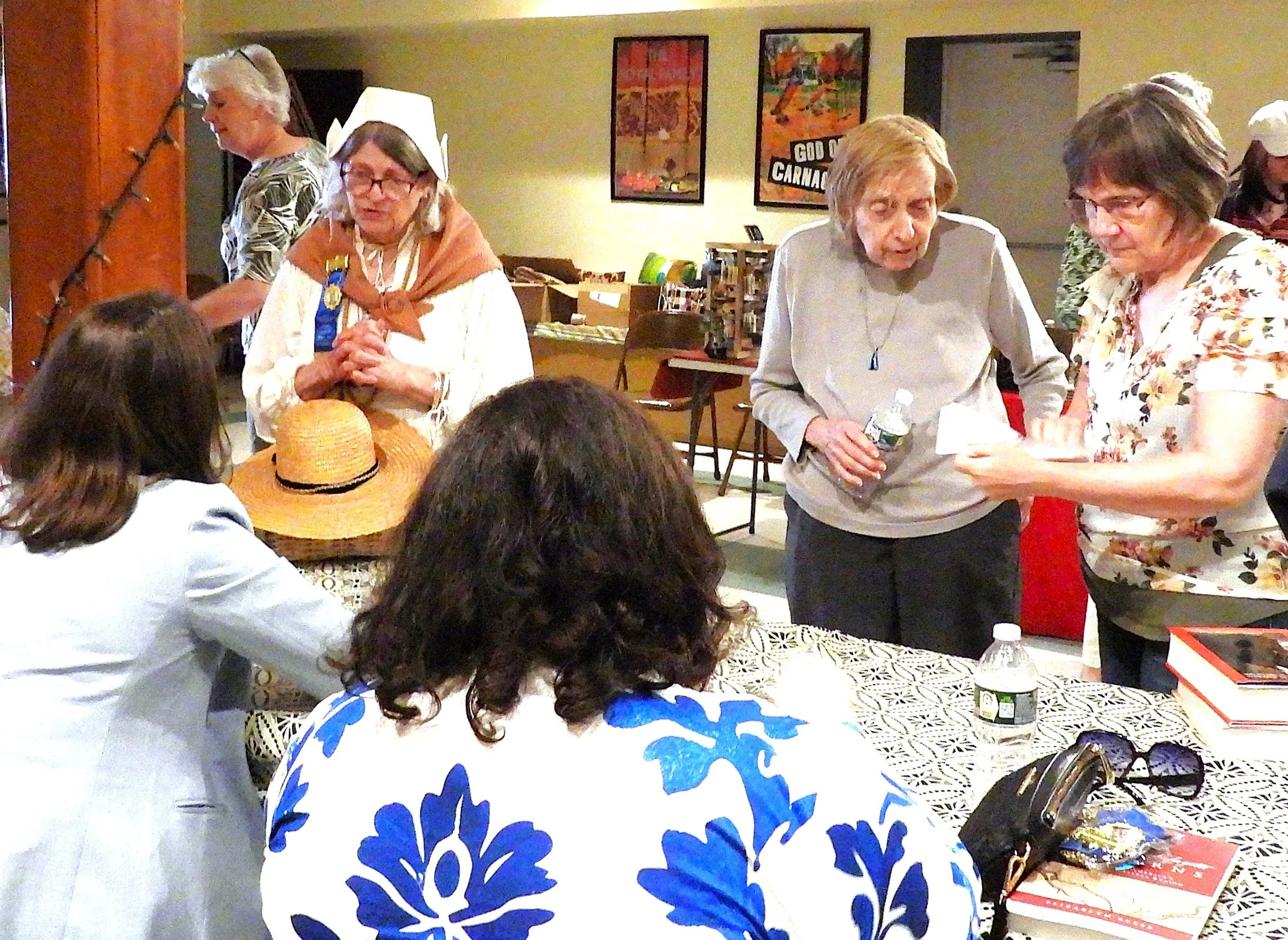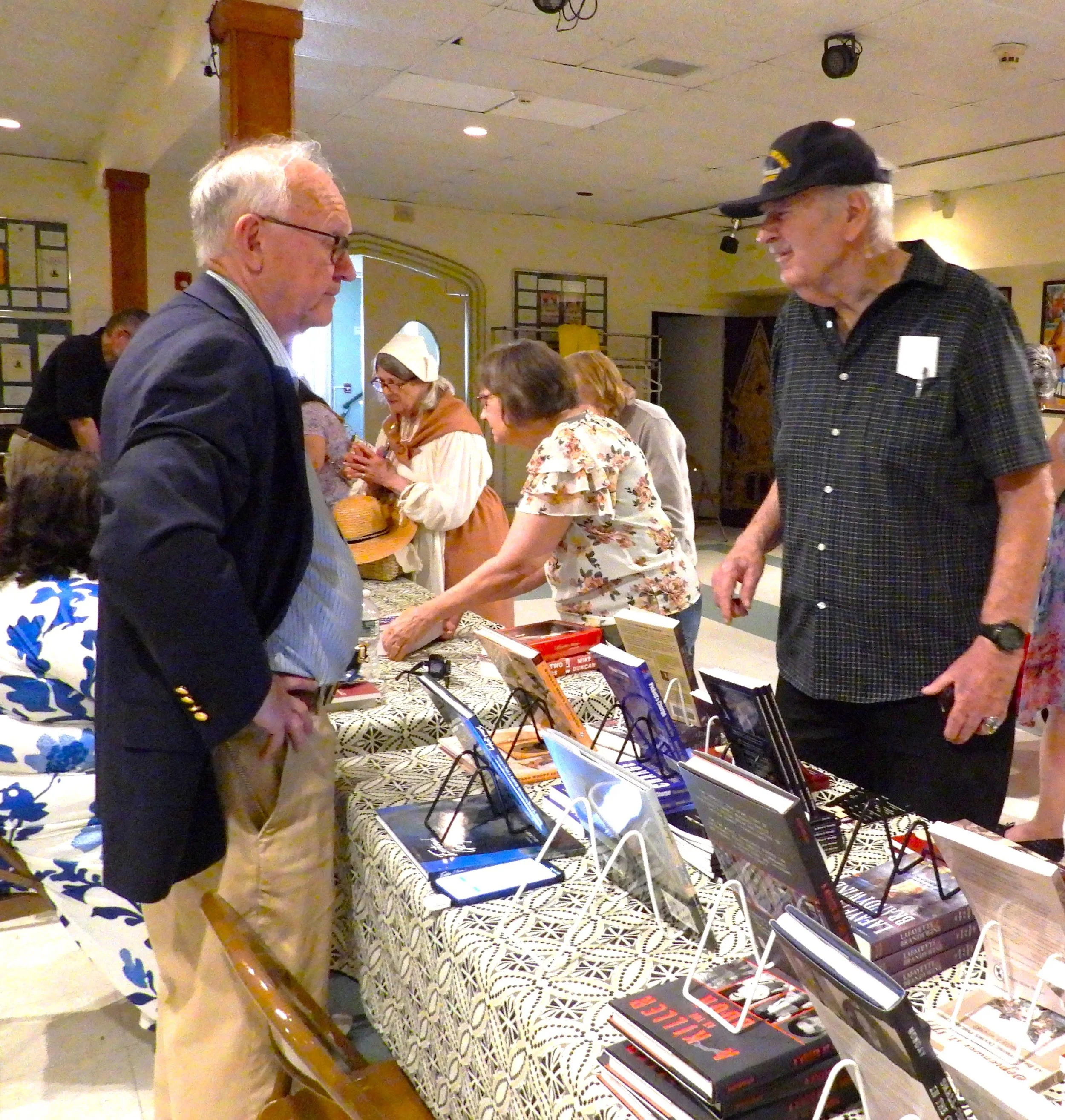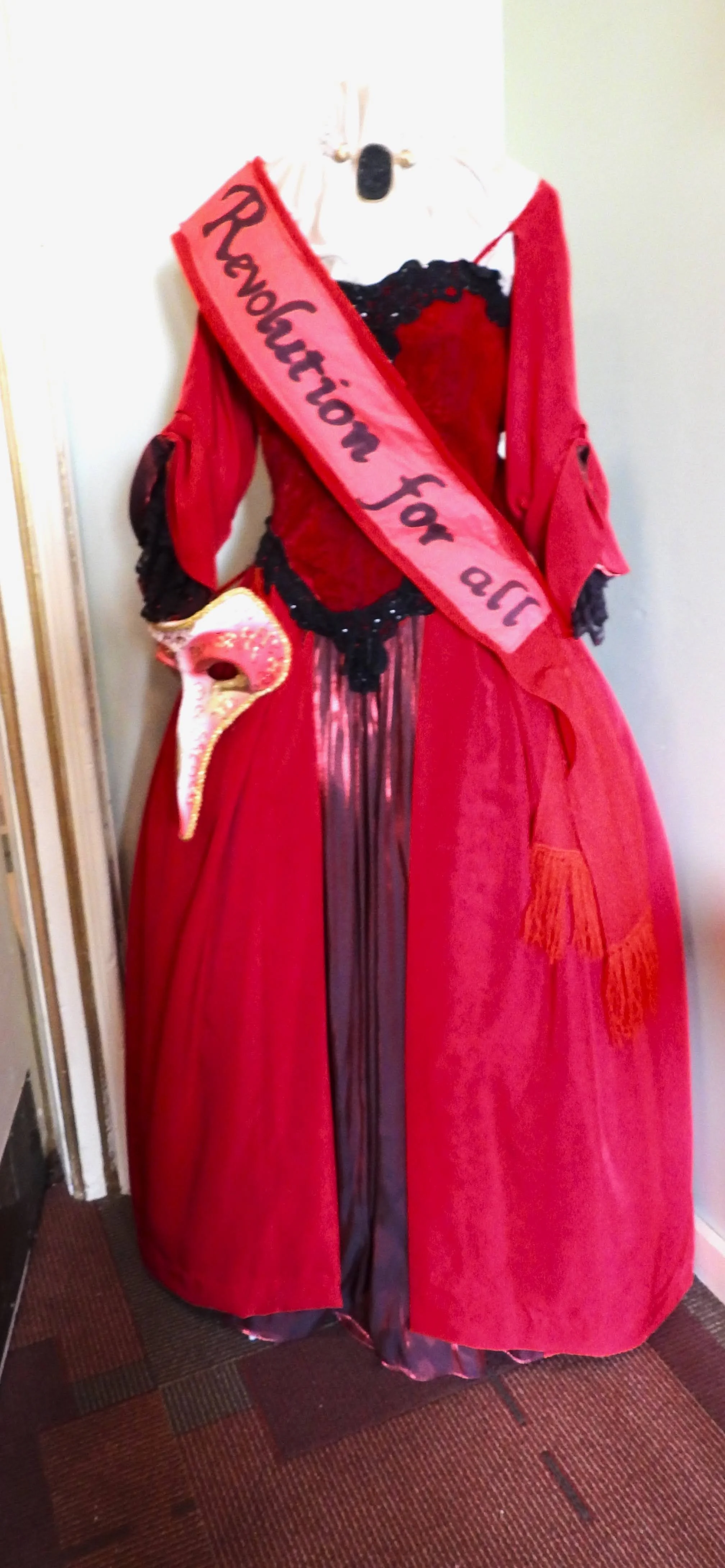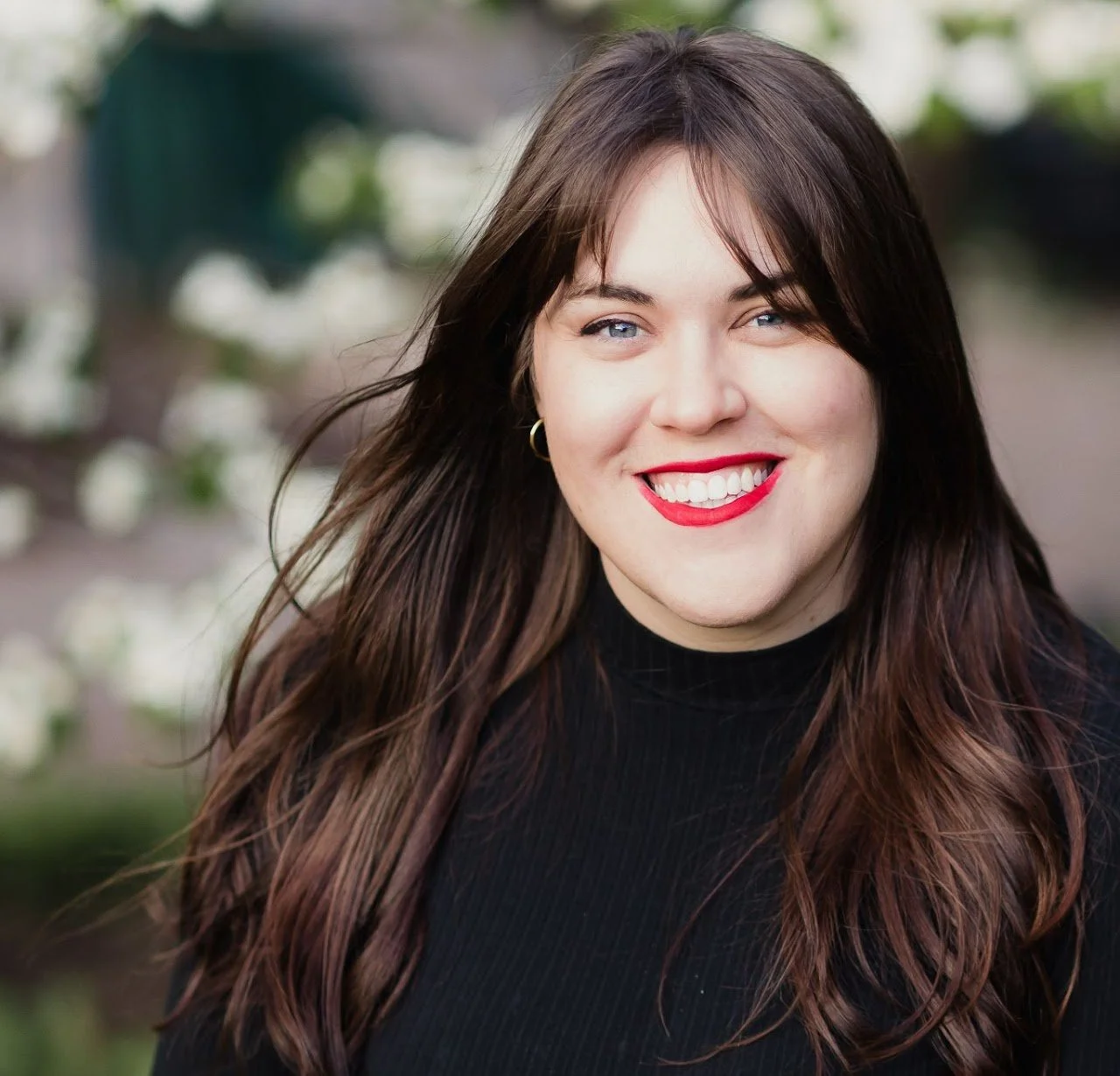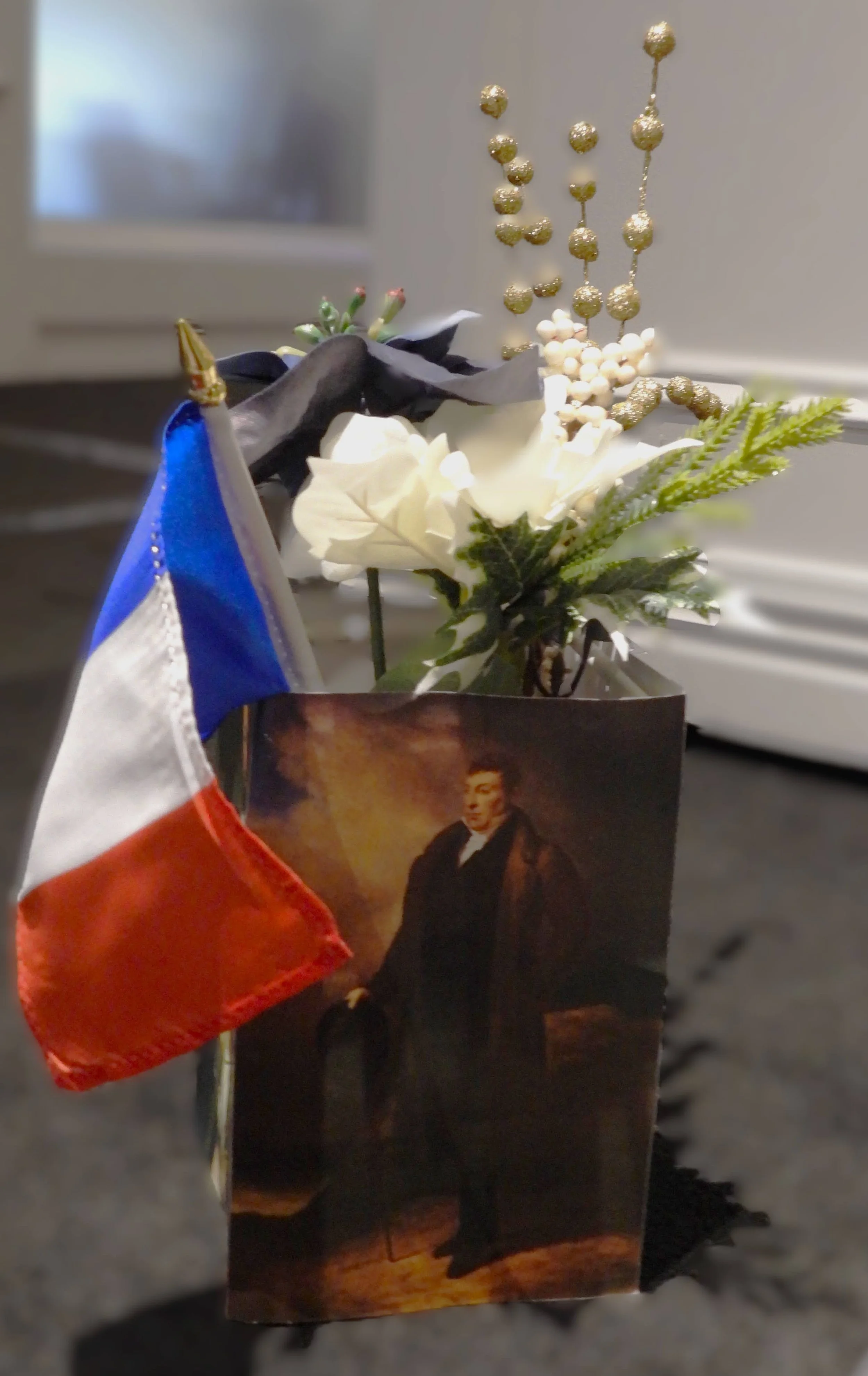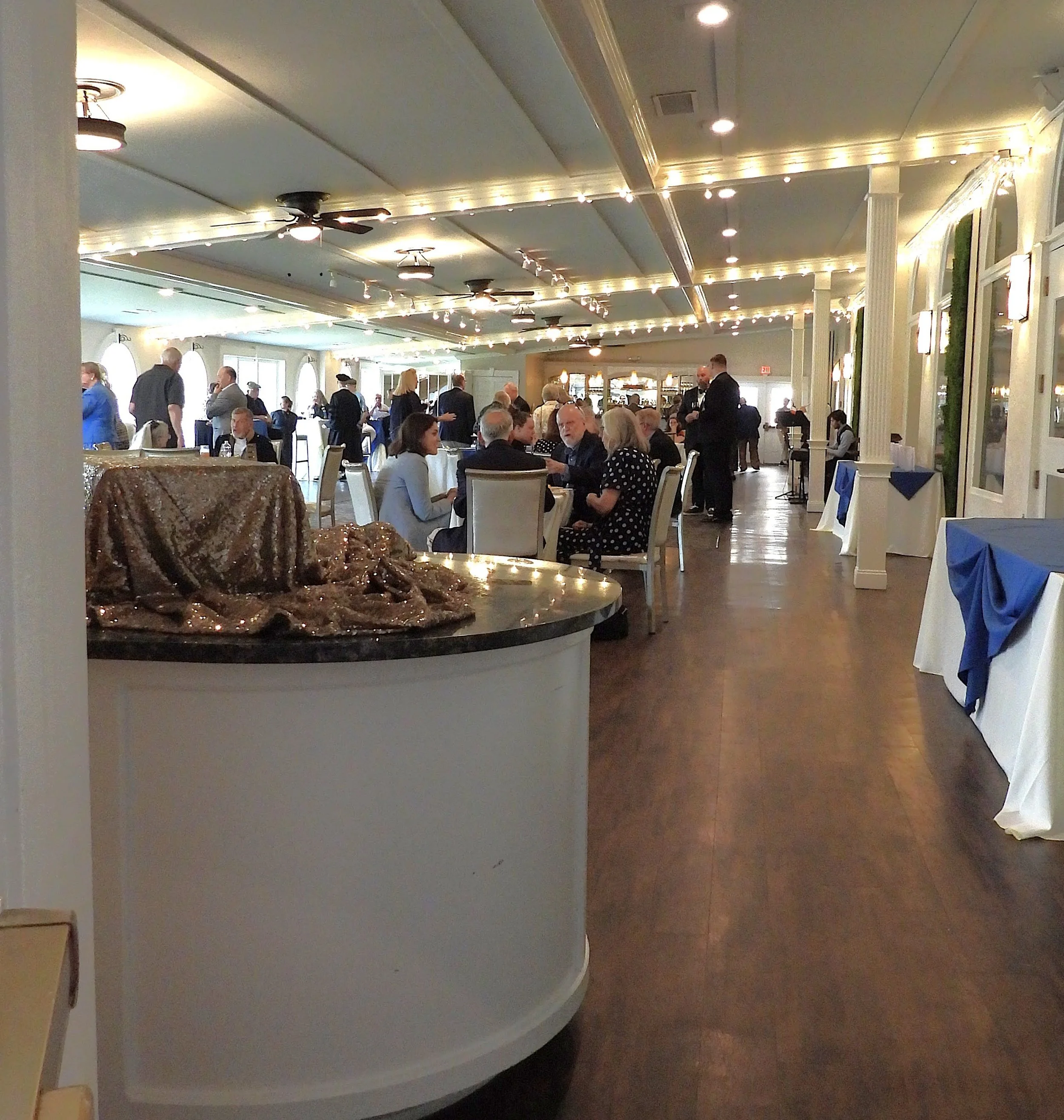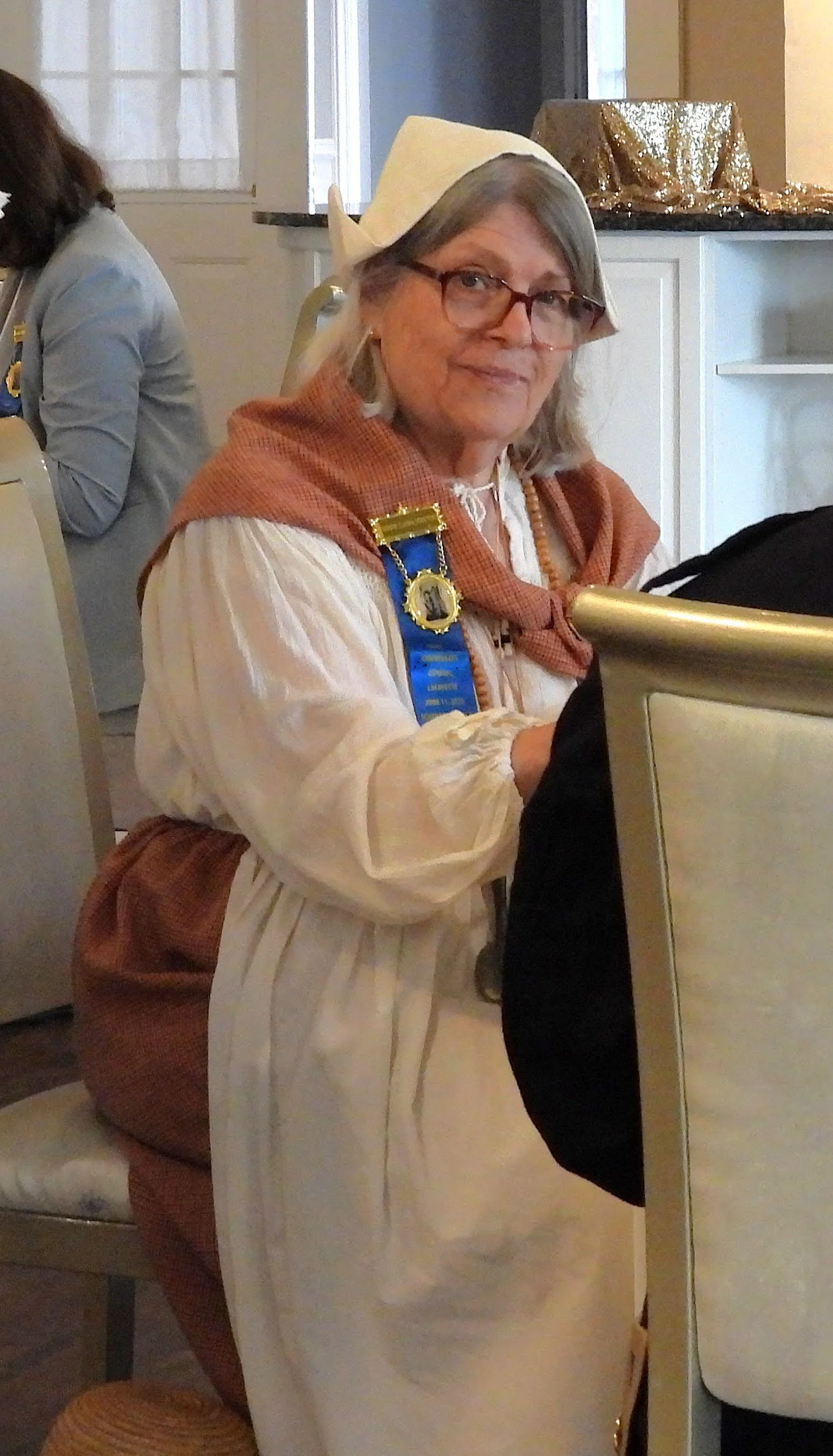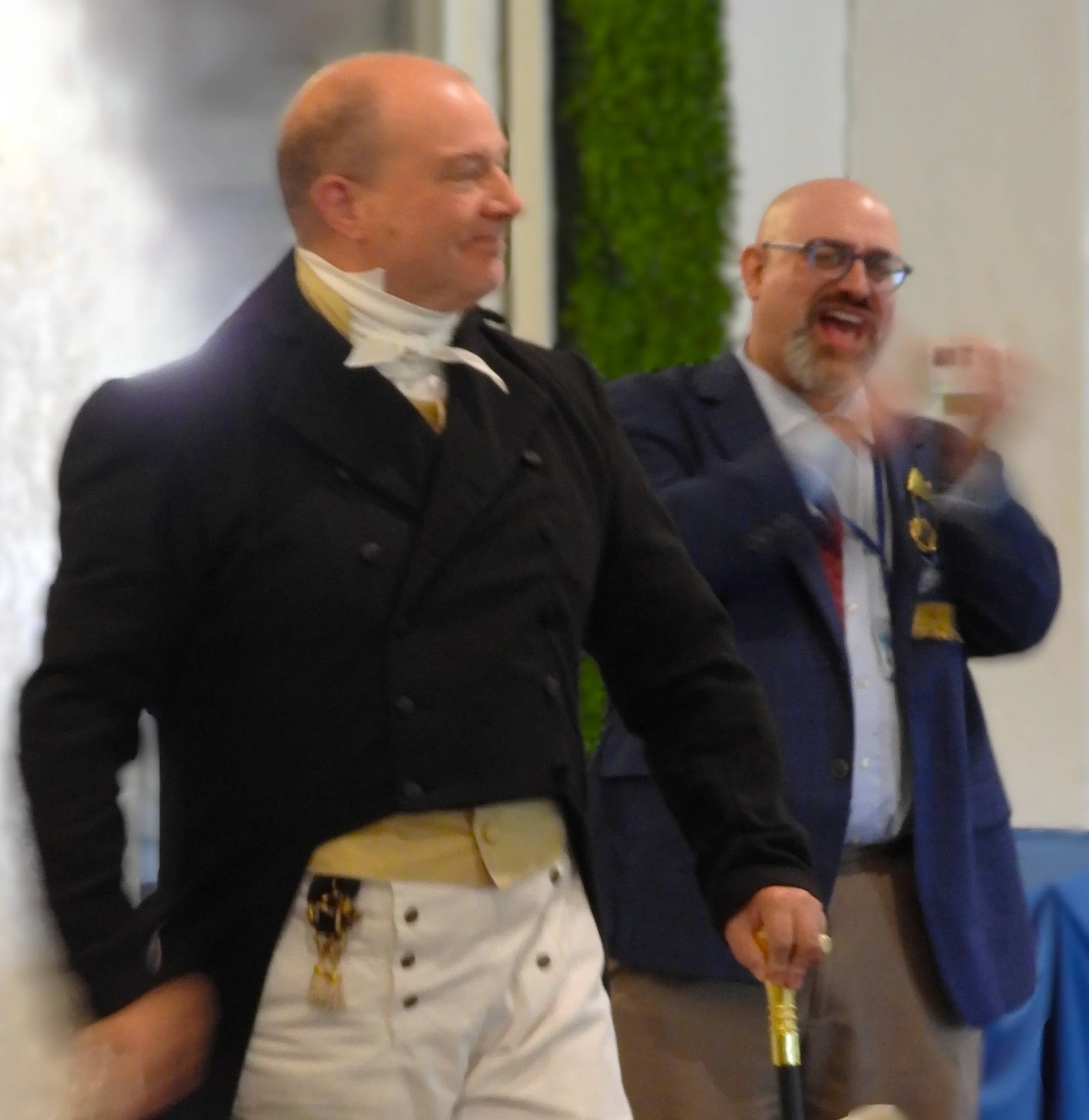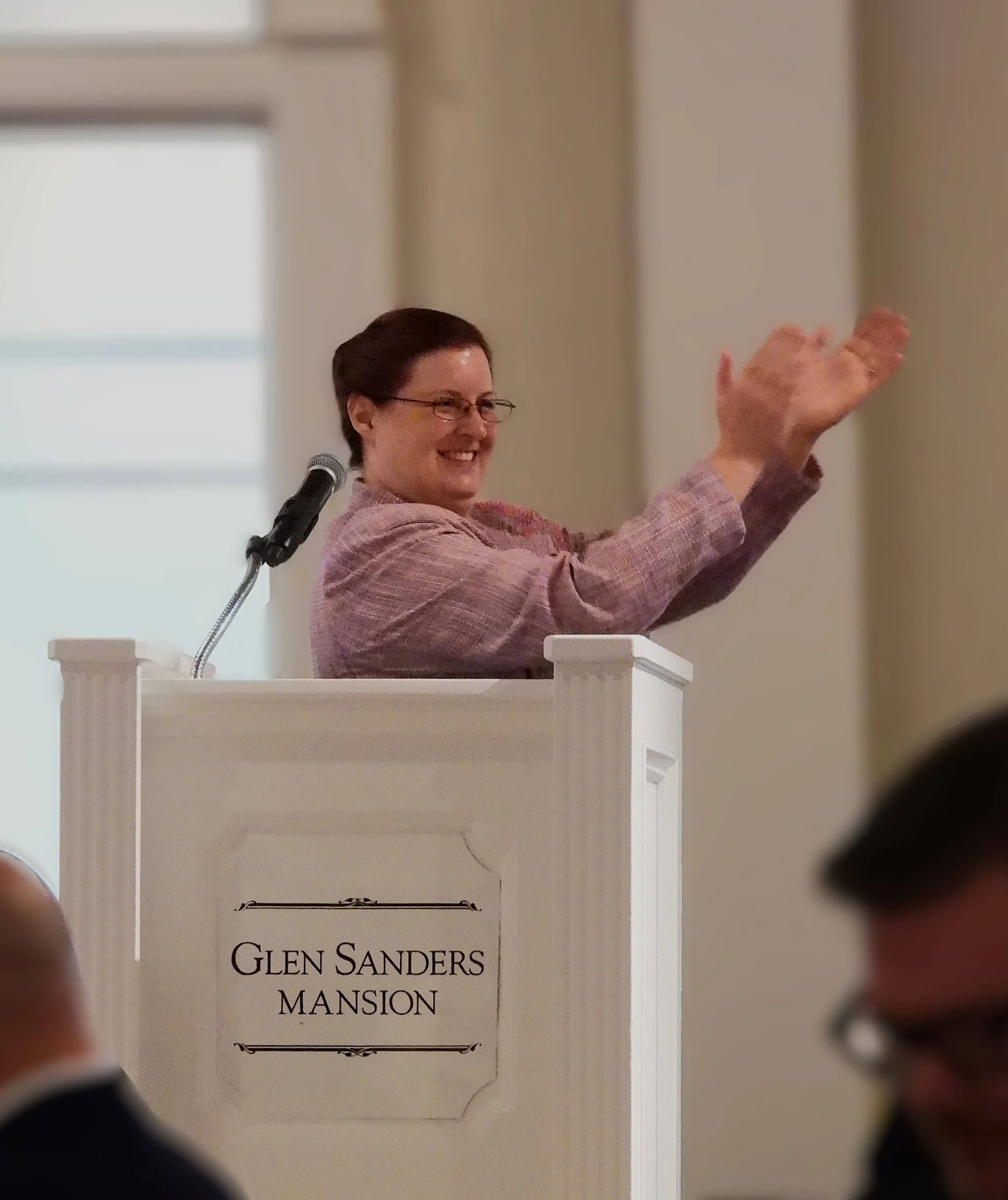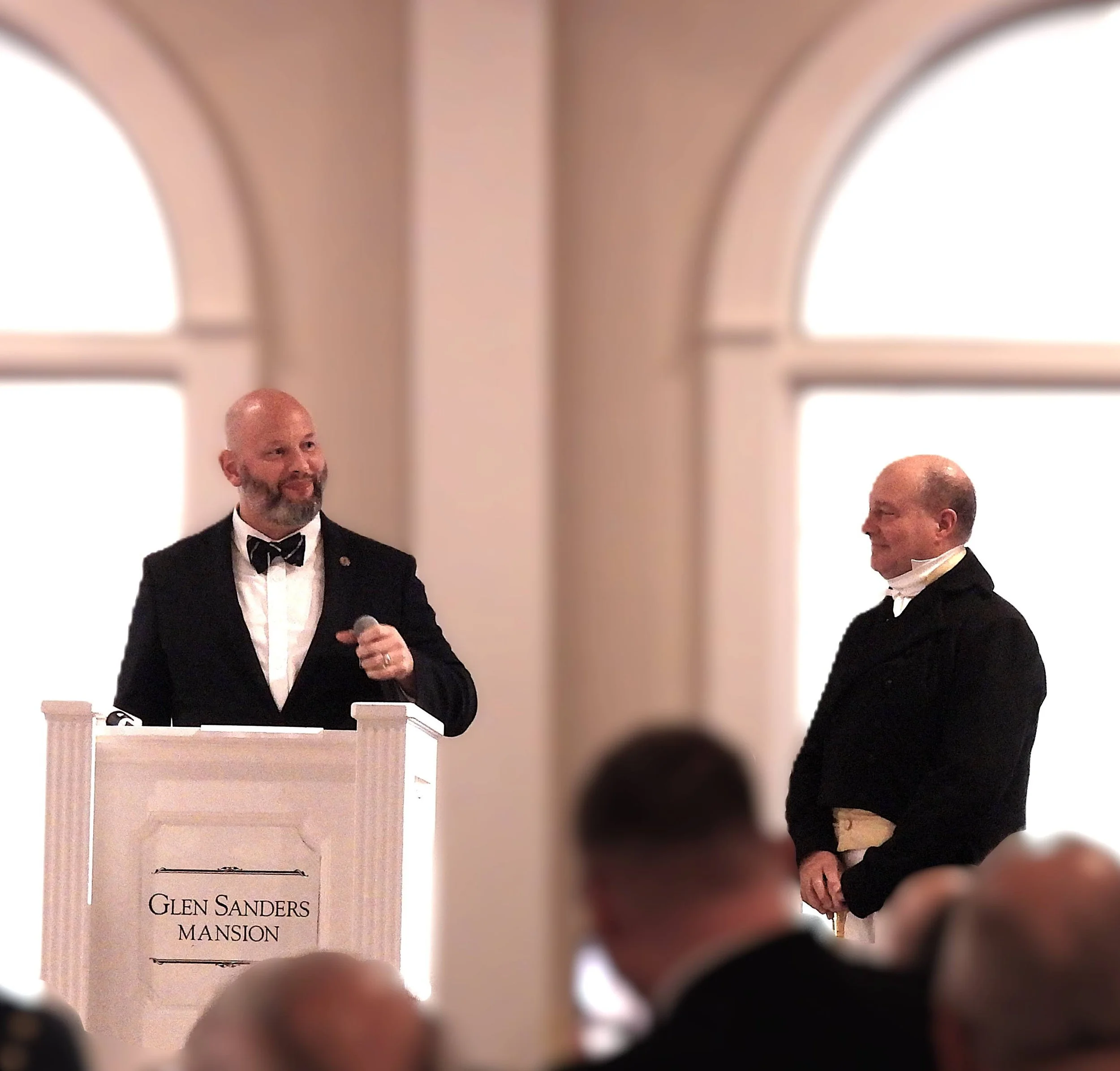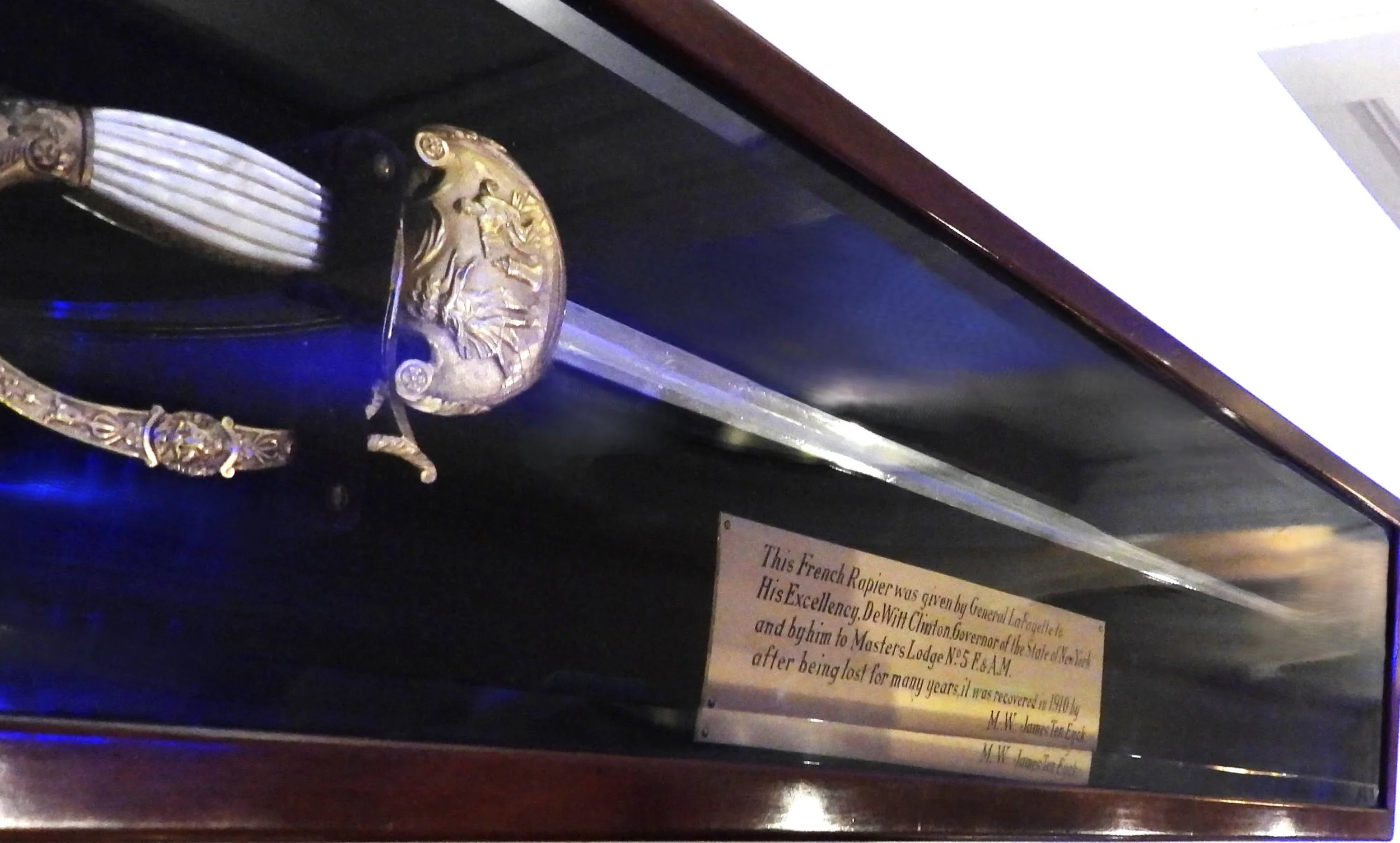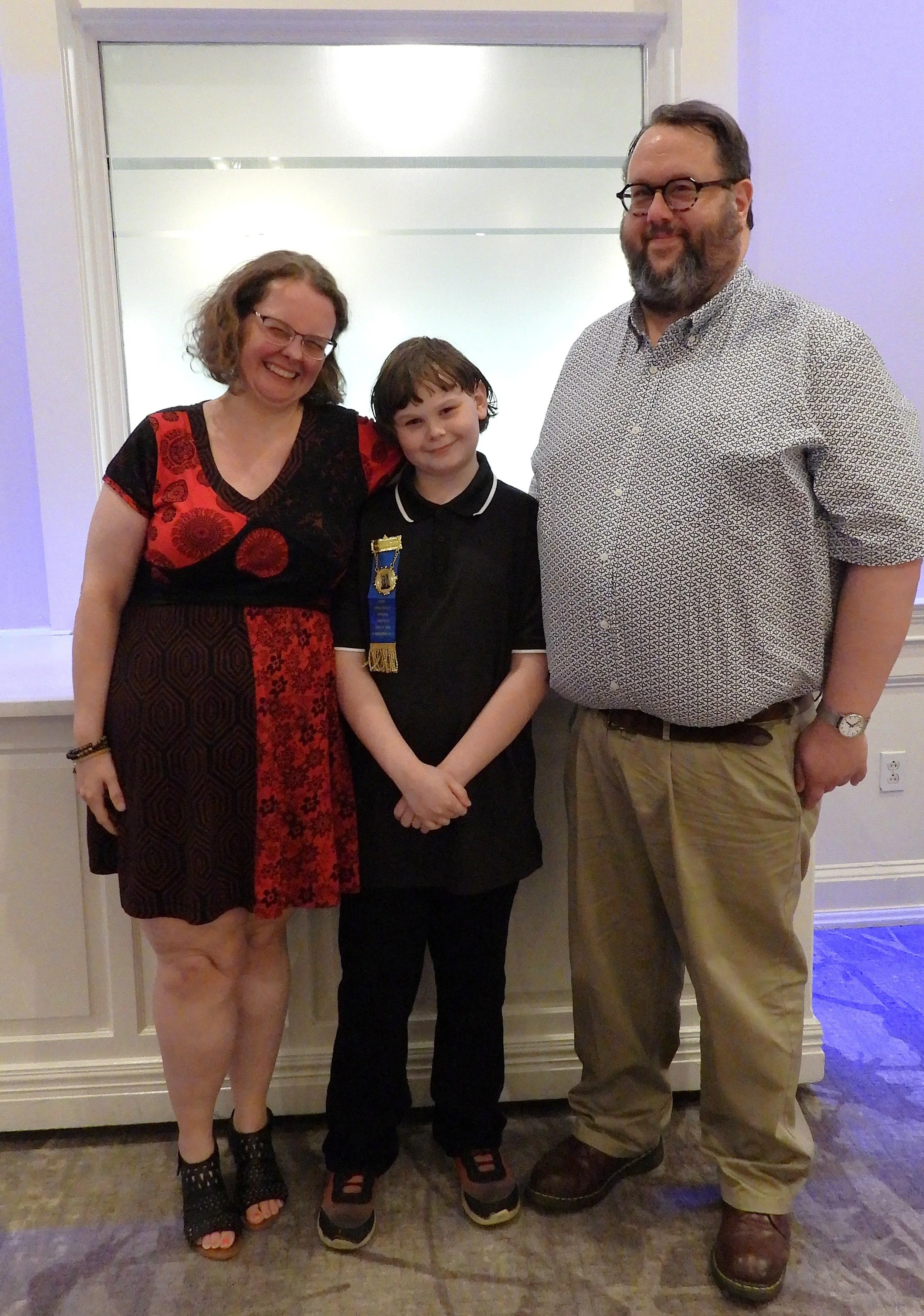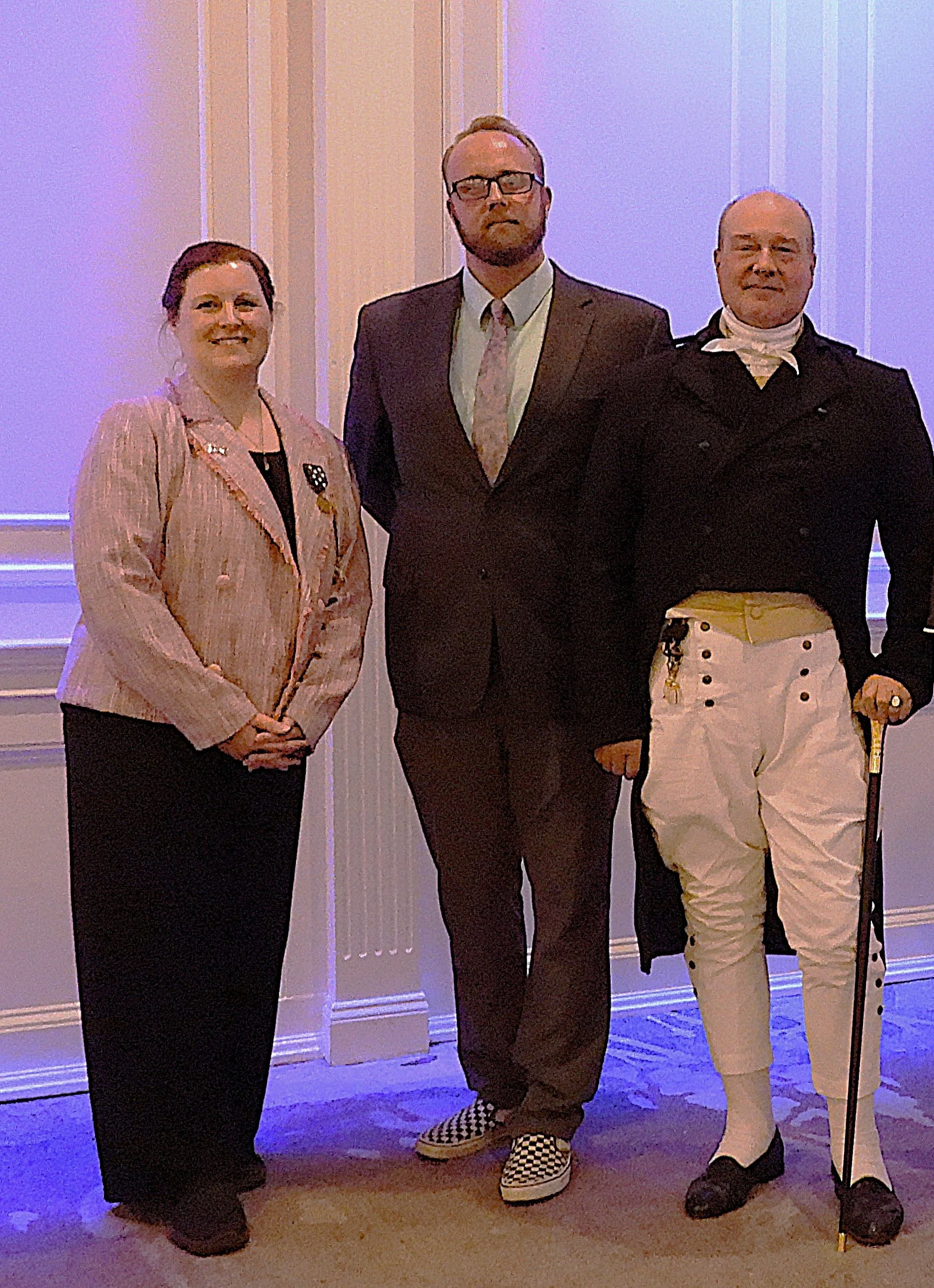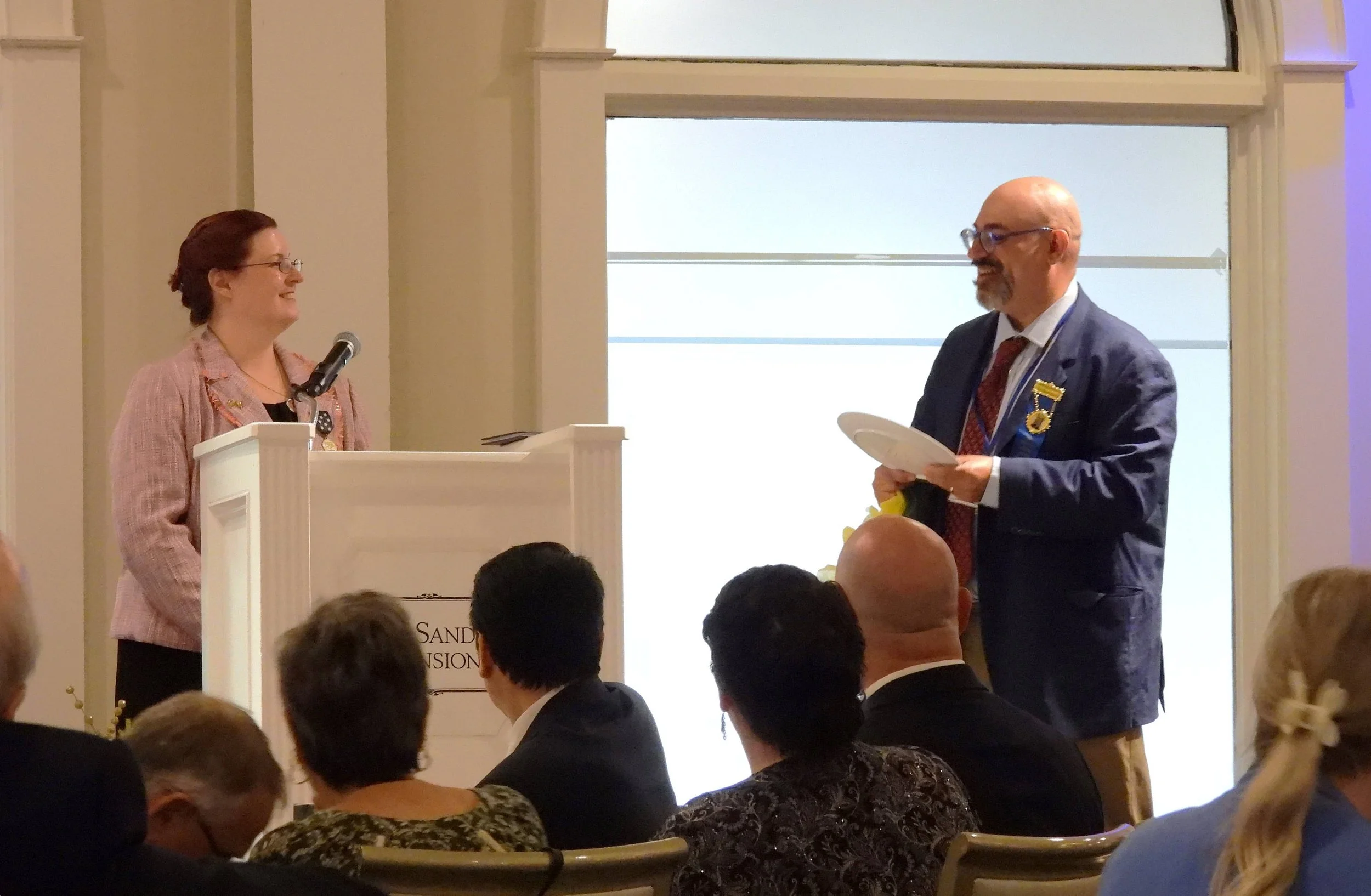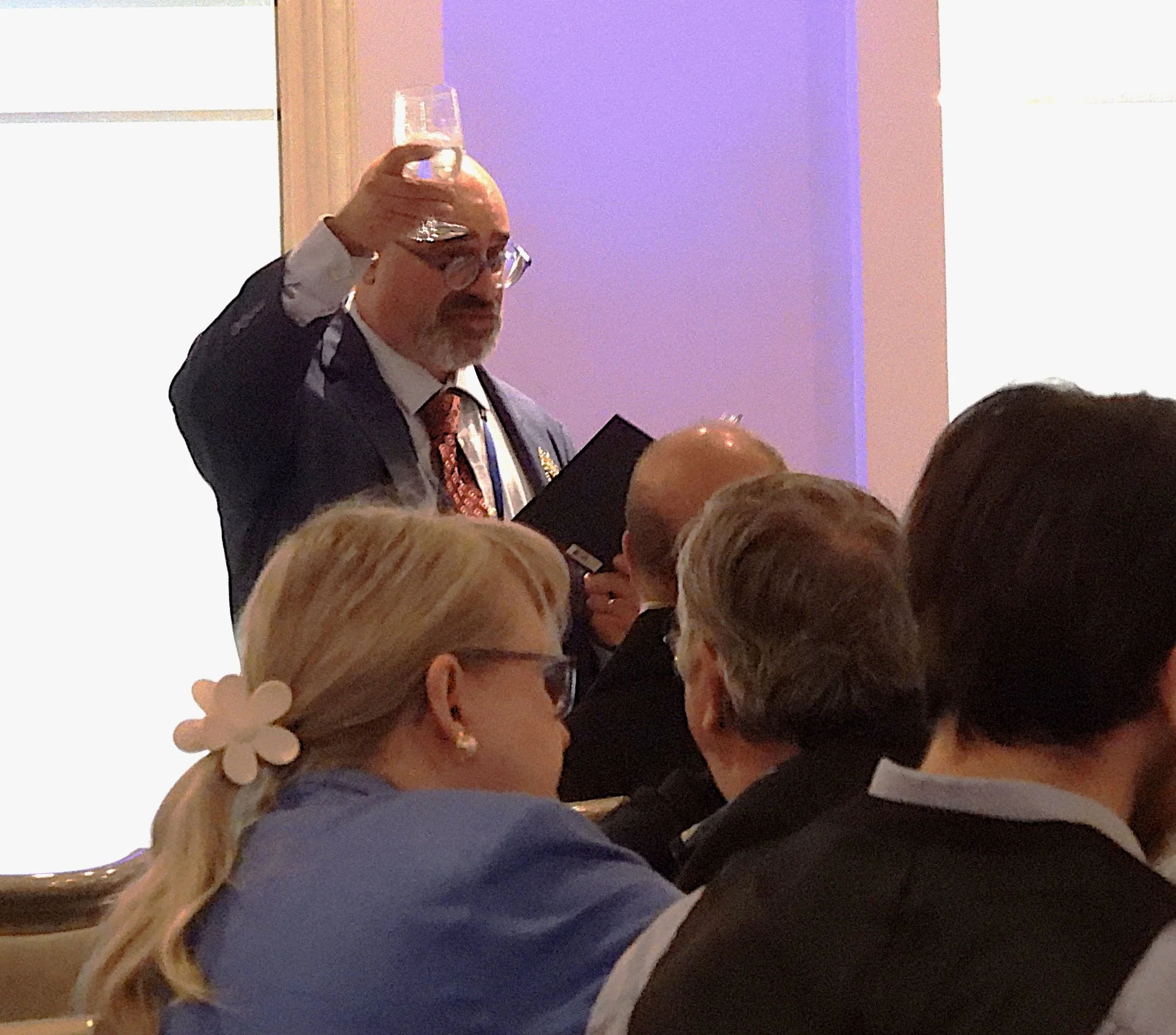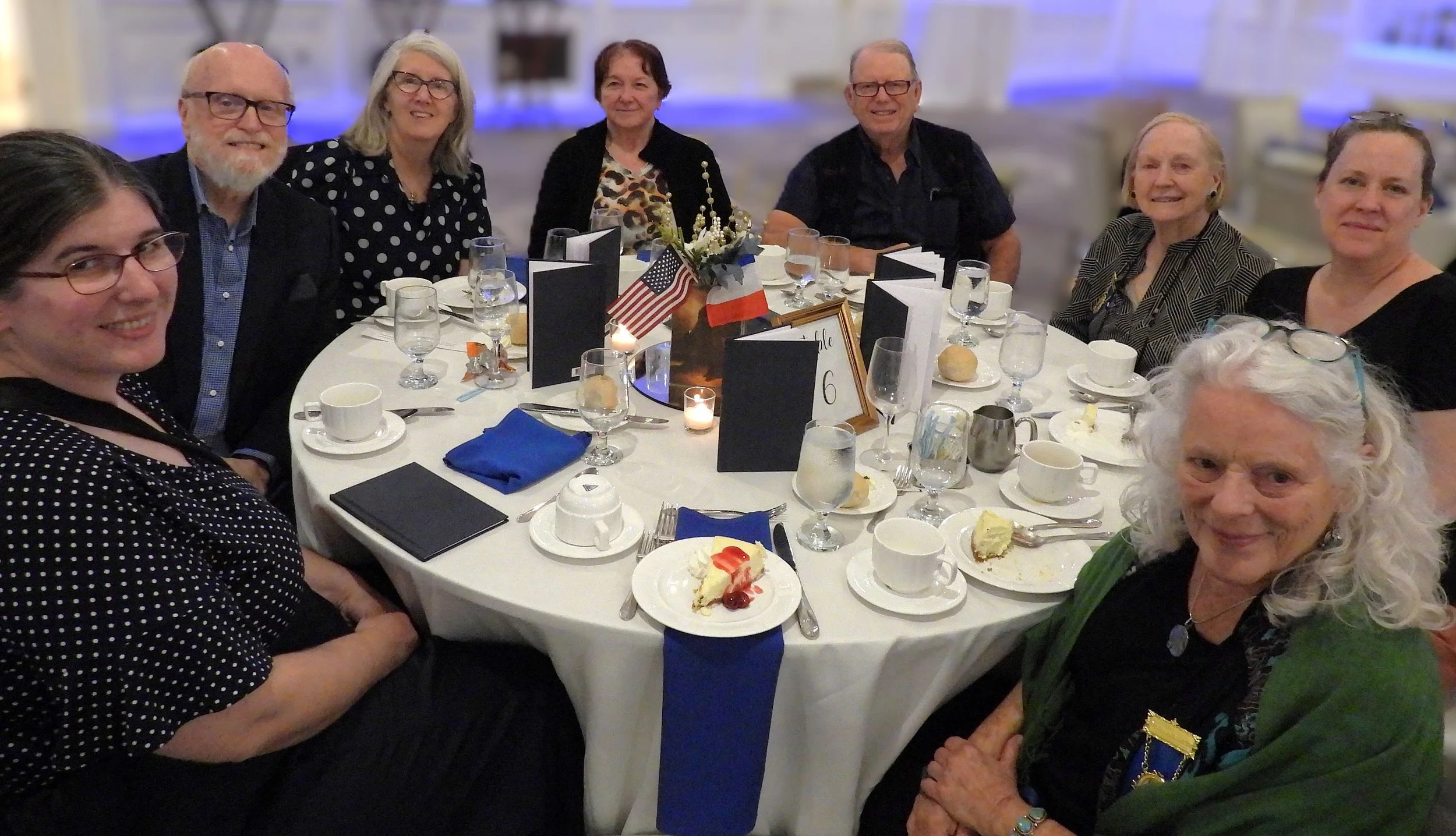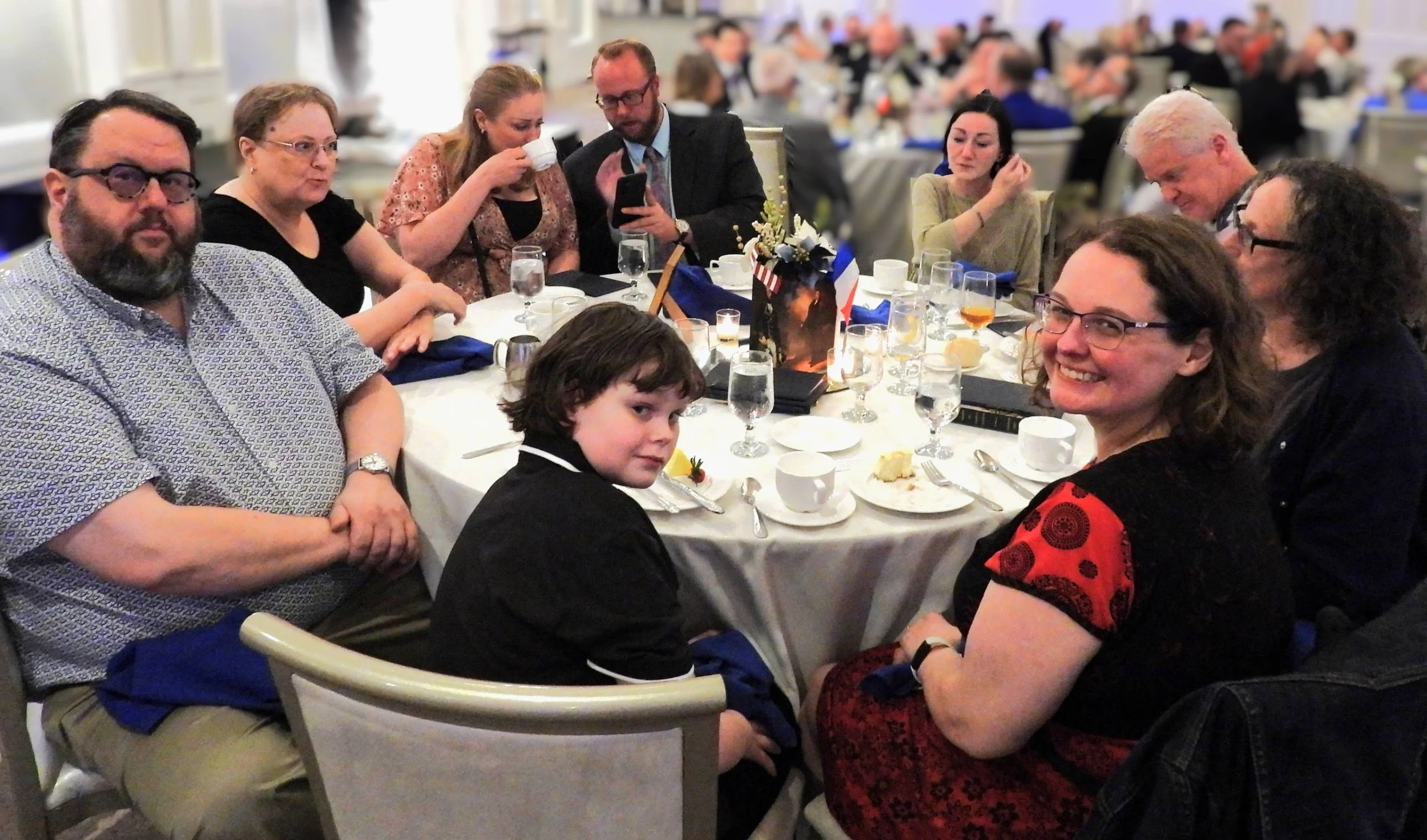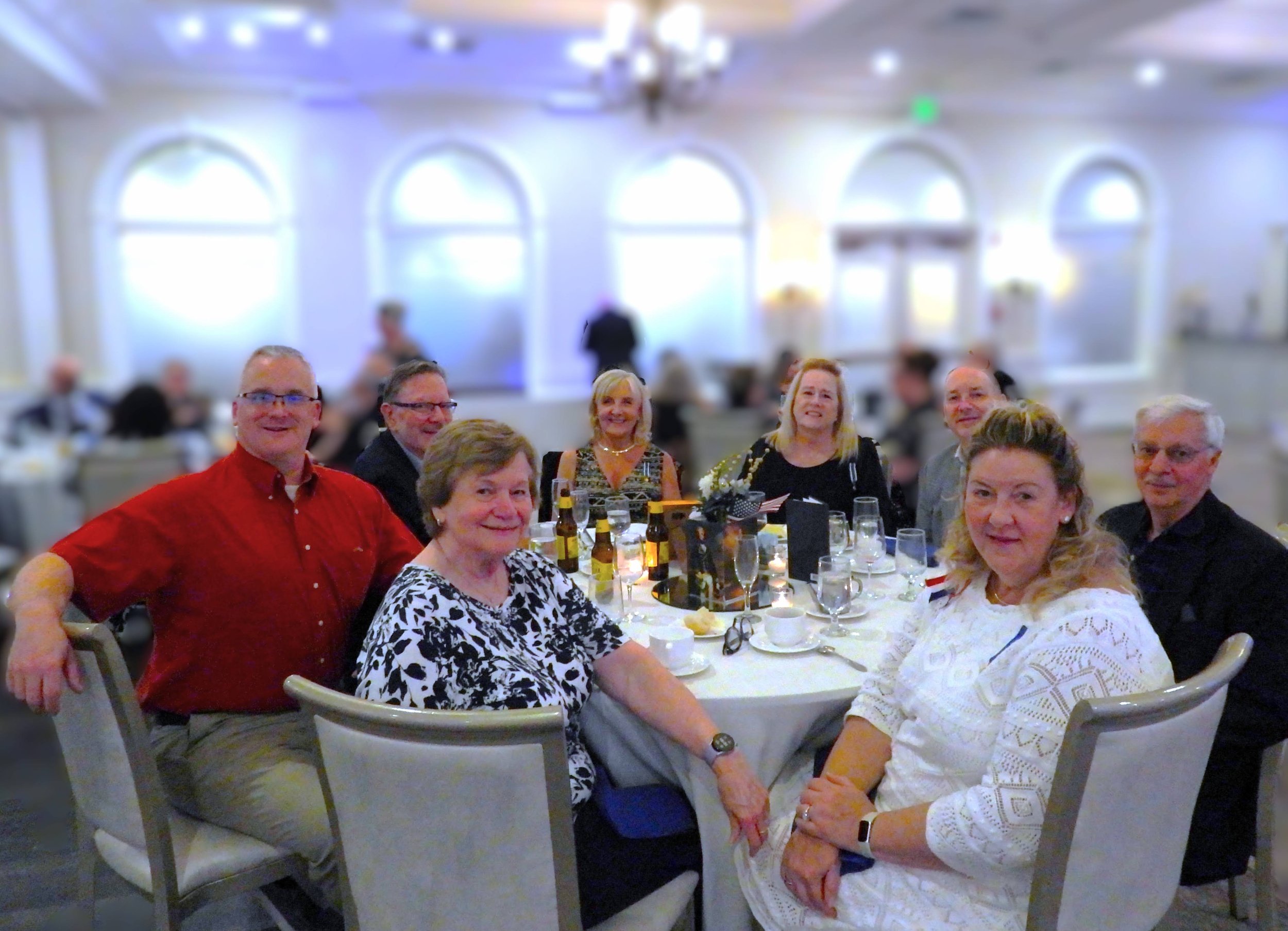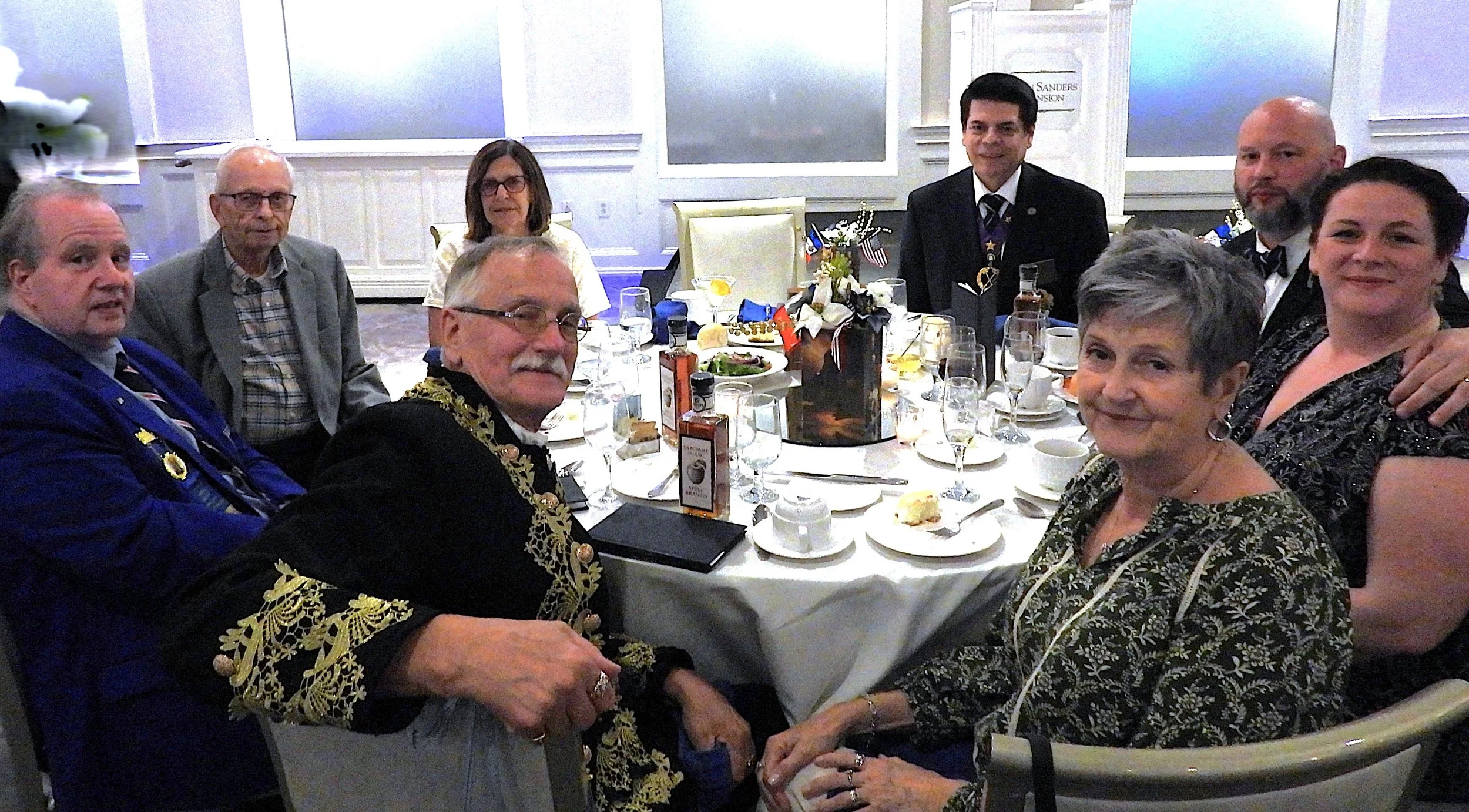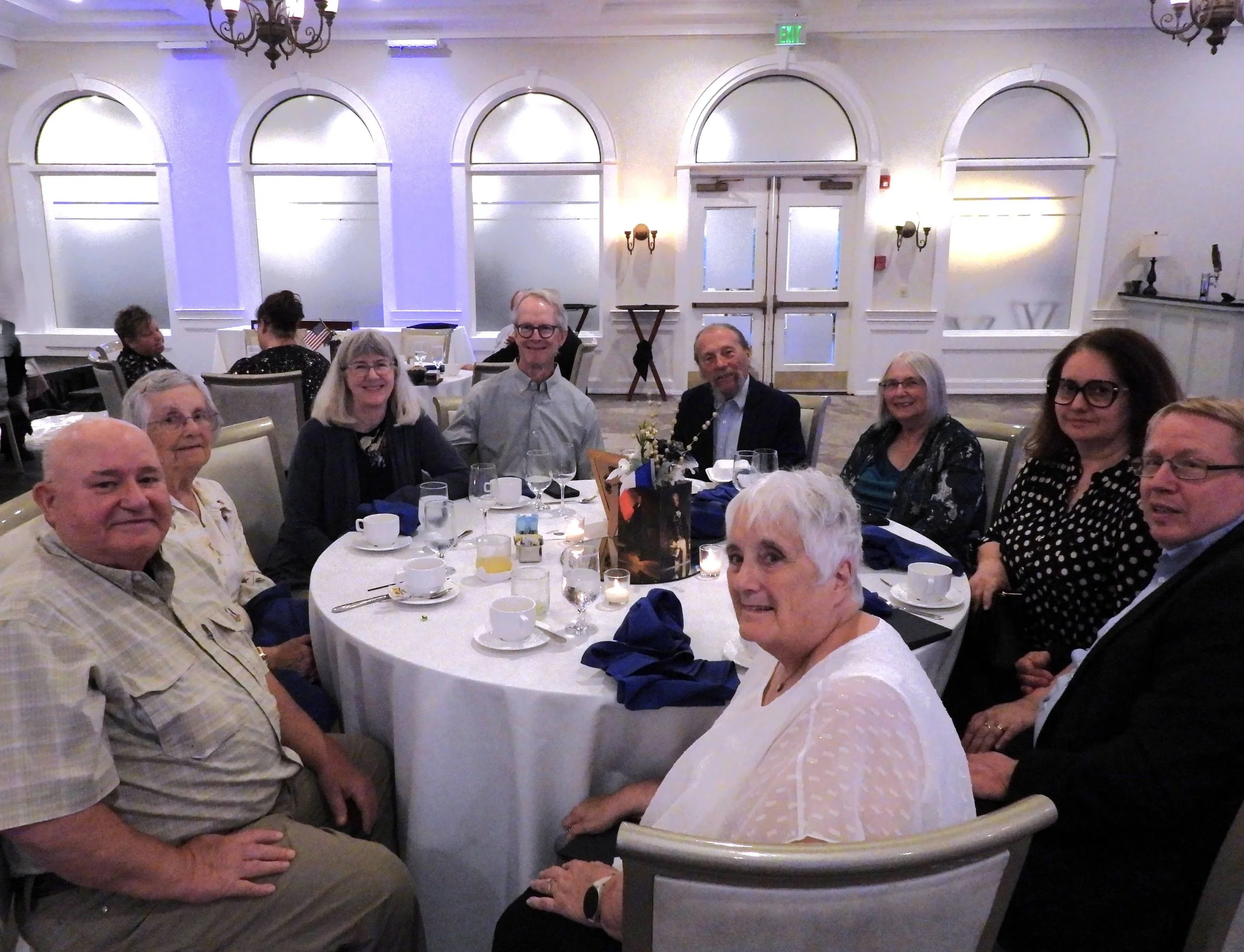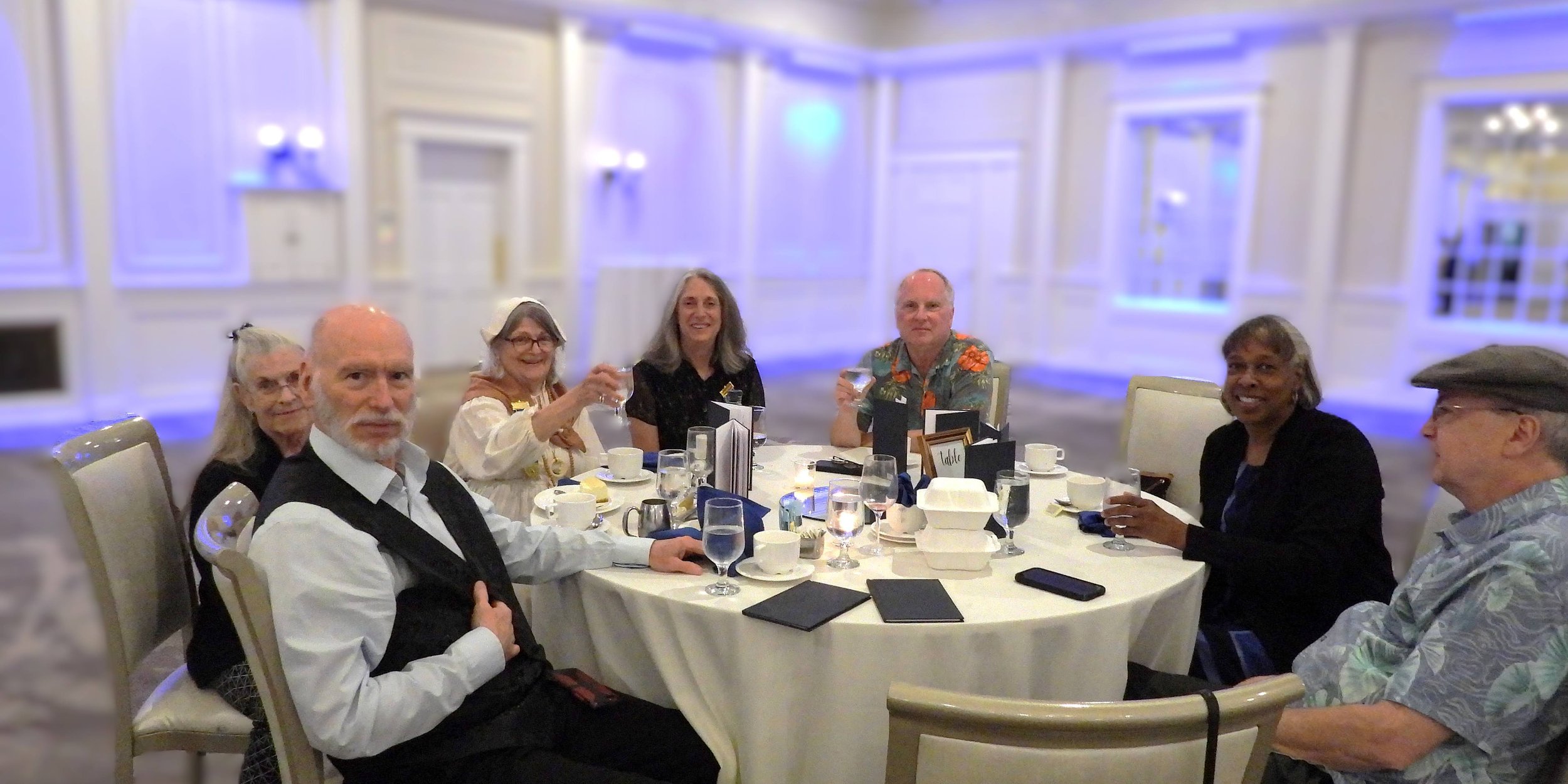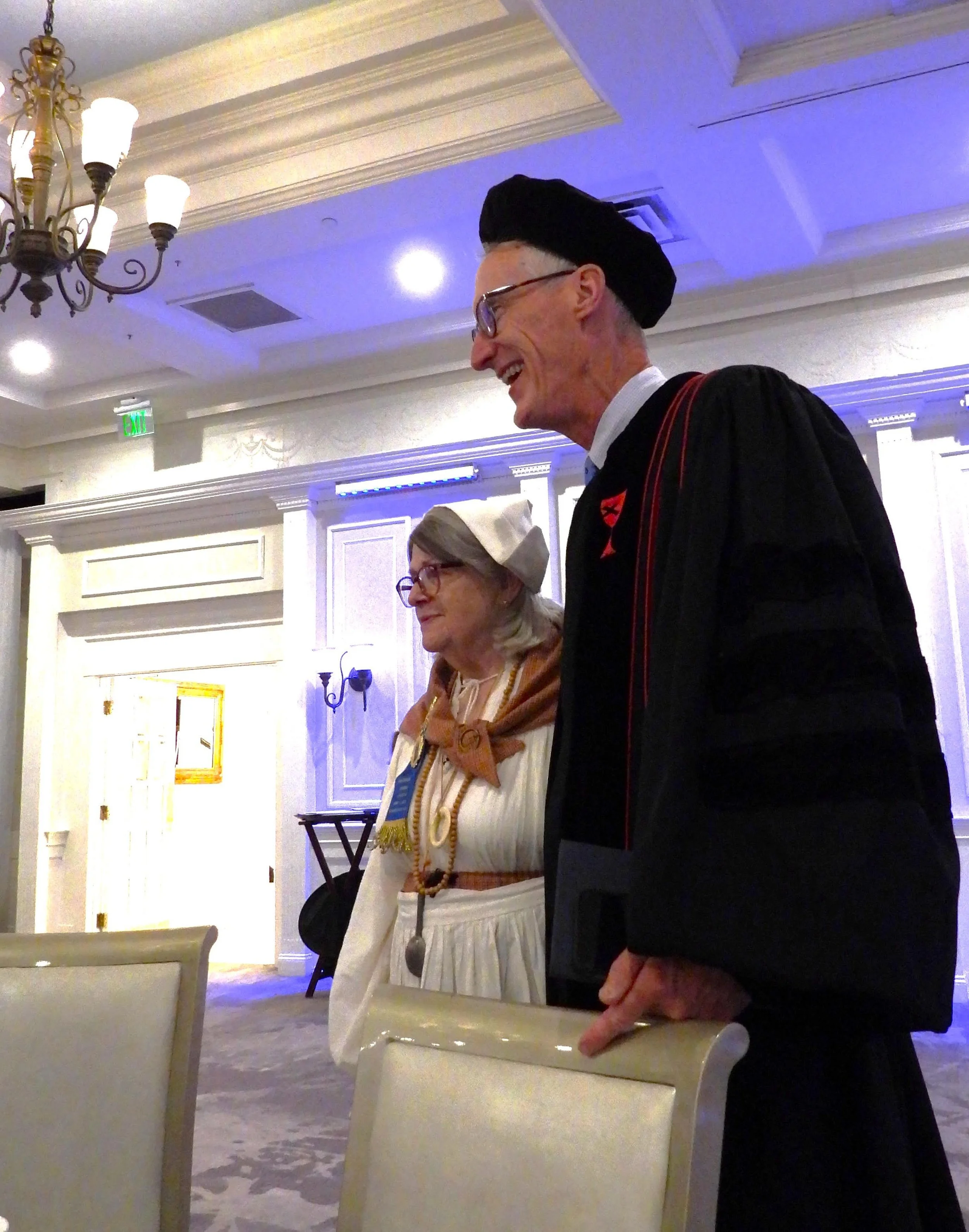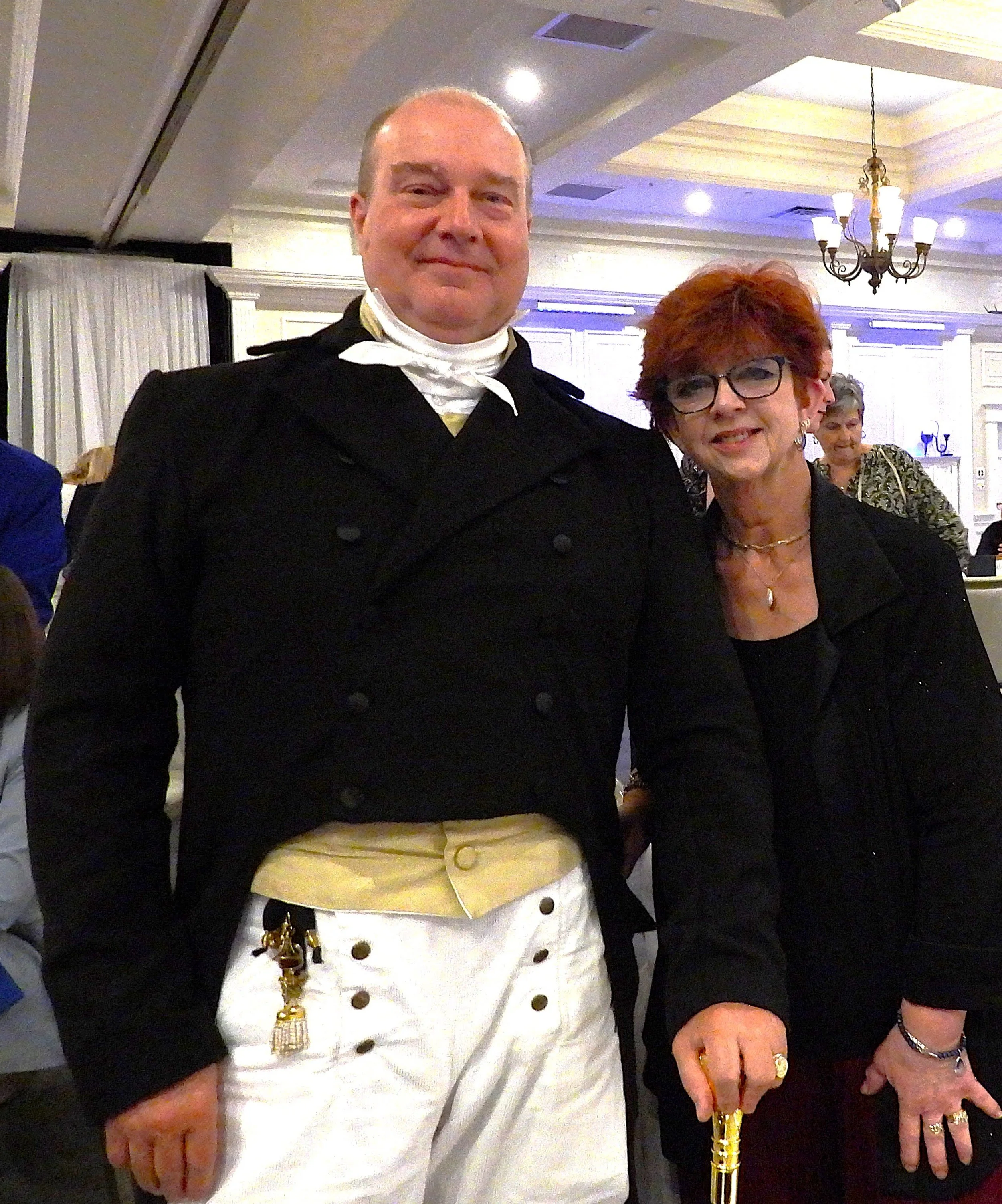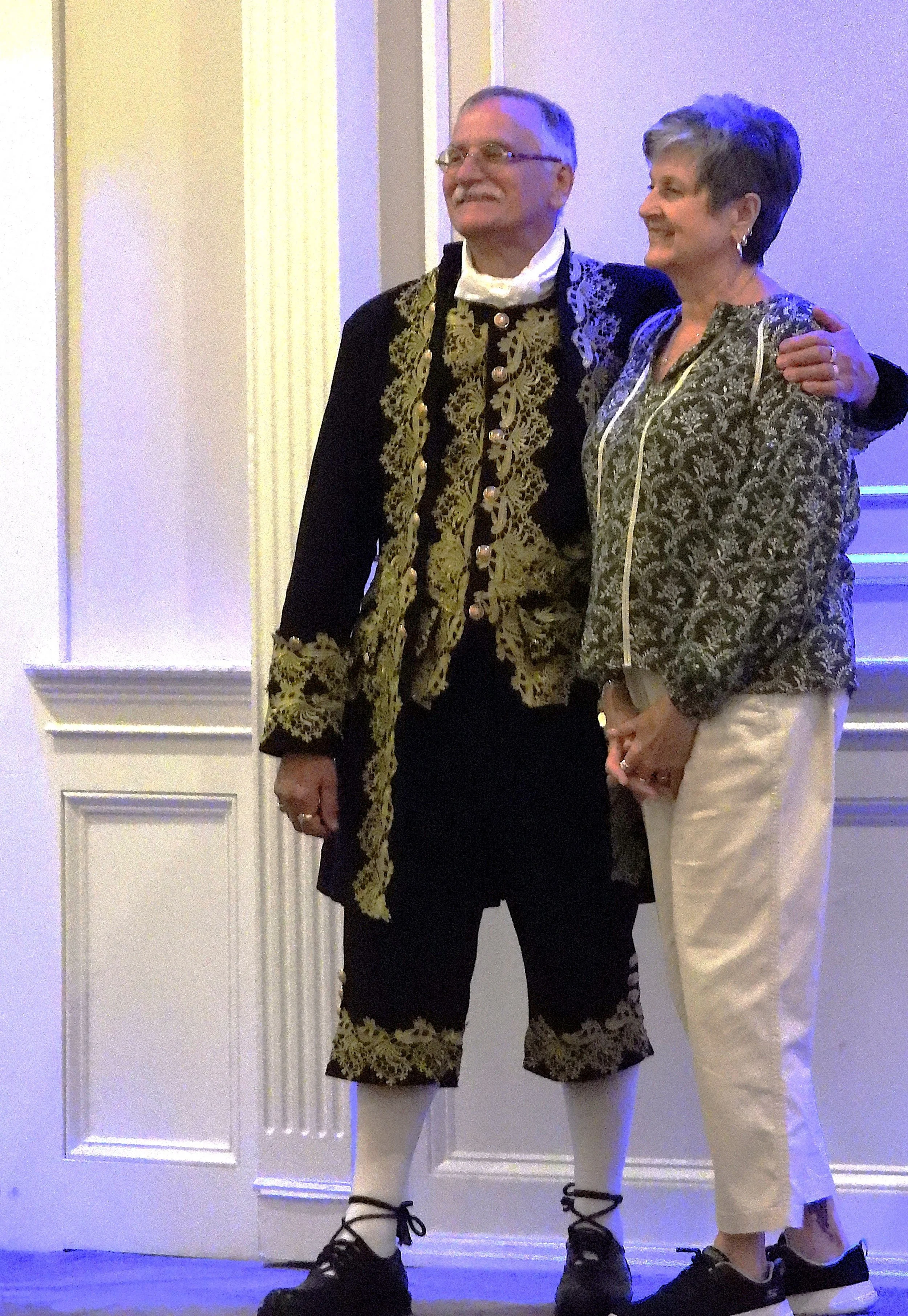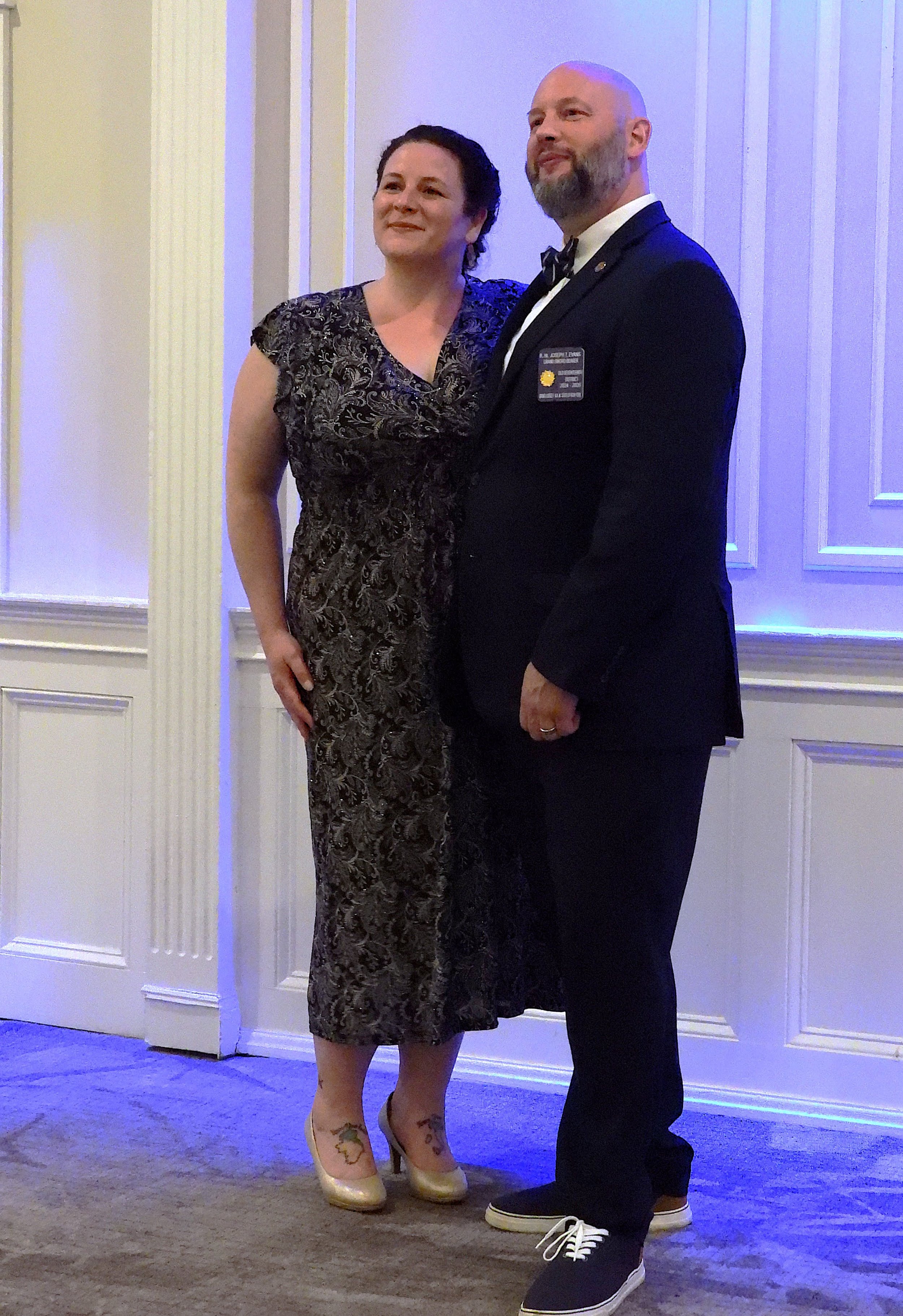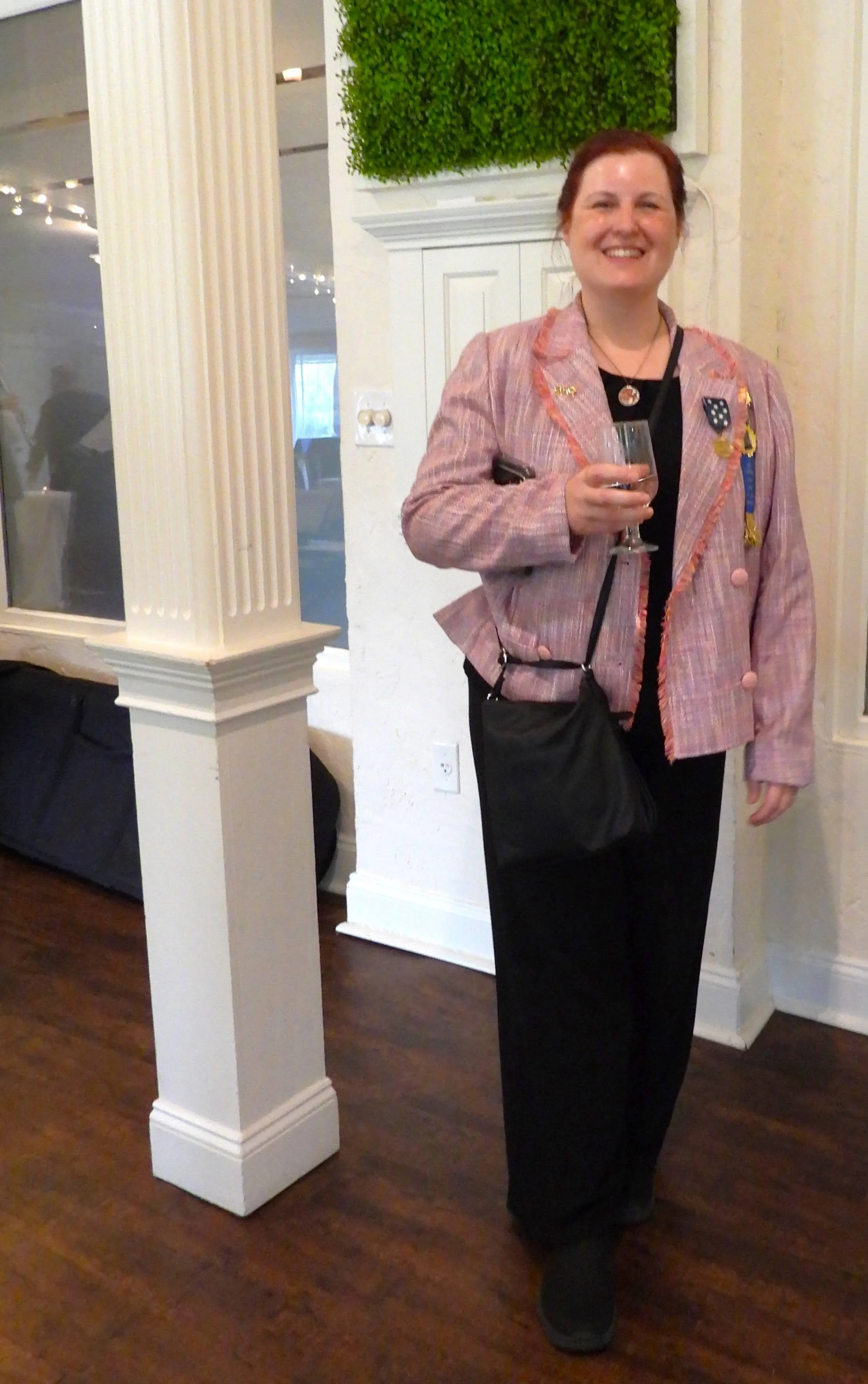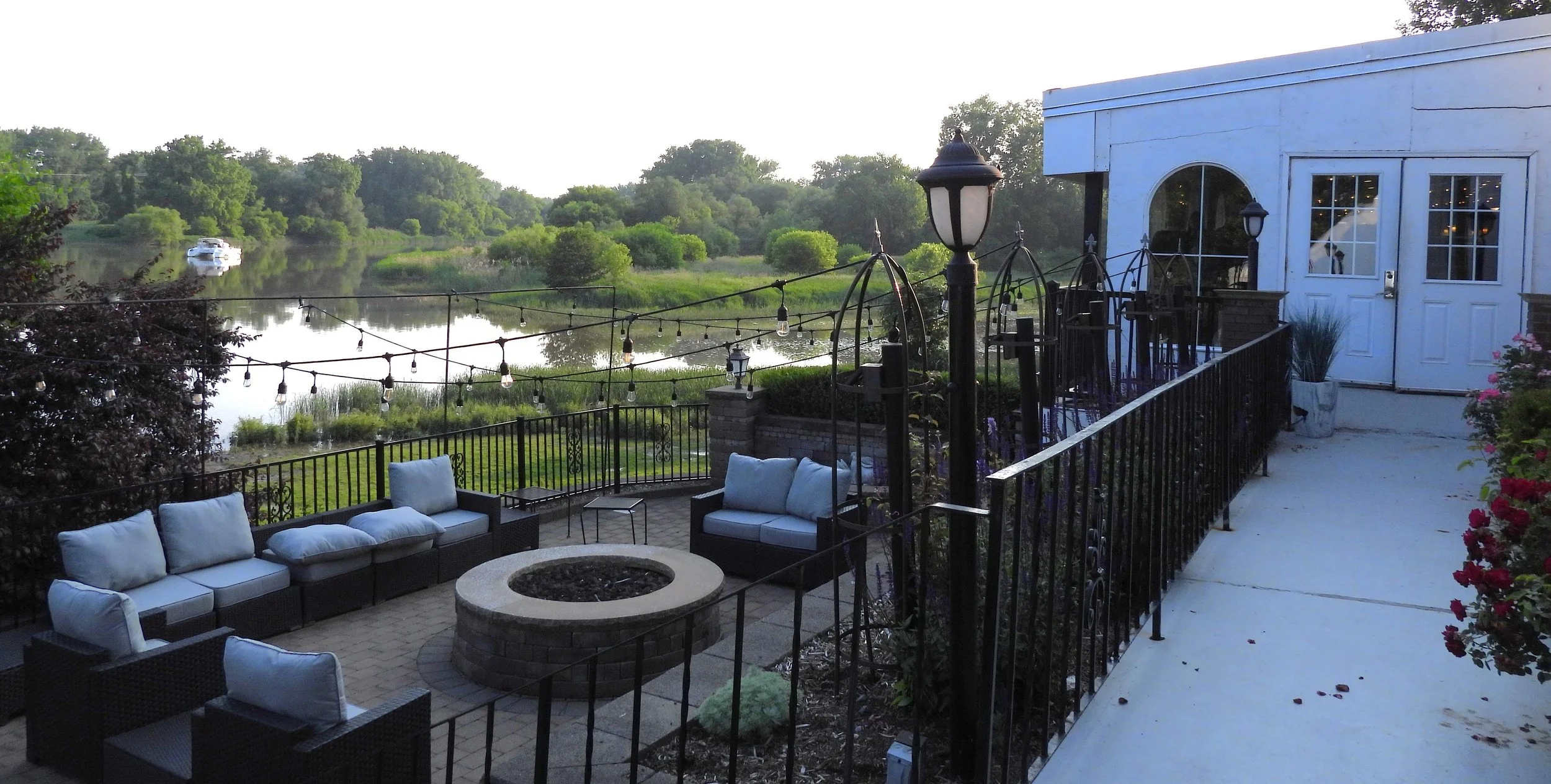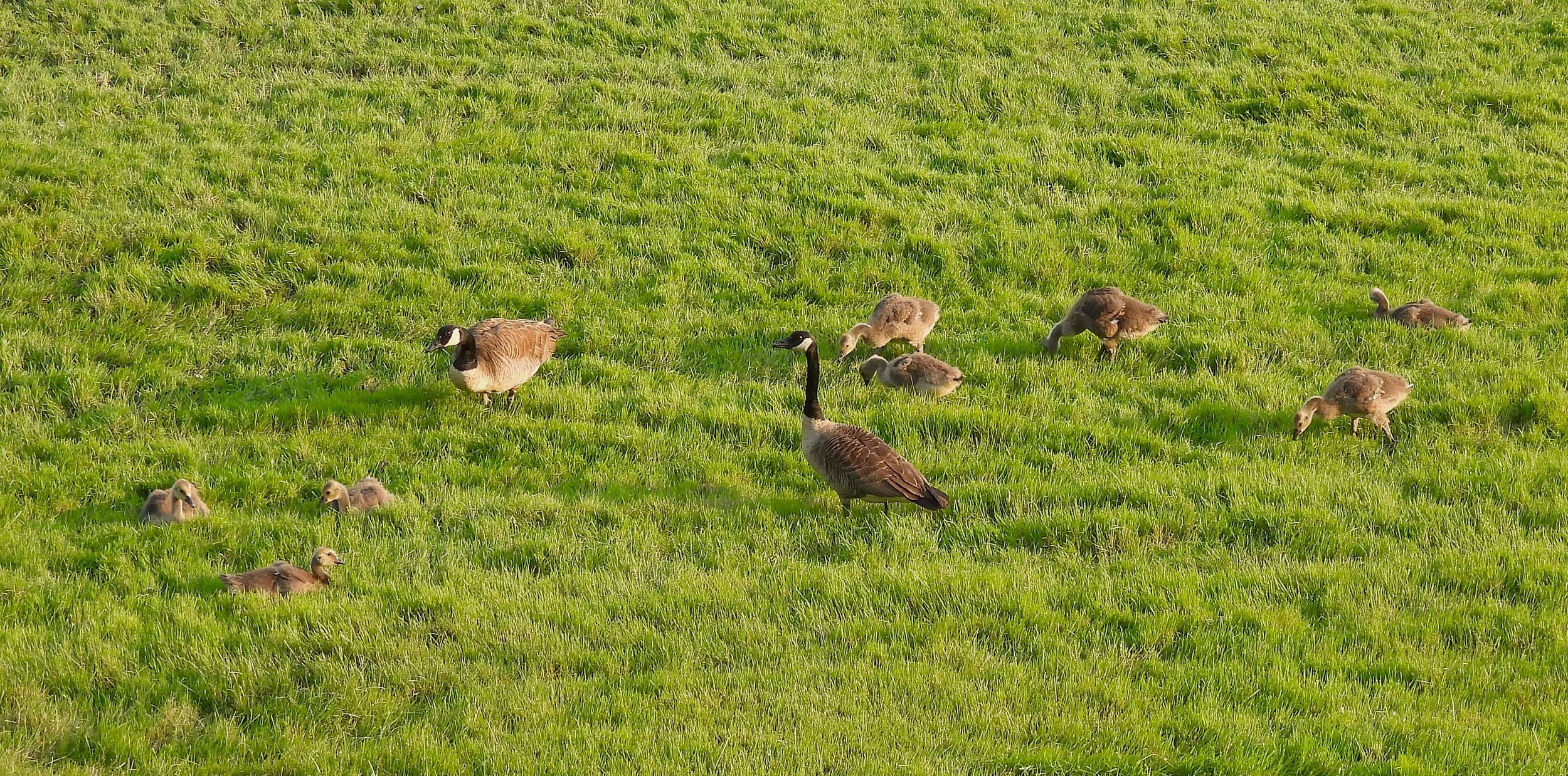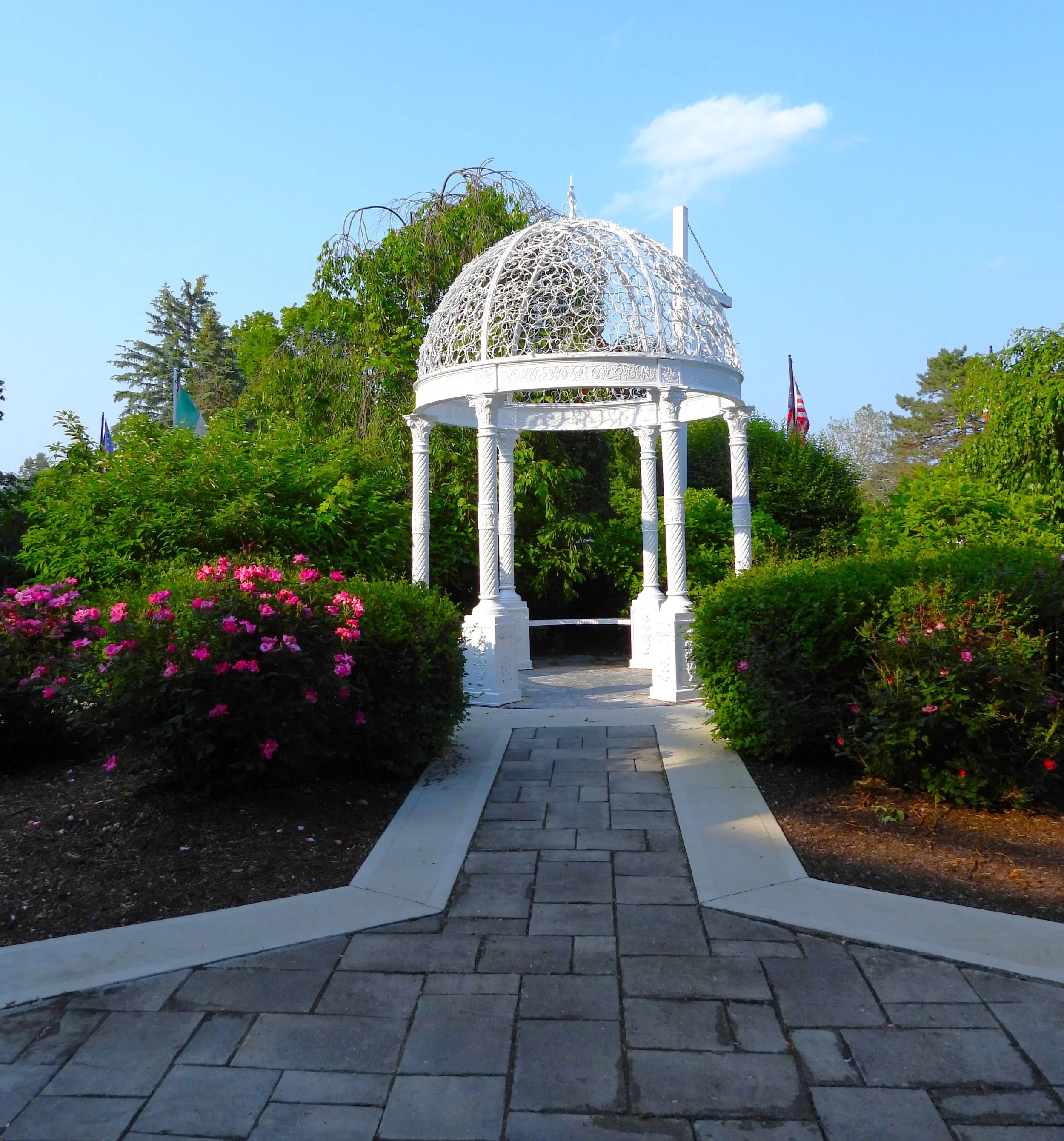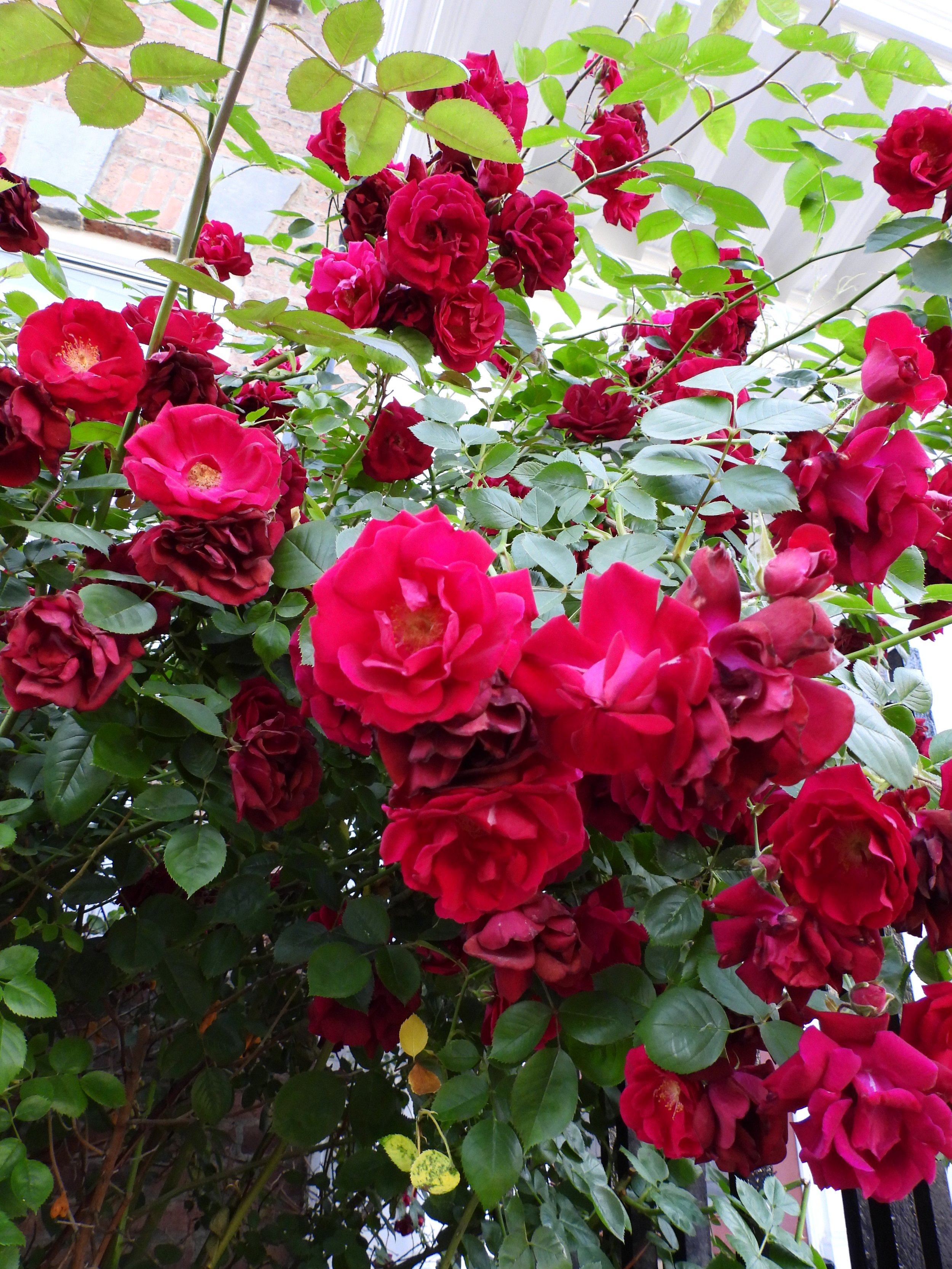
What is Lafayette 200?
*
What is Lafayette 200? *
From August 1824 - September 1825, the gentleman commonly known as the Marquis de Lafayette was "The Guest of the Nation," during the kickoff of America's 50th anniversary of becoming an independent country. He was the last living general from the American Revolutionary War and went on a grand tour of all twenty-four United States. (Think the musical Hamilton, and you will know who we mean.)
But who was Lafayette?
Today, the nonprofit, American Friends of Lafayette (AFL), are dedicated to answering that question and recreated Lafayette’s entire thirteen-month tour for the 200th anniversary. Over 20,000 people across the US were involved in the planning.
*****
Lafayette’s Grand Arrival to Schenectady
All photographs by Denise Tuft
Walking Tour: Schenectady Historic Stockade
All photographs by Denise Tuft
Lunch at First Presbyterian Church, Mekeel Hall
All photographs by Denise Tuft
Historic Marker Unveiling
All photographs by Denise Tuft
Lafayette “Rides” the Erie Canal at miSci
All photographs by Denise Tuft
Author Panel at Schenectady Civic Playhouse
Meet the Authors
-
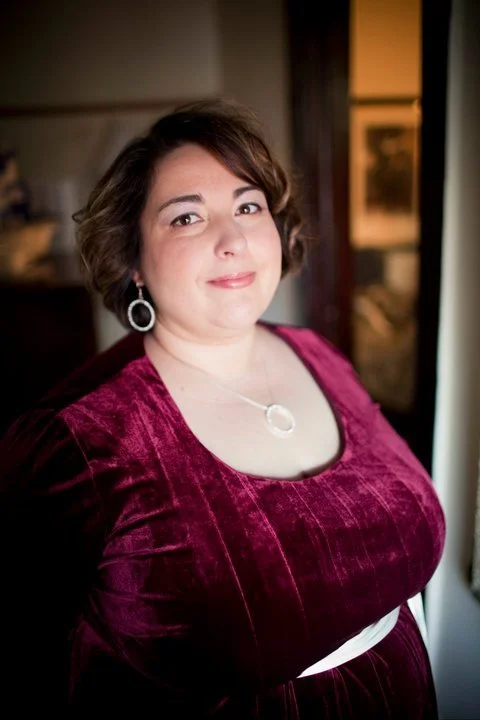
Stephanie Dray
The Women of Chateau Lafayette
Stephanie Dray is a New York Times, Wall Street Journal, and USA Today bestselling author of historical women’s fiction. Renowned for her captivating storytelling and detailed historical narratives, Stephanie has written acclaimed works such as America’s First Daughter, My Dear Hamilton, The Women of Chateau Lafayette, and Becoming Madam Secretary. These novels have cemented her reputation as a leading voice in historical fiction, bringing to life the stories of America’s founding mothers, and influential women beyond the revolutionary era.
Stephanie’s award-winning work consistently tops lists of the most anticipated reads of the year. Widely praised by colleagues, recommended on the TODAY show, and translated into many languages, her work resonates with readers around the world. Living in Maryland with her supportive husband, an extensive library of history books, and the inevitable basket of cats or foster kittens, Stephanie continues to write and share the powerful stories of women who have shaped history.
-

Bruce E. Mowday
Lafayette at Brandywine
Bruce E. Mowday is an award-winning author and newspaper reporter, authoring more than 20 books on history, sports, business and true crime. Bruce has appeared on television and radio shows, including Counter Culture, a PBS Emmy-winning show, Discovery ID, ReelZ network, C-SPAN and the Pennsylvania Cable Network. He was a guest on the Massachusetts Historical Society’s Revolution 250. Twice he was invited to be part of the Authors of the American Revolution Congress hosted by Nathan’s Papers. Bruce is a frequent speaker at various civic and historical groups. The Congress of Civil War Round Tables named Bruce a “5-Star” speaker. A member of the American Friends of Lafayette, Bruce is the Chester County Coordinator for the Lafayette Bicentennial Celebration in 2024 and 2025. He is also a member of the Chester County’s 250th committee planning for a celebration of our nation’s founding.
-
Elizabeth Reese
Marquis de Lafayette Returns
Elizabeth M. Reese is a historian in the Washington, D.C. area whose research is focused on public memory, family ties, and grief.
Elizabeth has spent over a decade as an interpreter at historic sites on the East Coast and her work has also appeared in TIME, the New York Times, and on C-SPAN. Elizabeth was awarded the Scott Hartwig Public History Fellowship at the Civil War Institute in 2015 and the America 250! Commendation Medal in 2024.
Elizabeth is currently the Senior Manager of Public Programs & Interpretation at Woodlawn & Pope-Leighey House and is completing her Master of Arts in American History from Gettysburg College.
Her first book, Marquis de Lafayette Returns: A Tour of America’s National Capital Region, was published by The History Press (imprint of Arcadia Publishing) in 2024.
-
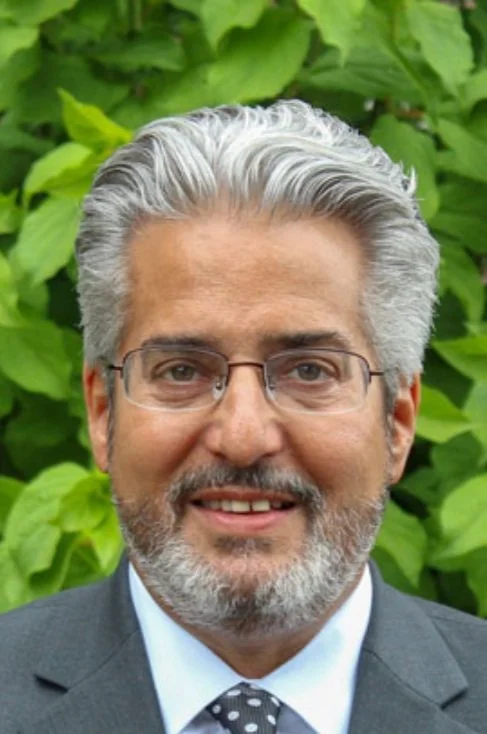
Chuck Schwam
Chairperson of the AFL’s Bicentennial of Lafayette’s Farewell Tour 2024-2025
Chuck’s unwavering passion for both his professional career as an account executive and his work with The American Friends of Lafayette has been a driving force in the organization’s transformation. From the moment he discovered the association in 2009, he became deeply engaged. By 2011, he had already joined the Board of Governors as Treasurer, and over time, his leadership role expanded to Executive Director, where he also took on the responsibilities of Event Planning for the annual conference and publishing the quarterly Gazette.
What began as a personal interest in history soon evolved into a profound appreciation for the Marquis de Lafayette and his embodiment of the enduring, positive relationship between France and America. This admiration resonated deeply with Chuck, and over the past 15 years, he has dedicated himself to sharing Lafayette’s legacy and the importance of Franco-American friendship with the broader public. His commitment to education and advocacy has fostered a sense of community and passion among fellow members of the association.
All photographs by Denise Tuft
Dinner at the Glen Sanders Mansion
Meet the Musicians
-

Max Caplan
Max Caplan is a classical and jazz composer and pianist based in the New York State Capital Region. He holds a Master of Music in Composition from the Hartt School of Music in Hartford, CT, and a Bachelor of Arts in Music and Classics from Union College in Schenectady, NY. His compositional instructors have included Hilary Tann, Robert Carl, and Larry Alan Smith.
Max has performed with numerous Capital Region groups including the Musicians of Ma'alwyck, Quintocracy, the Schenectady Symphony Orchestra, and Albany Pro Musica. He is a frequent guest on the Eddie-Award-winning "Jazz Vespers" series at the First Reformed Church in Schenectady.
Max's compositional works have included several commissions by the Musicians of Ma’alwyck, including a one-act chamber opera, Aleda: The Flight of the Suff Birdwomen (2018), for which he wrote both the music and libretto. The opera’s score was praised in the Albany Times Union as “invigorating and inspiring” and the libretto as “highly effective.”
Max holds instructor and accompanist positions at several Capital Region institutions. He is an Affiliated Artist at Union College, providing piano instruction to undergraduate students, and an Adjunct Instructor of piano and composition at SUNY Schenectady. He is an accompanist at Union College, SUNY Schenectady, Congregation Gates of Heaven in Niskayuna, and First Reformed Church in Schenectady.
-

Norman Thibodeau
Norman Thibodeau has been a member of Musicians of Ma'alwyck since 2006. He also performs with the wind quintet Fünf and Vermont Virtuosi, and has performed with the Maverick Chamber Players. He was assistant principal flutist of the Orquesta Sinfónica del Estado de México, and has played with almost all the professional orchestras in and near the Capital Region of New York State. In 2008, he was guest solo artist for the Skidmore College Flute Festival. He has recorded solo flute works of Anthony Holland for Albany Records, and has had both live and recorded performances broadcast on NPR.
He embraces variety and versatility in his performing life, having performed on a range of flutes from baroque traverso to contrabass flute, plus a quarter-tone flute including a sliding headjoint.
Also a composer, Norman has works published and recorded by ALRY Publications and Albany Records. Norman was trained at Peabody Conservatory and the University at Albany. His teachers include Irvin Gilman, Robert Dick, Stephen Preston, and Britton Johnson.
Norman teaches flute at Schenectady Community College and the Berkshire Music School. He also teaches extended flute techniques each summer at the Wildacres Flute Retreat, and has taught flute at Colgate University, the College of St. Rose, and the University at Albany.
Additionally, Norman is a trained practitioner of the Feldenkrais Method, an approach to movement education that musicians in particular have found highly beneficial to their performance level and comfort.
The American Friends of Lafayette is an historical and patriotic society dedicated to the memory of Major General Gilbert Motier, Marquis de Lafayette and to the study of his life and times in America and France.
Schenectady Lafayette 200 Anniversary Committee
Chair Chris Leonard, Chair Kiersten Marcil
Joseph Evans, Richard James, Francis I. Karwowski,
Laura A. Lee, Kim Mabee
Please support our community partners
-

Daughters of the American Revolution:Schenectada Chapter
Schenectada - Native American name meaning "Beyond the Pine Plains"
The Chapter was formally organized October 19th, 1911 at the home, 1418 Union Street, of the first Regent, Mrs. Harriet Leonard Colburn, with the New York State Regent, Mrs. Joseph Wood, and the New York State Vice Regent, Mrs. Joseph King, present.
-

First Presbyterian Church
Presbyterians began meeting in Schenectady sometime before 1760, with some evidence of the beginnings of a society as early as 1735. For a time in the 1760s the Episcopal and Presbyterian congregations shared the St. George’s Episcopal Church building, with each group using different entrances to the building and different internal seating arrangements.
-

First Reformed Church
Founded by Dutch settlers, Schenectady’s first colonists, the Church has long enjoyed an ethnically and ecumenically diverse membership drawn from the city, its suburbs, and surrounding rural areas. The church has kept records since 1680.
-

Fort Plain Museum & Historical Park
The Fort Plain Museum began operation in 1961 as the Fort Plain Restoration with an emphasis on rebuilding Revolutionary War Fort Plain.
-

Free and Accepted Masons
“On the topic of Freemasonry, it has been disputed for two centuries where Lafayette became a Mason. There are no definitive records showing exactly when and where Lafayette was initiated… French Masonic scholars believe he was made a Mason in France prior to coming to America[ ] and enlisting in the Continental army. However, the most widely accepted and best supported belief is that Lafayette was made a Mason after coming to America, most likely after meeting George Washington.”
Source: The Midnight Freemasons
-

Hudson Valley Writers Guild
The Hudson Valley Writers Guild supports the efforts of writers in all genres by sponsoring readings, workshops, and contests and providing a number of valuable resources for the entire literary community of Upstate New York.
-

miSci
Founded in 1934, miSci is a center for learning, imagination, and creativity. Exhibitions, educational programs, and events are designed with our mission in mind: “to inspire people to celebrate and explore science and technology past, present, and future.”
-
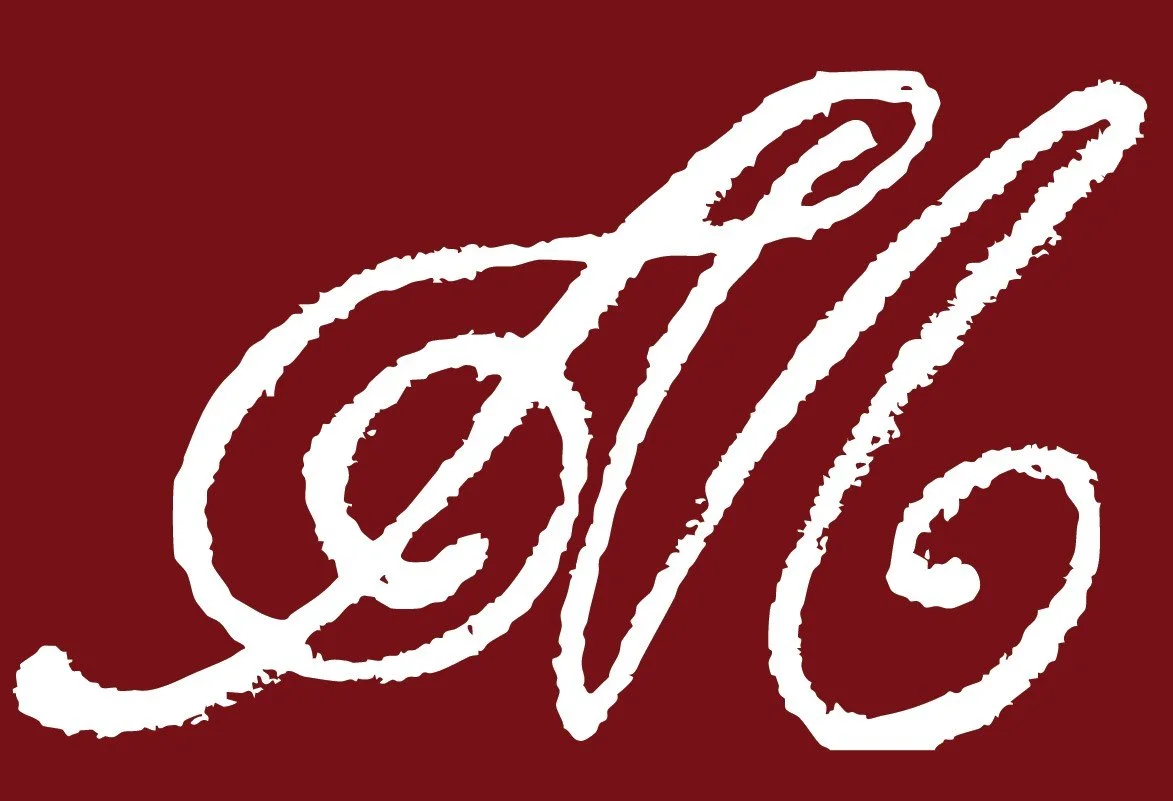
Musicians of Ma'alwyck
Musicians of Ma’alwyck is a flexible-size chamber ensemble in residence at the Schuyler Mansion New York State Historic Site and Schenectady County Community College. Founded in 1999 by violinist and director Ann-Marie Barker Schwartz, the group specializes in music performed in America during the eighteenth and nineteenth centuries.
-

New York State Writers Institute
Our mission is to explore and teach the writing craft; to celebrate diverse voices in all genres; to honor the power of literature as a force for individual growth and social good; and to foster a vibrant community of readers and writers who engage in meaningful dialogue.
-

Saint George’s Church
British missionaries visited Schenectady as early as 1695 and an Anglican Parish under the patronage of St. George was established in 1735. By 1758…the young Parish found a warm and valuable friend in Sir William Johnson, His Majesty’s Superintendent for Indian Affairs in North America.
-

City of Schenectady
The area that is now Schenectady was originally the land of the Mohawk tribe of the Iroquois Nation. When Dutch settlers arrived in the Hudson Valley in the middle of the 17th century, the Mohawk called the settlement at Fort Orange "Schau-naugh-ta-da", meaning "over the pine plains." Eventually, this word entered the lexicon of the Dutch settlers, but the meaning was reversed, and the name referred to the bend in the Mohawk River where the city lies today.
-

Schenectady Civic Players
The Capital District’s Oldest Community Theater
-

Schenectady County Historical Society
The Schenectady County Historical Society was founded in 1905 to share and preserve Schenectady County’s history. Today we bring history and culture to life through exhibits, programs, and community events at our three sites:
Mabee Farm Historic Site
Schenectady History Museum & Library/Archives
1735 Brouwer House Creative
-

The Stockade Association
The Stockade Association was founded in 1958 to protect, preserve and improve New York’s first historic district.

